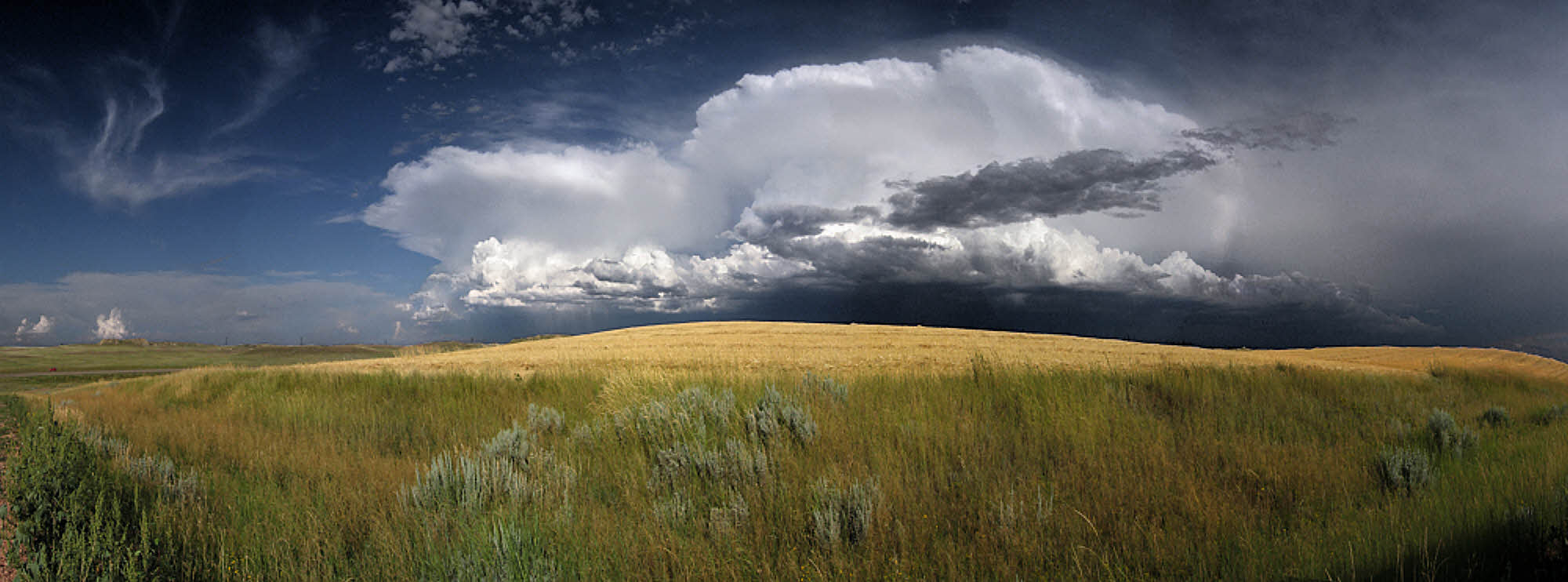
Rolling, roiling, rumbling Northern Plains mobile car wash coming to greet me, August 2005.
No. "Not Moody, hey?" Maah Daah Hey, eh?
A trail in western North Dakota: Maah. Daah. Hey. True! In North Dakota, Land Of The Frozen Dead.
It's Mandan for something like The Enduring Place. With or without the capital letters. Take your pick.
But being in North Dakota, people have lots of odd ideas about it.
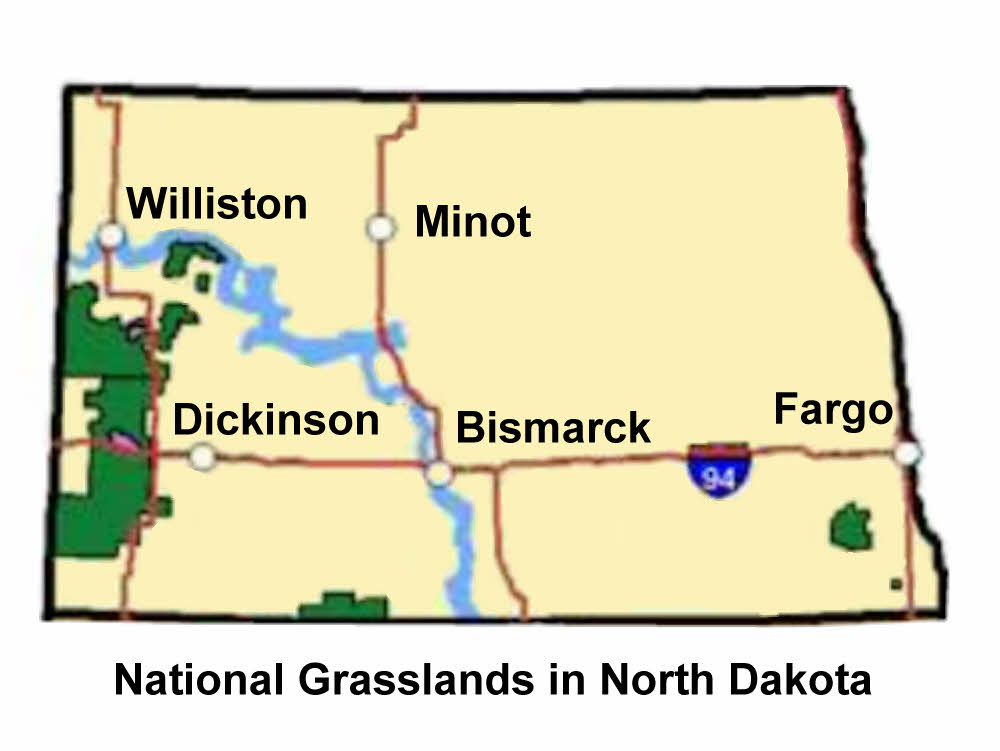
Advice to a prospective North Dakota hiker.
Someone on a Reddit forum was told that since we're getting into the fall season, and he wanted to hike the Maah Daah Hey Trail, he should be worried about marauding bears and lions intent on putting on fat for the winter. So I had to contribute my six cent's worth. (Excuse the staccato style.)
You're talking about North Dakota. No bears. Period.
Forget about lions. You can probably find one in a zoo, if they still have any zoos in the state, but you're not going there.
I was born in North Dakota and spent my first 28 years there. Residents like to think of it as the wild west, but it isn't. The eastern 2/3 of the state is farmland and the rest is ranch land. Grass and dirt. That's about it.
Undisturbed prairie comprises about 2% of the land, as of 20 or so years back, and less all the time. Most of that is along the grasslands of the Little Missouri River and in Theodore Roosevelt National Park. Enjoy it while you can.
Look out for oilfield workers while you're driving on the back roads (the gravel ones). I had a couple of close calls while driving, but absolutely nothing while hiking. No wild animal goes looking for a fight.
If you are extremely lucky you might see a coyote or a rattlesnake. There are mule deer.
It's getting cold so don't expect too much in the way of snakes, but watch the ground, especially if you are threading your way along a narrow, overgrown patch of trail. I stomp as I walk through that stuff, and go slowly. Snakes will get out of your way if you show respect. They're deaf, but they feel vibrations through the ground, and do not want to be stepped on, ever, for any reason, but are really pleasant in their own way.
Water will be your big issue. There are a few stock tanks, but the water, if there is any in the tanks, will be polluted by cow snot, dead birds, and floating bugs, which will also be dead. The campgrounds have pumps, which will be your best source, but they are at long intervals, and off-trail a mile or two, at least the ones I've been at. The well water is alkaline, but drinking it didn't affect me, and at least it's clean. For most of the year, unless it's frozen, the Little Missouri River is flowing mud.
Not an exaggeration.
The dangerous animals are cattle and bison. You probably won't see bison outside the national park, but you could encounter cows at any time.
When I was there in 2005, I had a confrontation with a small herd (8 - 10 cows and a bull). I finished my day's hiking and when I returned to my car, it was surrounded by the cattle. I kept the vehicle between me and the bull, so I was safe, but it wasn't happy to see me. It butted my car several times, which annoyed me. I threw some small stones at it but that didn't help.
I finally started up my car and gently rammed the bull a few times (more of a slow, gentle, but insistent push), to let the bull know that I was both ornery and stronger than it was. Note that I was not trying to hurt it. Aside from the moral issues, I didn't want to be on the hook for several thousands of dollars of livestock damage and maybe a felony conviction for animal cruelty.
The cattle finally went away, but if I'd been out on the prairie, on foot, alone, with nowhere to go, it could have gotten more than interesting.
You need to be most careful with hunters. It's all too easy for someone to make the wrong kind of mistake. Find what information you can on the hunting seasons, and dress like you don't want to get shot by accident.
There are enough trees so you can hammock camp, if that's your thing. No, seriously. I did, on my second trip. No problem.
Poison ivy should be winding down, but it's all over hell, often in wildly improbable spots, such as high up out on the open prairie far from water. Watch out for ticks in brushy areas (likewise winding down about now).
Nice place. Low key. Quiet. You may see bicyclists.
So where the eff then, Eff? And what, exactly?
According to another interpretation, "The term 'Maah-Daah-Hey' comes from the Mandan Indian language meaning 'Grandfather' and the trail symbol of a 'Turtle' comes from the Lakota Indian's symbolic meaning of long life and patience," according to the North Dakota Parks and Recreation Department.
So what the heck. Here's some more from them. See the bottom of this post for the linkie-poo.
Construction of the 96-mile long Maah-Daah-Hey Trail began in 1995 and was finished in 1999 in accordance with a three-partner effort between the North Dakota State Parks and Recreation Department (NDPRD), Theodore Roosevelt National Park (TRNP) and the United States Forest Service (USFS).
This area is full of unique geological formations and cultural resources. Native Americans used the area for annual hunting trips from the surrounding prairie. The MDH Trail passes by Theodore Roosevelt's Elkhorn Ranch site on the Little Missouri River as well as General Sully's Trail and the CCC Historical Site. Since its inception, the Maah-Daah-Hey Trail has become recognized as a premier non-motorized trail and has been featured in many national publications.
- Length: 96 miles
- Grade: average 8%, maximum 20%
- Surface: primary soil, secondary crushed rock, compacted
- Amenities: Camping areas, corrals/hitching rails, fire rings, historical sites, parking, trailer parking areas, picnic areas, resorts/ranches, restrooms, interpretive signs, directional trail access information, trail intersections, trailheads, non-potable water
Directions. The trail runs from Sully Creek State Park south of Medora, north along the Little Missouri River, ending at the North Unit of Theodore Roosevelt National Park.
But the Maah Daah Hey Trail Association has better info, you ask me. At least more recent. Here is a bit. (Link below.)
Q: Where does the trail begin and end? A: US Forest Service Burning Coal Vein Campground, located about 49 miles south of Medora on East River Road in Slope County, begins with Mile Post 0. From there, the 144 mile trail winds its way to its northern terminus at the US Forest Service CCC Campground in McKenzie County, located 20 miles south of Watford City, off Highway 85.
Q: What are the conditions like on the trail? A: ...at various times of the year, the trail may be impassable due to snow, ice, high water, and mud. Users of the Maah Daah Hey Trail system share the same space with horseback riders, hikers, and bicyclists.
Lots more info at the Trail Association site.
Note that the Trail Association says a good way to avoid snakes is to make noise: "As for snakes, noise will help...", but all snakes are deaf, so no. They are quite sensitive to vibrations transmitted through the ground though, so just use the snake telegraph and stomp. They'll get your message.
Getting to the trail is a matter of following the highway. Generally speaking, it lies between the city of Dickinson and the Montana border to the west. If you aim for Medora, which lies on I-94 west of Dickinson, you'll bump into the south unit of Theodore Roosevelt National Park, which will get you on track.
Section 1: CCC Campground to Bennett Campground.
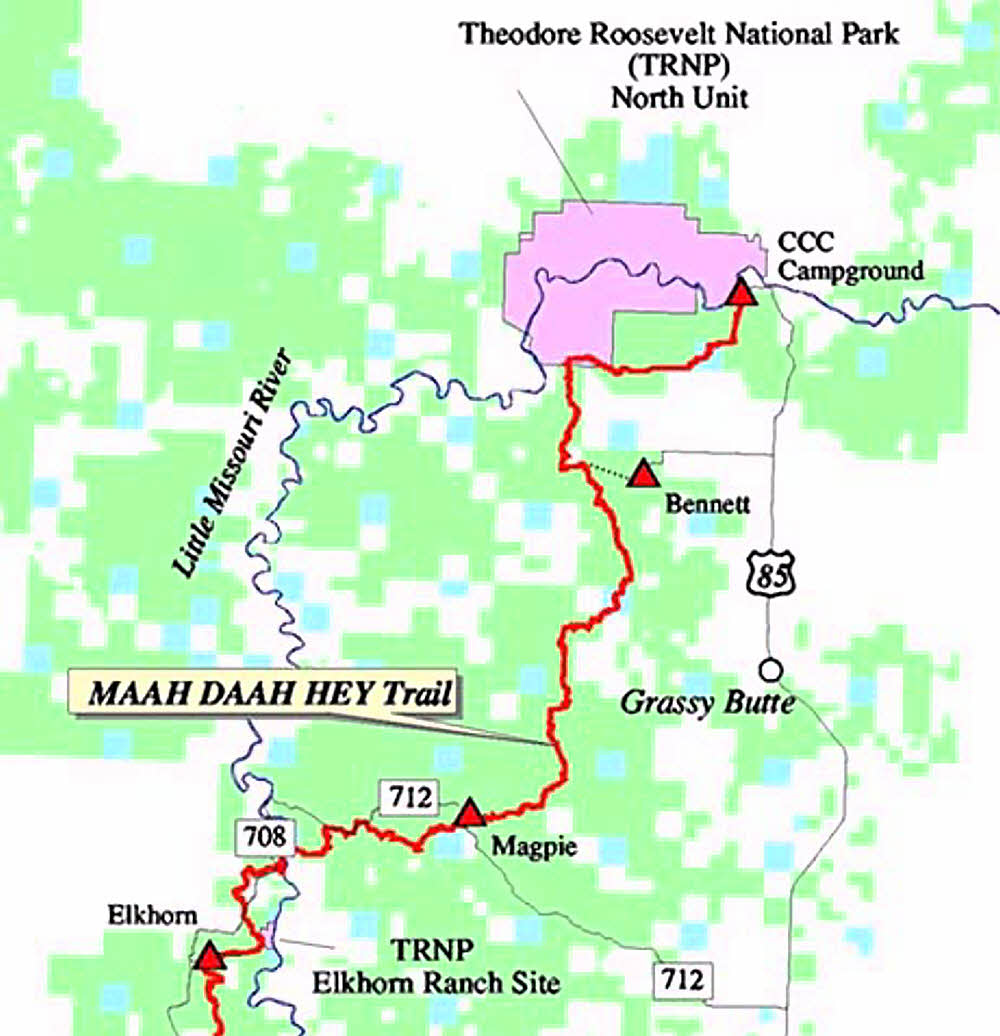
Northern half of the trail.
This was a long time ago, around four years before I started blogging, so I didn't hike with the intent of recording anything, except for having a camera along.
Recently I've decided that I need to weed my garden of archived photos, and just a couple of days back I finished going through my Maah Daah Hey images. I did pull a lot of them together for a tiny presentation I gave at the 2005 ALDHA-West Gathering, following my 2004 and 2005 trips.
Cleverly, at the time I carefully edited the images and then saved too-small versions of them, which I've had to upsize by over 200% to fit my current format. Either that or start over from the beginning, but since well under half the population of Earth reads my blog, even the really clever posts, I decided to go with what I had. (As they say at Despair, Inc., "Hard work often pays off after time, but laziness always pays off now.") So that's why the images are sort of OK, but not as OK as usual.
And it's really hard to find a map of the place. The map fragment above may originally have been from the U.S. Forest Service, though it was used in more than one place, and may or may not be in the public domain. It's now available only on the Web Archive as far as I know, and not in an honestly decent size, but is readable. If you squint.
Photos, then. Let's see 'em.
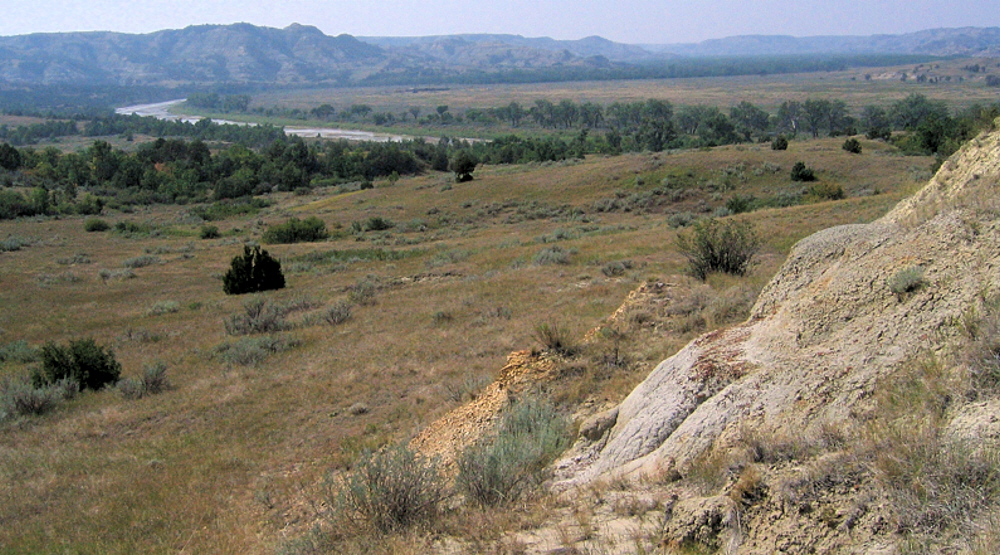
Start here. Just west of the CCC campground along the Little Missouri River.
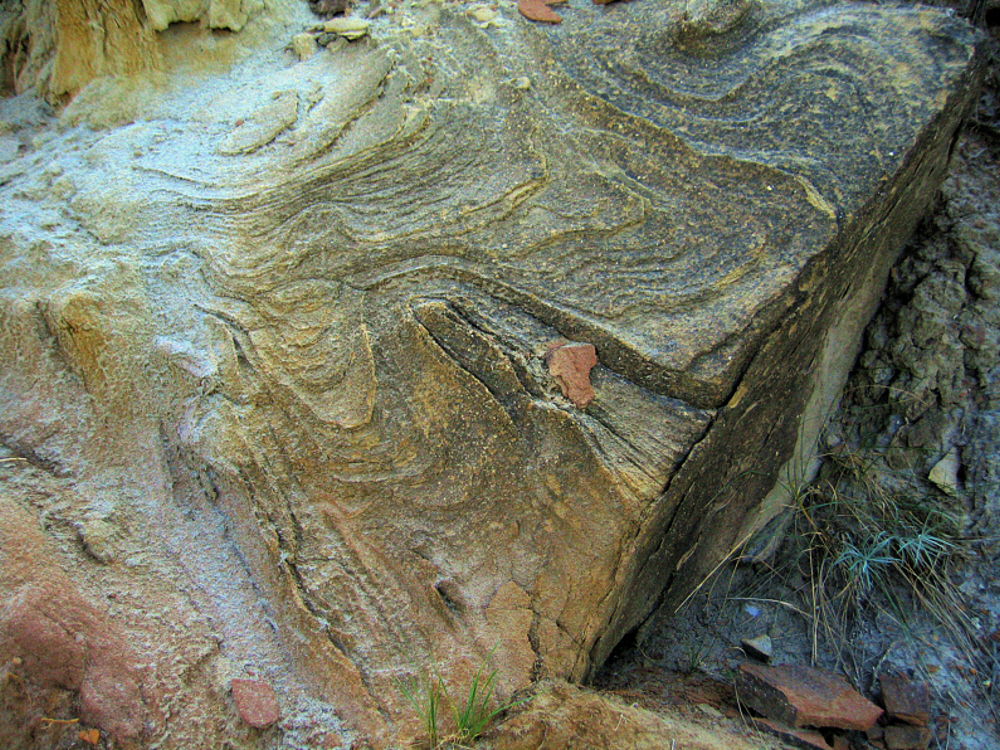
Mmmmm — rock. Swirly.

Live squeaky toy. Prickly. Doesn't squeak.
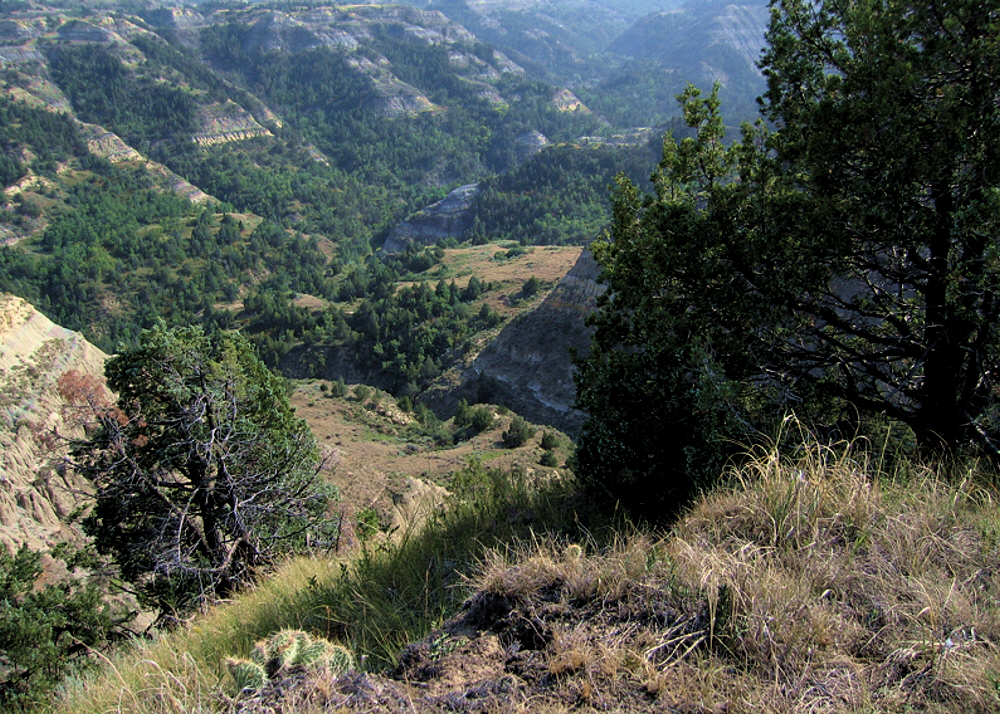
Negative elevation, with cactus. Anything could be happening down there.
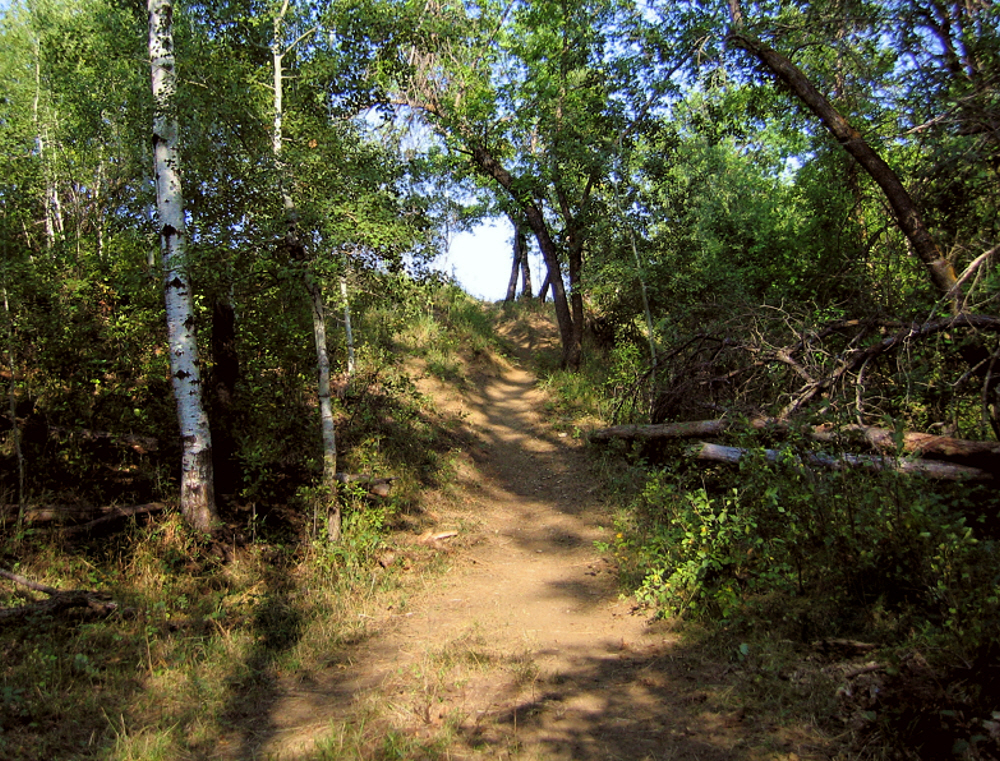
Didn't expect to see this, did you?
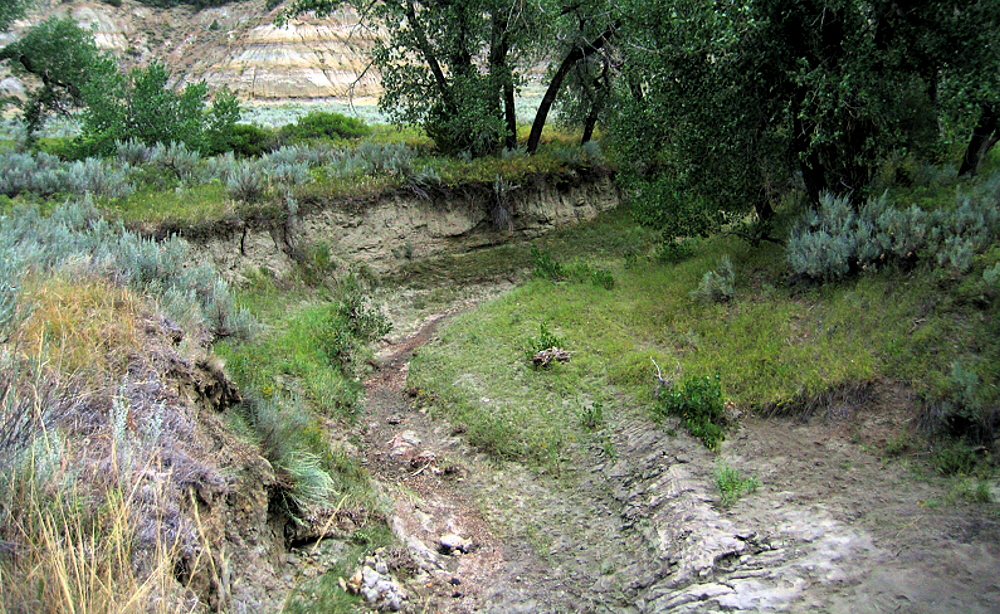
Small wash, dry mode.
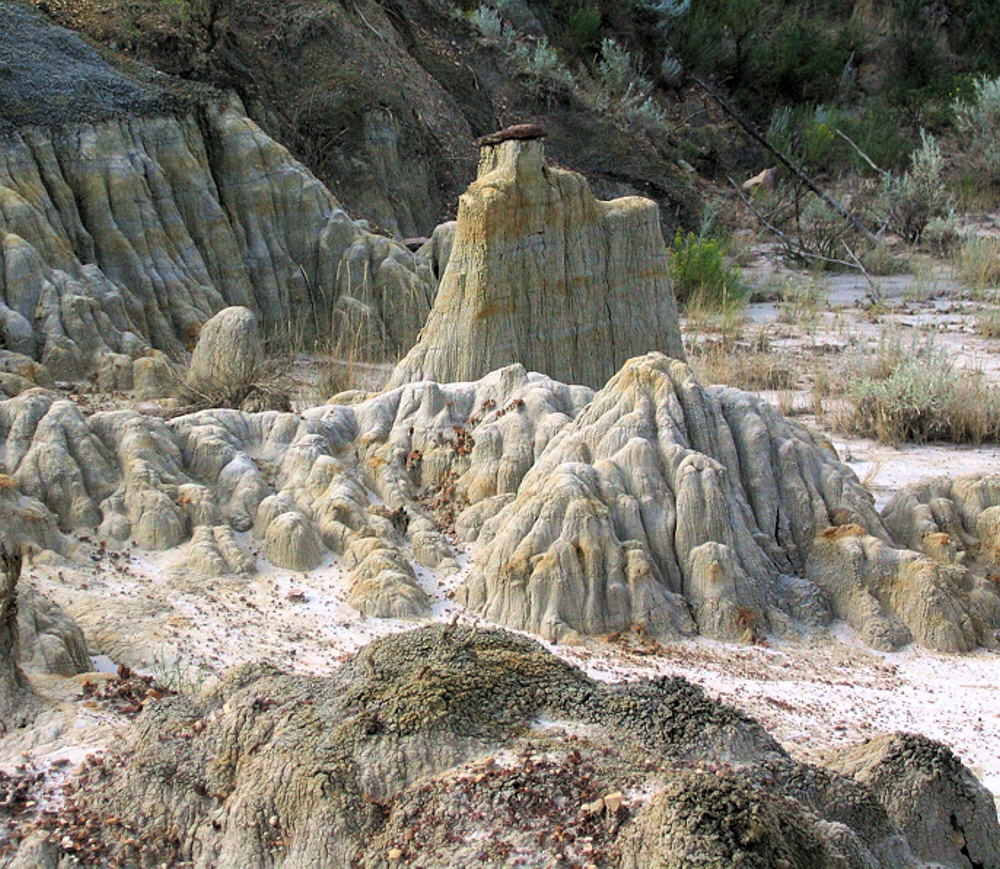
OK — this is a bit more exotic. No railing, no barricade tape, no armed guards. Want to touch? Perfectly fine.
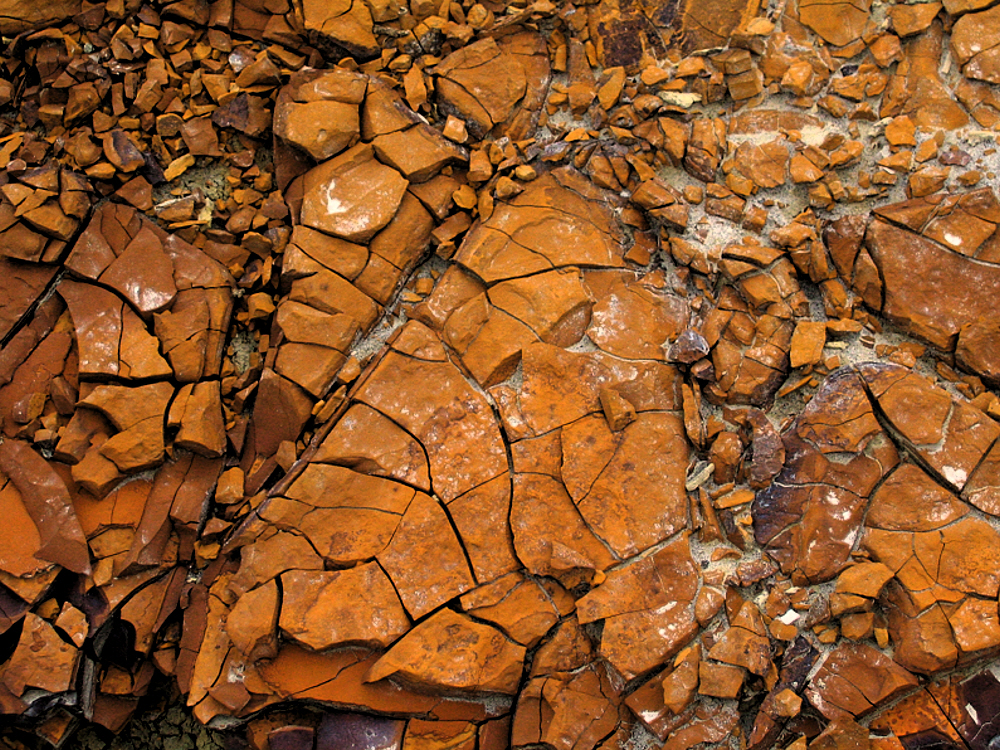
Suck this if you need iron.
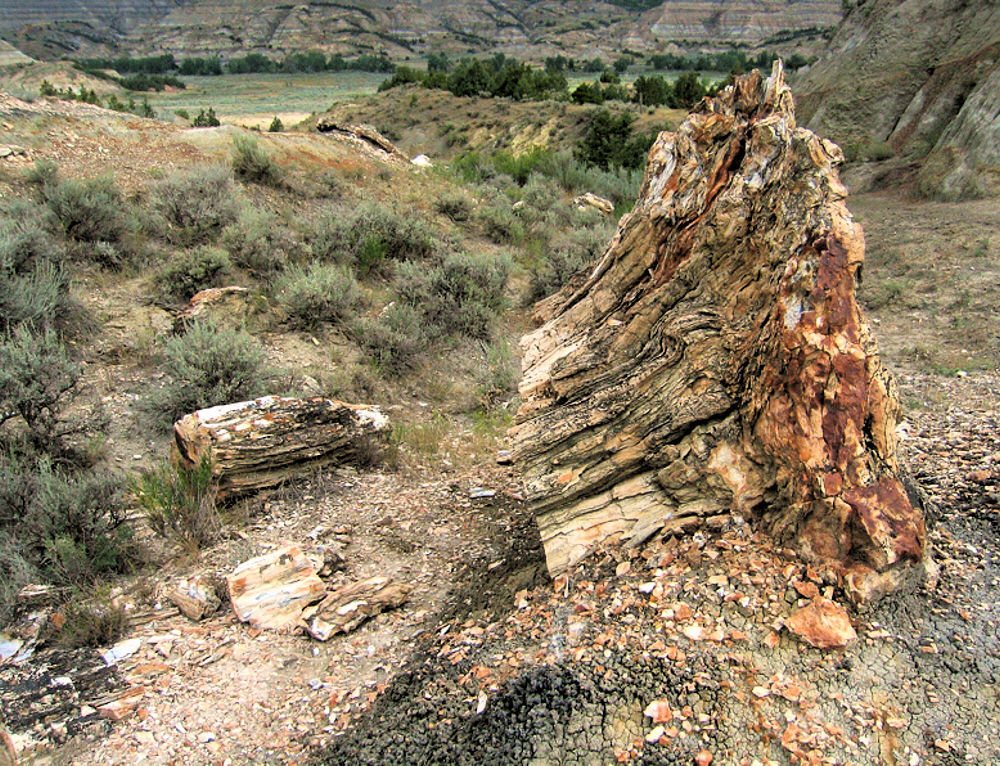
Former tree. From when North Dakota was a land of mighty forests.
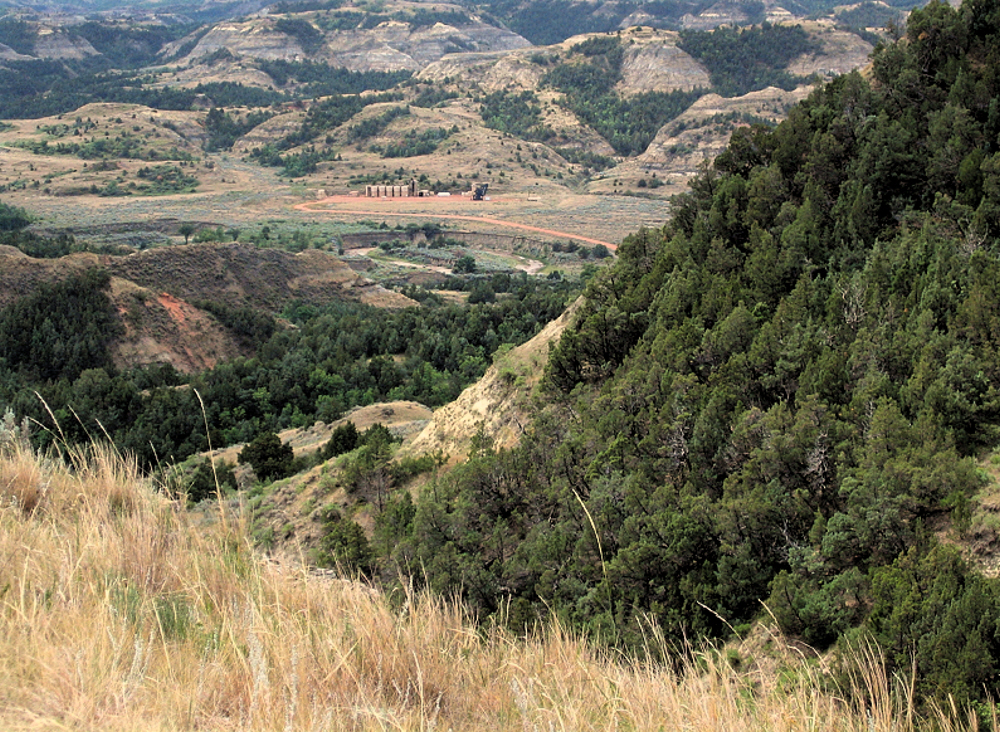
Oil storage.
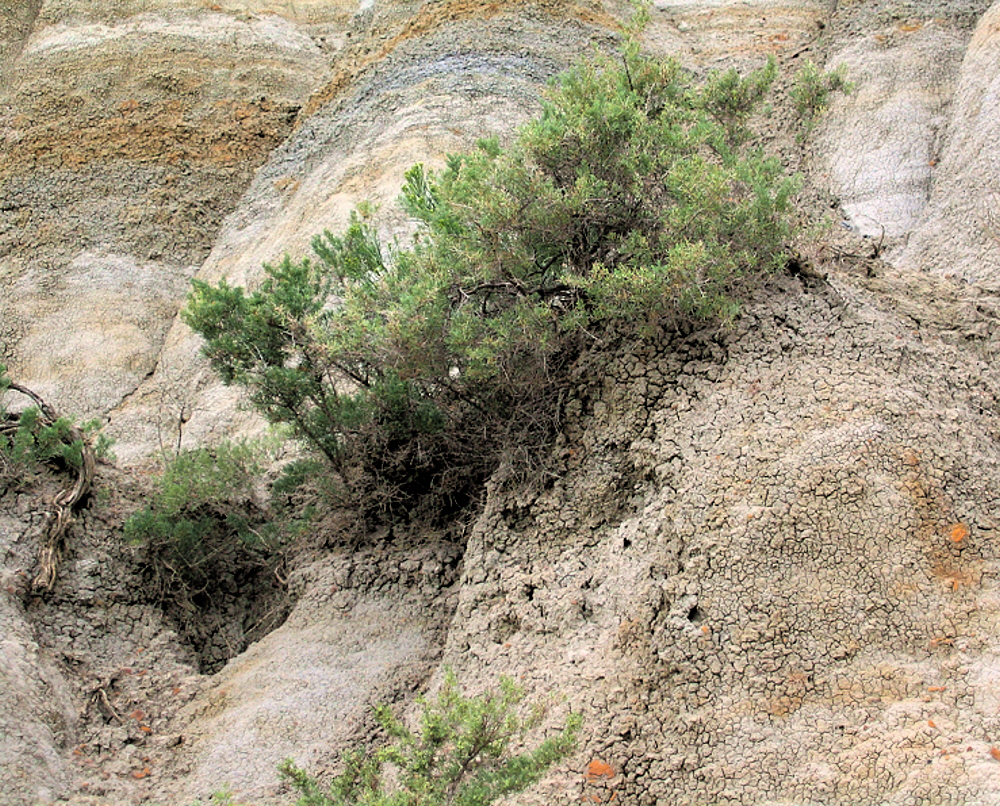
Bentonite? Excessively sticky and slippery when wet. With bush.
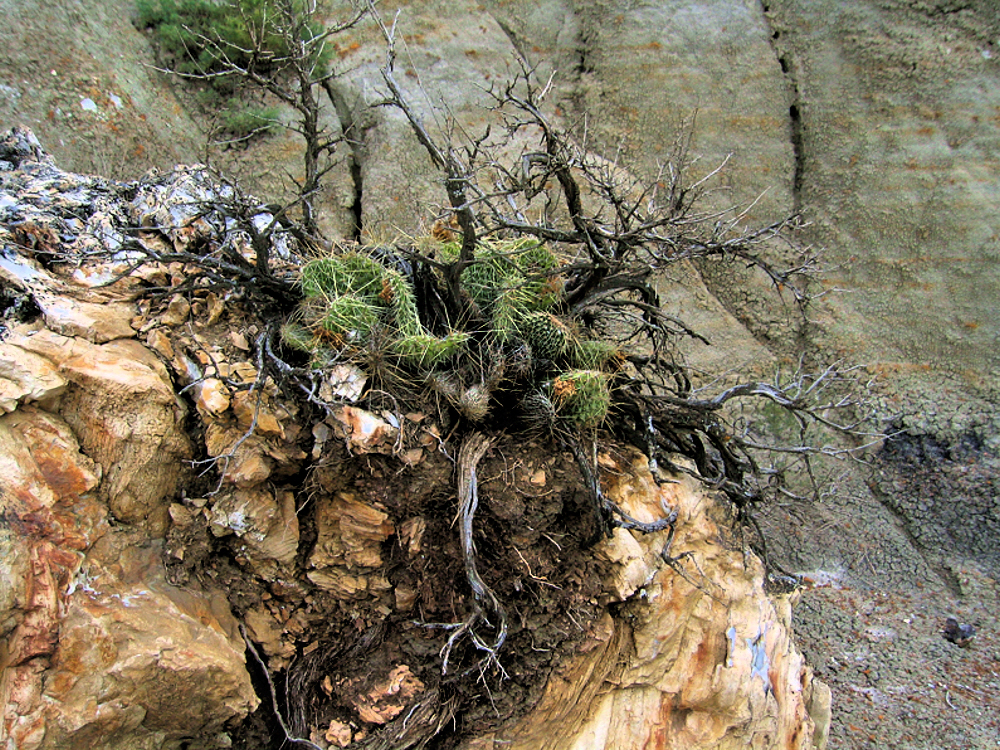
Cactapus and other prickly-pokies.
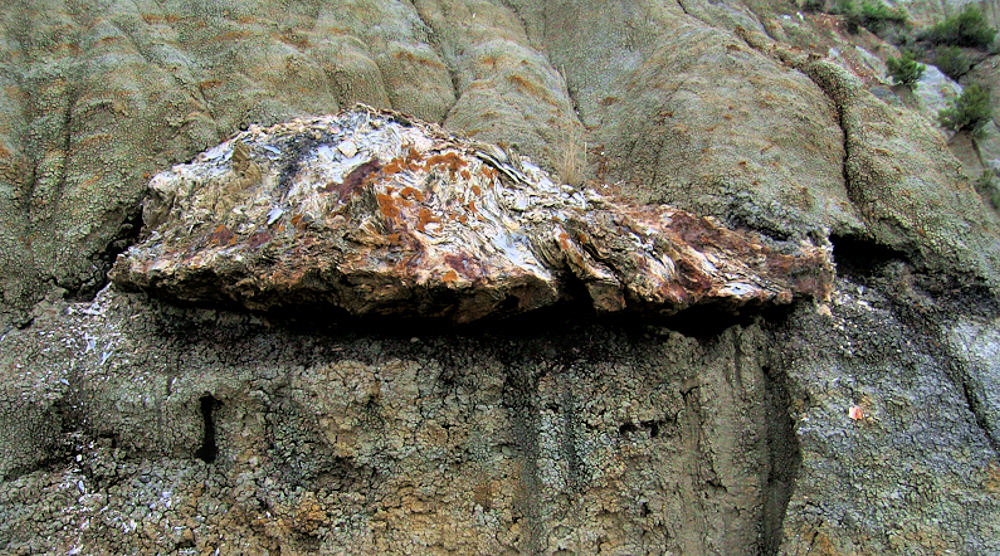
Who can say? Yet another UST (Unidentified Stationary Thing).
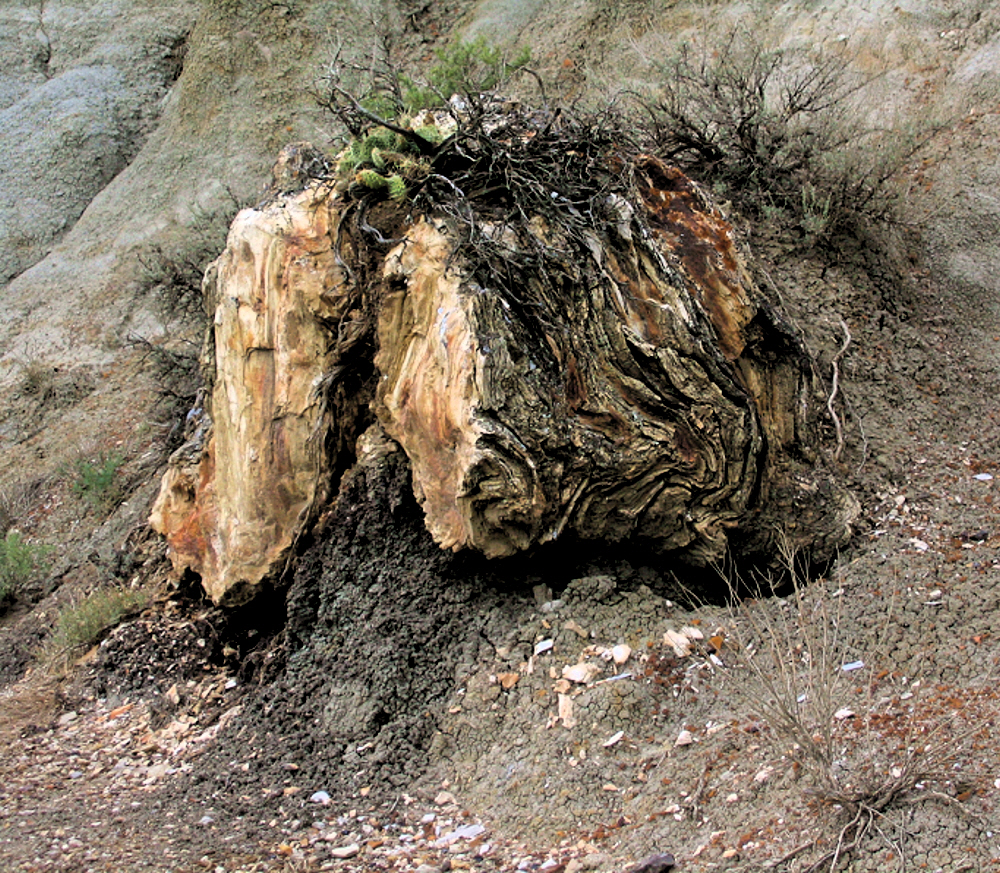
Ed. Let's call this one Ed and take it home for the cat.
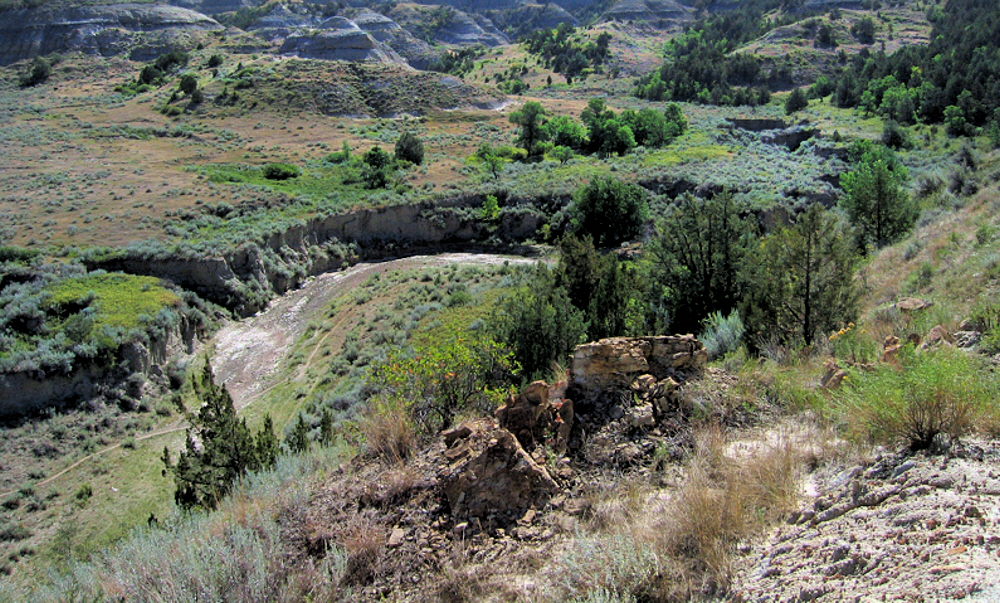
Descending to the trail. See it down there in the heat?
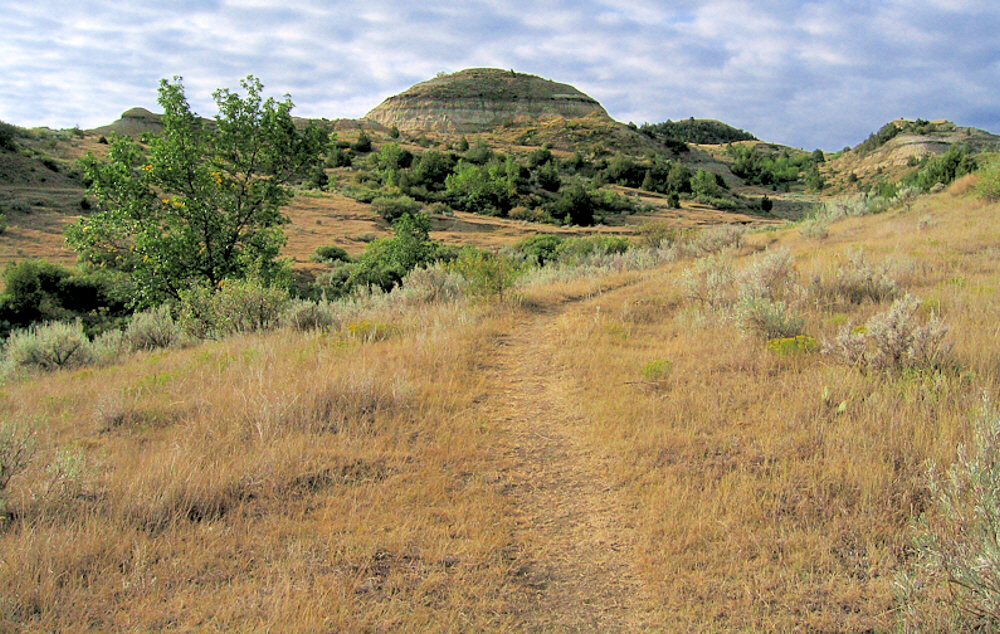
A pleasant climb near the northern end of this section.
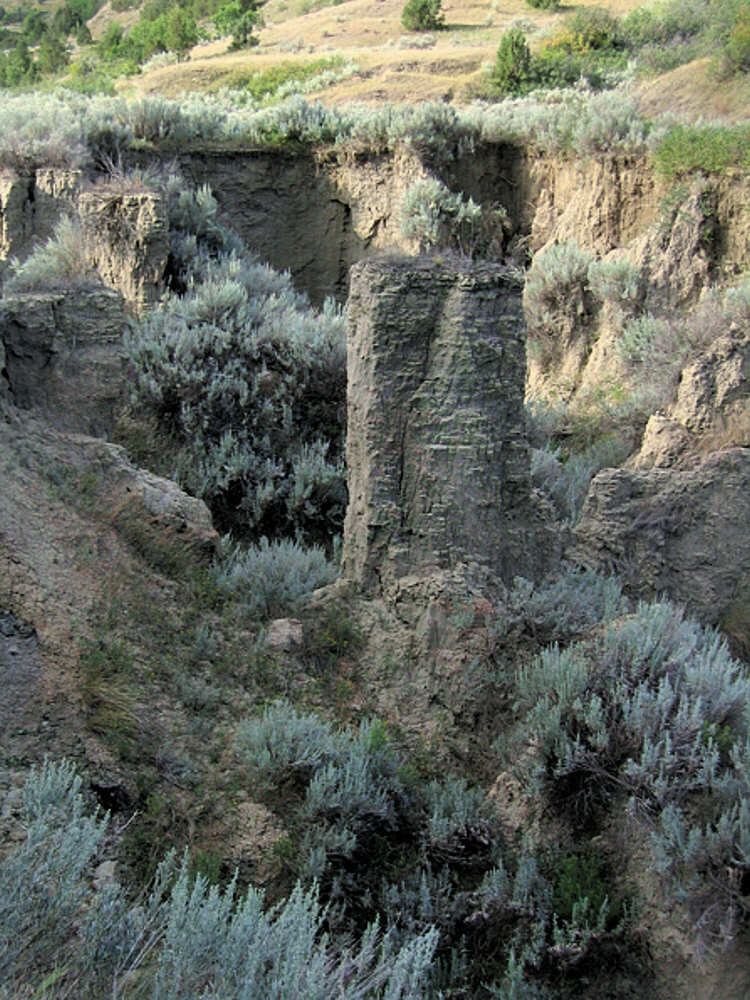
You could call this a plinth, if dried mud can be considered plinthy.
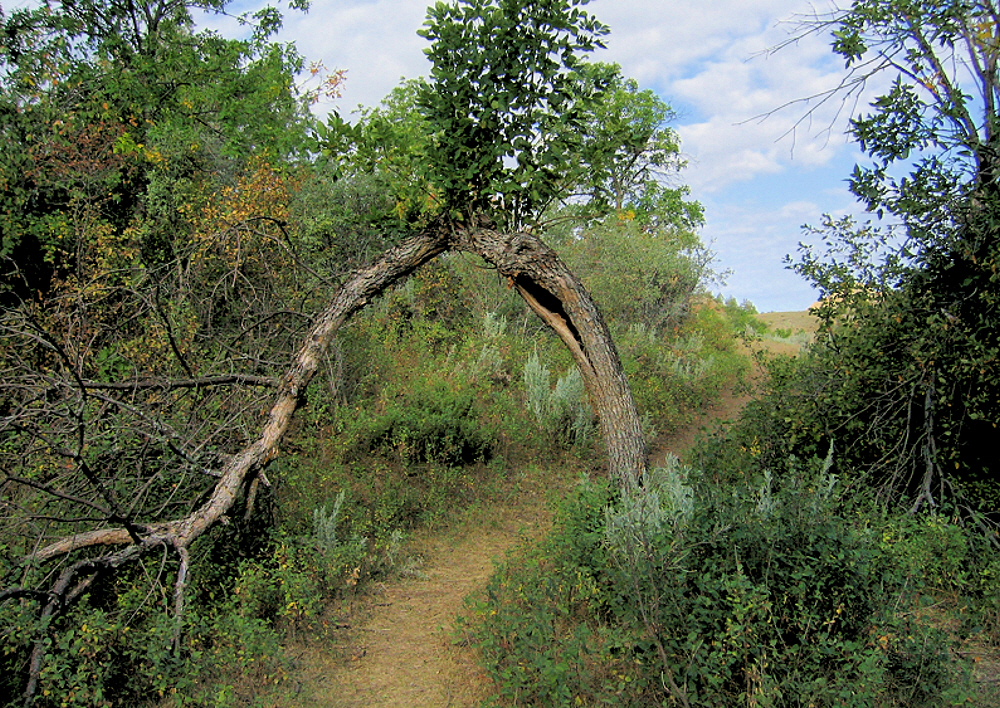
Along the spur trail connecting Bennett Campground to the main trail.
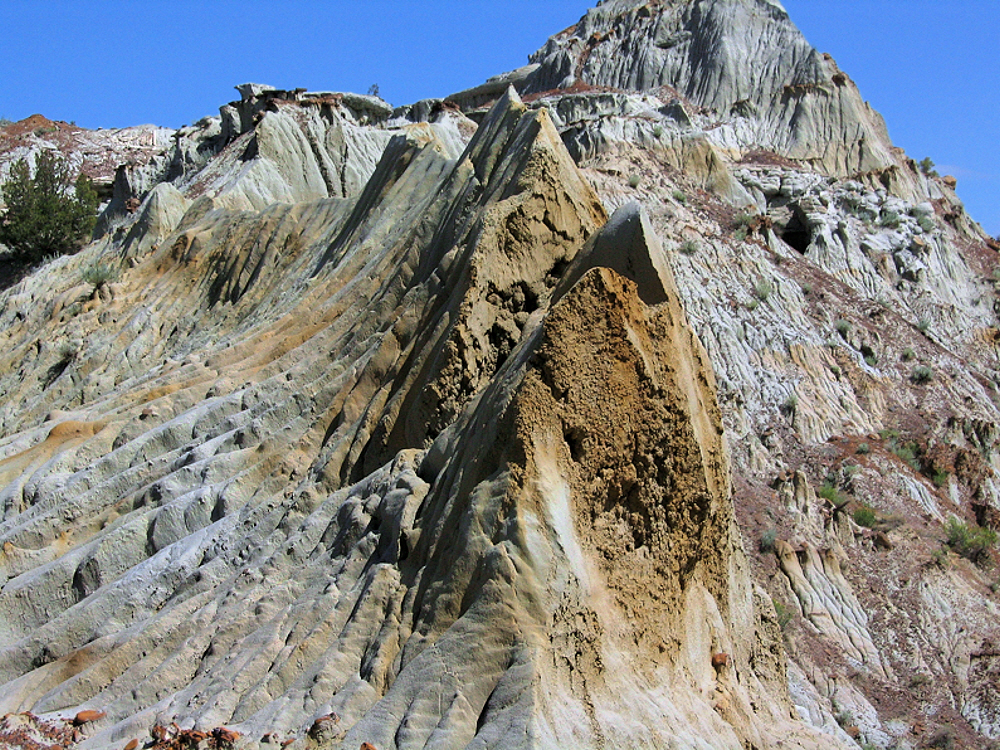
Seriously edgy upthrust.
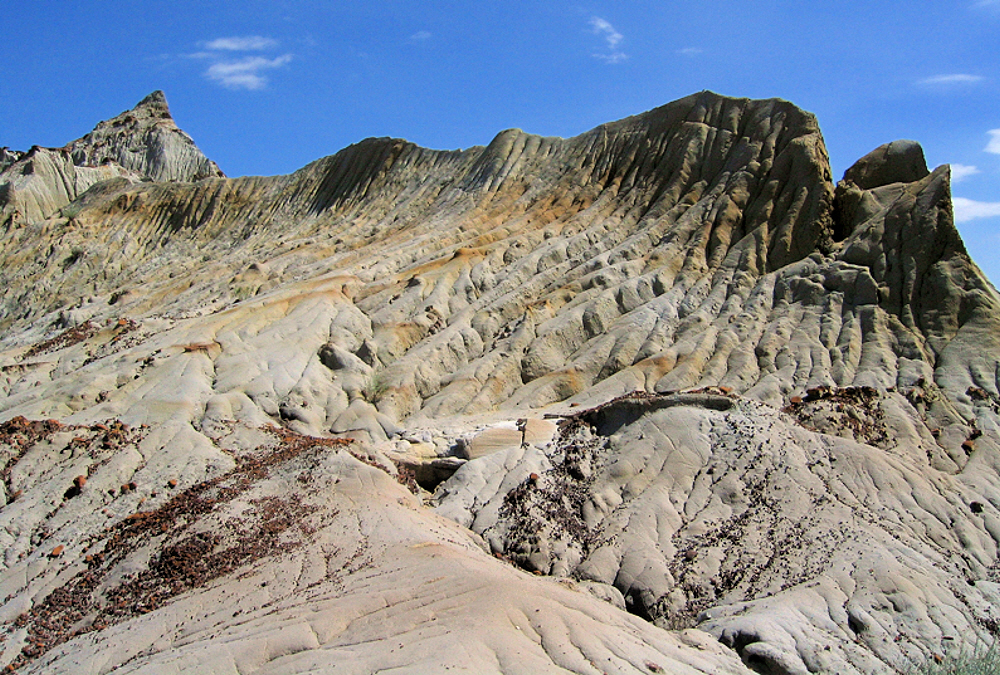
A grand trailside upsweep, about 50' (15m) high.
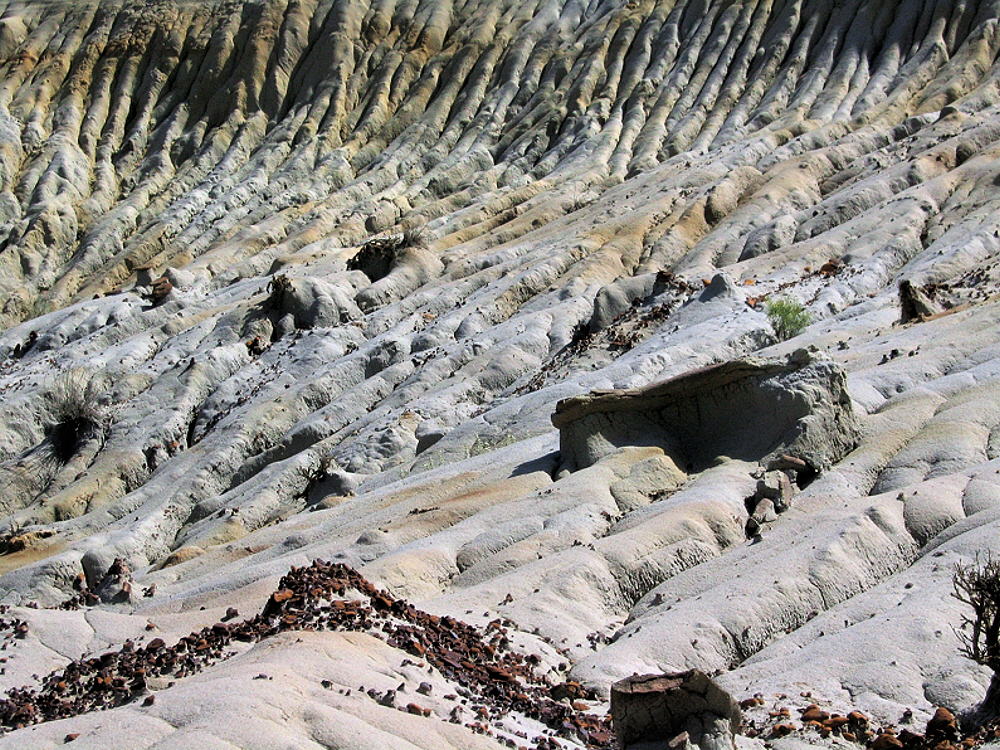
Detail.
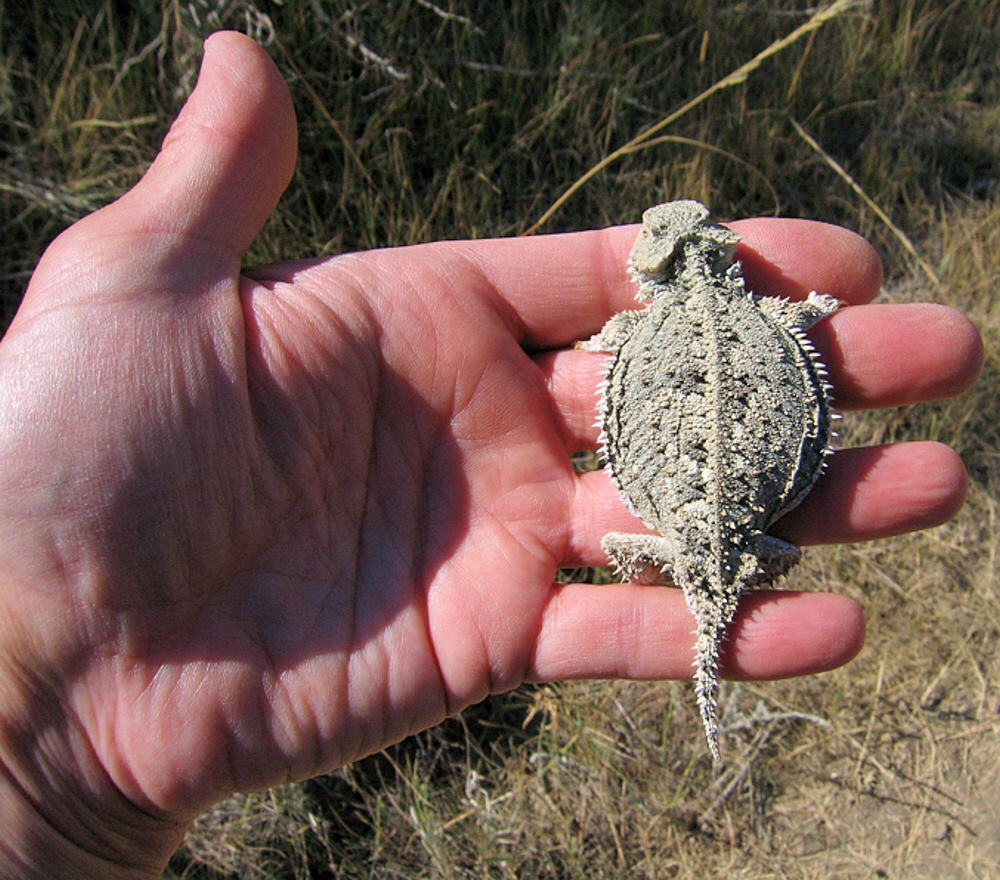
Horned toad.
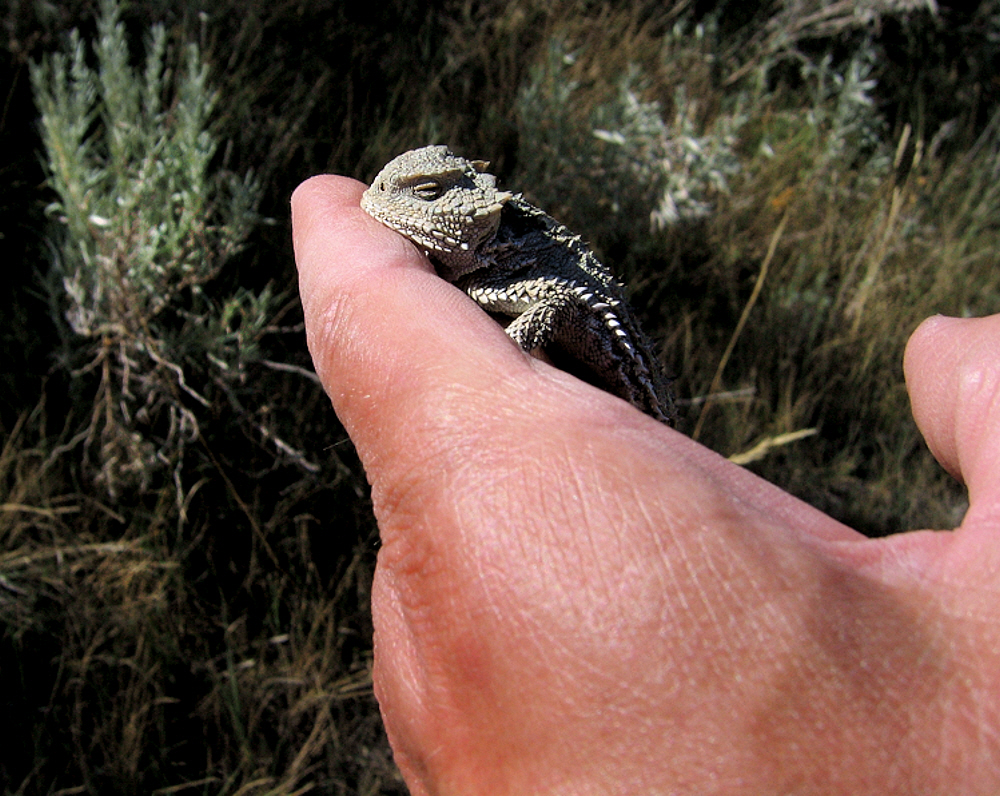
Once you catch them, which isn't hard, they sort of say "Meh," and give up.
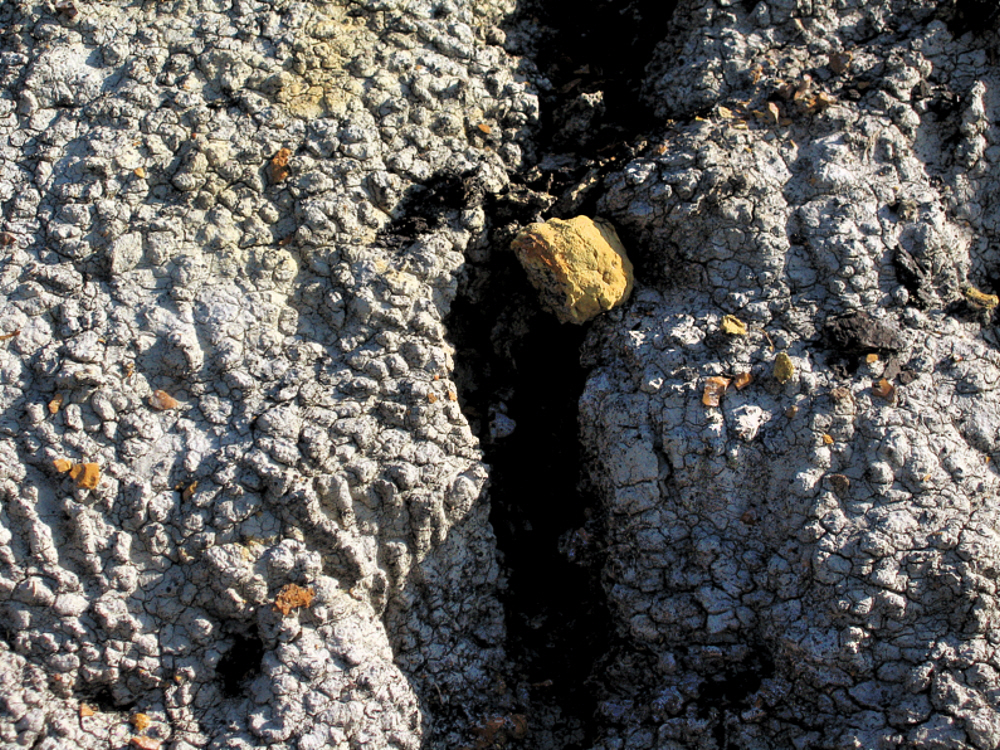
Color v. colorless.
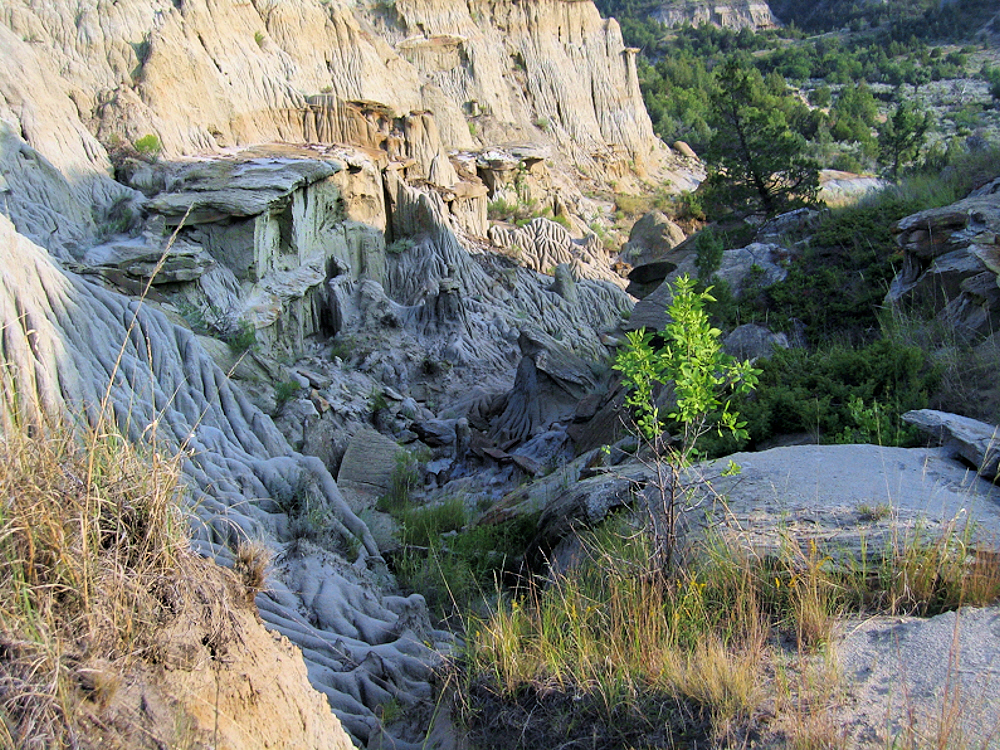
And likewise — what's going on down there? Bugs, snakes, ticks, poison ivy, and nothing.
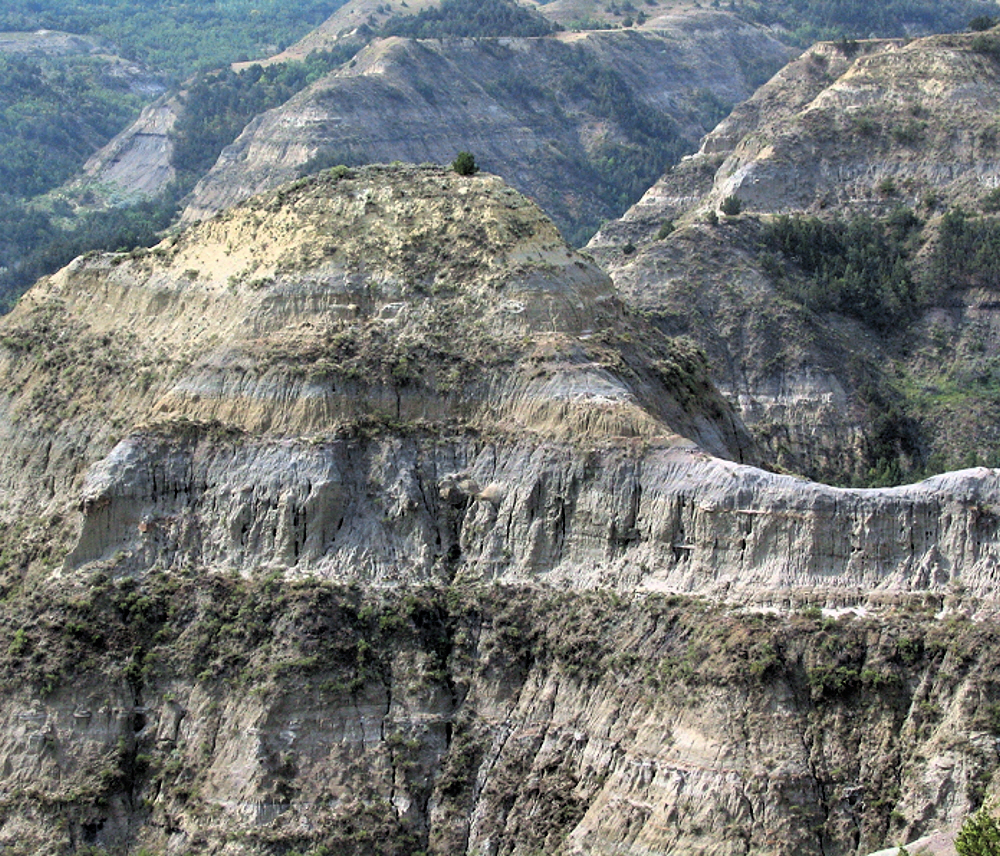
Tempting to edge out there and see whatever, then try to get back.
Medora.
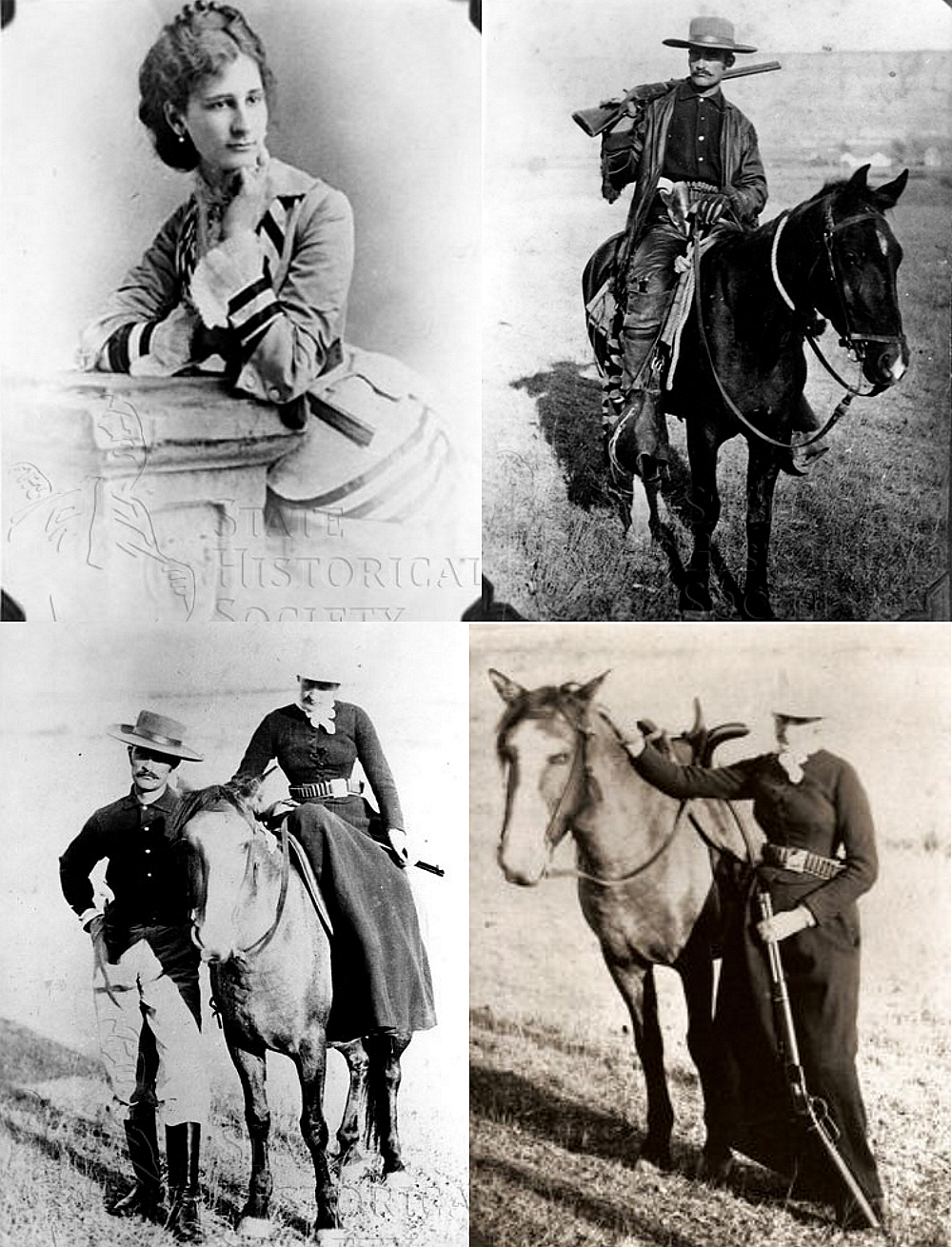
Medora and her pet marquis. Plus artillery.
You may wonder what a "Medora" is. That's the name of the main town on the trail, near the trail's southern terminus.
It was named after Medora von Hoffman, a young woman from New York City, who married a wild hair from France, specifically Antoine Amédée Marie Vincent Manca Amat de Vallombrosa, Marquis de Morès et de Montemaggiore. And he must have been a charmer, this guy, someone who could talk the legs off a table and leave it sighing for more. Because he did talk Medora's father, Louis von Hoffmann, a fat-cat banker, into supplying a wad to finance his scheme to subvert Big Meat by slaughtering cattle way out west and shipping the butchered remains in refrigerated rail cars to Eastern markets, instead of shipping live cattle.
Well, he got the business going, starting and operating both a slaughterhouse/packing plant and the Northern Pacific Refrigerator Car Company, for a while, but the opposition of Armour and Company, and the like, and the dislike of urbanites for grass-fed beef and some other misfortunes ultimately caused the business to fold.
Meanwhile Mr Fancypants Marquis tried to lord it over the area, got into various squabbles and ultimately ended up in a shooting match with one ne'er-do-well named Riley Luffsey, plugging said Riley somewhat past the point of extinction. Legal affairs dragged on almost forever but de Mores was finally acquitted of murder, and Luffsey had to remain dead.
Among all these events, de Mores and his wife entertained various high-class visitors to the wild west, and that included some hunting. I've fuzzed the exact details over the decades, but let's go with this version: At some point one hunting party consisting of de Mores, Medora, and some friends had to return empty-handed to the chateau, but Medora went out again later, and came back with a bear. A dead one. Which she had personally shot.
So not a wuss, this gal, flouncy skirts or no. Try managing a rifle while riding sidesaddle, guys.
Eventually de Mores returned to France, mucked around in politics, and then on a railroad scheme in French Indochina (what we now call Vietnam), and finally ended his career in a north African shootout surrounded by a bunch of Tuaregs who were either better shots than he was or had more ammo on hand.
I know some of this because of hands-on experience. I used to work for the State Historical Society of North Dakota (SHSND), in the history museum.
My job title was "Museum Assistant", but informally I was assistant museum curator. When I started there in 1972 the outfit had about 12 permanent employees in the museum building in Bismarck, and one or two or three at the biggest historical sites. One of those was the de Mores site, whose caretaker at the time was Egel Lakken, a pleasant barrel-chested gent who kept things tidy, clean, and trimmed to perfection.
Back at headquarters at the main museum, it was only Norman Paulson and me. We were the only full-time, permanent, "headquarters" museum staff.
I got to do a lot of boring stuff and some interesting stuff, like researching a whole mess of firearms. I've personally handled a couple of Henry rifles, each worth a zillion dollars by now, and ever so historical as precursors of the Winchester lever-action rifle which you've seen in every cowboy movie ever made. But my favorite oddity was the Jenks underhammer cap-and-ball rifle. Very rare and goofy. Too bad I can't find a link to an image of that one.
Eventually someone came up with funding to build a visitor center (i.e., branch museum) in Medora, near the Chateau de Mores, the two-storey wood-frame house that de Mores built. Well, it was up to Norman and me to do something.
As it shook out, I did most of the research and design for the project and wrote all the text to go with it. John Beck, a local crazily-talented jack of all trades did a lot of custom carpentry and restoration on various items, including virtually rebuilding the one remaining coach from the Medora/Deadwood stage line. He worked at the state museum for a couple of winters until he got tired of it, and during the summers he and two brothers ran their own history museum. He also restored old cars (self-taught), did oil paintings of historical subjects (self-taught), raised u-pick berries, and u-cut Christmas trees. And designed and single-handedly built his own solar-heated house. In the 1970s.
Norman dithered a lot. He had an enormous amount of historical knowledge, especially about the Custer Trail, but living on a pittance and being ignored for years on end finally beat him down. Shortly before I quit there was a statewide salary survey. Two people stood out, and made every newspaper in the state.
One was the librarian in the historical library. He got something like a 73% increase from one paycheck to the next. Norman came in second. His bump was 69%. He'd started working there about 1957 for $175 a month. When I was hired in 1972, my pay was $450 a month. By then Norman was making around $700 or $750 a month. He shot up to somewhere around $13,500. (My numbers are not correct, but you get the gist of it.)
The cheap-ass part was that both Lyle the librarian and Norman went from making almost nothing to the lowest step in their respective pay ranges. That was sometime in 1975. Nice raises but still a crap deal overall. I quit shortly after all that and ended up back in college after a while, but we did get the museum finished first.
No telling what it's like now. SHSND is a much bigger operation these days. They employ people with actual degrees in their fields. They've redone the visitor center at least once since my days, (see the video link, below, to get a glimpse or two) but we got the original up and running, and with not much more than cardboard, imagination, and a few bits of string. As frustrating and slow as SHSND was then, it was good on a lot of days and fun at times. I'm sure that I wouldn't be able to stand it for even five minutes now. Norman was pretty beat. Great guy but only half there most of the time. For me, the job became a case of clinical depression for pay, 40 hours each and every week. When I was there Norman was in his mid-40s but looked 80. Gone now. Managed to retire and then some, outliving the bullshit. I fairly well hated him, and the place, and everyone in it by the time I quit, but we renewed our friendship later. He died in his actual 80s.
And I have one last, late-surfacing memory: I met the Marquis' grandson. Summer of 1974 I think. Pleasant, humble, small man. He stopped by the museum workroom on the third floor of the Liberty Memorial Building on the state capitol grounds one afternoon. I don't have much to report though. He showed up, stayed a while, talked about this and that, and was gone again. I didn't think that 40 years later I'd feel proud to have been there that day.
Antoine (Tony) de Vallombrosa de Mores: "Louis' son Antoine or Tony was born in 1921. As a child, he visited Medora with his father and made several visits in the 1970's and early 1980's. He died in 1982 without having married or had any children so was the last of the direct family line." (Via the link below.)
Section 2: Bennett Campground to Magpie Campground.
They're getting all faint, the memories.
In 2004 I parked at the CCC Campground, stuffed enough money in the box to cover several days' worth of parking, and went to sleep in the back of the car. I was planning to cover a whole lot of ground that year. Just how much I won't say, or I'd embarrass myself to no end. I didn't get all that far, so why bother going over failed plans?
The next day, when I was set to go, I couldn't lift my pack. Oh so true. Full of water. Plus food. Plus camera equipment. Camera body, lenses, film, a tripod, and a pocket digital camera, which was the big star of the trip, really. My planning capabilities were not.
But there was a picnic table, so I put the pack on it and backed into it. I could stand up, and cinch myself in, but it still wasn't fun. Then again, who said that backpacking was fun?
I think I made it about halfway from CCC Campground to Bennett Campground the first day, and to the Bennett spur trail the second day. I probably carried the pack all the way to Bennett, but just bathed and tanked up on water there, and hiked back to the main trail for the night, then continued south on the third day. This was a long time ago and hard to recall in any detail.
Water isn't easy to manage along this trail, and I was planning on carrying what I needed between campground wells, which doesn't really work short of doing one-day sprint-hikes between those campgrounds. Stock tanks don't cut it. There were a couple between Bennett and Magpie Campgrounds, the old-style galvanized tanks about five feet (1.5 m) across, but they were nasty. Gunky-murky. Lots growing in them. Lots not. Dead things. Decay.
The first tank I came to had a float in it like you see in a toilet tank. To turn on the water, you could just push down on the float with a trekking pole, but the water inlet was at the bottom of the tank, at least a couple feet down — no way to get to the clean water.
Well, the water in the tank was good enough to rinse off in.
The next tank featured a floating dead sparrow. I didn't wash there. There were a couple tanks, but dry.
In 2005 I came across several other tanks, but they were sealed. Water was available from them only in a small triangular bowl just barely big enough for a cow's snout. This design must have reduced evaporation by 95%, while keeping out lots of bugs and birds but I still couldn't quite manage to take any water.
Well, anyhow, back in 2004 I managed to make it south two sections from where I started, and then turned back and hiked out again. It was a lot less than I had planned, but it was enough. I had too much stuff and not enough preparation, and the weather was hot.
I did notice that there were lots of trees though, and decided I'd bring my hammock if I came back, which I did in 2005, though that trip ended up short too. Maybe next year, in the fall. I'd really like to do the whole trail, preferably out and back, a yo-yo, covering the ground twice.
I see that the Maah Daah Hey Trail Association lists eight "water boxes" for caches, but there's no information on them. I would be really skittish about leaving unprotected water caches where absolutely anyone could mess with them. It's possible (Anything is possible, isn't it?) that these cache sites have lockable cages, but that would be a lot to expect.
The Association also says that "the campgrounds are 18 or more miles apart", which sounds about right, and that's a long way to go between sources in full sunlight and summer heat while carrying a full pack, in one day. Not terrible if you're prepared to do it, but still not pleasant at certain times of the year, and it requires a person to keep grinding out long days no matter what. Caching is better.
In 2005 I dropped several informal caches consisting of two 2L used soda bottles at each location. I put a label on each bottle with my name, expected arrival date, and a request for anyone finding the cache to leave the water unmolested. I did use water from two of those caches without actually being desperate for it, but it was really nice to have clean, clear water right where it should have been.
As for how, I just drove to a likely spot where the trail crossed it and laid my water bottles behind a bush what looked to be a safe distance from the trail. I also placed a couple of food caches in clean, new one-gallon metal cans that I had bought at Home Depot, labeled similarly. That should work. But then there are the other cache sites for bicyclists. I'll have to look at them too.
So now, let's see what the following batch of photos looks like, and what memories they bring back.

Wide open, no constraints, no people, no limits except for the trail. It goes left.
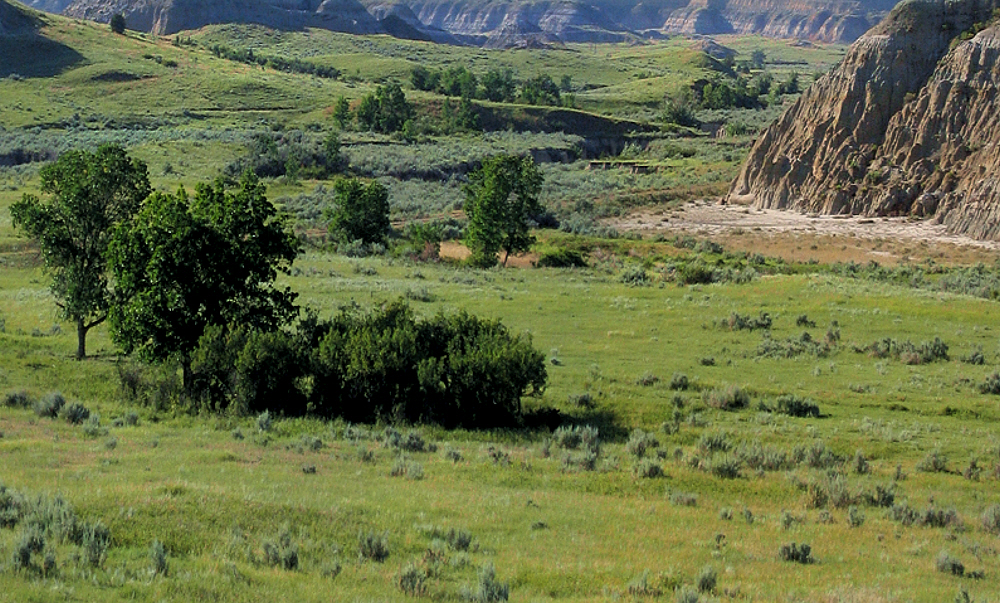
A closer look. Still no people.
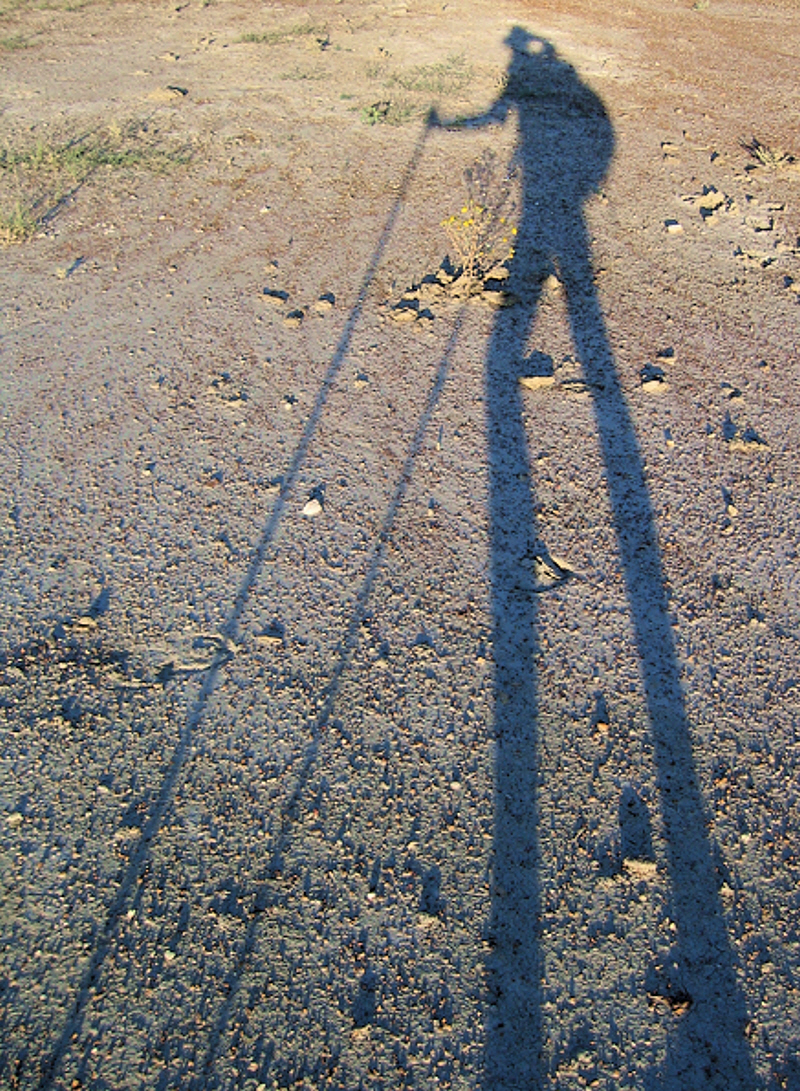
Hike and get slim. But with those legs he's hard to keep up with.
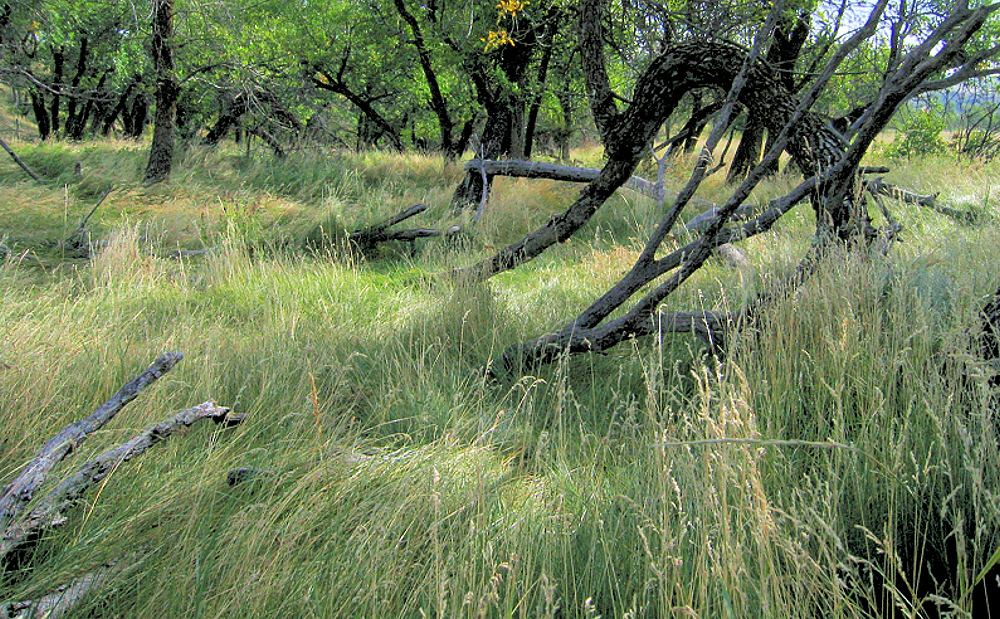
Lunch spot.
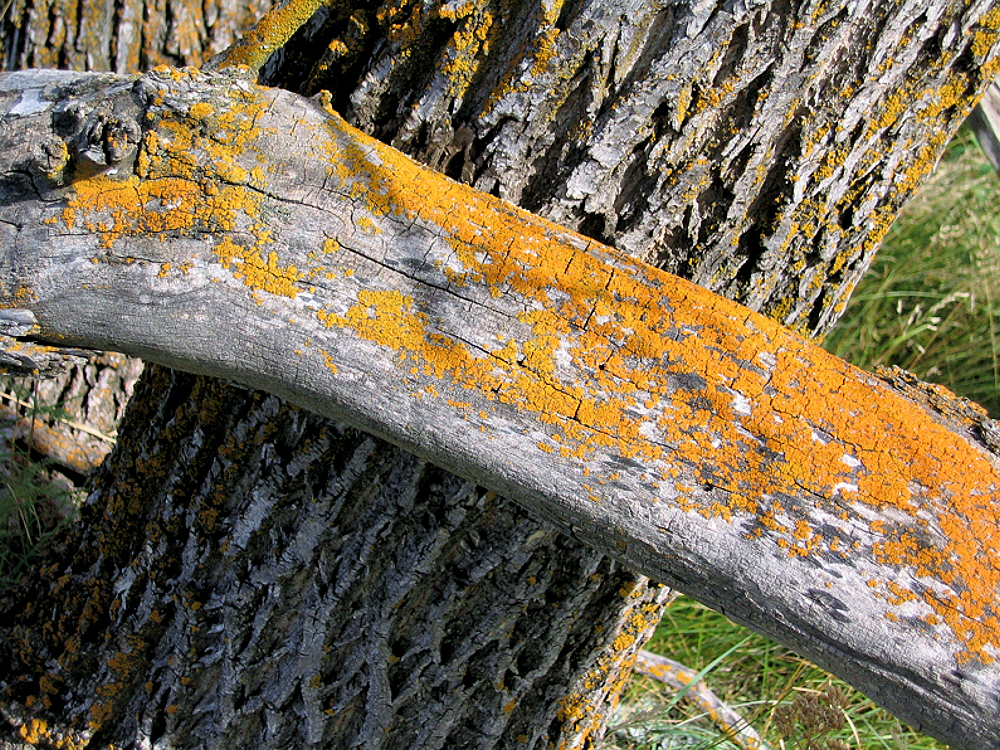
Friendly trees. Even lichen likes 'em.
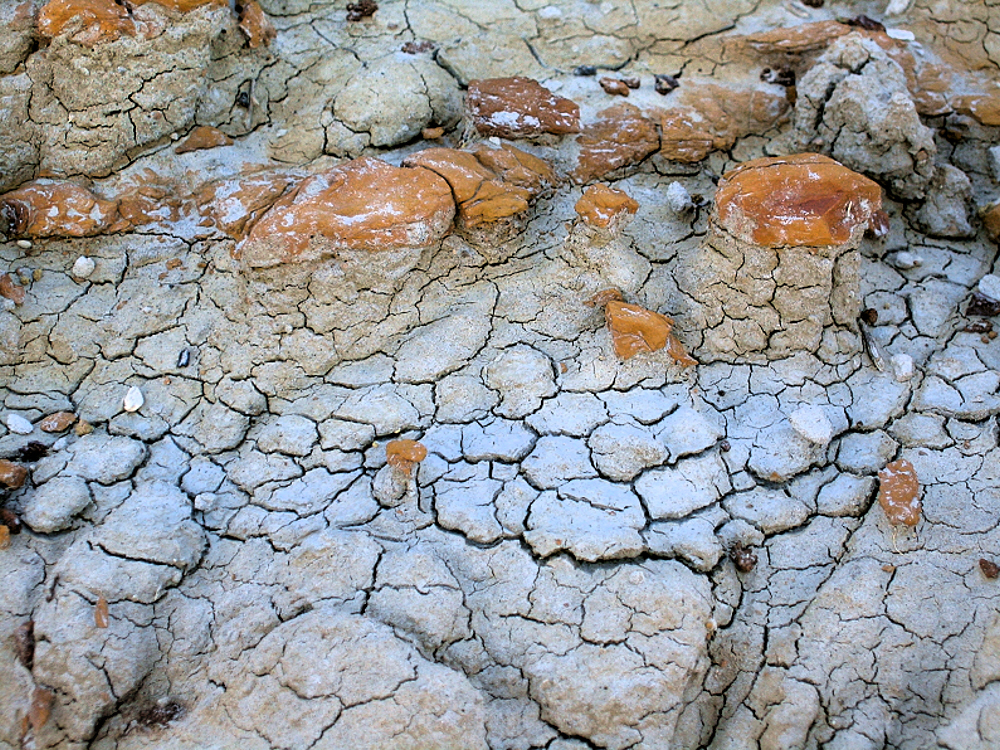
A tiny stone garden, or more dry mud with colorful bits.
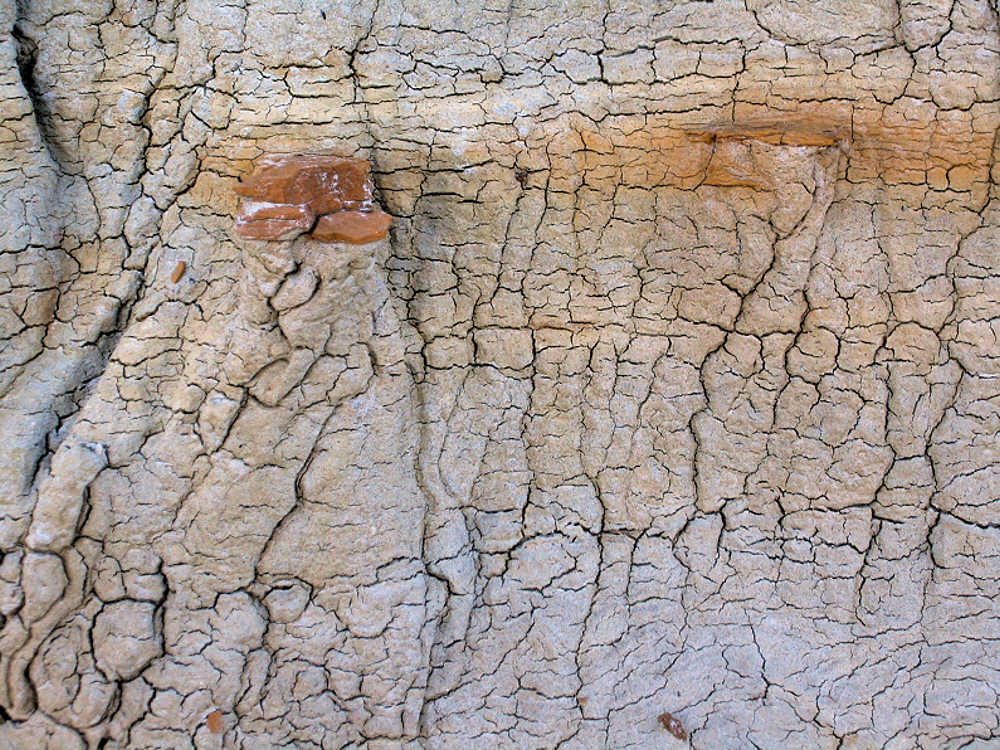
A vertical wrinkly tired old face.
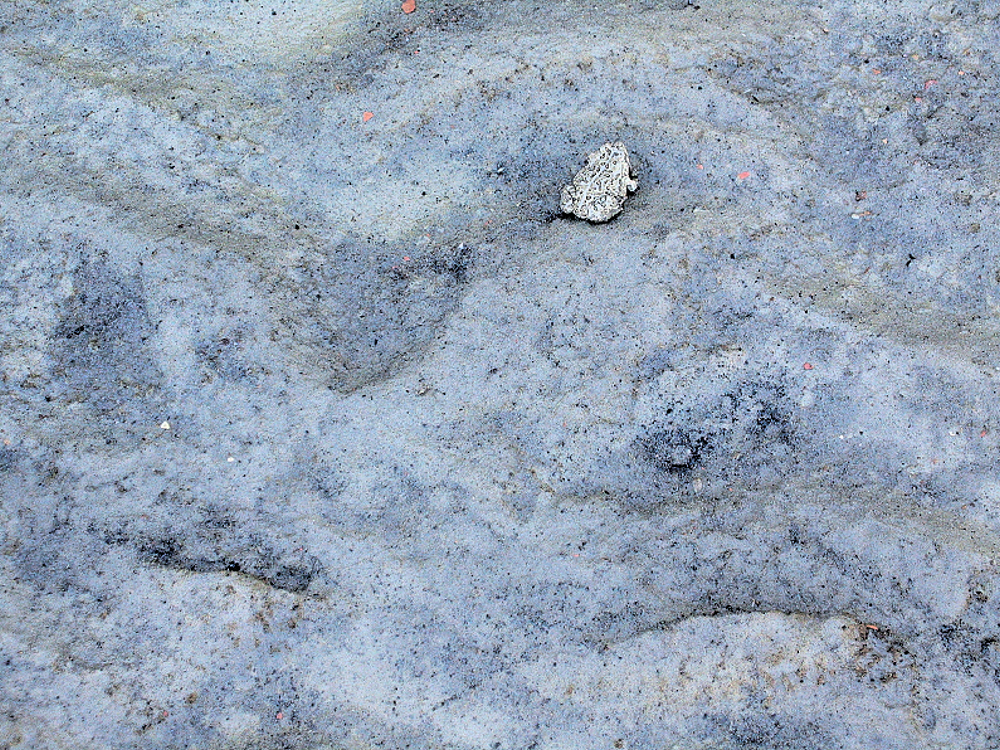
Afternoon toad in the shade.
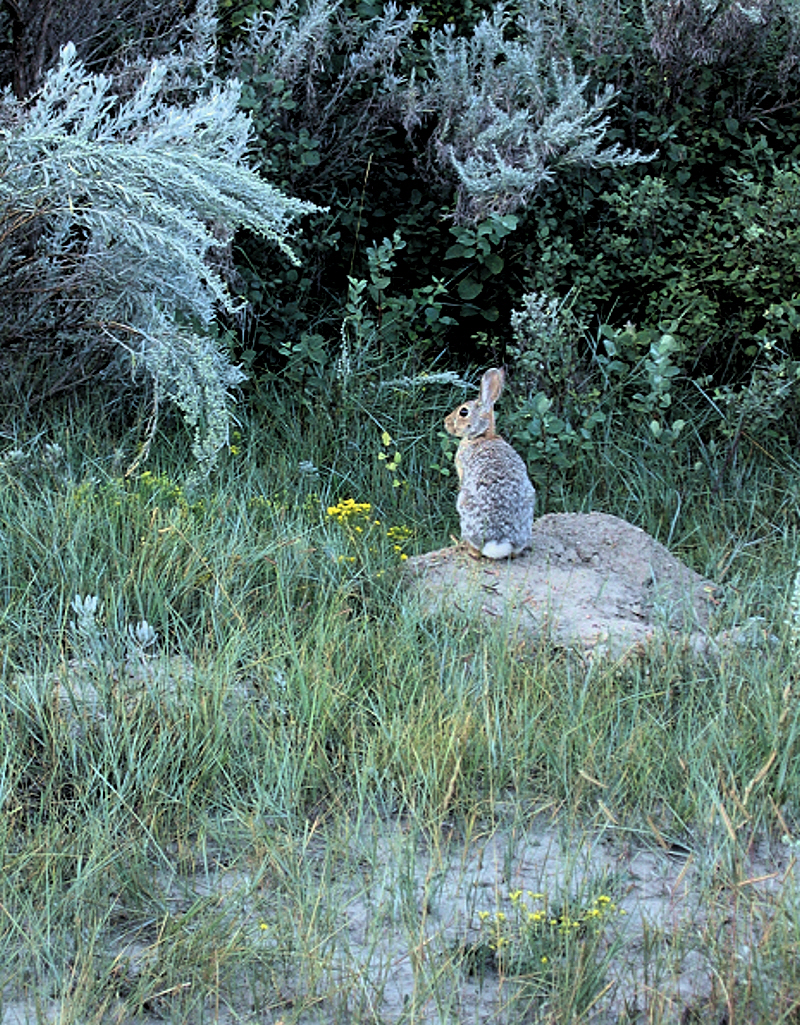
A bunny pitches a hairy eye my way.
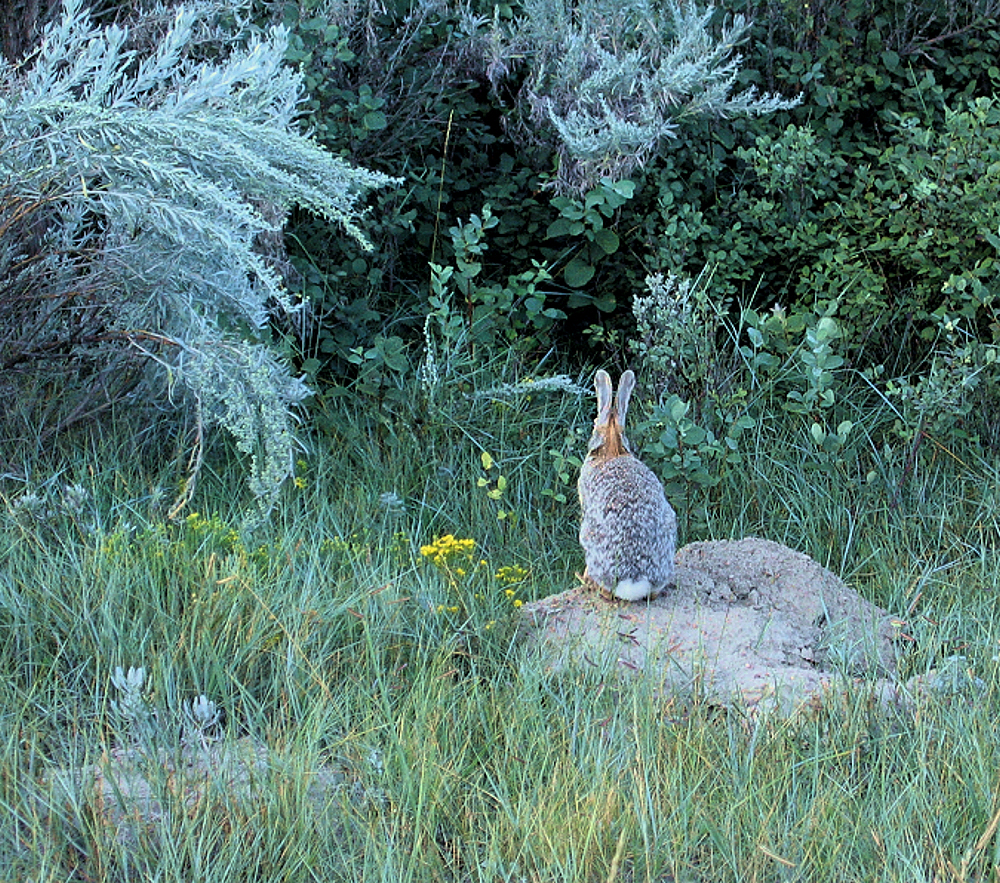
Meh. Just another loser, but I'll keep an ear on him just in case.
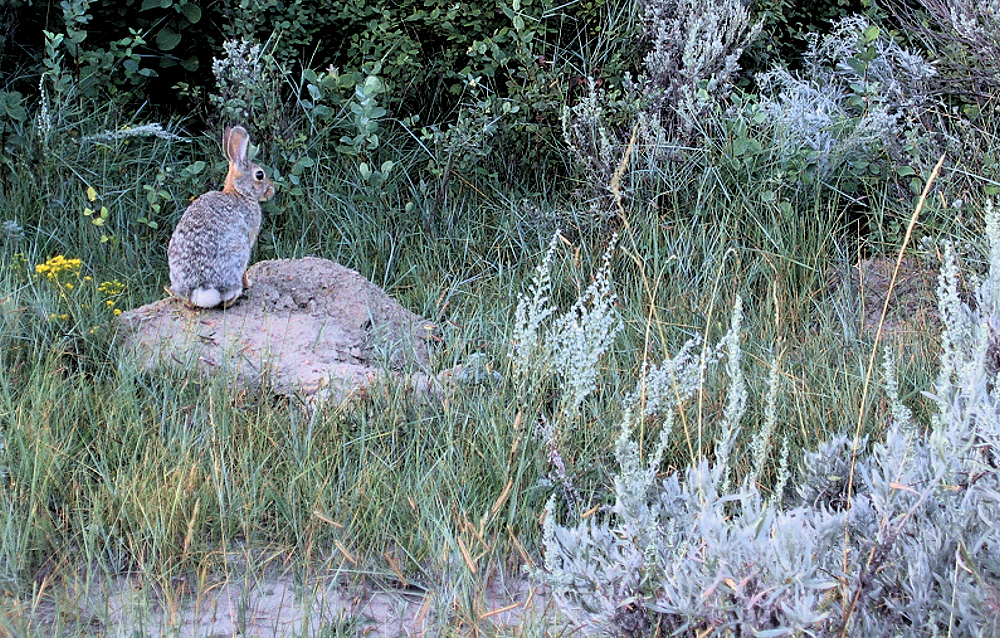
Yeah, just as ugly through this eye too. Probably time to leave.

OK, back up high. Looks more like a golf course.
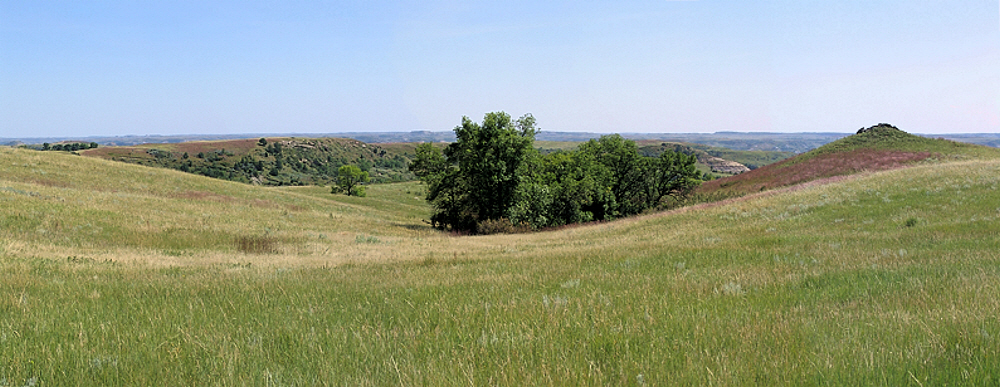
Soft green grass. This whole state is close to the ground but surprising lush.
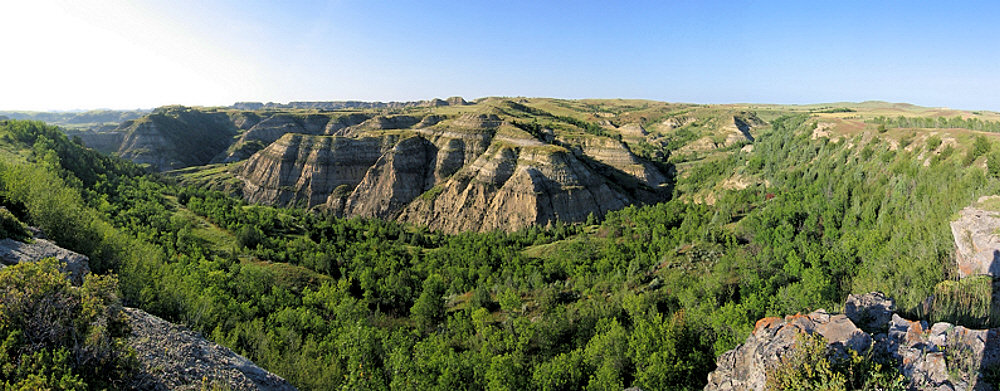
A quick peek over the edge reveals...Oooh. Lookie there once.
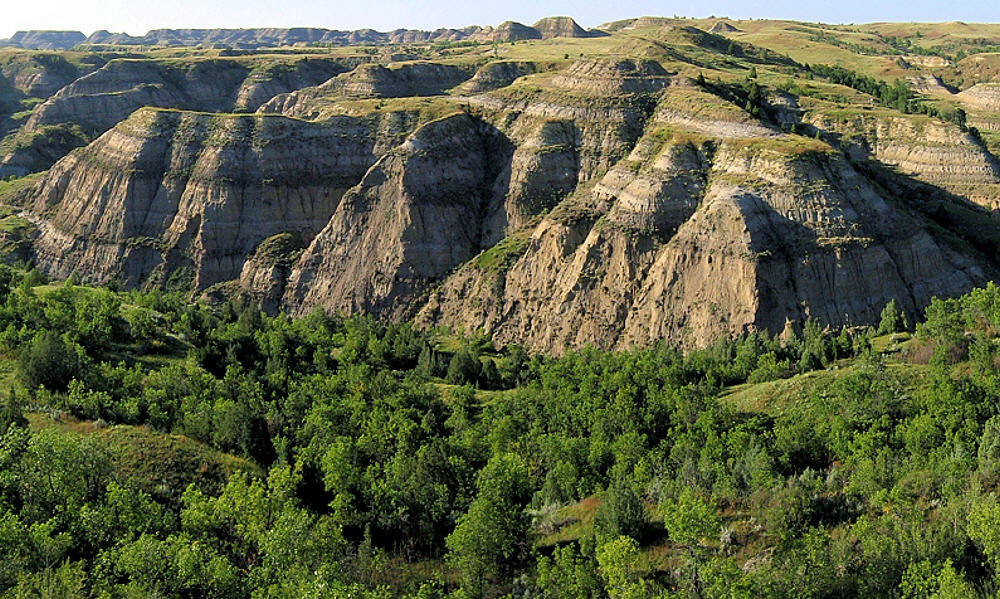
The closer you look the more interesting it gets.
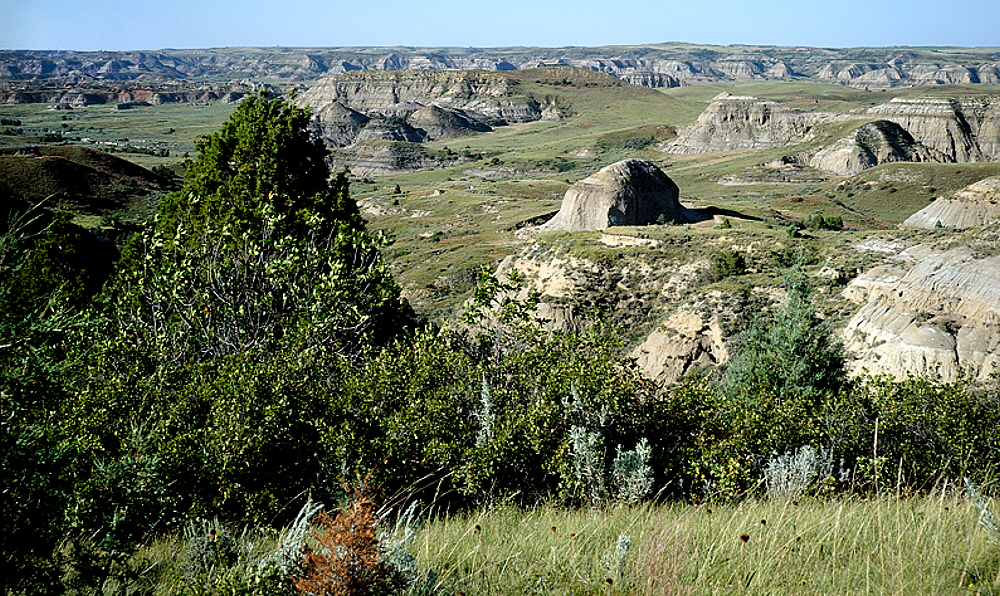
Then sometimes it all opens up.
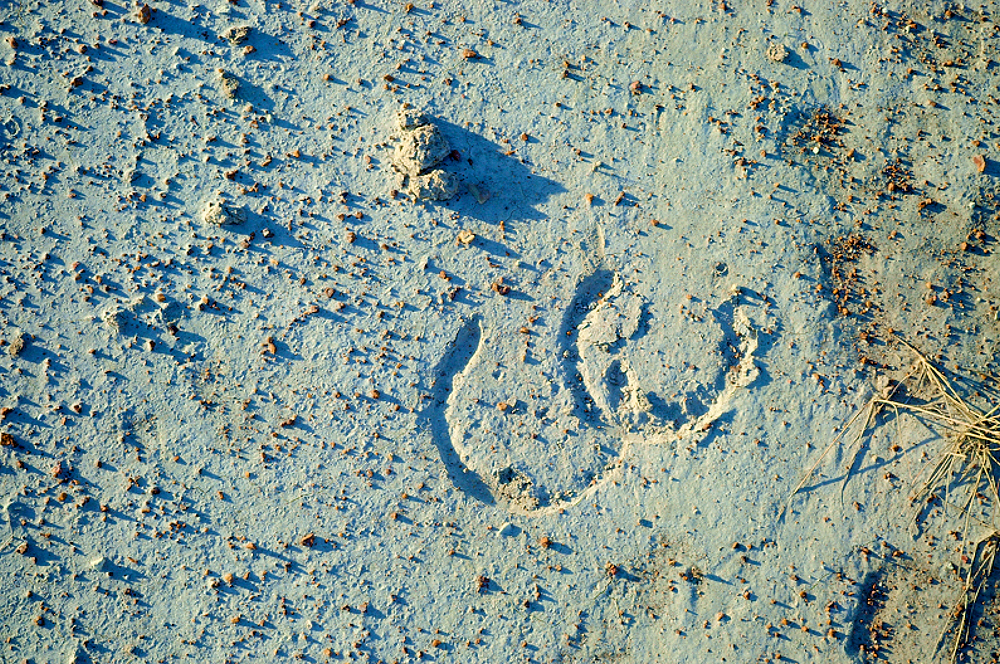
Late afternoon evidence. Quietly decaying history.
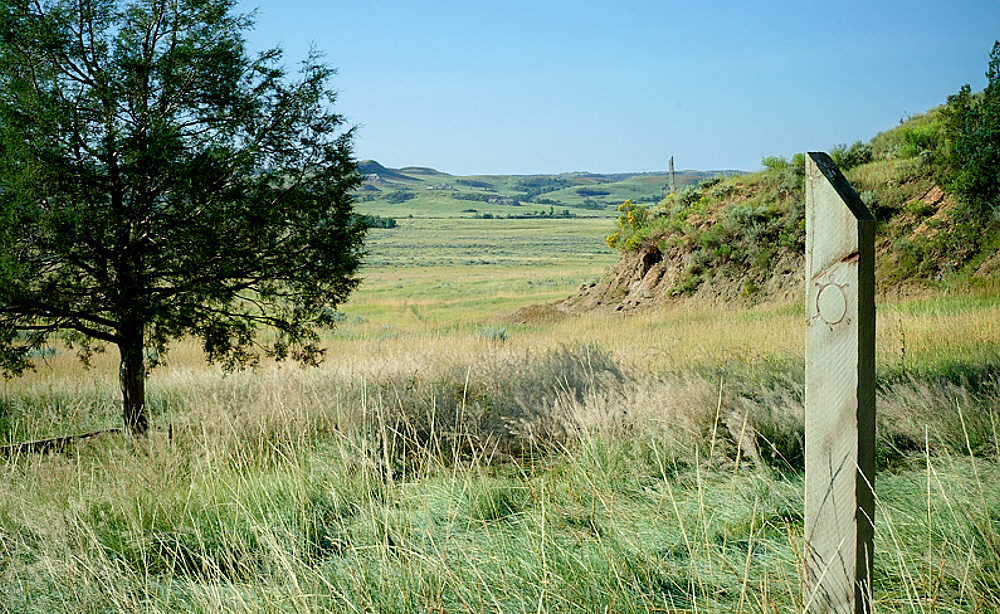
Onward, with markers, just in case.
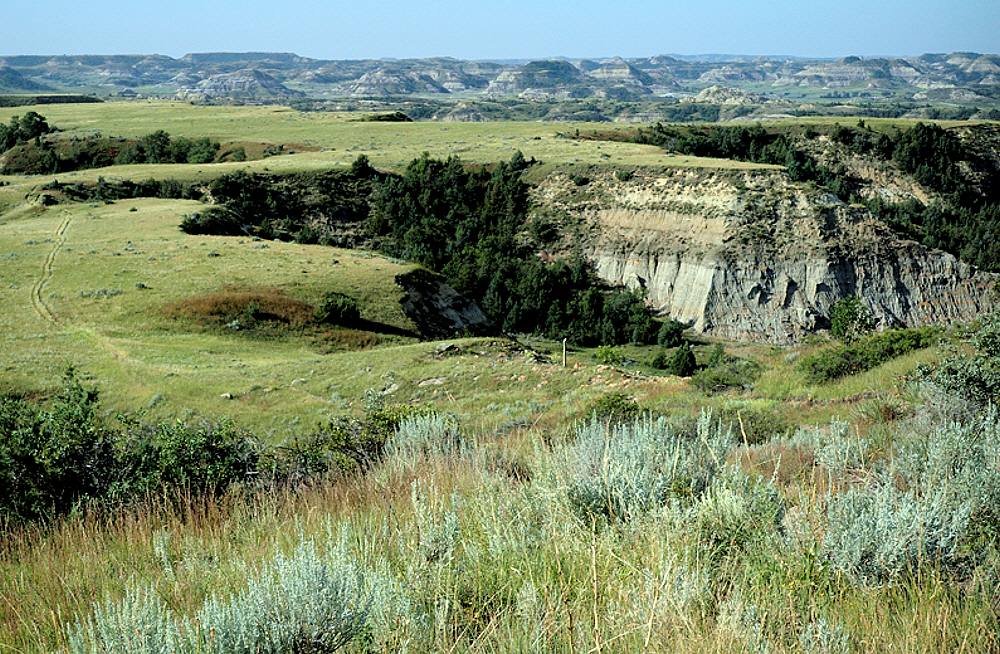
Wending. Trending left. Just follow the posts.
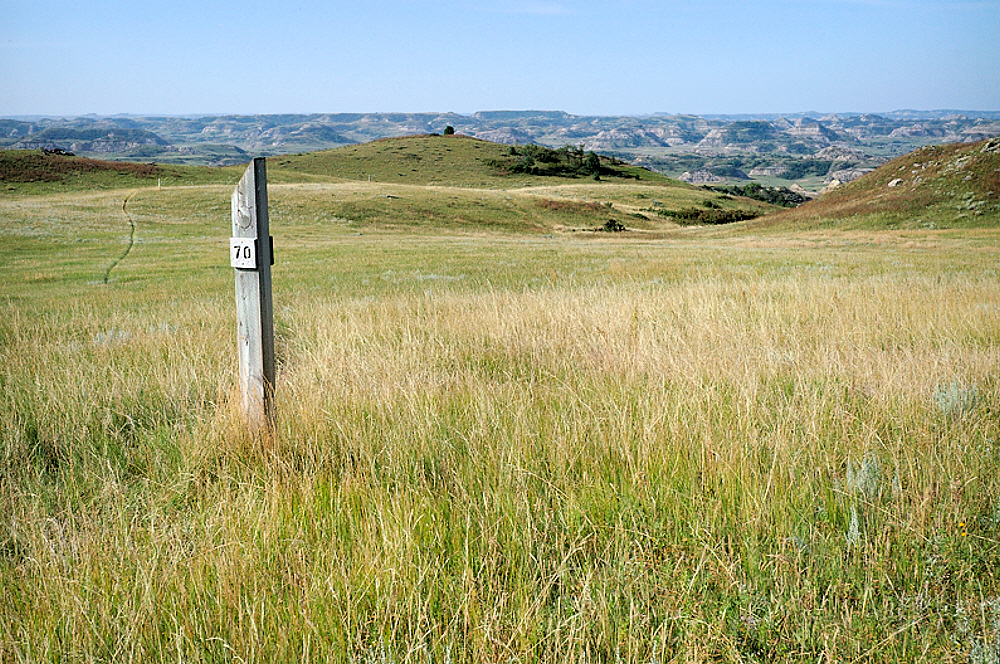
Getting high. Drifting with the sunshine.
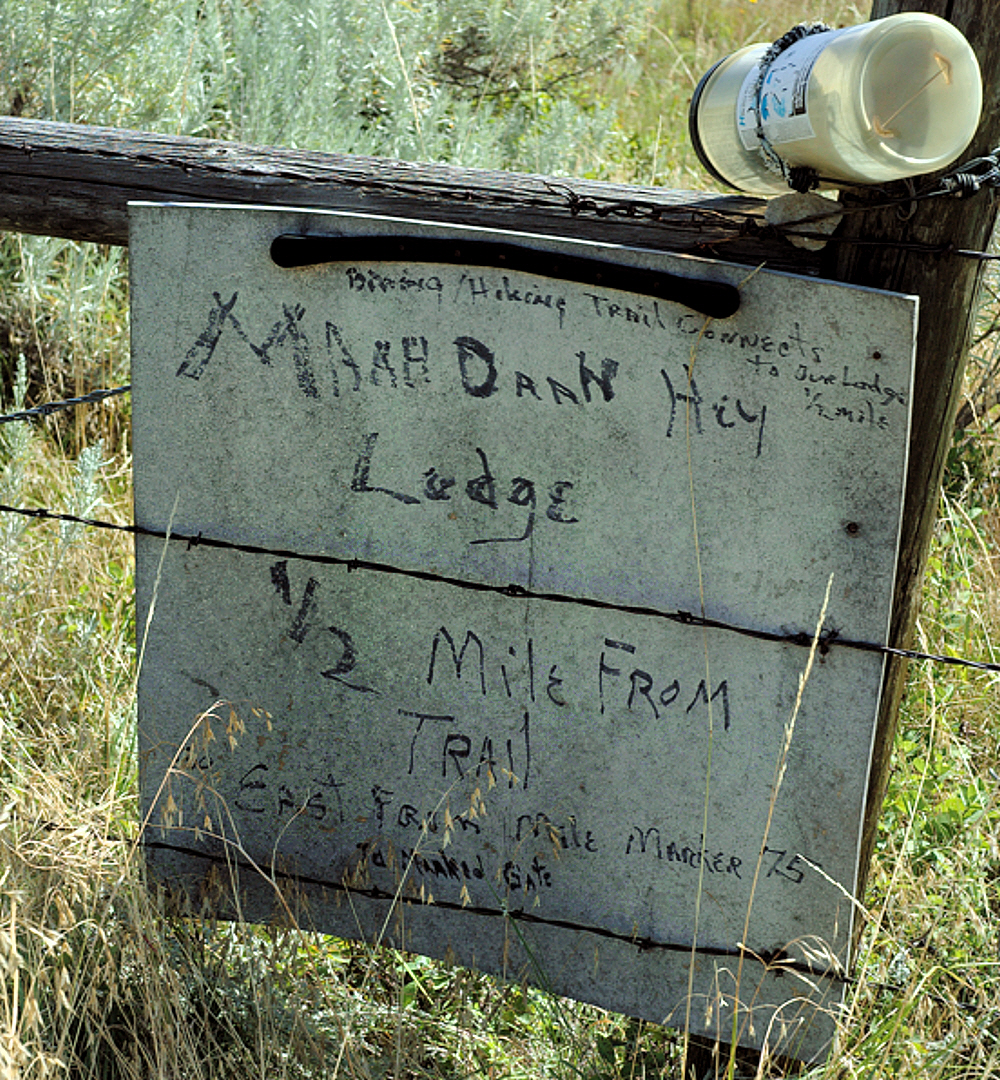
A resort, Dakota style.
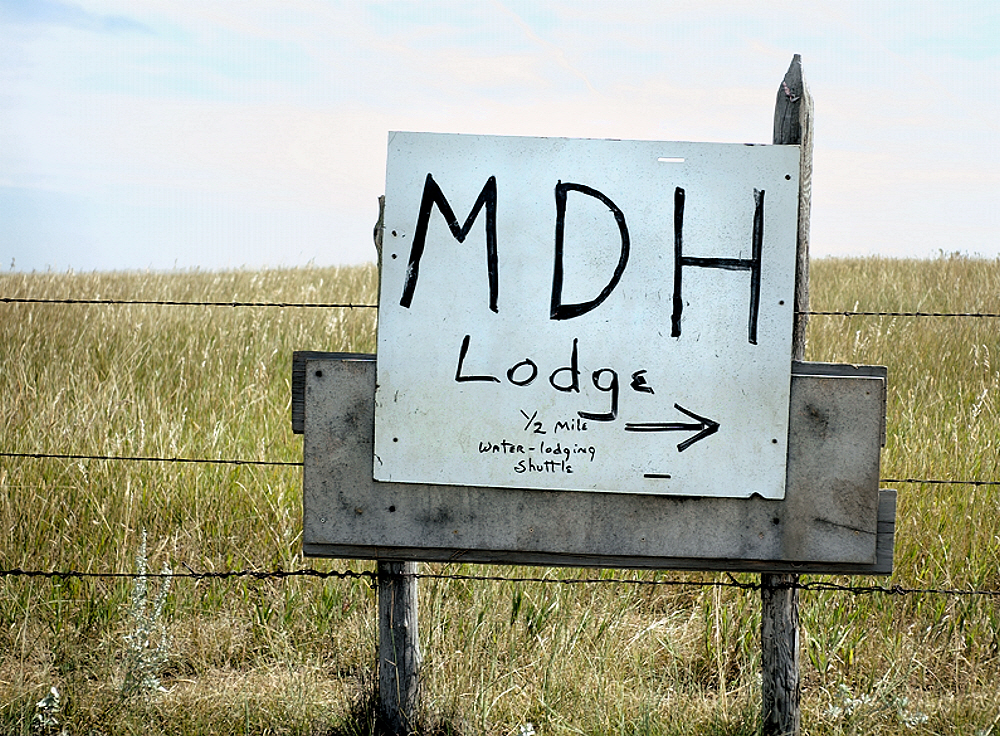
Sleep with the cattle, rise with the chickens, drink water.
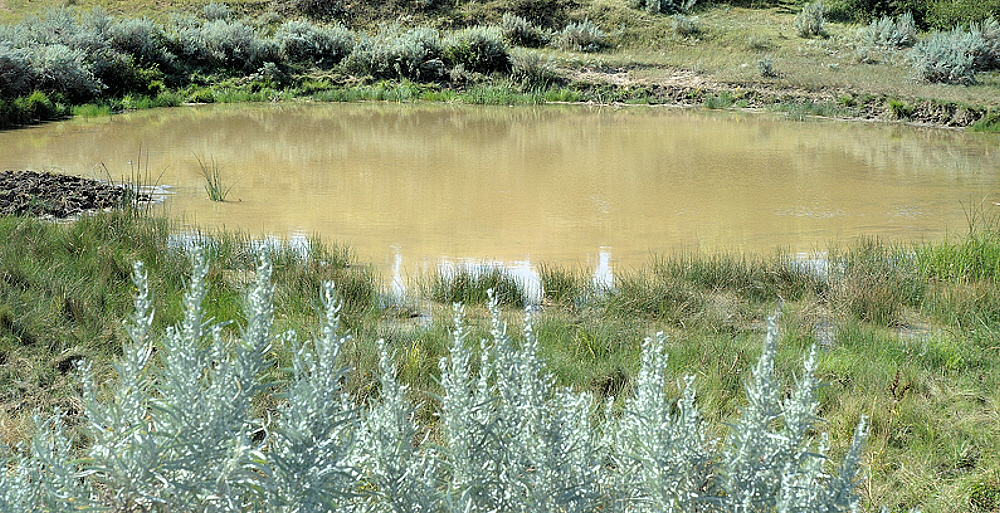
Let us now speak of water? No. Around. Go around.
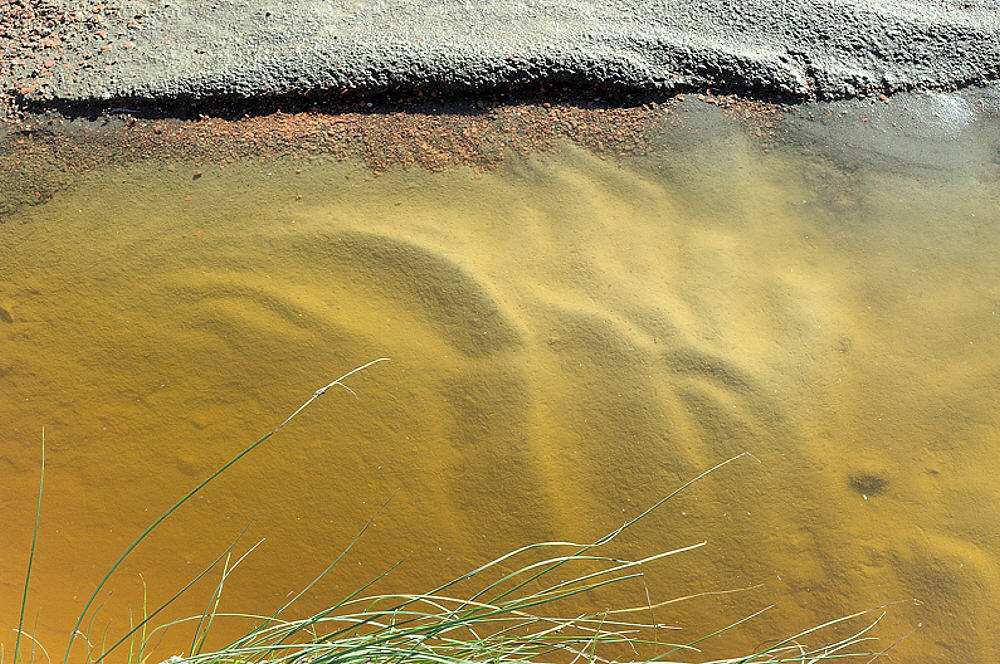
However, some of it here, and there, is more wet than mud.
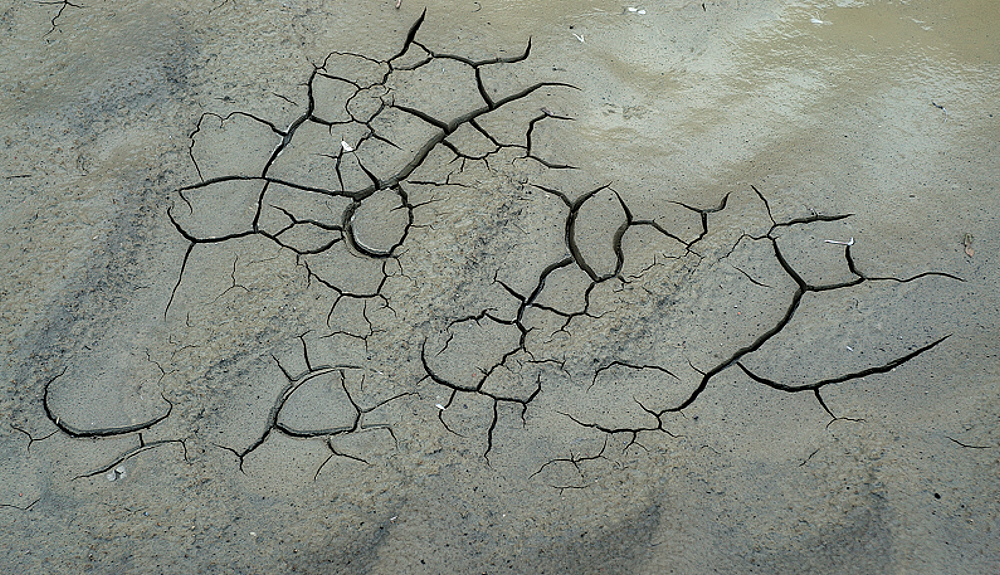
And some isn't.
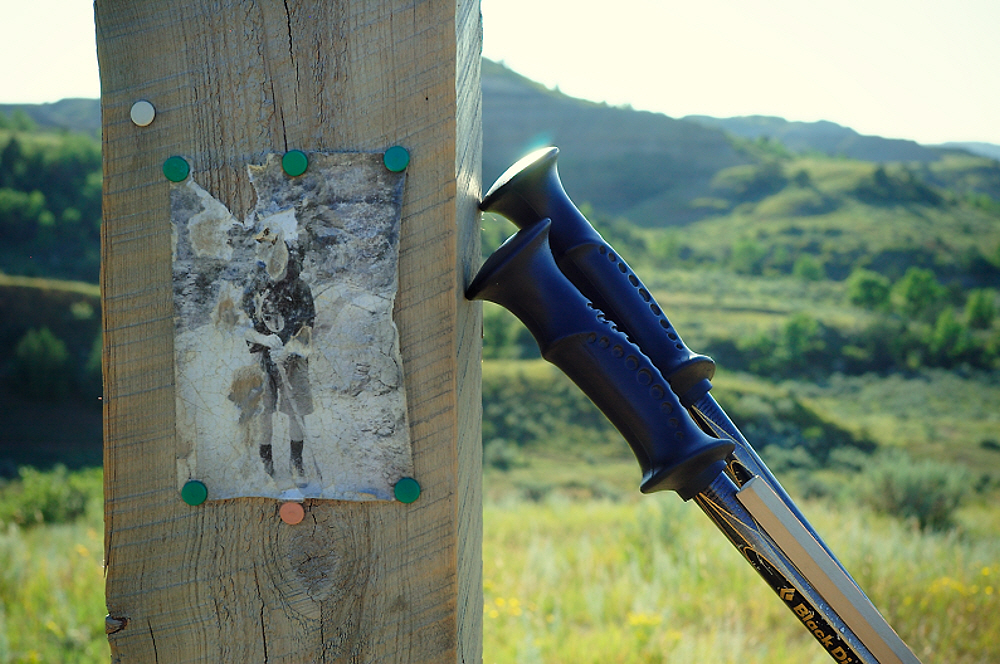
I'll always wonder.
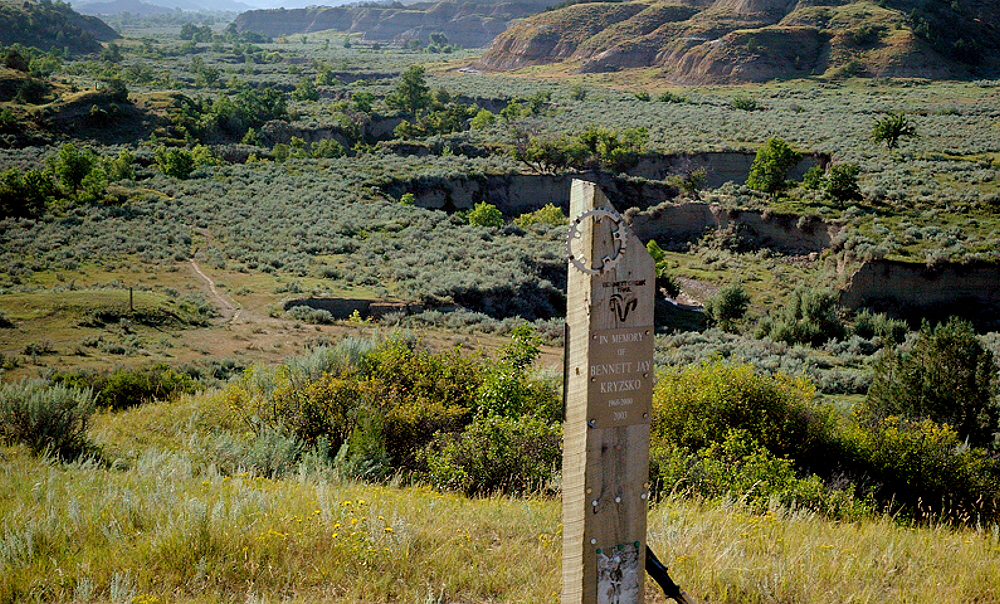
"In memory of Bennett Jay Kryszko, 1968 - 2000."
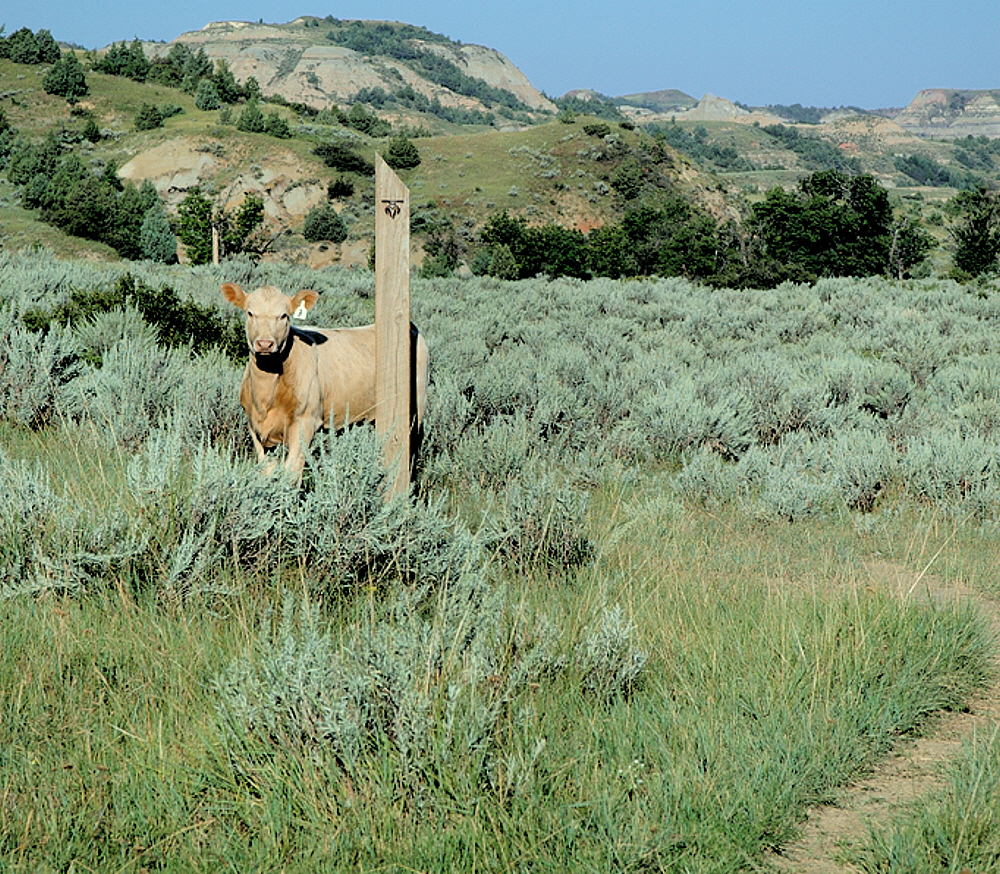
Opposing traffic.
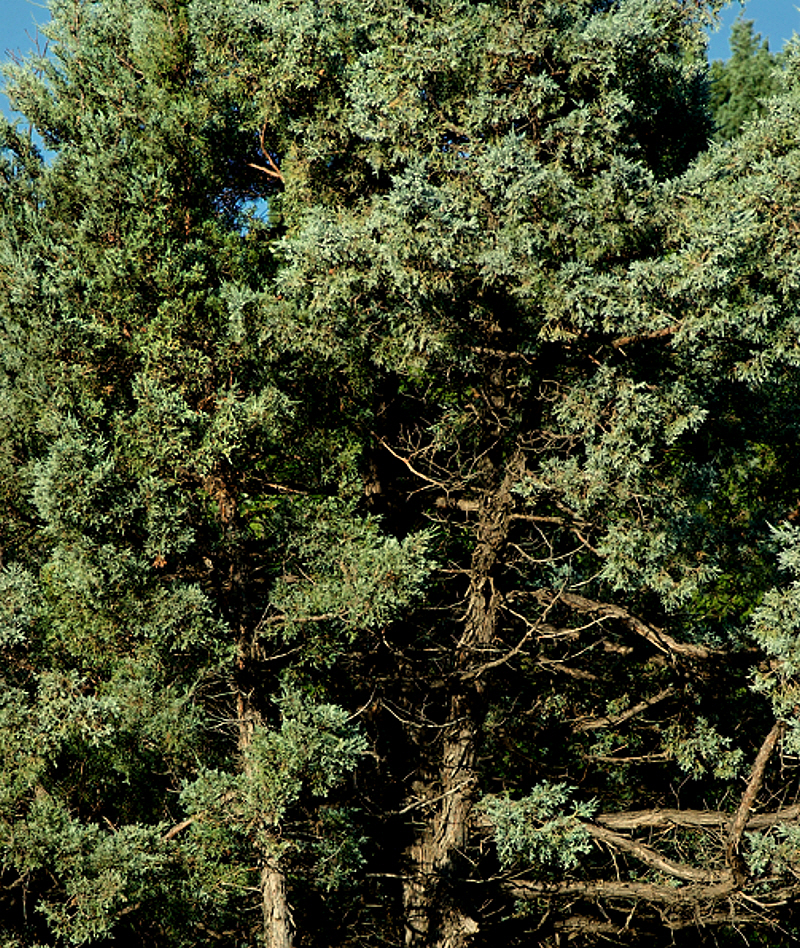
Back to the trees then.
Section 3: Magpie Campground to Elkhorn Ranch site.
Theodore Roosevelt (from his autobiography).
It was still the Wild West in those days, the Far West, the West of Owen Wister's stories and Frederic Remington's drawings, the West of the Indian and the buffalo-hunter, the soldier and the cowpuncher.
That land of the West has gone now, "gone, gone with lost Atlantis," gone to the isle of ghosts and of strange dead memories.
It was a land of vast silent spaces, of lonely rivers, and of plains where the wild game stared at the passing horseman.
It was a land of scattered ranches, of herds of long-horned cattle, and of reckless riders who unmoved looked in the eyes of life or death.
In that land we led a free and hardy life, with horse and with rifle.
We worked under the scorching midsummer sun, when the wide plains shimmered and wavered in the heat; and we knew the freezing misery of riding night guard round the cattle in the late fall round-up.
In the soft springtime the stars were glorious in our eyes each night before we fell asleep; and in the winter we rode through blinding blizzards, when the driven snow-dust burnt our faces.
There were monotonous days, as we guided the trail cattle or the beef herds, hour after hour, at the slowest of walks; and minutes or hours teeming with excitement as we stopped stampedes or swam the herds across rivers treacherous with quicksands or brimmed with running ice.
We knew toil and hardship and hunger and thirst; and we saw men die violent deaths as they worked among the horses and cattle, or fought in evil feuds with one another; but we felt the beat of hardy life in our veins, and ours was the glory of work and the joy of living.
Source: Hagedorn's biography of Roosevelt.
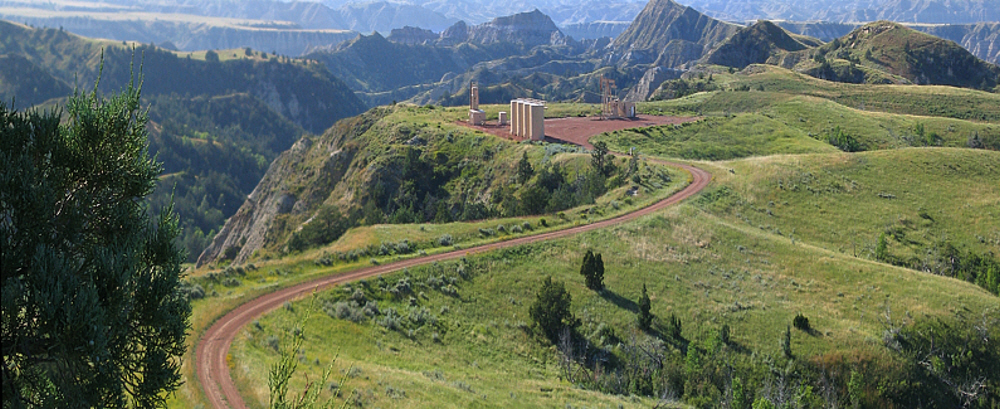
Oh, right. Oil tanks. Hidden here and there.
Life and times.
Here and there a woman went off her head. One such instance was productive of a piece of unconscious humor that, in its grimness, was in key with the rest of that terrible winter. Wrote a friend to Pierre Wibaux, who had gone to France for the winter, leaving his wife in charge of the ranch:
Dear Pierre.
No news, except that Dave Brown killed Dick Smith and your wife's hired girl blew her brains out in the kitchen. Everything O.K. here.
Yours truly
Henry Jackson
Source: Hagedorn's biography of Roosevelt.
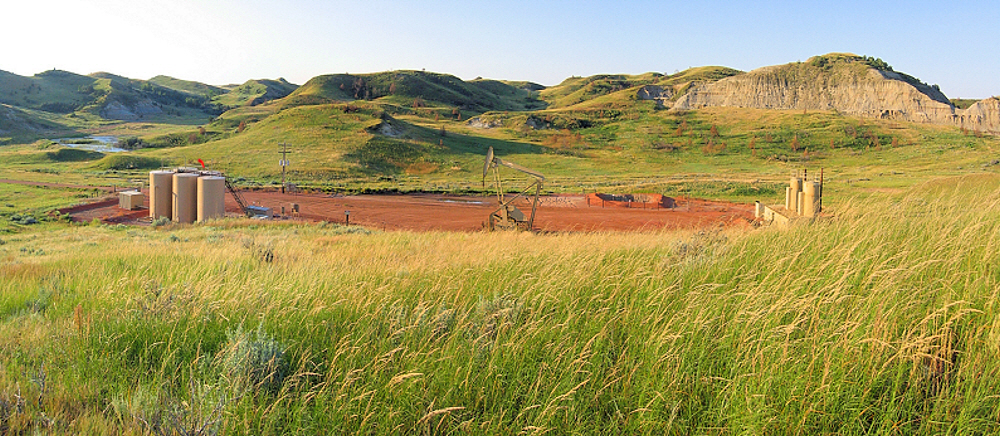
See? They're all over, or were, even in 2004, and that was before the big oil days, which came about 10 years later.
Knowing by doing.
My friends, I never can sufficiently express the obligations I am under to the territory of Dakota, for it was here that I lived a number of years in a ranch house in the cattle country, and I regard my experience during those years, when I lived and worked with my own fellow ranchmen on what was then the frontier, as the most important educational asset of all my life. It is a mighty good thing to know men, not from looking at them, but from having been one of them. When you have worked with them, when you have lived with them, you do not have to wonder how they feel, because you feel it yourself.
I know how the man that works with his hands and the man on the ranch are thinking, because I have been there and I am thinking that way myself. It is not that I divine the way they are thinking, but that I think the same way.
Theodore Roosevelt
Speech at Sioux Falls, September 3, 1910.
Source: Hagedorn's biography of Roosevelt.
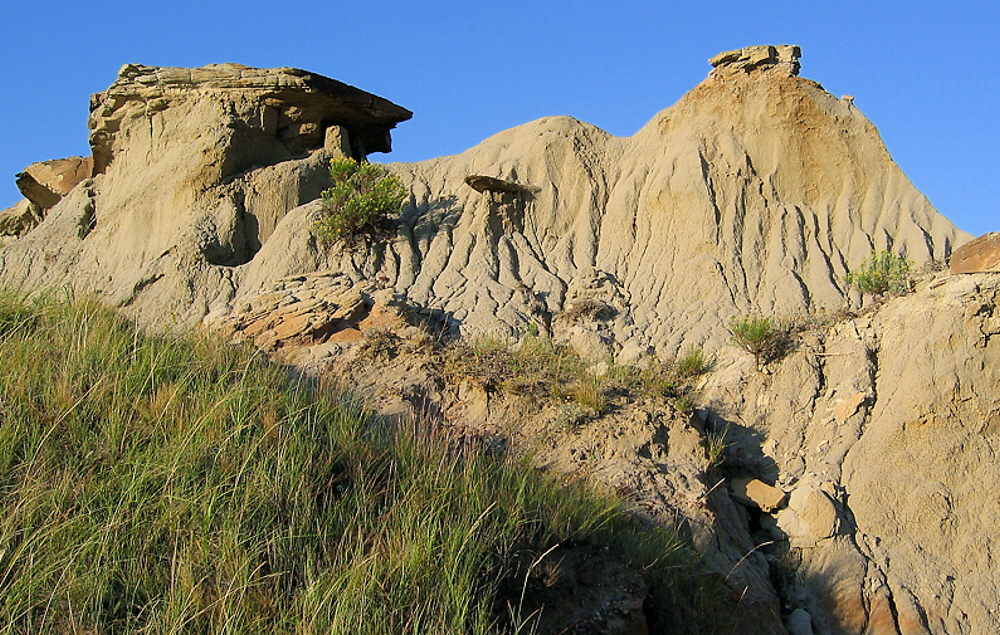
Well, if you don't like that, just turn around and look for something else, and there it will be.
Civilization, such as it was in those days.
It was a region of weird shapes garbed in barbaric colors, gray-olive striped with brown, lavender striped with black, chalk pinnacles capped with flaming scarlet.
French-Canadian voyageurs, a century previous, finding the weather-washed ravines wicked to travel through, spoke of them as mauvaises terres pour traverser, and the name clung.
The whole region, it was said, had once been the bed of a great lake, holding in its lap the rich clays and loams which the rains carried down into it. The passing of ages brought vegetation, and the passing of other ages turned that vegetation into coal. Other deposits settled over the coal. At last this vast lake found an outlet in the Missouri. The wear and wash of the waters cut in time through the clay, the coal, and the friable limestone of succeeding deposits, creating ten thousand watercourses bordered by precipitous bluffs and buttes, which every storm gashed and furrowed anew.
On the tops of the flat buttes was rich soil and in countless pleasant valleys were green pastures, but there were regions where for miles only sagebrush and stunted cedars lived a starved existence. Bad lands they were, for man or beast, and Bad Lands they remained.
The "town" of Little Missouri consisted of a group of primitive buildings scattered about the shack which did duty as a railroad station. The Pyramid Park Hotel stood immediately north of the tracks; beside it stood the one-story palace of sin of which one, who shall, for the purposes of this story, be known as Bill Williams, was the owner, and one who shall be known as Jess Hogue, the evil genius.
South of the track a comical, naive Swede named Johnny Nelson kept a store when he was not courting Katie, the hired girl in Mrs. McGeeney's boarding-house next door, or gambling away his receipts under Hogue's crafty guidance.
Directly to the east, on the brink of the river, the railroad section-foreman, Fitzgerald, had a shack and a wife who quarreled unceasingly with her neighbor, Mrs. McGeeney.
At a corresponding place on the other side of the track, a villainous gun-fighter named Maunders lived (as far as possible) by his neighbors' toil. A quarter of a mile west of him, in a grove of cottonwood trees, stood a group of gray, log buildings known as the "cantonment," where a handful of soldiers had been quartered under a major named Coomba, to guard the construction crews on the railroad from the attacks of predatory Indians seeking game in their ancient hunting-grounds.
A few huts in the sagebrush, a half-dozen miners' shacks under the butte to the south, and one or two rather pretentious frame houses in process of construction completed what was Little Missouri; but Little Missouri was not the only outpost of civilization at this junction of the railroad and the winding, treacherous river.
On the eastern bank, on the flat under the bluff that six months previous had been a paradise for jackrabbits, a few houses and a few men were attempting to prove to the world, amid a chorus of hammers, that they constituted a town and had a future. The settlement called itself Medora.
The air was full of vague but wonderful stories of a French marquis who was building it and who owned it, body and soul. The region was noted for game. It had been a great winter range for buffalo; and elk, mountain-sheep, blacktail and whitetail deer, antelope and beaver were plentiful; now and then even an occasional bear strayed to the river's edge from God knows whence.
Jake Maunders, with his sinister face, was the center of information for tourists, steering the visitor in the direction of game by day and of Bill Williams, Jess Hogue, and their crew of gamblers and confidence men by night.
Source: Hagedorn's biography of Roosevelt.
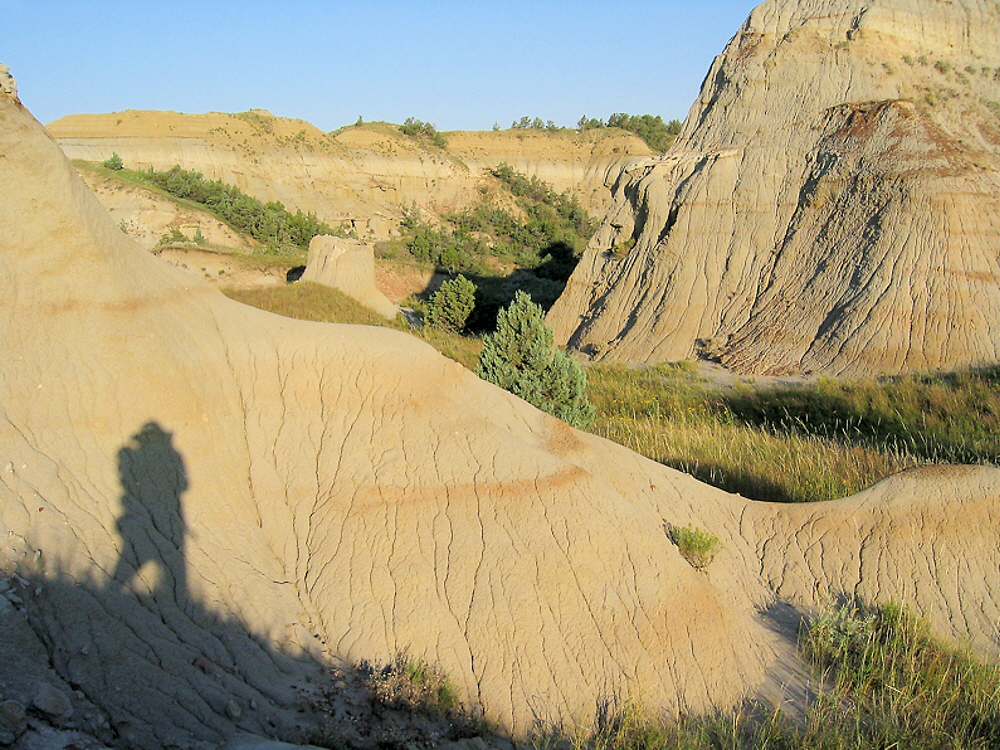
Lots of places to go and check out, and shadow hikers to do it with.
Fun.
Bill Merrifield scoured the prairie for buffalo and antelope and crept through the underbrush of countless coulees for deer. For two years he furnished the Northern Pacific dining-cars with venison at five cents a pound. He was a sure shot, absolutely fearless, and with a debonair gayety that found occasional expression in odd pranks. Once, riding through the prairie near the railroad, and being thirsty and not relishing a drink of the alkali water of the Little Missouri, he flagged an express with his red handkerchief, stepped aboard, helped himself to ice-water, and rode off again, to the speechless indignation of the conductor.
Source: Hagedorn's biography of Roosevelt.
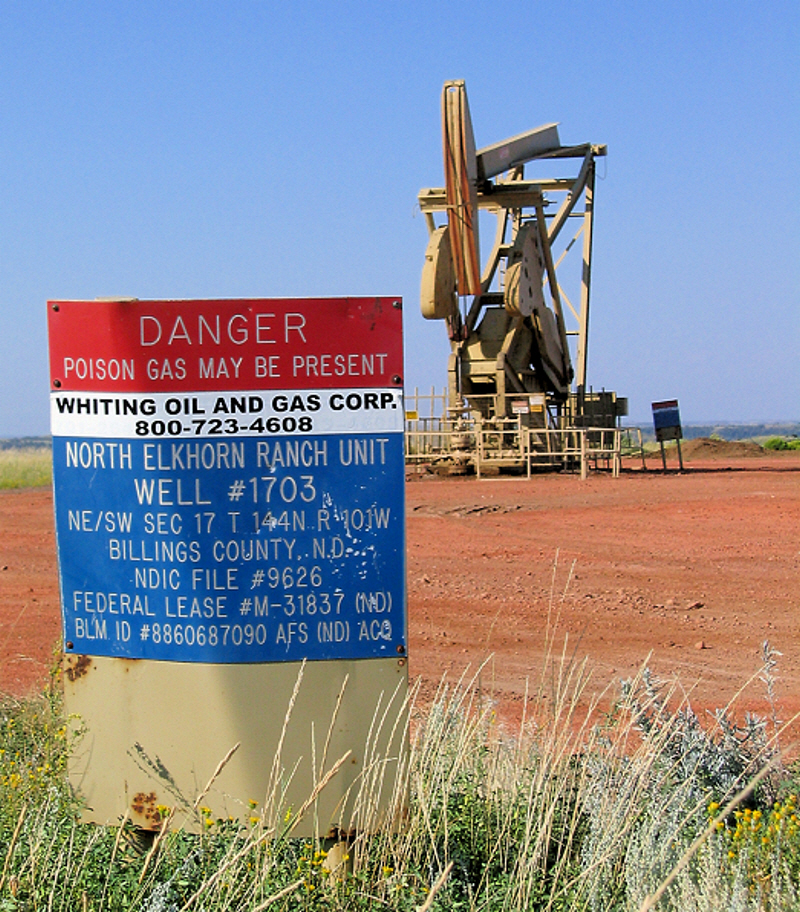
And then there are other places to check out, but maybe not so great as a tent site.
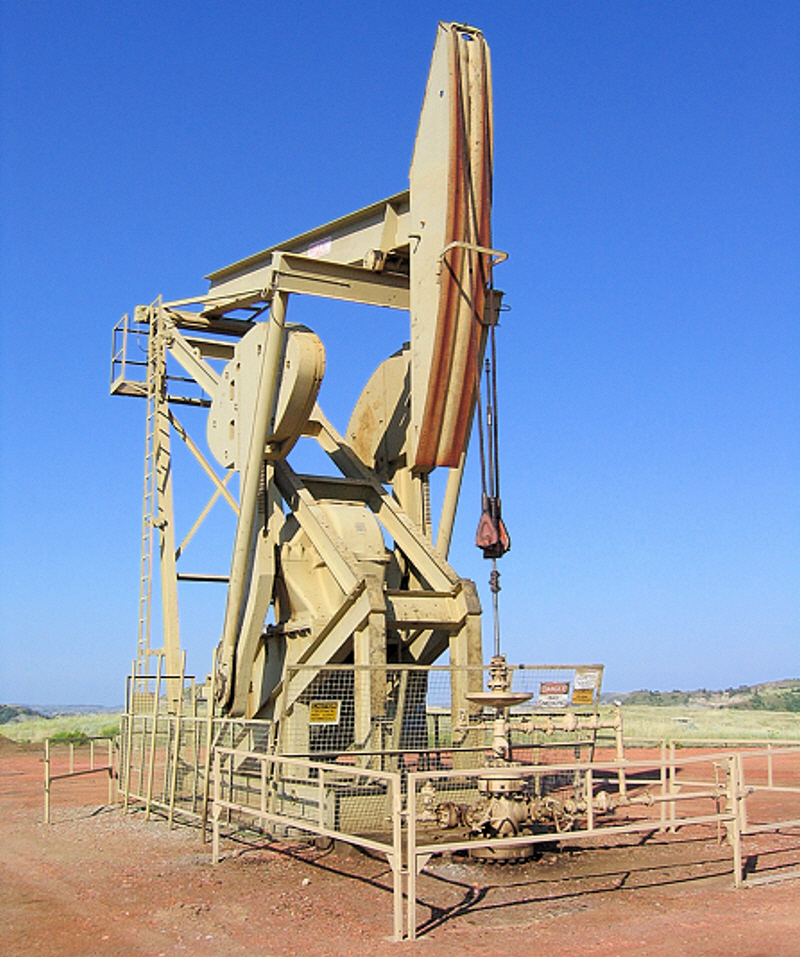
These pumps, which you've possibly seen from a car while whooshing down a highway, are massive up close. Crazy big. Running totally unattended.
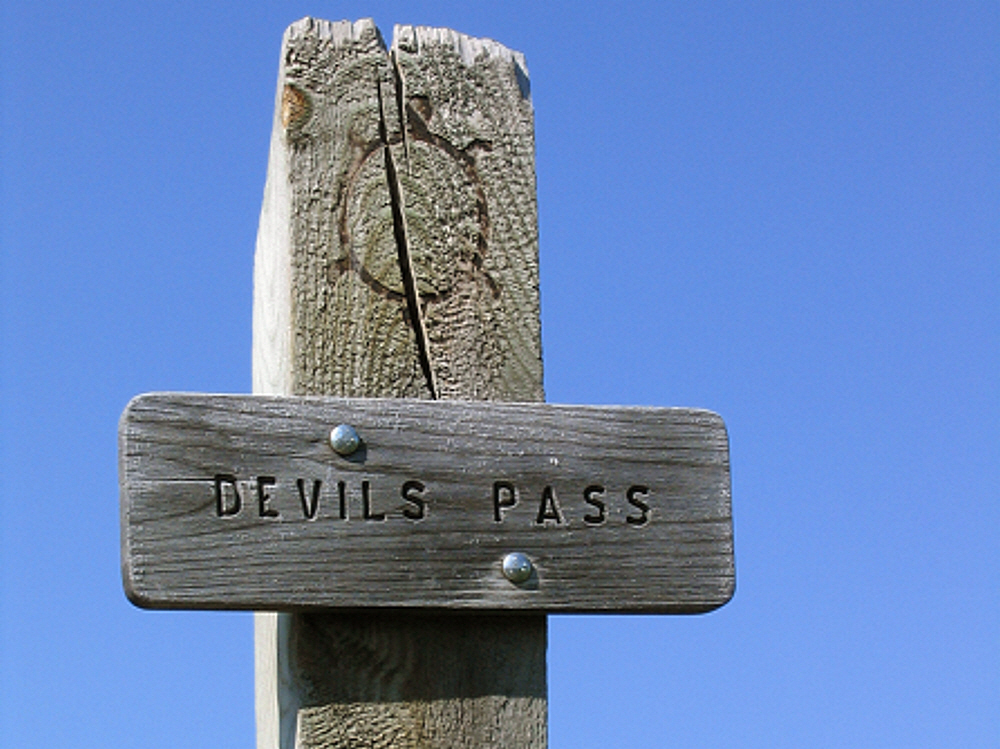
'...a narrow ridge route that drops off over 150 feet on either side', according to the Maah Daah Hey Trail Association.
Poetry in the breaks.
It rains here when it rains an' it's hot here when it's hot,
The real folks is real folks which city folks is not.
The dark is as the dark was before the stars was made;
The sun is as the sun was before God thought of shade;
An' the prairie an' the butte-tops an' the long winds, when they blow,
Is like the things what Adam knew on his birthday, long ago.
— From Medora Nights
Source: Hagedorn's biography of Roosevelt.
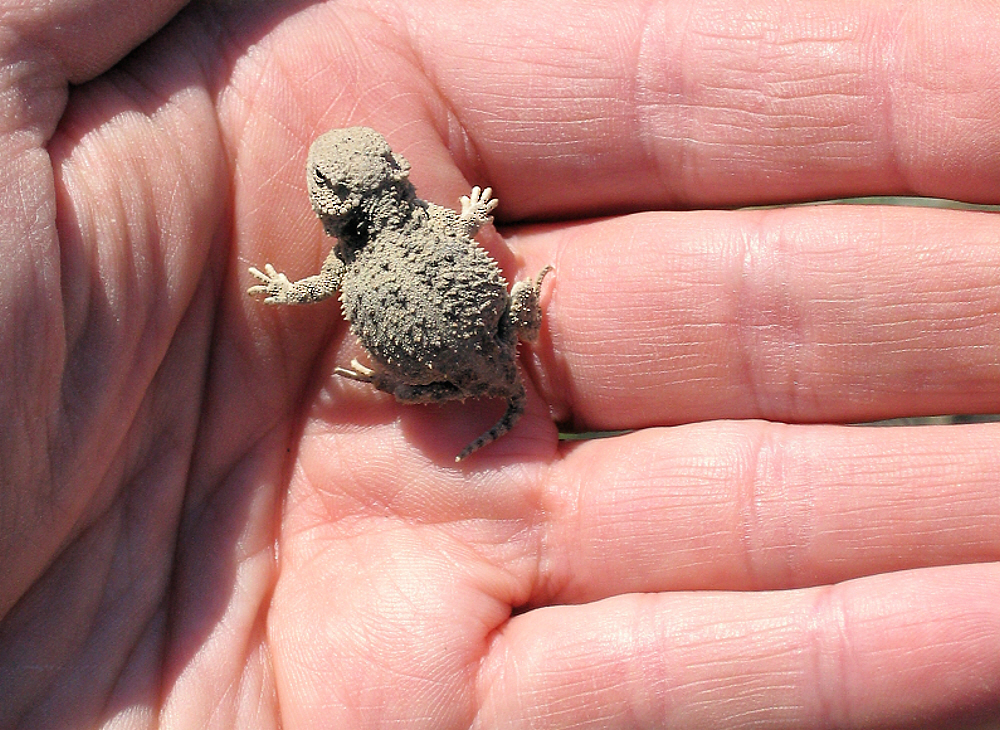
Tiny friend. If you can define a friend as someone you have to chase down and grab. But I'm not fussy.
Roosevelt goes on his first hunt.
The road to Lang's, or the trail rather — for it consisted of two wheel-tracks scarcely discernible on the prairie grass and only to be guessed at in the sagebrush — lay straight south across a succession of flats, now wide, now narrow, cut at frequent intervals by the winding, wood-fringed Little Missouri, a region of green slopes and rocky walls and stately pinnacles and luxuriant acres.
Twenty miles south of the Maltese Cross, they topped a ridge of buttes and suddenly came upon what might well have seemed, in the hot mist of noonday, a billowy ocean, held by some magic in suspension.
From the trail, which wound along a red slope of baked clay falling at a sharp angle into a witch's cauldron of clefts and savage abysses, the Bad Lands stretched southward to the uncertain horizon. The nearer slopes were like yellow shores jutting into lavender waters.
Source: Hagedorn's biography of Roosevelt.
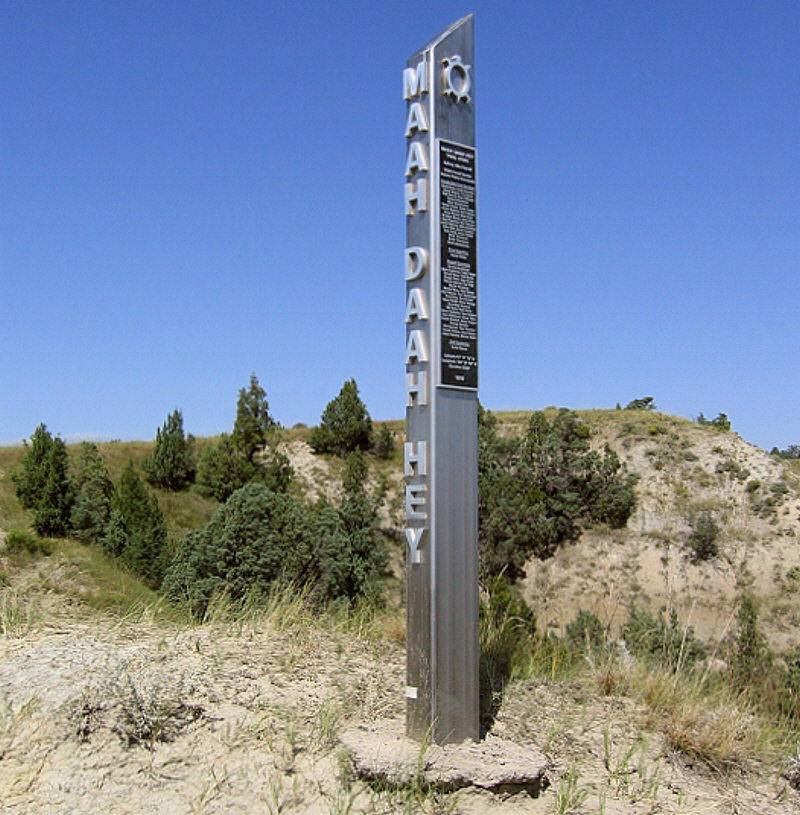
Halfway from somewhere to someplace. Nice post. Aluminum.
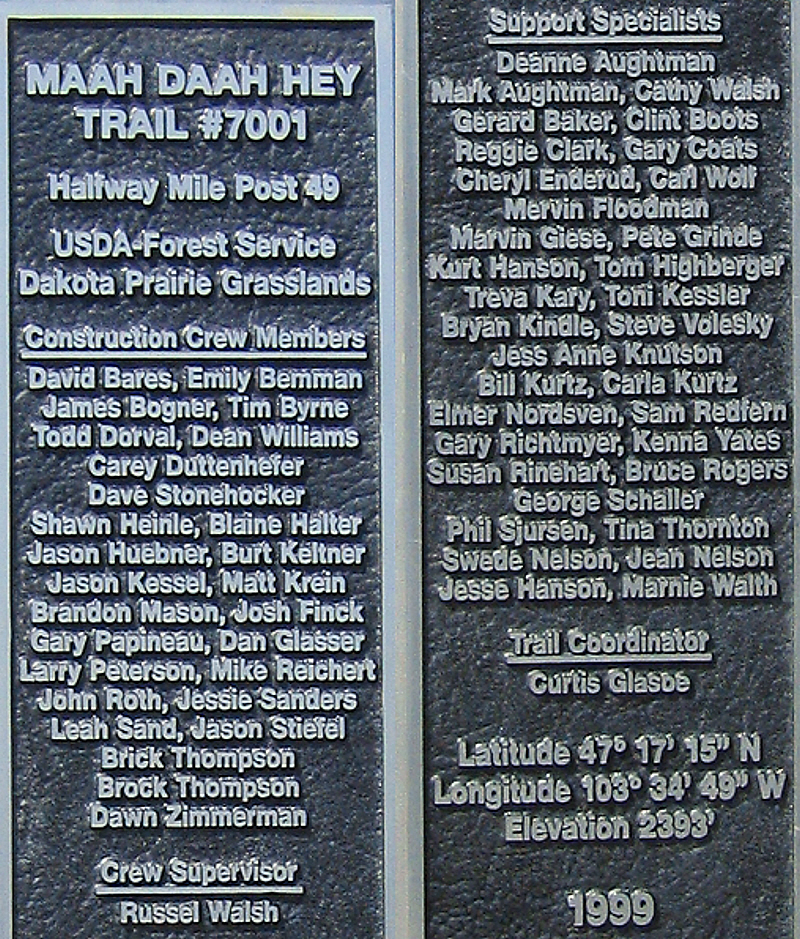
And it gives credit where credit is due. Good job, folks.
Gregor Lang, Frank Vine.
Gregor Lang, with the fortunes of his employer at heart, watched Frank's activities as storekeeper with interest. His bookkeeping, Lang found, was largely in his mind.
When he received a shipment of goods he set the selling-price by multiplying the cost by two and adding the freight; which saved much calculating. Frank's notions of "mine" and "thine," Lang discovered, moreover, were elastic.
His depredations were particularly heavy against a certain shipment of patent medicine called "Tolu Tonic," which he ordered in huge quantities at the company's expense and drank up himself.
The secret was that Frank, who had inherited his father's proclivities, did not like the "Forty-Mile Red Eye" brand which Bill Williams concocted of sulphuric acid and cigar stumps mixed with evil gin and worse rum; and had found that "Tolu Tonic" was eighty per cent alcohol.
Source: Hagedorn's biography of Roosevelt.
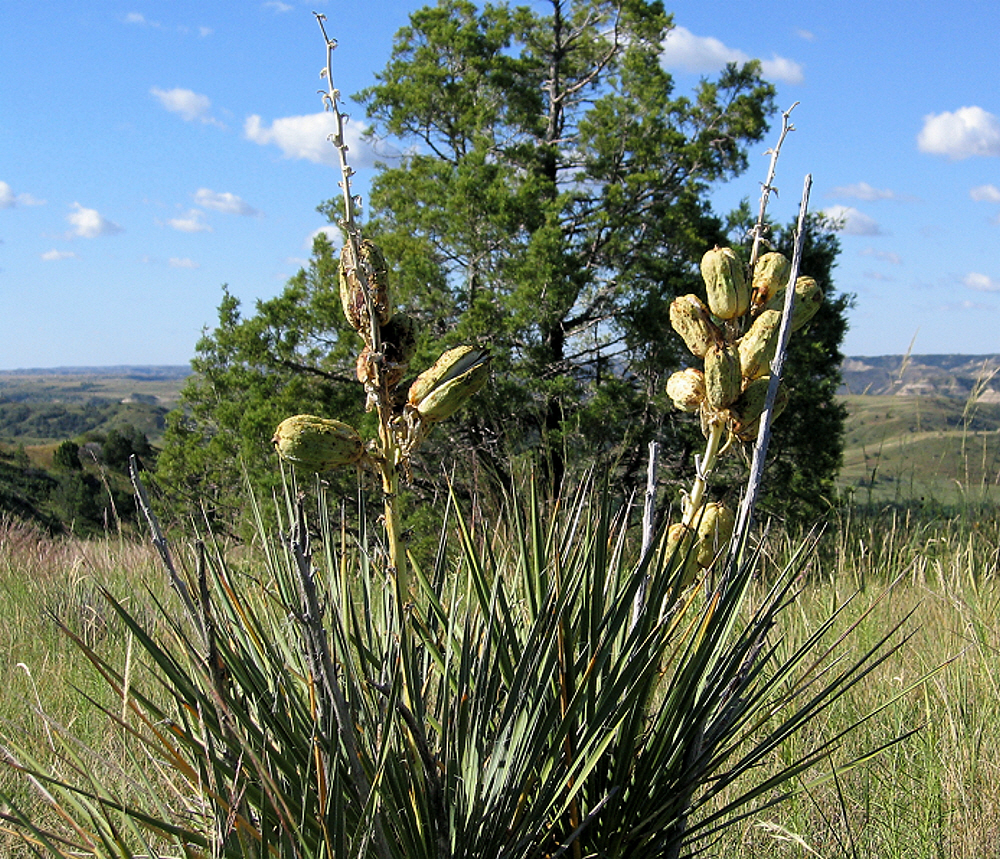
Yucca.
Roosevelt on the hunt.
They left Lang's at six, crossing the Little Missouri and threading their way, mile after mile, eastward through narrow defiles and along tortuous divides. It was a wild region, bleak and terrible, where fantastic devil-carvings reared themselves from the sallow gray of eroded slopes, and the only green things were gnarled cedars that looked as though they had been born in horror and had grown up in whirlwinds.
Source: Hagedorn's biography of Roosevelt.
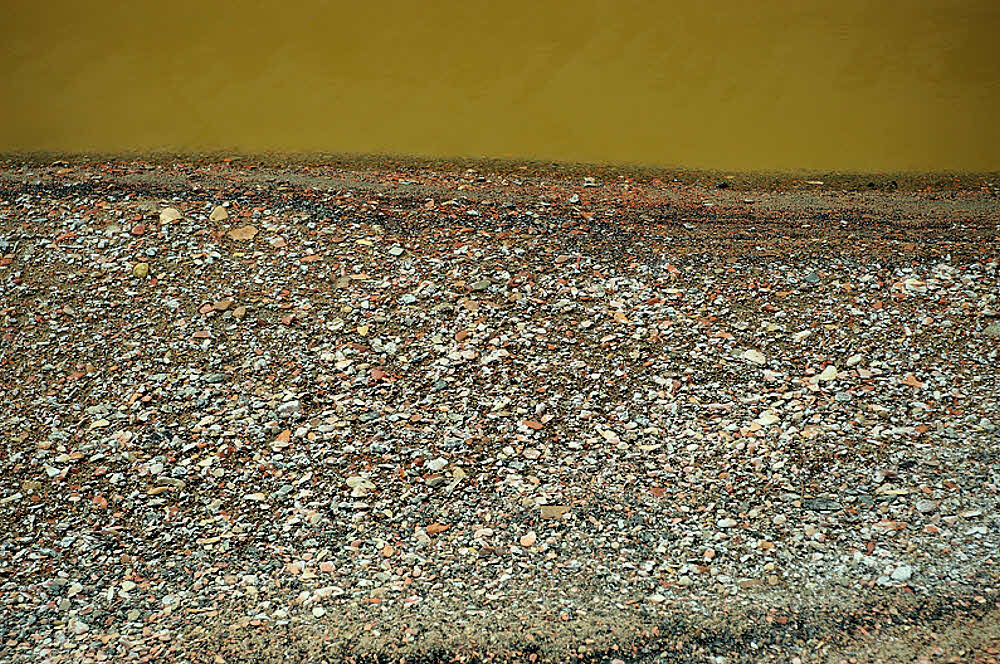
Little Missouri River water.
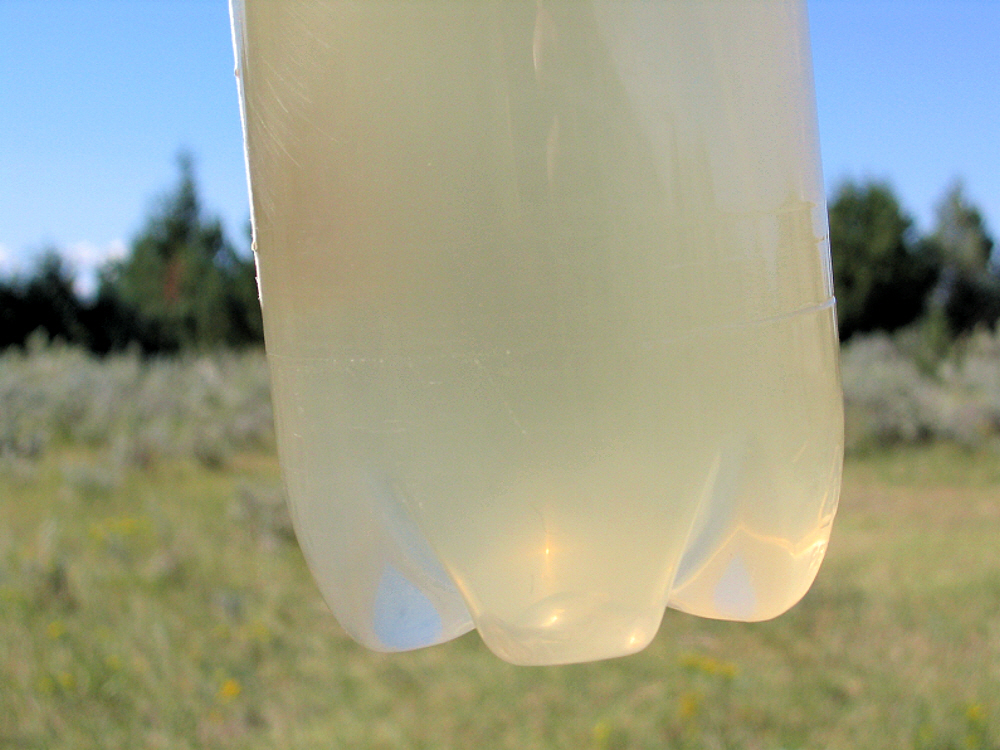
Little Missouri River water, after settling forever. Now with crude oil!
How the cattle business began.
Lang, who had been starved for intellectual companionship, was glad to talk; and there was much to tell.
It was a new country for cattle. Less than five years before, the Indians had still roamed free and unmolested over it. A few daring white hunters (carrying each his vial of poison with which to cheat the torture-stake, in case of capture) had invaded their hunting-grounds; then a few surveyors; then grading crews under military guard with their retinue of saloon-keepers and professional gamblers; then the gleaming rails; then the thundering and shrieking engines.
Eastern sportsmen, finding game plentiful in the Bad Lands, came to the conclusion that where game could survive in winter and thrive in summer, cattle could do likewise, and began to send short-horned stock west over the railroad.
A man named Wadsworth from Minnesota settled twenty miles down the river from Little Missouri; another named Simpson from Texas established the "Hash-Knife" brand sixty or seventy miles above. The Eatons and A. D. Huidekoper, all from Pittsburgh, Sir John Pender from England, Lord Nugent from Ireland, H. H. Gorringe from New York, came to hunt and remained in person or by proxy to raise cattle in the new-won prairies of western Dakota and eastern Montana.
These were the first wave.
Henry Boice from New Mexico, Gregor Lang from Scotland, Antoine de Vallombrosa, Marquis de Mores (very much from France) — these were the second; young men all, most under thirty, some under twenty-five, dare-devil adventurers with hot blood, seeing visions.
Source: Hagedorn's biography of Roosevelt.
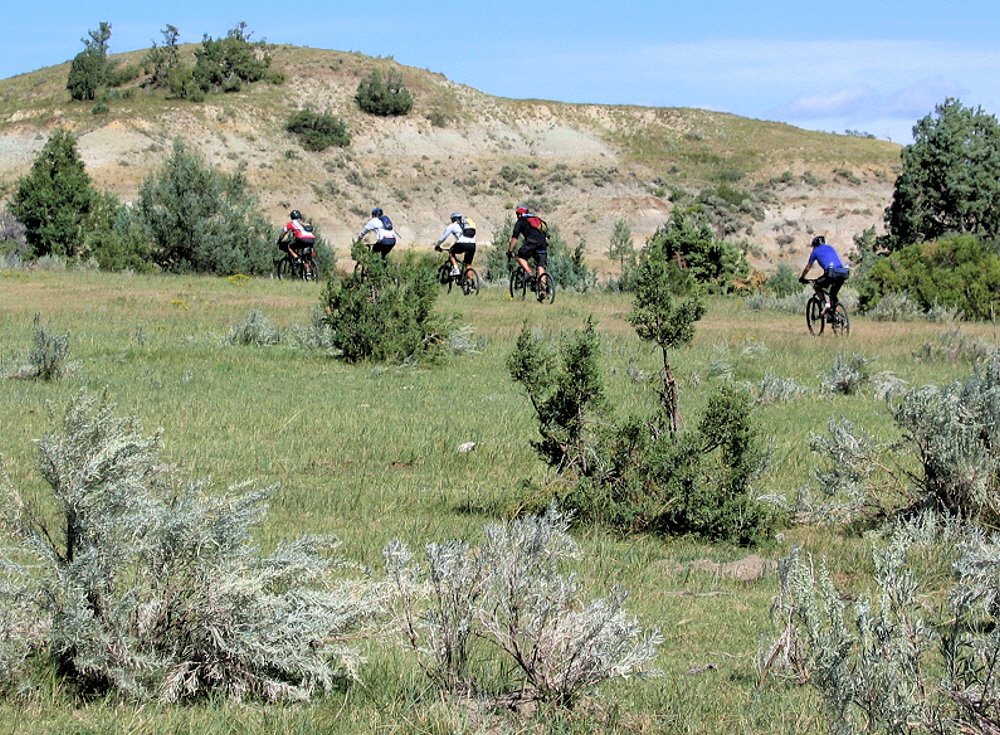
Cyclists. There are tour companies out here. Carry your stuff. Cook. Make it easy (easier).
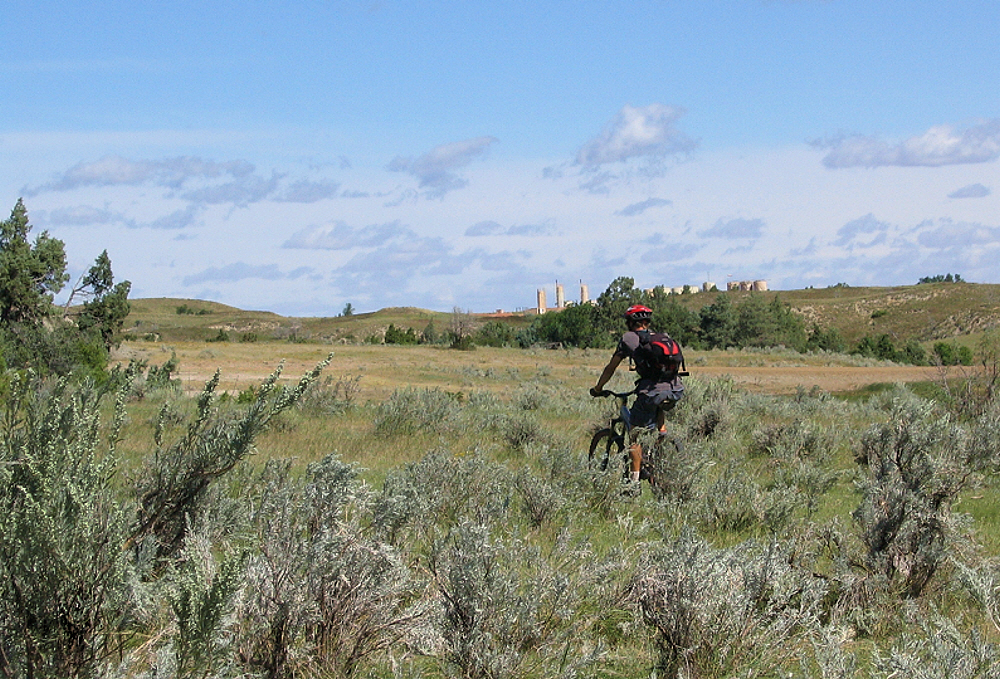
Cyclist with oil. Always the oil.
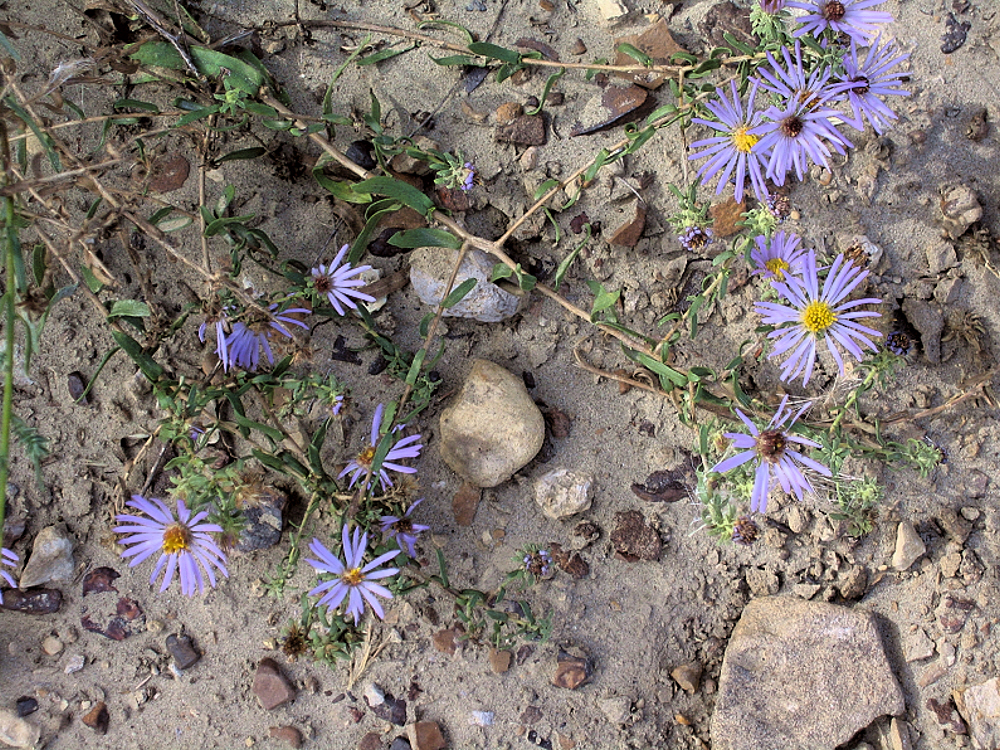
Near the Elkhorn Ranch site.
The Buffalo hunt.
They started out with new zest under the clear sky. They had, in their week's hunting, come across the fresh tracks of numerous buffalo, but had in no case secured a shot.
The last great herd had, in fact, been exterminated six months before, and though the Ferrises and Merrifield had killed a half-dozen within a quarter-mile of the Maltese Cross early that summer, these had been merely a straggling remnant.
The days when a hunter could stand and bombard a dull, panic-stricken herd, slaughtering hundreds without changing his position, were gone. In the spring of 1883 the buffalo had still roamed the prairies east and west of the Bad Lands in huge herds, but moving in herds they were as easy to shoot as a family cow and the profits even at three dollars a pelt were great.
Game-butchers swarmed forth from Little Missouri and fifty other frontier "towns," slaughtering buffalo for their skins or for their tongues or for the mere lust of killing. The hides were piled high at every shipping point; the carcasses rotted in the sun.
Three hundred thousand buffalo, driven north from the more settled plains of western Nebraska, and huddled in a territory covering not more than a hundred and fifty square miles, perished like cattle in a stockyard, almost overnight.
It was one of the most stupendous and dramatic obliterations in history of a species betrayed by the sudden change of its environment.
Source: Hagedorn's biography of Roosevelt.
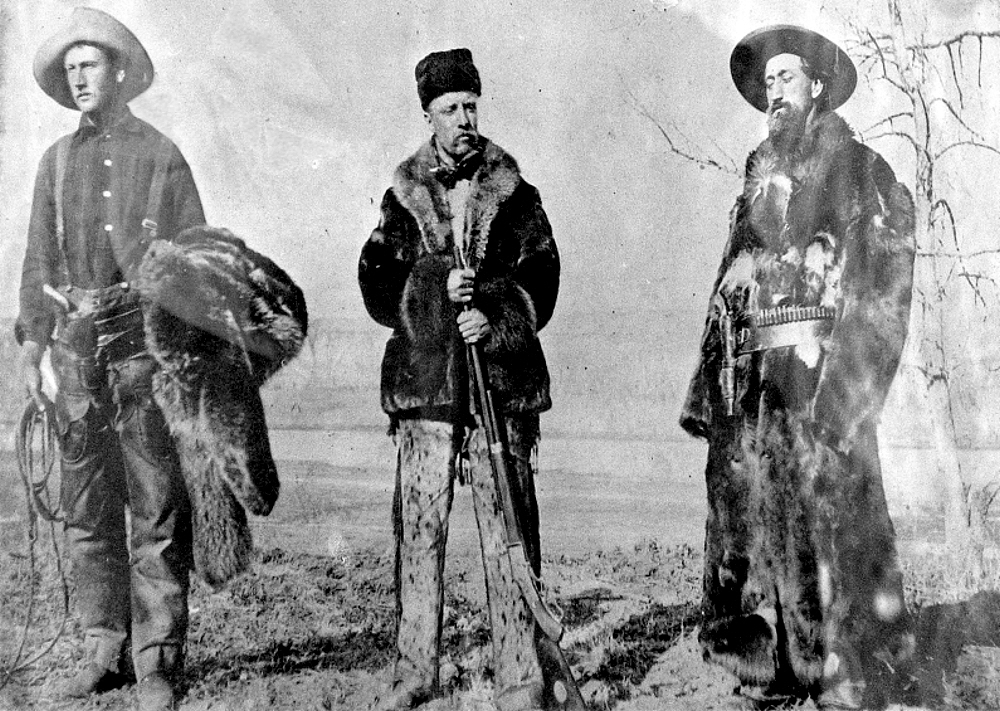
'I have always said I would not have been President had it not been for my experience in North Dakota.' Theodore Roosevelt with friends from back East. Wilmot Dow (L), and Dow's uncle Bill Sewall (R).
Sewall and Dow.
He had made up his mind that, however the dice might fall, he would henceforth make his home, for a part of the year at least, in the Bad Lands.
He had two friends in Maine, backwoodsmen mighty with the axe, and born to the privations of the frontier, whom he decided to take with him if he could.
One was "Bill" Sewall, a stalwart viking at the end of his thirties, who had been his guide on frequent occasions when as a boy in college he had sought health and good hunting on the waters of Lake Mattawamkeag; the other was Sewall's nephew, Wilmot Dow. He flung out the suggestion to them, and they rose to it like hungry trout; for they had adventurous spirits.
Source: Hagedorn's biography of Roosevelt.

Elkhorn Ranch Site, Little Missouri River bluffs in background.
The buffalo hunt.
The bison was out of sight before they had time to fire. At the risk of their necks they sped their horses over the broken ground only to see the buffalo emerge from it at the farther end and with amazing agility climb up the side of a butte over a quarter of a mile away. With his shaggy mane and huge forequarters he had some of the impressiveness of a lion as he stood for an instant looking back at his pursuers. They followed him for miles, but caught no glimpse of him again.
They were now on the prairie far to the east of the river, a steaming, treeless region stretching in faint undulations north, east, and south, until it met the sky in the blurred distance. Here and there it was broken by a sunken water-course, dry in spite of a week of wet weather, or a low bluff or a cluster of small, round-topped buttes. The grass was burnt brown; the air was hot and still. The country had the monotony and the melancholy and more than a little of the beauty and the fascination of the sea.
They ate their meager lunch beside a miry pool, where a clump of cedars under a bluff gave a few square feet of shadow.
All afternoon they rode over the dreary prairie, but it was late before they caught another glimpse of game. Then, far off in the middle of a large plain, they saw three black specks.
The horses were slow beasts, and were tired besides and in no condition for running. Roosevelt and his mentor picketed them in a hollow, half a mile from the game, and started off on their hands and knees. Roosevelt blundered into a bed of cactus and filled his hands with the spines; but he came within a hundred and fifty feet or less of the buffalo. He drew up and fired. The bullet made the dust fly from the hide as it hit the body with a loud crack, but apparently did no particular harm. The three buffalo made off over a low rise with their tails in the air.
There was no possibility of returning to Lang's that night. They were not at all certain where they were, but they knew they were a long way from the mouth of the Little Cannonball. They determined to camp near by for the night.
They did not mount the exhausted horses, but led them, stumbling, foaming and sweating, while they hunted for water. It was an hour before they found a little mud-pool in a reedy hollow. They had drunk nothing for twelve hours and were parched with thirst, but the water of the pool was like thin jelly, slimy and nauseating, and they could drink only a mouthful.
Supper consisted of a dry biscuit, previously baked by Lincoln under direction of his father, who insisted that the use of a certain kind of grease whose name is lost to history would keep the biscuits soft. They were hard as horn. There was not a twig with which to make a fire, nor a bush to which they could fasten their horses. When they lay down to sleep, thirsty and famished, they had to tie their horses with the lariat to the saddles which were their pillows.
They did not go quickly to sleep. The horses were nervous, restless, alert, in spite of their fatigue, continually snorting or standing with their ears forward, peering out into the night, as though conscious of the presence of danger.
Roosevelt remembered some half-breed Crees they had encountered the day before. It was quite possible that some roving bucks might come for their horses, and perhaps their scalps, for the Indians, who were still unsettled on their reservations, had a way of stealing off whenever they found a chance and doing what damage they could. Stories he had heard of various bands of horse-thieves that operated in the region between the Little Missouri and the Black Hills likewise returned to mind to plague him.
The wilderness in which Roosevelt and Ferris had pitched their meager camp was in the very heart of the region infested by the bandits. They dozed fitfully, waking with a start whenever the sound of the grazing of the horses ceased for a moment, and they knew that the nervous animals were watching for the approach of a foe. It was late when at last they fell asleep.
Source: Hagedorn's biography of Roosevelt.
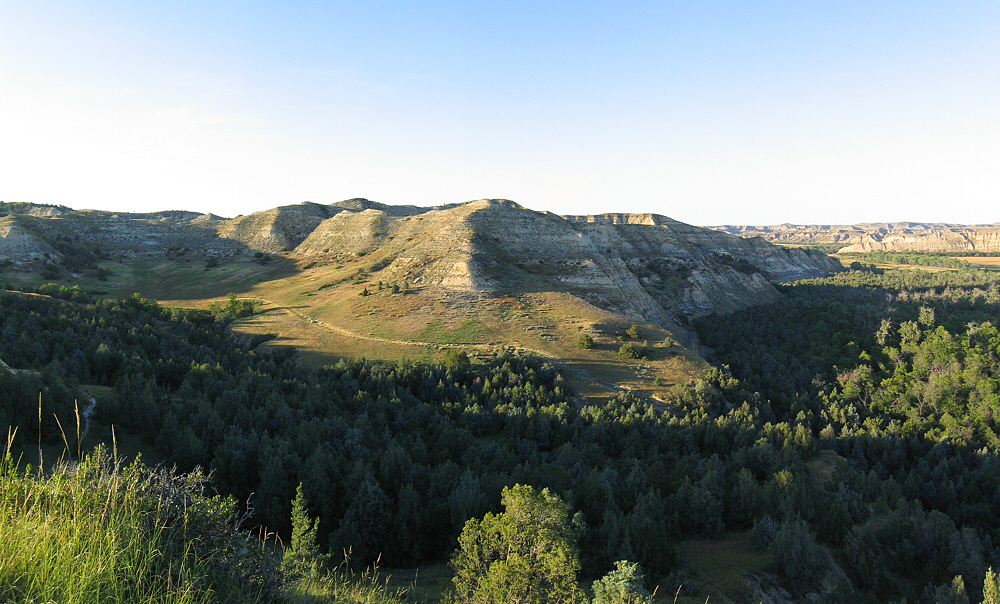
Toward the north (downstream) side of the ranch site.
The buffalo hunt.
They found the horses sooner than they expected and led them back to camp. Utterly weary, they wrapped themselves in their blankets once more and went to sleep.
But rest was not for them that night. At three in the morning a thin rain began to fall, and they awoke to find themselves lying in four inches of water.
Joe Ferris expected lamentations. What he heard was, "By Godfrey, but this is fun!"
Source: Hagedorn's biography of Roosevelt.
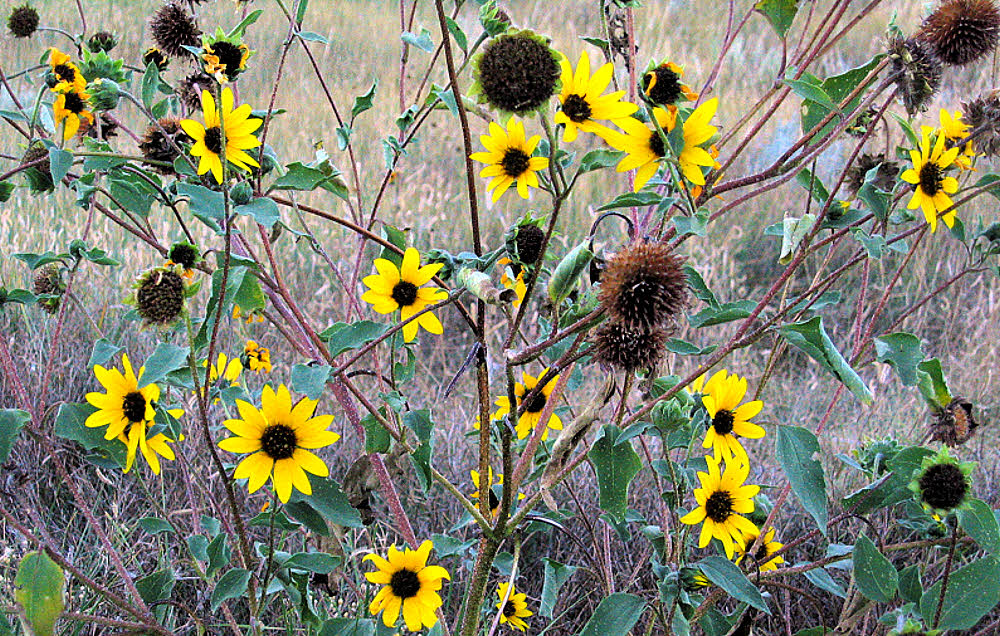
Happy sunflowers.
The buffalo hunt.
The rain continued all day, and they spent another wretched night. They had lived for two days on nothing but biscuits and rainwater, and privation had thoroughly lost whatever charm it might have had for an adventurous young man in search of experience. The next morning brought sunlight and revived spirits, but it brought no change in their luck.
"Bad luck followed us," Joe Ferris remarked long after, "like a yellow dog follows a drunkard."
Source: Hagedorn's biography of Roosevelt.
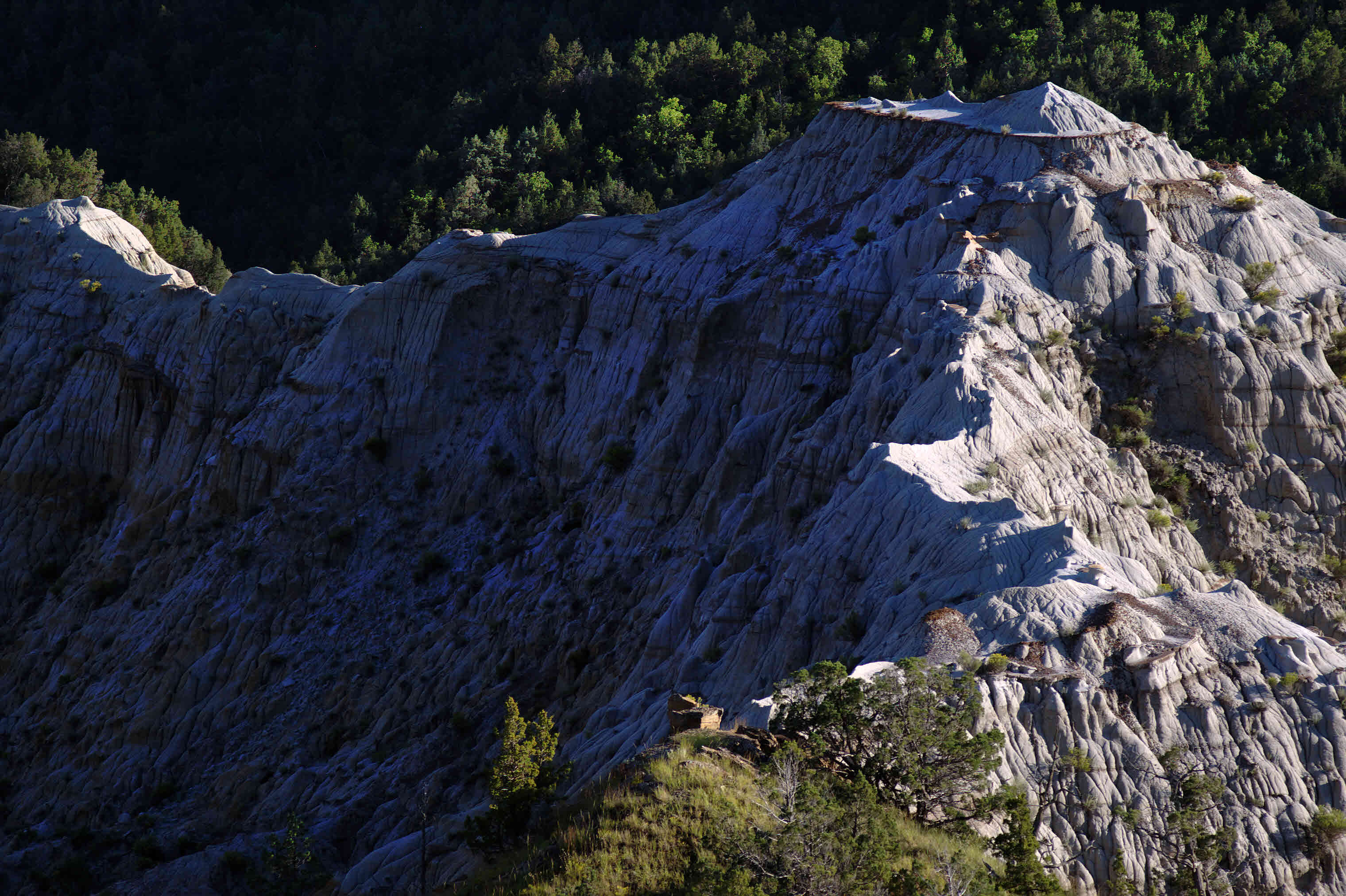
Pointy bits. I have to go there.
The buffalo hunt.
Joe's horse nearly stepped on a rattlesnake, and narrowly escaped being bitten; a steep bluff broke away under their ponies' hoofs, and sent them sliding and rolling to the bottom of a long slope, a pile of intermingled horses and men.
Shortly after, Roosevelt's horse stepped into a hole and turned a complete somersault, pitching his rider a good ten feet; and he had scarcely recovered his composure and his seat in the saddle, when the earth gave way under his horse as though he had stepped on a trap-door, and let him down to his withers in soft, sticky mud. They hauled the frightened animal out by the lariat, with infinite labor.
Altogether it was not a restful Sunday.
Source: Hagedorn's biography of Roosevelt.
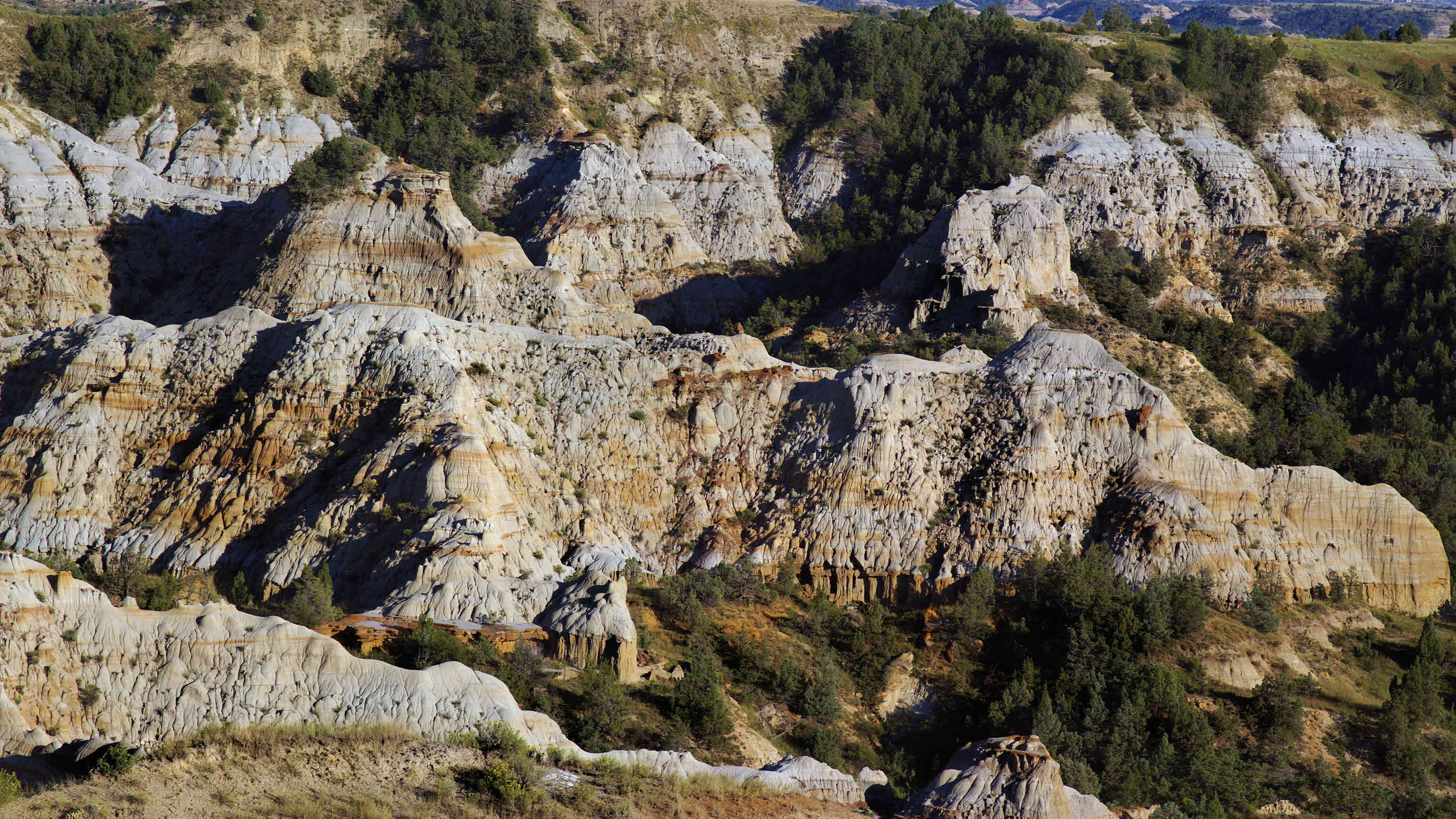
I still can't believe the diversity of this landscape.
The buffalo hunt.
Joe began to look upon his "tenderfoot" with a kind of awe, which was not diminished when Roosevelt, blowing up a rubber pillow which he carried with him, casually remarked one night that his doctors back East had told him that he did not have much longer to live, and that violent exercise would be immediately fatal.
They returned to Lang's, Roosevelt remarking to himself that it was "dogged that does it," and ready to hunt three weeks if necessary to get his buffalo.
Source: Hagedorn's biography of Roosevelt.
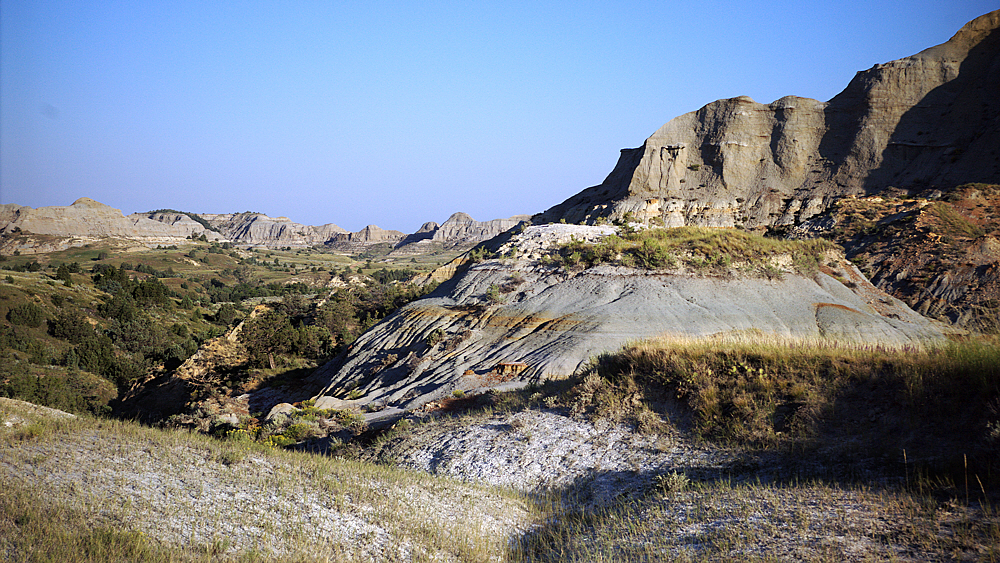
Like a long peek into a different universe.
Roosevelt goes into the cattle business with Sylvane Ferris and Bill Merrifield.
...after supper Roosevelt sat on a log outside Lang's cabin with the two ranchmen and asked them how much in their opinion it would cost adequately to stock a cattle-ranch.
"Depends what you want to do," answered Sylvane. "But my guess is, if you want to do it right, that it'll spoil the looks of forty thousand dollars."
"How much would you need right off?" Roosevelt went on.
"Oh, a third would make a start."
"Could you boys handle the cattle for me?"
"Why, yes," said Sylvane in his pleasant, quiet drawl, "I guess we could take care of 'em 'bout as well as the next man."
"Why, I guess so!" ejaculated Merrifield.
"Well, will you do it?"
...
"All right," remarked Sylvane. "Then the best thing for us to do is to go to Minnesota an' see those men an' get released from our contract. When that's fixed up, we can make any arrangements you've a mind to."
"That will suit me."
Roosevelt drew a checkbook from his pocket, and there, sitting on the log...wrote a check, not for the contemplated five thousand dollars, but for fourteen, and handed it to Sylvane. Merrifield and Sylvane, he directed, were to purchase a few hundred head of cattle that fall...
"Don't you want a receipt?" asked Merrifield at last.
"Oh, that's all right," said Roosevelt. "If I didn't trust you men, I wouldn't go into business with you."
They shook hands all around; whereupon they dropped the subject from conversation and talked about game.
"We were sitting on a log," said Merrifield, many years later, "up at what we called Cannonball Creek. He handed us a check for fourteen thousand dollars, handed it right over to us on a verbal contract. He didn't have a scratch of a pen for it."
"All the security he had for his money," added Sylvane, "was our honesty."
The man from the East, with more than ordinary ability to read the faces of men, evidently thought that that was quite enough.
Source: Hagedorn's biography of Roosevelt.
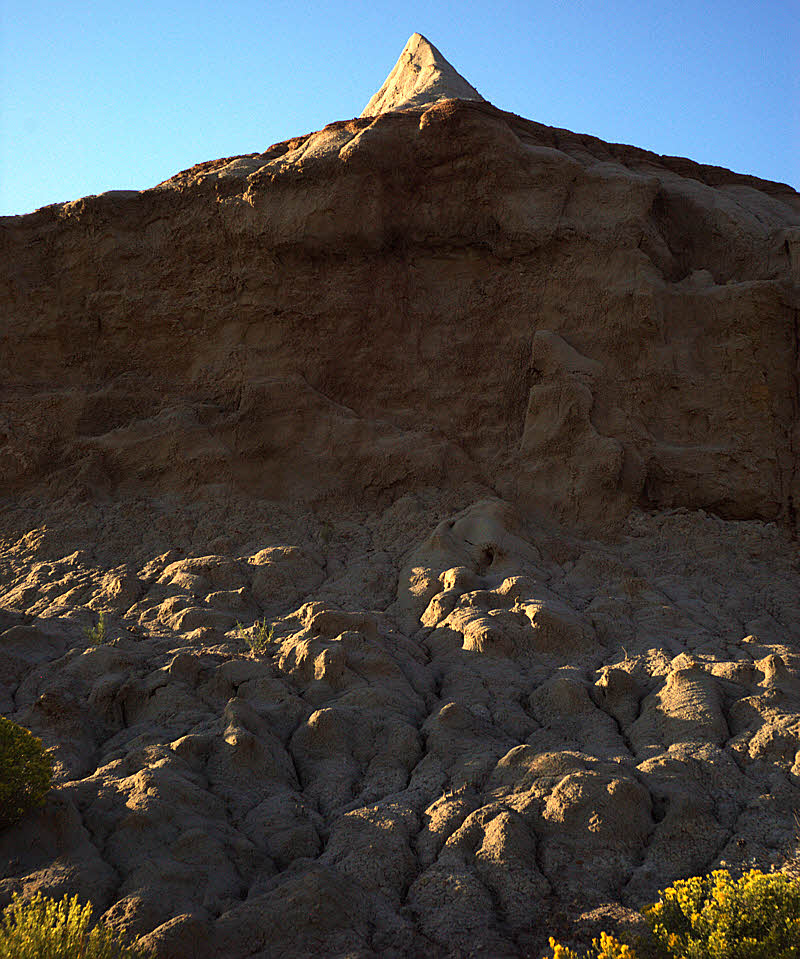
More pointy bits.
The hunt ends.
Early next day Roosevelt returned with Joe to the place where they had left the buffalo and with endless labor skinned the huge beast and brought the head and slippery hide to camp.
The next morning Roosevelt took his departure.
Gregor Lang watched the mounted figure ride off beside the rattling buckboard. "He is the most extraordinary man I have ever met," he said to Lincoln. "I shall be surprised if the world does not hear from him one of these days."
Source: Hagedorn's biography of Roosevelt.
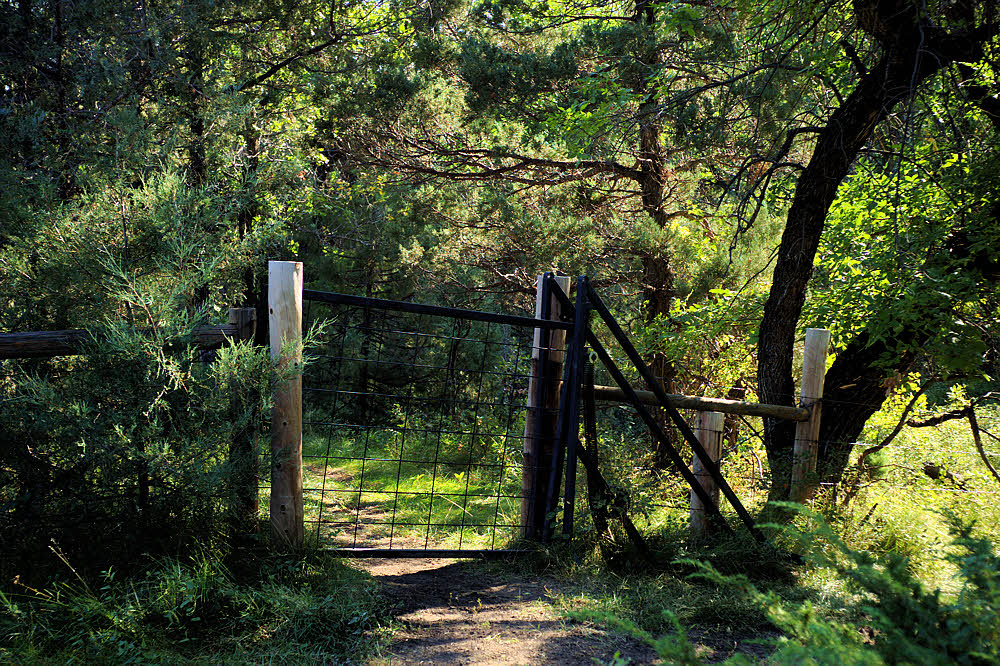
Magic gate. Hinge at upper right. Rotates clockwise. Spring loaded. North Dakota invention.
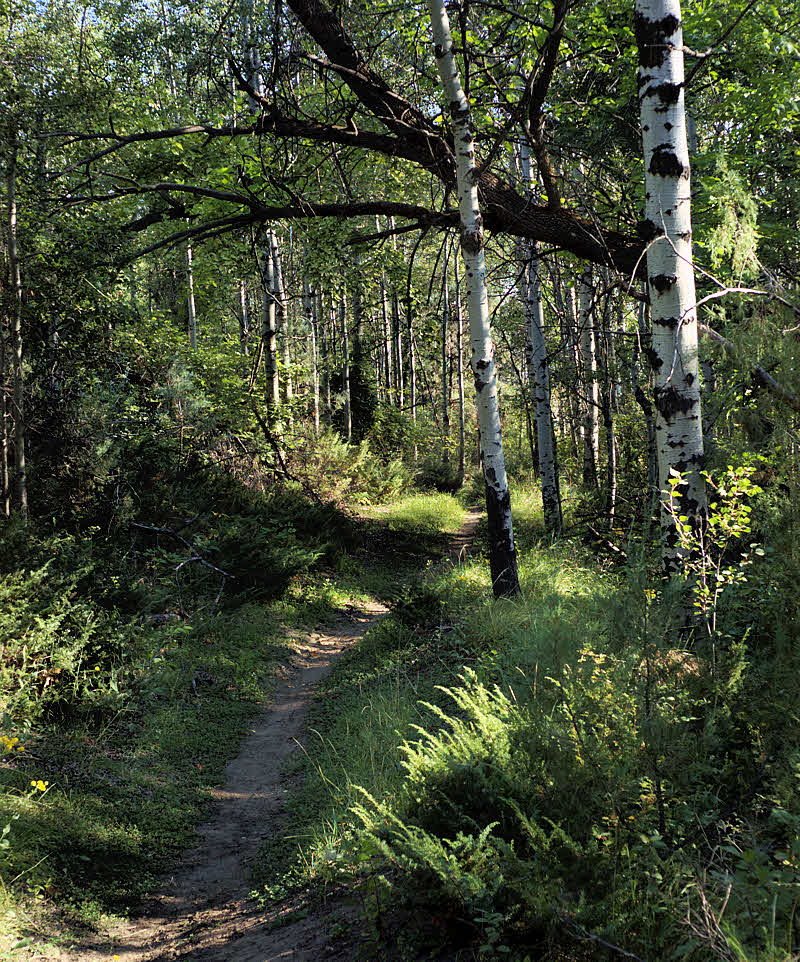
What lies beyond the gate.
Seeking.
Some came for lungs, and some for jobs,
And some for booze at Big-mouth Bob's,
Some to punch cattle, some to shoot,
Some for a vision, some for loot;
Some for views and some for vice,
Some for faro, some for dice;
Some for the joy of a galloping hoof,
Some for the prairie's spacious roof,
Some to forget a face, a fan,
Some to plumb the heart of man;
Some to preach and some to blow,
Some to grab and some to grow,
Some in anger, some in pride,
Some to taste, before they died,
Life served hot and a la cartee-
And some to dodge a necktie-party.
— From Medora Nights
Source: Hagedorn's biography of Roosevelt.
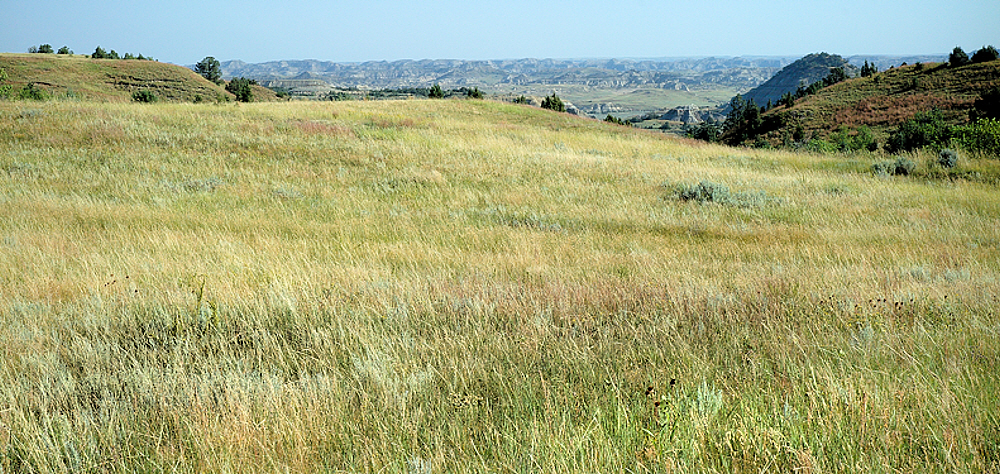
Up above, more grass and sunlight.
Roosevelt's character.
Roosevelt was enough of a boy to relish things that were blood-curdling.
Years after, a friend of Roosevelt's, who had himself committed almost every crime in the register, remarked; in commenting in a tone of injured morality on Roosevelt's frank regard for a certain desperate character, that "Roosevelt had a weakness for murderers." The reproach has a delightful suggestiveness.
Whether it was merited or not is a large question on which Roosevelt himself might have discoursed with emphasis and humor. If he actually did possess such a weakness, Little Missouri and the boom town were fully able to satisfy it.
Source: Hagedorn's biography of Roosevelt.
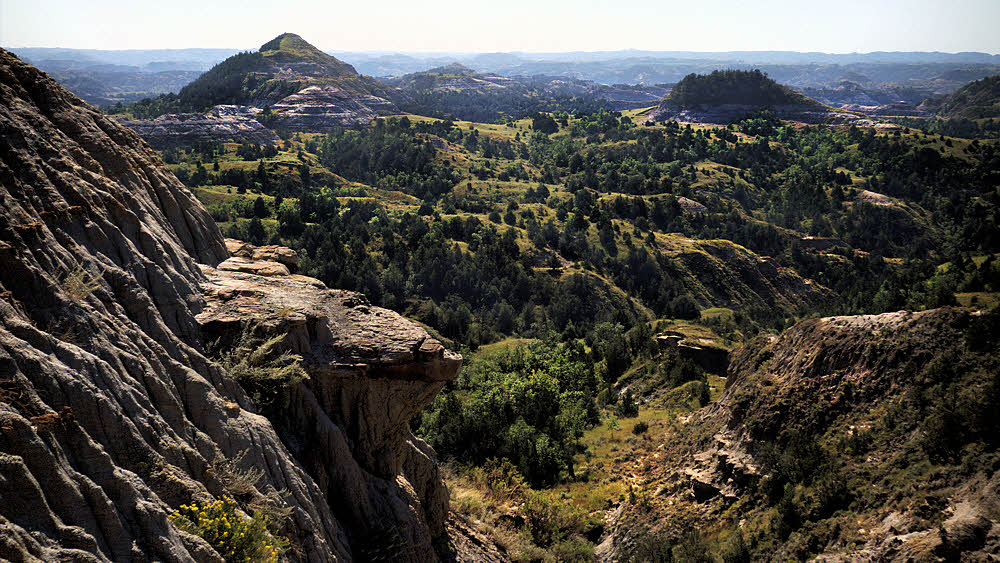
Big landscape in a small state.
Two towns: Little Missouri and Medora.
"Little Missouri was a terrible place," remarked, years after, a man who had had occasion to study it. It was, in fact, "wild and woolly" to an almost grotesque degree, and the boom town was if anything a little cruder than its twin across the river.
The men who had drifted into Medora after the news was noised abroad that "a crazy Frenchman" was making ready to scatter millions there, were, many of them, outcasts of society, reckless, greedy, and conscienceless; fugitives from justice with criminal records, and gunmen who lived by crooked gambling and thievery of every sort.
The best of those who had come that summer to seek adventure and fortune on the banks of the Little Missouri were men who cared little for their personal safety, courting danger wherever it beckoned, careless of life and limb, reticent of speech and swift of action, light-hearted and altogether human.
They were the adventurous and unfettered spirits of hundreds of communities whom the restrictions of respectable society had galled. Here they were, elbowing each other in a little corner of sagebrush country where there was little to do and much whiskey to drink; and the hand of the law was light and far away.
Somewhere, hundreds of miles to the south, there was a United States marshal; somewhere a hundred and fifty miles to the east there was a sheriff. Neither Medora nor Little Missouri had any representative of the law whatsoever, no government or even a shadow of government. The feuds that arose were settled by the parties involved in the ancient manner of Cain.
Source: Hagedorn's biography of Roosevelt.
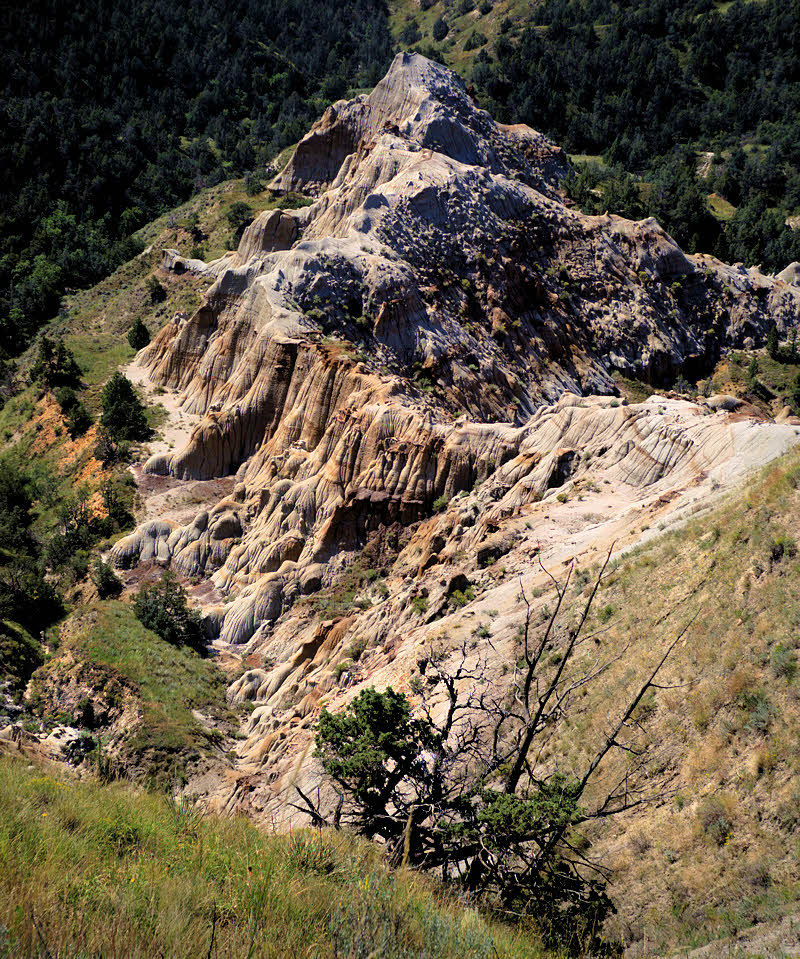
Adventure beckoning.
Women and children.
The banks of the Little Missouri in those days of September, 1883, were no place for soft hands or faint hearts; and a place for women only who had the tough fiber of the men. There were scarcely a half-dozen of them in all the Bad Lands up and down the river.
In Little Missouri there were four — Mrs. Roderick, who was the cook at the Pyramid Park Hotel; Mrs. Paddock, wife of the livery-stable keeper; Mrs. Pete McGeeney who kept a boarding-house next to Johnny Nelson's store; and her neighbor and eternal enemy, Mrs. Fitzgerald.
Pete McGeeney was a section-boss on the railroad, but what else he was, except the husband of Mrs. McGeeney, is obscure. He was mildly famous in Little Missouri because he had delirium tremens, and now and then when he went on a rampage had to be lassoed.
Mrs. McGeeney's feud with Mrs. Fitzgerald was famous throughout the countryside. They lived within fifty feet of each other, which may have been the cause of the extreme bitterness between them, for they were both Irish and their tongues were sharp.
Little Missouri had, until now, known only one child, but that one had fully lived up to the best traditions of the community. It was Archie Maunders, his father's image and proudest achievement. At the age of twelve he held up Fitzgerald, the roadmaster, at the point of a pistol, and more than once delayed the departure of the Overland Express by shooting around the feet of the conductors.
Whether he was still the waiter at the Pyramid Park Hotel when Roosevelt arrived there is dark, for it was sometime that autumn that a merciful God took Archie Maunders to him before he could grow into the fullness of his powers. He was only thirteen or fourteen years old when he died, but even the guidebook of the Northern Pacific had taken notice of him, recounting the retort courteous he had delivered on one occasion when he was serving the guests at the hotel.
"Tea or coffee?" he asked one of the "dudes" who had come in on the Overland.
"I'll take tea, if you please," responded the tenderfoot.
"You blinkety blank son of a blank!" remarked Archie, "you'll take coffee or I'll scald you!"
The "dude" took coffee.
His "lip" was, indeed, phenomenal, and one day when he aimed it at Darius Vine (who was not a difficult mark), that individual bestirred his two hundred and fifty pounds and set about to thrash him. Archie promptly drew his "six-shooter," and as Darius, who was not conspicuous for courage, fled toward the Cantonment, Archie followed, shooting about his ears and his heels. Darius reached his brother's store, nigh dead, just in time to slam the door in Archie's face. Archie shot through the panel and brought Darius down with a bullet in his leg.
Archie's "gayety" with his "six-shooter" seemed to stir no emotion in his father except pride. But when Archie finally began to shoot at his own brother, Jake Maunders mildly protested. "Golly, golly," he exclaimed, "don't shoot at your brother. If you want to shoot at anybody, shoot at somebody outside the family."
Whether or not the boy saw the reasonableness of this paternal injunction is lost in the dust of the years. But the aphorism that the good die young has no significance so far as Archie Maunders is concerned.
Source: Hagedorn's biography of Roosevelt.
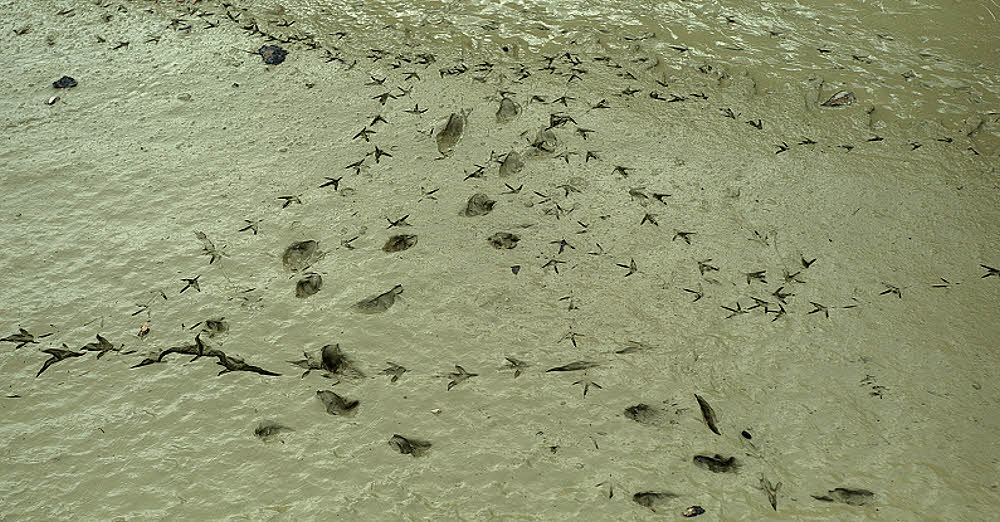
Secrets in muck. Life unseen. Stories not told.
de Mores.
When one day in March, 1883, a striking young Frenchman, who said he was a nobleman, came to Little Missouri with a plan ready-made to build a community there to rival Omaha, and a business that would startle America's foremost financiers, the citizens of the wicked little frontier settlement, who thought that they knew all the possibilities of "tenderfeet" and "pilgrims" and "how-do-you-do-boys," admitted in some bewilderment that they had been mistaken.
The Frenchman's name was Antoine de Vallombrosa, Marquis de Mores. He was a member of the Orleans family, son of a duke, a "white lily of France," remotely in line for the throne; an unusually handsome man, tall and straight, black of hair and moustache, twenty-five or twenty-six years old, athletic, vigorous, and commanding.
He had been a French officer, a graduate of the French military school of Saint Cyr, and had come to America following his marriage abroad with Medora von Hoffman, the daughter of a wealthy New York banker of German blood.
His cousin, Count Fitz James, a descendant of the Jacobin exiles, had hunted in the Bad Lands the year previous, returning to France with stories of the new cattle country that stirred the Marquis's imagination.
He was an adventurous spirit. "He had no judgment," said Merrifield, "but he was a fighter from hell." The stories of life on the frontier lured him as they had lured others, but the dreams that came to him were more complex and expensive dreams than those which came to the other young men who turned toward Dakota in those early eighties.
The Marquis arrived in Little Missouri with his father-in-law's millions at his back and a letter of introduction to Howard Eaton in his pocket. The letter, from a prominent business man in the East, ended, it seemed to Eaton, rather vaguely: "I don't know what experience he has had in business or anything of that kind, but he has some large views."
The Marquis enthusiastically unfolded these views. "I am going to build an abattoir. I am going to buy all the beef, sheep, and hogs that come over the Northern Pacific, and I am going to slaughter them here and then ship them to Chicago and the East."
"I don't think you have any idea how much stock comes over the Northern Pacific," Eaton remarked.
"It doesn't matter!" cried the Marquis. "My father-in-law has ten million dollars and can borrow ten million dollars more. I've got old Armour and the rest of them matched dollar for dollar."
Eaton said to himself that unquestionably the Marquis's views were "large."
"Do you think I am impractical?" the Marquis went on. "I am not impractical. My plan is altogether feasible. I do not merely think this. I know. My intuition tells me so. I pride myself on having a natural intuition. It takes me only a few seconds to understand a situation that other men have to puzzle over for hours. I seem to see every side of a question at once. I assure you, I am gifted in this way. I have wonderful insight."
The Marquis formed the Northern Pacific Refrigerator Car Company with two brothers named Haupt as his partners and guides; and plunged into his dream as a boy into a woodland pool. But it did not take him long to discover that the water was cold.
Frank Vine offered to sell out the Little Missouri Land and Cattle Company to him for twenty-five thousand dollars, and when the Marquis, discovering that Frank had nothing to sell except a hazy title to a group of ramshackle buildings, refused to buy, Frank's employers intimated to the Marquis that there was no room for the de Mores enterprises in Little Missouri.
The Marquis responded by buying what was known as Valentine scrip, or soldiers' rights, to the flat on the other side of the river and six square miles around it, with the determination of literally wiping Little Missouri off the map. On April Fool's Day, 1883 — auspicious date! — he pitched his tent in the sagebrush and founded the town of Medora.
The population of Little Missouri did not exhibit any noticeable warmth toward him or his dream.
The hunters did not like "dudes" of any sort, but foreign "dudes" were particularly objectionable to them. His plans, moreover, struck at the heart of their free and untrammeled existence. As long as they could live by what their guns brought down, they were independent of the machinery of civilization.
The coming of cattle and sheep meant the flight of antelope and deer. Hunters, to live, would have to buy and sell like common folk. That meant stores and banks, and these in time meant laws and police-officers; and police-officers meant the collapse of Paradise. It was all wrong.
Source: Hagedorn's biography of Roosevelt.
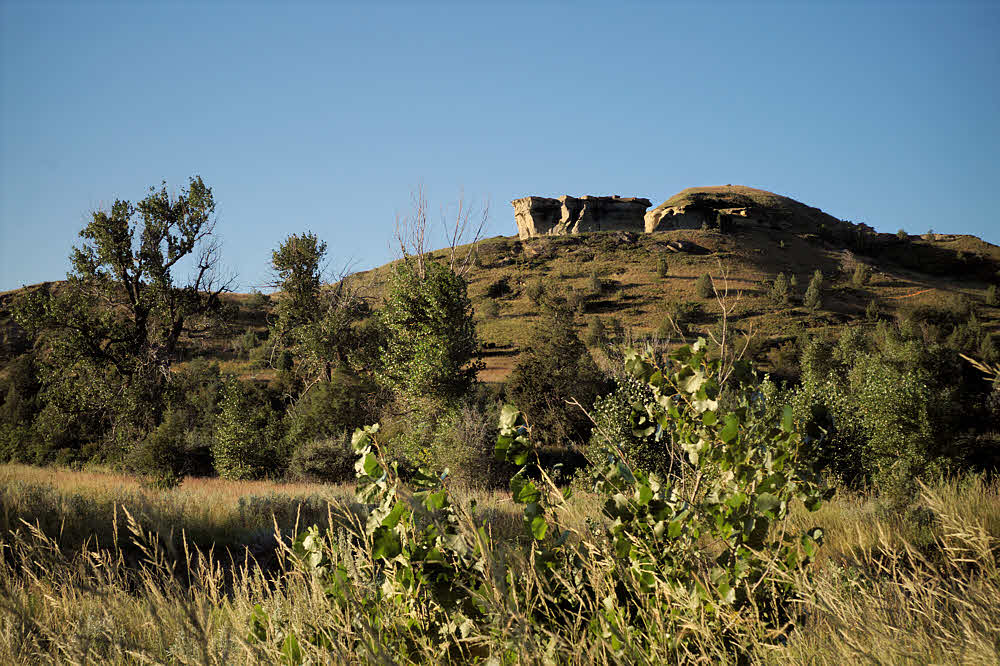
View from a campsite near the river.
A man dies.
Insidiously Jake Maunders drew the Marquis into a quarrel, in which he himself was involved, with a hunter named Frank O'Donald and his two friends, John Reuter, known as "Dutch Wannigan," and Riley Luffsey. He was a crafty Iago, and the Marquis, born in a rose-garden and brought up in a hot-house, was guileless and trusting. Incidentally, the Marquis was "land hungry" and not altogether tactful in regarding the rights of others. Maunders carried blood-curdling tales from the Marquis to O'Donald and back again, until, as Howard Eaton remarked, "every one got nervous."
"What shall I do?" the Marquis asked Maunders, unhappily, when Maunders reported that O'Donald was preparing for hostilities.
"Look out," answered Maunders, "and have the first shot."
The Marquis went to Mandan to ask the local magistrate for advice. "There is the situation," he said. "What shall I do?"
"Why, shoot," was the judicial reply.
What followed is dead ashes, that need not be raked over. Just west of the town where the trail ran along the railroad track, the Marquis and his men fired at the hunters from cover. O'Donald and "Wannigan" were wounded, Riley was killed. Maunders, claiming that the hunters had started the shooting, charged them with manslaughter, and had them arrested.
The Marquis was arrested and acquitted.
The excitement subsided. Riley Luffsey slept undisturbed on Graveyard Butte; the Marquis took up again the amazing activities which the episode of the quarrel had interrupted; and Maunders, his mentor, flourished like the green bay tree.
All this was in the summer of 1883.
Source: Hagedorn's biography of Roosevelt.
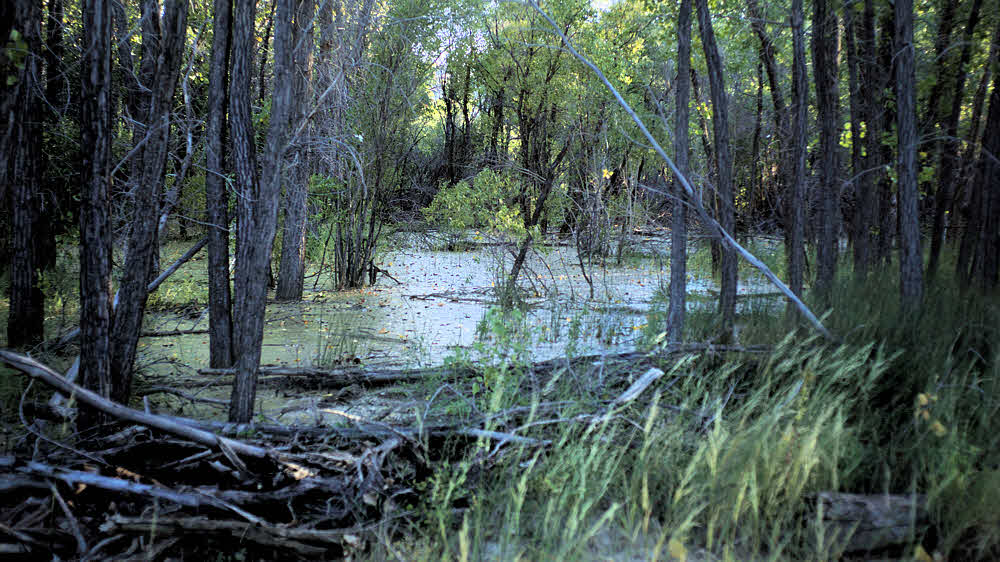
And looking to the left, a profoundly odd little swamp.
The Frenchman's business sense.
The Haupt brothers, it was said, were finding their senior partner somewhat of a care.
He bought steers, and found, when he came to sell them as beef, that he had bought them at too high a price; he bought cows and found that the market would not take cow-meat at all.
Thereupon (lest the cold facts which he had acquired concerning cattle should rob him of the luxury of spacious expectations) he bought five thousand dollars worth of broncos. He would raise horses, he declared, on an unprecedented scale.
The horses had barely arrived when the Marquis announced that he intended to raise sheep also. The Haupt brothers protested, but the Marquis was not to be diverted.
The hunters and cattlemen looked on in anger and disgust as sheep and ever more sheep began to pour into the Bad Lands. They knew, what the Marquis did not know, that sheep nibble the grass so closely that they kill the roots, and ruin the pasture for cattle and game.
By the time Roosevelt left Little Missouri the end of September, the sheep were already beginning, one by one, to perish.
But by this time the Marquis was absorbed in a new undertaking and was making arrangements to ship untold quantities of buffalo-meat and other game on his refrigerator cars to Eastern markets, unaware that a certain young man with spectacles had just shot one of the last buffalo that the inhabitants of Little Missouri were ever destined to see.
Source: Hagedorn's biography of Roosevelt.
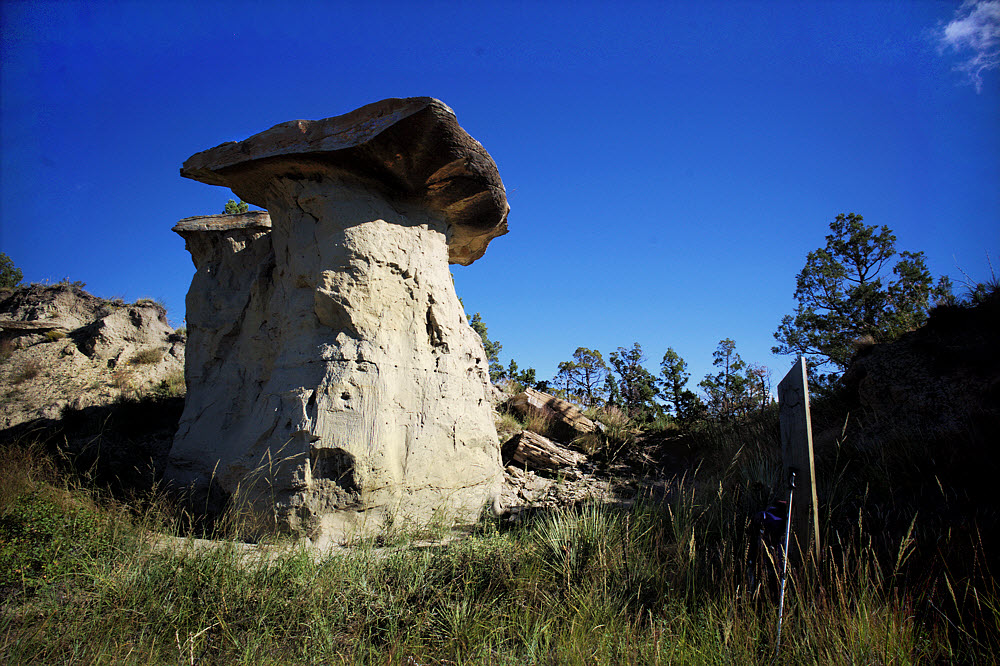
Caprock. The trail winds around it, left to right and gone again.
$300,000.
Little Missouri was cultivating the air of one who is conscious of imminent greatness. The Marquis was extending his business in a way to stir the imagination of any community.
In Miles City he built a slaughter-house, in Billings he built another. He established offices in St. Paul, in Brainerd, in Duluth. He built refrigerator plants and storehouses in Mandan and Bismarck and Vedalles and Portland.
His plan, on the surface, was practical. It was to slaughter on the range the beef that was consumed along the Northern Pacific Railway, west of St. Paul. The Marquis argued that to send a steer on the hoof from Medora to Chicago and then to send it back in the form of beef to Helena or Portland was sheer waste of the consumer's money in freight rates.
A steer, traveling for days in a crowded cattle-car, moreover, had a way of shrinking ten per cent in weight. It was more expensive, furthermore, to ship a live steer than a dead one.
Altogether, the scheme appeared to the Marquis as a heaven-sent inspiration; and cooler-headed business men than he accepted it as practical. The cities along the Northern Pacific acclaimed it enthusiastically, hoping that it meant cheaper beef; and presented the company that was exploiting it with all the land it wanted.
The Marquis might have been forgiven if, in the midst of the cheering, he had strutted a bit. But he did not strut. The newspapers spoke of his "modest bearing" as he appeared in hotel corridors in Washington and St. Paul and New York, with a lady whose hair was "Titan-red," as the Pioneer Press of St. Paul had it, and who, it was rumored, was a better shot than the Marquis.
He had great charm, and there was something engaging in the perfection with which he played the grand seigneur.
"How did you happen to go into this sort of business?" he was asked.
"I wanted something to do," he answered.
In view of the fact that before his first abattoir was in operation he had spent upwards of three hundred thousand dollars, an impartial observer might have remarked that his desire for activity was expensive.
Source: Hagedorn's biography of Roosevelt.
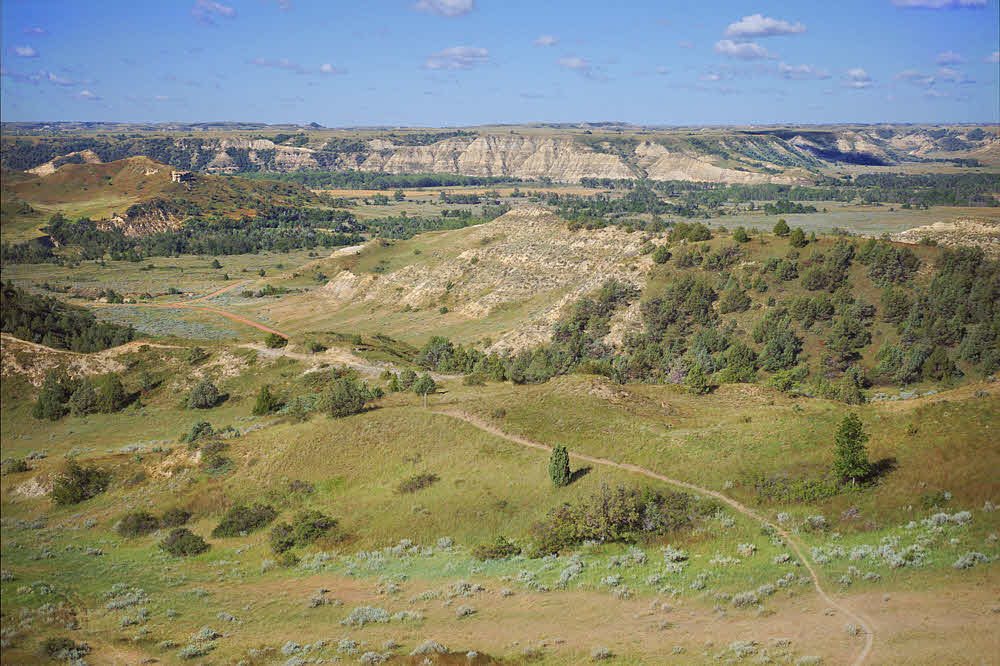
This is vast panorama country. There is air enough here for everyone. Trail marker in center.
The new school.
Lively it was; but its liveliness was not all thievery and violence. "On November 5th," the Dickinson Press announces, "the citizens of Little Missouri opened a school."
Whom they opened it for is dark as the ancestry of Melchizedek. But from somewhere some one procured a teacher, and in the saloons the cowboys and the hunters, the horse-thieves and gamblers and fly-by-nights and painted ladies "chipped in" to pay his "board and keep."
The charm of this outpouring of dollars in the cause of education is not dimmed by the fact that the school-teacher, in the middle of the first term, discovered a more profitable form of activity and deserted his charges to open a saloon.
Source: Hagedorn's biography of Roosevelt.
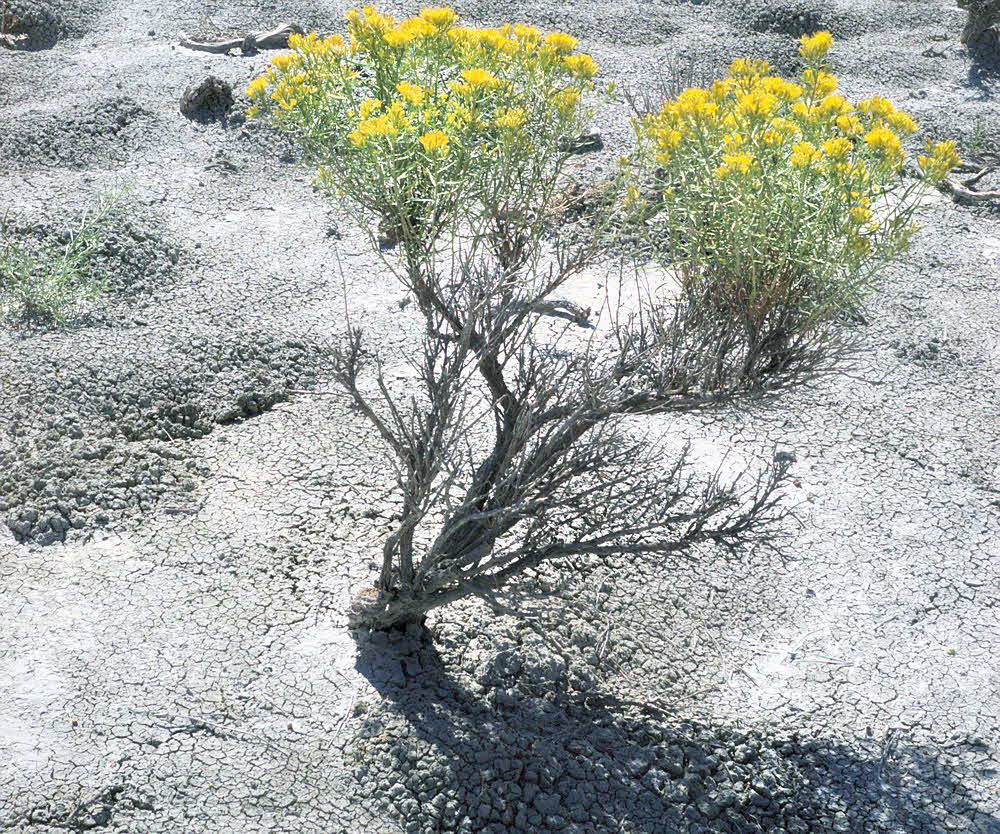
Bentonite, bush, and brilliant sunshine.
The king of cabbages.
The Marquis, as usual, secreted himself from the stern eyes of Experience, in the radiant emanations of a new dream. The Dickinson Press announced it promptly:
The Marquis de Mores has a novel enterprise under way, which he is confident will prove a success, it being a plan to raise 50,000 cabbages on his ranch at the Little Missouri, and have them ready for the market April 1.
They will be raised under glass in some peculiar French manner, and when they have attained a certain size, will be transplanted into individual pots and forced rapidly by rich fertilizers, made from the offal of the slaughter-houses and for which preparation he owns the patent.
Should the cabbages come out on time, he will try his hand on other kinds of vegetables, and should he succeed the citizens along the line will have an opportunity to get as early vegetables as those who live in the sunny South.
The cabbages were a dream which seems never to have materialized even to the point of being a source of expense, and history speaks no more of it.
Source: Hagedorn's biography of Roosevelt.
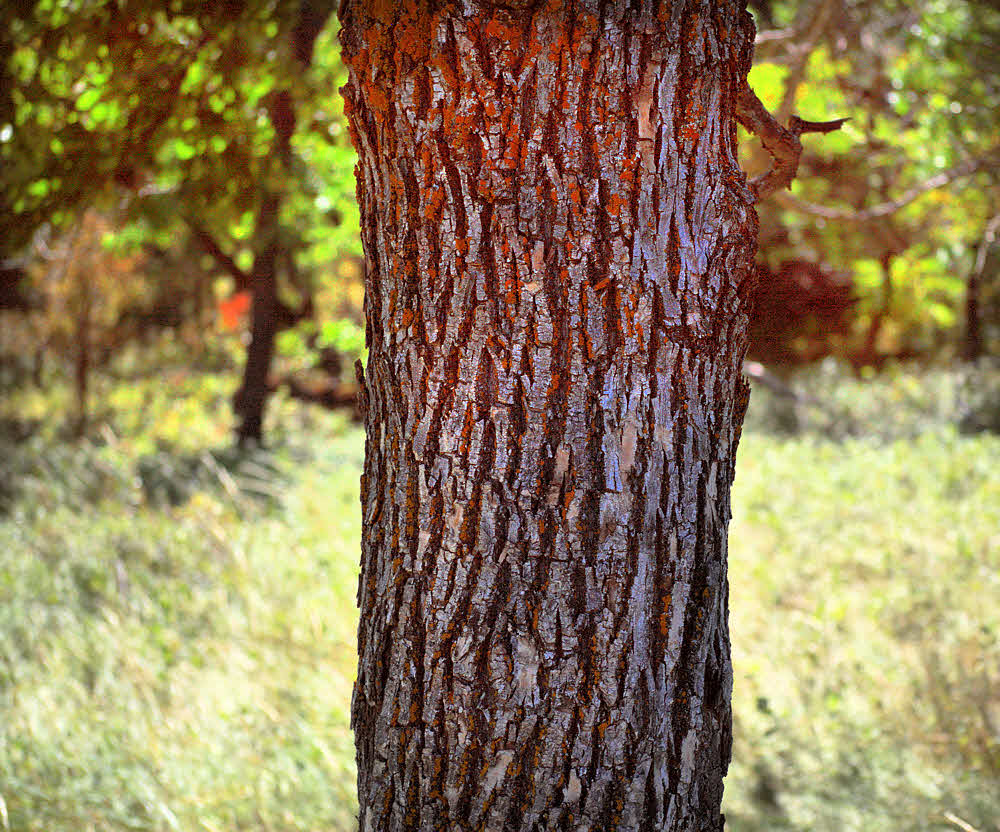
I'm always encouraged by the vitality and endurance of trees. Stand on, my friend.
Johnny Nelson goes bust
"You give me the keys," said Jake Maunders, "and I'll see that the sheriff don't get your stuff."
Johnny in his innocence gave up the keys. That night Jake Maunders and his "gang" entered the store and completely cleaned it out. They did not leave a button or a shoestring. It was said afterwards that Jake Maunders did not have to buy a new suit of clothes for seven years, and even Williams's two tame bears wore ready-made coats from St. Paul.
Johnny Nelson went wailing to Katie, his betrothed.
"I've lost everything!" he cried. "I've lost all my goods and I can't get more. I've lost my reputation. I can't marry you. I've lost my reputation."
Katie was philosophic about it. "That's all right, Johnny," she said comfortingly, "I lost mine long ago."
At that, Johnny "skipped the country."
Source: Hagedorn's biography of Roosevelt.
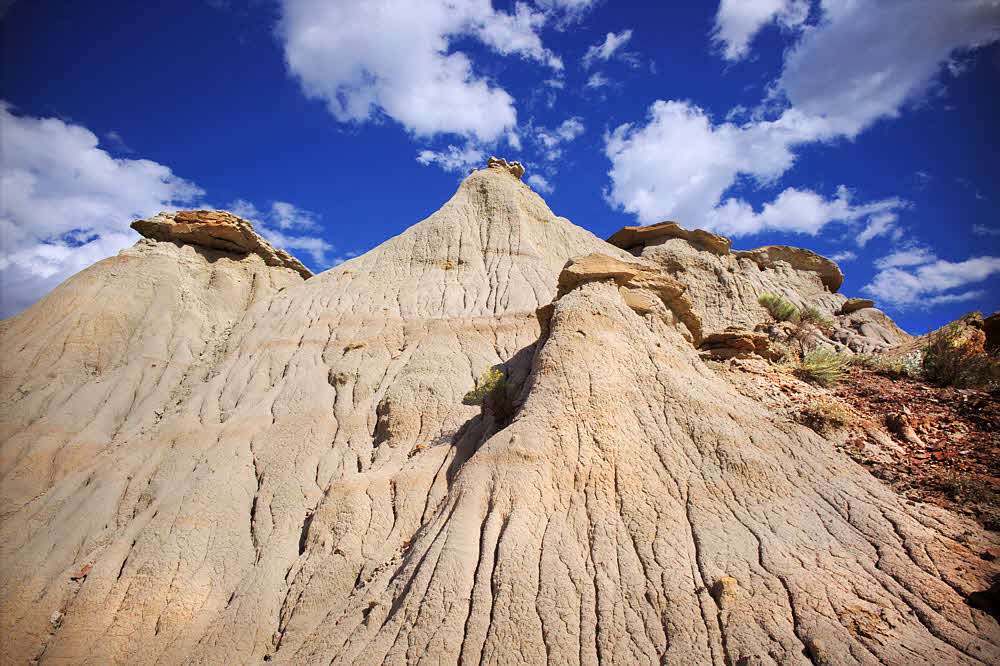
And I would not want to be here during the rainy season. This stuff is like glue.
Death.
Life was running, on the whole, very smoothly for Theodore Roosevelt when in January, 1884, he entered upon his third term in the [New York] Legislature. He was happily married, he had wealth, he had a notable book on the War of 1812 to his credit; he had, it seemed, a smooth course ahead of him, down pleasant roads to fame.
On February 12th, at ten o'clock in the morning, his wife gave birth to a daughter. At five o'clock the following morning his mother died. Six hours later his wife died.
He was stunned and dazed, but within a week after the infinitely pathetic double funeral he was back at his desk in the Assembly, ready to fling himself with every fiber of energy at his command into the fight for clean government.
He supported civil service reform; he was chairman of a committee which investigated certain phases of New York City official life, and carried through the Legislature a bill taking from the Board of Aldermen the power to reject the Mayor's appointments. He was chairman and practically the only active member of another committee to investigate living conditions in the tenements of New York, and as spokesman of the worn and sad-looking foreigners who constituted the Cigar-Makers' Union, argued before Governor Cleveland for the passage of a bill to prohibit the manufacture of cigars in tenement-houses.
His energy was boundless, it seemed, but the heart had gone out of him. He was restless, and thought longingly of the valley of the Little Missouri.
Source: Hagedorn's biography of Roosevelt.
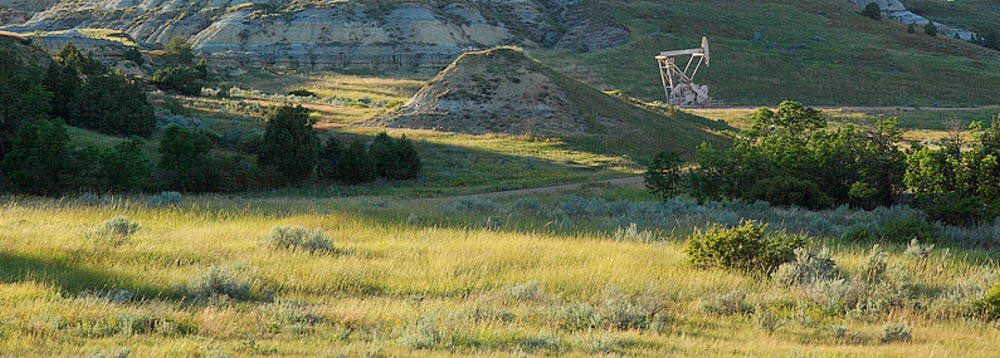
Everywhere you look, another oil well.
Mrs. Maddox and the buckskin suit.
"Lincoln," [Roosevelt] said, "there are two things I want to do. I want to get an antelope, and I want to get a buckskin suit."
Lincoln thought that he could help him to both. Some twenty miles to the east lived a woman named Mrs. Maddox who had acquired some fame in the region by the vigorous way in which she had handled the old reprobate who was her husband; and by her skill in making buckskin shirts.
She was a dead shot, and it was said of her that even "Calamity Jane," Deadwood's "first lady," was forced "to yield the palm to Mrs. Maddox when it came to the use of a vocabulary which adequately searched every nook and cranny of a man's life from birth to ultimate damnation."
They found her in her desolate, little mud-roofed hut on Sand Creek, a mile south of the old Keogh trail. She was living alone, having recently dismissed her husband in summary fashion.
It seems that he was a worthless devil, who, under the stimulus of some whiskey he had obtained from an outfit of Missouri "bull-whackers" who were driving freight to Deadwood, had picked a quarrel with his wife and attempted to beat her.
She knocked him down with a stove-lid lifter and the "bull-whackers" bore him off, leaving the lady in full possession of the ranch. She now had a man named Crow Joe working for her, a slab-sided, shifty-eyed ne'er-do-well, who was suspected of stealing horses on occasion.
She measured Roosevelt for his suit and gave him and Lincoln a dinner that they remembered.
A vigorous personality spoke out of her every action.
Roosevelt regarded her with mingled amusement and awe.
Source: Hagedorn's biography of Roosevelt.
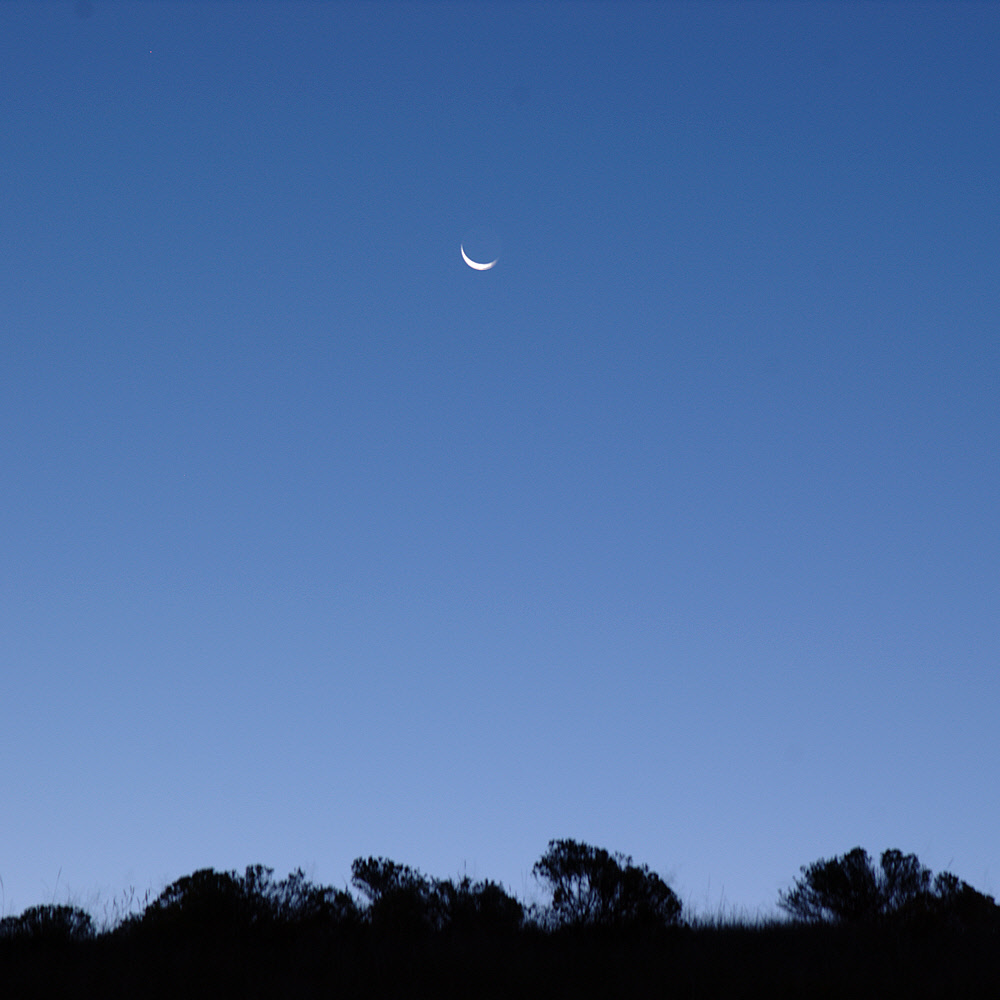
Silence, the moon and me. No complaints.
Cowpunchers' delight.
He found the work stirring and the men singularly human and attractive. They were free and reckless spirits, who did not much care, it seemed, whether they lived or died; profane youngsters, who treated him with respect in spite of his appearance because they respected the men with whom he had associated himself. They came from all parts of the Union and spoke a language all their own.
"We'll throw over an' camp to-night at the mouth o' Knutson Creek," might run the round-up captain's orders. "Nighthawk'll be corralin' the cavvy in the mornin' 'fore the white crow squeals, so we kin be cuttin' the day-herd on the bed-groun'. We'll make a side-cut o' the mavericks an' auction 'em off pronto soon's we git through."
All that was ordinary conversation. When an occasion arose which seemed to demand a special effort, the talk around the "chuck-wagon" was so riddled with slang from all corners of the earth, so full of startling imagery, that a stranger might stare, bewildered, unable to extract a particle of meaning. And through it blazed such a continual shower of oaths, that were themselves sparks of satanic poetry, that, in the phrase of one contemplative cowpuncher, "absodarnnlutely had to be parted in the middle to hold an extra one."
It was to ears attuned to this rich and racy music that Roosevelt came with the soft accents of his Harvard English. The cowboys bore up, showing the tenderfoot the frigid courtesy they kept for "dudes" who happened to be in company, which made it impolite or inexpedient to attempt "to make the sucker dance."
It happened, however, that Roosevelt broke the camel's back. Some cows which had been rounded up with their calves made a sudden bolt out of the herd. Roosevelt attempted to head them back, but the wily cattle eluded him.
"Hasten forward quickly there!" Roosevelt shouted to one of his men.
The bounds of formal courtesy could not withstand that. There was a roar of delight from the cowpunchers, and, instantly, the phrase became a part of the vocabulary of the Bad Lands. That day, and on many days thereafter when "Get a git on yuh!" grew stale and "Head off them cattle!" seemed done to death, he heard a cowpuncher shout, in a piping voice, "Hasten forward quickly there!"
Roosevelt, in fact, was in those first days considered somewhat of a joke. Beside Gregor Lang, forty miles to the south, he was the only man in the Bad Lands who wore glasses. Lang's glasses, moreover, were small and oval; Roosevelt's were large and round, making him, in the opinion of the cowpunchers, look very much like a curiously nervous and emphatic owl. They called him "Four Eyes," and spoke without too much respect, of "Roosenfelder."
Source: Hagedorn's biography of Roosevelt.
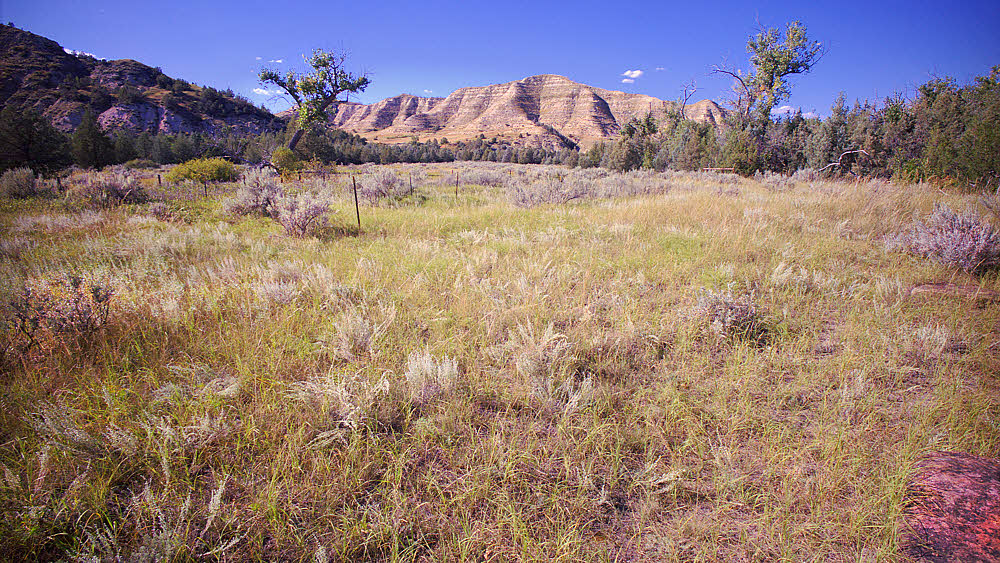
Elkhorn Ranch site. There is a slight trace of foundation but that's all.
Roosevelt writes to his sister Anna.
For the last week I have been fulfilling a boyish ambition of mine; that is, I have been playing at frontier hunter in good earnest, having been off entirely alone, with my horse and rifle, on the prairie. I wanted to see if I could not do perfectly well without a guide, and I succeeded beyond my expectations.
I shot a couple of antelope and a deer — and missed a great many more. I felt as absolutely free as a man could feel; as you know, I do not mind loneliness; and I enjoyed the trip to the utmost. The only disagreeable incident was one day when it rained.
Otherwise the weather was lovely, and every night I would lie wrapped up in my blanket looking at the stars till I fell asleep, in the cool air.
The country has widely different aspects in different places; one day I could canter hour after hour over the level green grass, or through miles of wild-rose thickets, all in bloom; on the next I would be amidst the savage desolation of the Bad Lands, with their dreary plateaus, fantastically shaped buttes, and deep, winding canyons.
I enjoyed the trip greatly, and have never been in better health.
Source: Hagedorn's biography of Roosevelt.
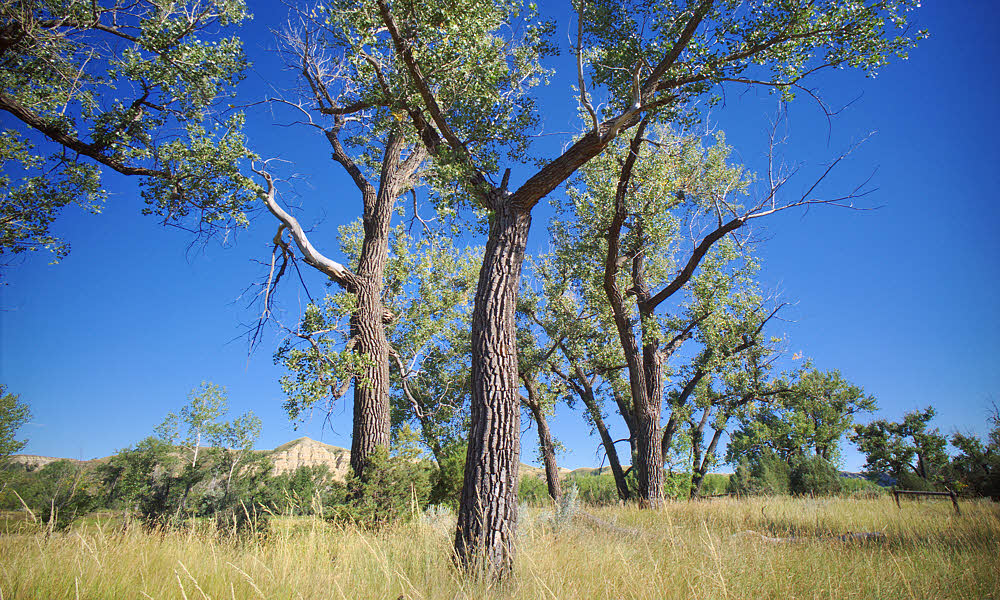
Cottonwood, probably 'Populus deltoides' or eastern cottonwood. Common here.
Women.
With a warm humanity on which the shackles of social prejudice already hung loose, [Roosevelt] moved with open eyes and an open heart among the men and women whom the winds of chance had blown together in the valley of the Little Missouri.
One of the few women up or down the river was living that June at the Custer Trail. She was Margaret Roberts, the wife of the Eatons' foreman, a jovial, garrulous woman, still under thirty, with hair that curled attractively and had a shimmer of gold in it. She was utterly fearless, and was bringing up numerous children, all girls, with a cool disregard of wild animals and wilder men, which, it was rumored shocked her relatives "back East." She had been brought up in Iowa, but ten horses could not have dragged her back.
Four or five miles above the Maltese Cross lived a woman of a different sort who was greatly agitating the countryside, especially Mrs. Roberts.
She had come to the Bad Lands with her husband and daughter since Roosevelt's previous visit, and established a ranch on what was known as "Tepee Bottom." Her husband, whose name, for the purposes of this narrative, shall be Cummins, had been sent to Dakota as ranch manager for a syndicate of Pittsburgh men, why, no one exactly knew, since he was a designer of stoves, and, so far as any one could find out, had never had the remotest experience with cattle. He was an excellent but ineffective little man, religiously inclined, and consequently dubbed "the Deacon."
Nobody paid very much attention to him, least of all his wife. That lady had drawn the fire of Mrs. Roberts before she had been in the Bad Lands a week. She was a good woman, but captious, critical, complaining, pretentious. She had in her youth had social aspirations which her husband and a little town in Pennsylvania had been unable to gratify.
She brought into her life in Dakota these vague, unsatisfied longings, and immediately set to work to remould the manners, customs, and characters of the community a little nearer to her heart's desire. To such an attitude there was, of course, only one reaction possible; and she got it promptly.
Mrs. Roberts, energetic, simple-hearted, vigorous, plain-spoken, was the only woman within a dozen miles, and it was not long before Mrs. Roberts hated Mrs. Cummins as Jeremiah hated Babylon. For Mrs. Cummins was bent on spreading "culture," and Mrs. Roberts was determined that by no seeming acquiescence should it be spread over her.
Source: Hagedorn's biography of Roosevelt.
Section 4: Elkhorn Ranch site to Wannagan Campground.
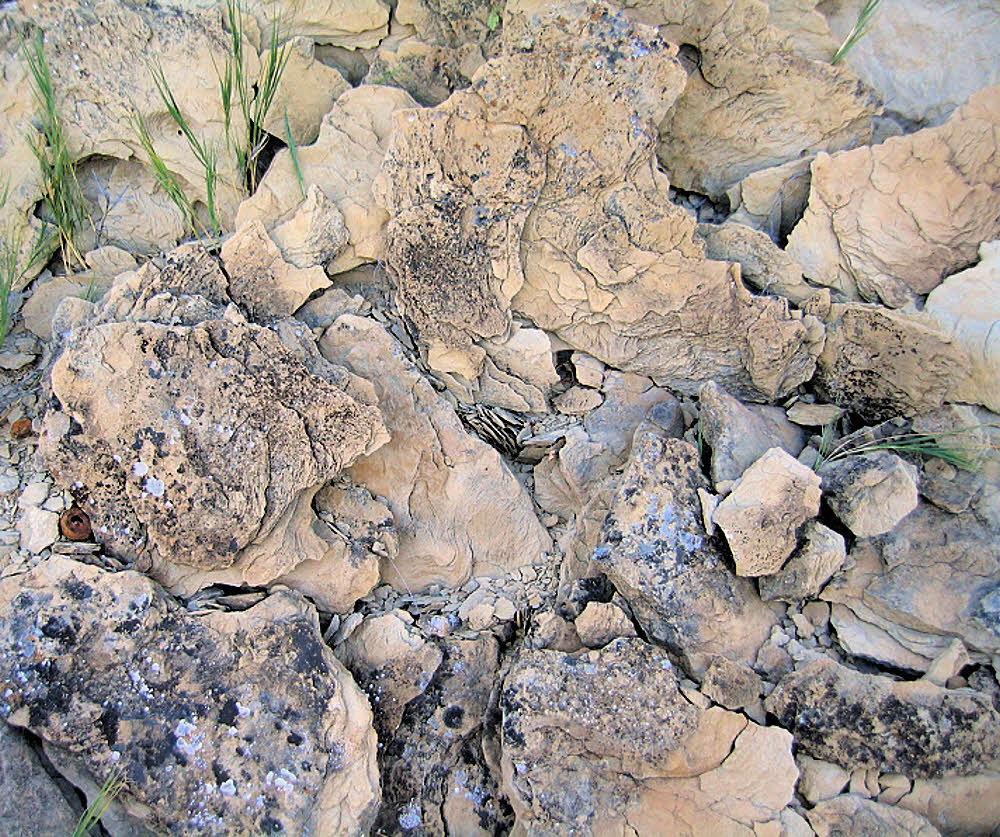
Now for some ground truth.
Meet Hell-Roaring Bill Jones.
Once long ago an ocean lapped this hill,
And where those vultures sail, ships sailed at will;
Queer fishes cruised about without a harbor —
I will maintain there's queer fish round here still.
— The Bad Lands Rubáiyat
"Roosevelt was a great visitor," said Howard Eaton in after time. "When he first came out there, he was a quiet sort of a fellow, with not much to say to anybody, but the best kind of a mixer I ever saw."
The Bad Lands no doubt required the ability to mix with all manner of men, for it was all manner of men that congregated there. Roosevelt evaded the saloons but established friendly relations with the men who did not. When he rode to town for his mail or to make purchases at Joe Ferris's new store, he contracted the habit of stopping at the office of the Bad Lands Cowboy, where those who loved conversation more than whiskey had a way of foregathering.
It was there that he came to know Hell-Roaring Bill Jones.
Bill Jones was a personage in the Bad Lands. He was, in fact, more than that. He was (like Roosevelt himself) one of those rare beings who attain mythical proportions even in their lifetime and draw about themselves the legendry of their generation. Bill Jones was the type and symbol of the care-free negation of moral standards in the wild little towns of the frontier, and men talked of him with an awe which they scarcely exhibited toward any symbol of virtue and sobriety. He said things and he did things which even a tolerant observer, hardened to the aspect of life's seamy side, might have felt impelled to call depraved, and yet Bill Jones himself was not depraved. He was, like the community in which he lived, "free an' easy." Morality meant no more to him than grammar. He outraged the one as he outraged the other, without malice and without any sense of fundamental difference between himself and those who preferred to do neither.
The air was full of tales of his extraordinary doings, for he was a fighter with pistols and with fists and had an ability as a "butter" which was all his own and which he used with deadly effect. What his history had been was a secret which he illuminated only fitfully. It was rumored that he had been born in Ireland of rather good stock, and in the course of an argument with an uncle of his with whom he lived had knocked the uncle down. Whether he had killed him the rumors failed to tell, but the fact that Bill Jones had found it necessary "to dust" to America, under an assumed name, suggested several things. Being inclined to violence, he naturally drifted to that part of the country where violence seemed to be least likely to have serious consequences. By a comic paradox, he joined the police force of Bismarck. He casually mentioned the fact one day to Roosevelt, remarking that he had left the force because he "beat the Mayor over the head with his gun one day."
"The Mayor, he didn't mind it," he added, "but the Superintendent of Police guessed I'd better resign."
He was a striking-looking creature, a man who could turn dreams into nightmares, merely by his presence in them. He was rather short of stature, but stocky and powerfully built, with a tremendous chest and long, apelike arms, hung on a giant's shoulders. The neck was a brute's, and the square protruding jaw was in keeping with it. His lips were thin, his nose was hooked like a pirate's, and his keen black eyes gleamed from under the bushy black eyebrows like a grizzly's from a cave. He was not a thing of beauty, but, at the back of his unflinching gaze, humor in some spritely and satanic shape was always disporting itself, and there was, as Lincoln Lang described it, "a certain built-in look of drollery in his face," which made one forget its hardness.
He was feared and, strange to say, he was loved by the very men who feared him. For he was genial, and he could build a yarn that had the architectural completeness of a turreted castle, created out of smoke by some imaginative minstrel of hell. His language on all occasions was so fresh and startling that men had a way of following him about just to gather up the poppies and the nightshade of his exuberant conversation.
As Will Dow later remarked about him, he was "an awfully good man to have on your side if there was any sassing to be done."
Roosevelt was not one of those who fed on the malodorous stories which had gained for their author the further sobriquet of "Foul-mouthed Bill"; but he rather liked Bill Jones. It happened one day, in the Cowboy office that June, that the genial reprobate was holding forth in his best vein to an admiring group of cowpunchers.
Roosevelt, who was inclined to be reserved in the company of his new associates, endured the flow of indescribable English as long as he could. Then, suddenly, in a pause, when the approving laughter had subsided, he began slowly to "skin his teeth."
"Bill Jones," he said, looking straight into the saturnine face, and speaking in a low, quiet voice, "I can't tell why in the world I like you, for you're the nastiest-talking man I ever heard."
Bill Jones's hand fell on his "six-shooter." The cowpunchers, knowing their man, expected shooting. But Bill Jones did not shoot. For an instant the silence in the room was absolute. Gradually a sheepish look crept around the enormous and altogether hideous mouth of Bill Jones. "I don't belong to your outfit, Mr. Roosevelt," he said, "and I'm not beholden to you for anything. All the same, I don't mind saying that mebbe I've been a little too free with my mouth."
They became friends from that day.
Source: Hagedorn's biography of Roosevelt.
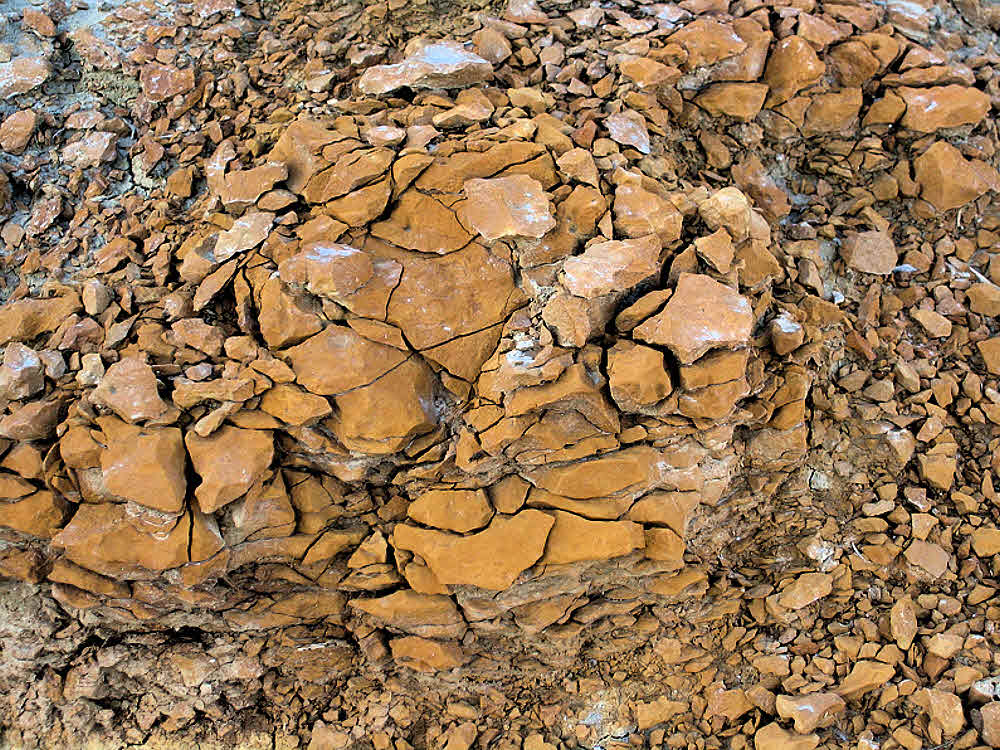
There is always a lot to see if a person only looks.
Meet the Marquis.
If Roosevelt had tried to avoid the Marquis de Mores on his trips to the Marquis's budding metropolis in those June days, he would scarcely have succeeded. The Marquis was the most vivid feature of the landscape in and about Medora.
His personal appearance would have attracted attention in any crowd. The black, curly hair, the upturned moustaches, waxed to needle-points, the heavy eyelids, the cool, arrogant eyes, made an impression which, against that primitive background, was not easily forgotten. His costume, moreover, was extraordinary to the point of the fantastic. It was the Marquis who always seemed to wear the widest sombrero, the loudest neckerchief. He went armed like a battleship. A correspondent of the Mandan Pioneer met him one afternoon returning from the pursuit of a band of cattle which had stampeded. "He was armed to the teeth," ran his report. "A formidable-looking belt encircled his waist, in which was stuck a murderous-looking knife, a large navy revolver, and two rows of cartridges, and in his hand he carried a repeating rifle."
A man who appeared thus dressed and accoutered would either be a master or a joke in a community like Medora. There were several reasons why he was never a joke. His money had something to do with it, but the real reason was, in the words of a contemporary, that "when it came to a show-down, the Marquis was always there."
He completely dominated the life of Medora. His hand was on everything, and everything, it seemed, belonged to him. It was quite like "Puss in Boots." His town was really booming and was crowding its rival on the west bank completely out of the picture. The clatter of hammers on new buildings sounded, in the words of the editor of the Cowboy, "like a riveting machine." The slaughter-house had already been expanded. From Chicago came a score or more of butchers, from the range came herds of cattle to be slaughtered. The side-track was filled with empty cars of the Northern Pacific Refrigerator Car Company, which, as they were loaded with dressed beef, were coupled on fast east-bound trains. The Marquis, talking to newspaper correspondents, was glowing in his accounts of the blooming of his desert rose. He announced that it already had six hundred inhabitants. Another, calmer witness estimated fifty. The truth was probably a hundred, including the fly-by-nights. Unquestionably, they made noise enough for six hundred.
The Marquis, pending the completion of his house, was living sumptuously in his private car, somewhat, it was rumored, to the annoyance of his father-in-law, who was said to see no connection between the rough life of a ranchman, in which the Marquis appeared to exult, and the palace on wheels in which he made his abode. But he was never snobbish. He had a friendly word for whoever drifted into his office, next to the company store, and generally "something for the snake-bite," as he called it, that was enough to bring benedictions to the lips of a cowpuncher whose dependence for stimulants was on Bill Williams's "Forty-Mile Red-Eye."
To the men who worked for him he was extraordinarily generous, and he was without vindictiveness toward those who, since the killing of Luffsey, had openly or tacitly opposed him. He had a grudge against Gregor Lang, whose aversion to titles and all that went with them had not remained unexpressed during the year that had intervened since that fatal June 26th, but if he held any rancor toward Merrifield or the Ferrises, he did not reveal it. He was learning a great deal incidentally.
Shortly before Roosevelt's arrival from the Chicago convention, the Marquis had stopped at the Maltese Cross one day for a chat with Sylvane. He was dilating on his projects, "spreading himself" on his dreams, but in his glowing vision of the future, he turned, for once, a momentary glance of calm analysis on the past. "If I had known a year ago what I know now," he said rather sadly, "Riley Luffsey would never have been killed."
It was constantly being said of the Marquis that he was self-willed and incapable of taking advice. The charge was untrue. The difficulty was rather that he sought advice in the wrong quarters and lacked the judgment to weigh the counsel he received against the characters and aims of the men who gave it. He was constantly pouring out the tale of his grandiose plans to Tom and Dick and Abraham, asking for guidance in affairs of business and finance from men whose knowledge of business was limited to frontier barter and whose acquaintance with finance was of an altogether dubious and uneconomic nature. He was possessed, moreover, by the dangerous notion that those who spoke bluntly were, therefore, of necessity opposed to him and not worth regarding, while those who flattered him were his friends whose counsel he could trust.
...
Roosevelt and the Marquis were inevitably thrown together, for they were men whose tastes in many respects were similar. They were both fond of hunting, and fond also of books, and the Marquis, who was rather solitary in his grandeur and possibly a bit lonely, jumped at the opportunity Roosevelt's presence in Medora offered for companionship with his own kind. Roosevelt did not like him. He recognized, no doubt, that if any cleavage should come in the community to which they both belonged, they would, in all probability, not be found on the same side.
Source: Hagedorn's biography of Roosevelt.
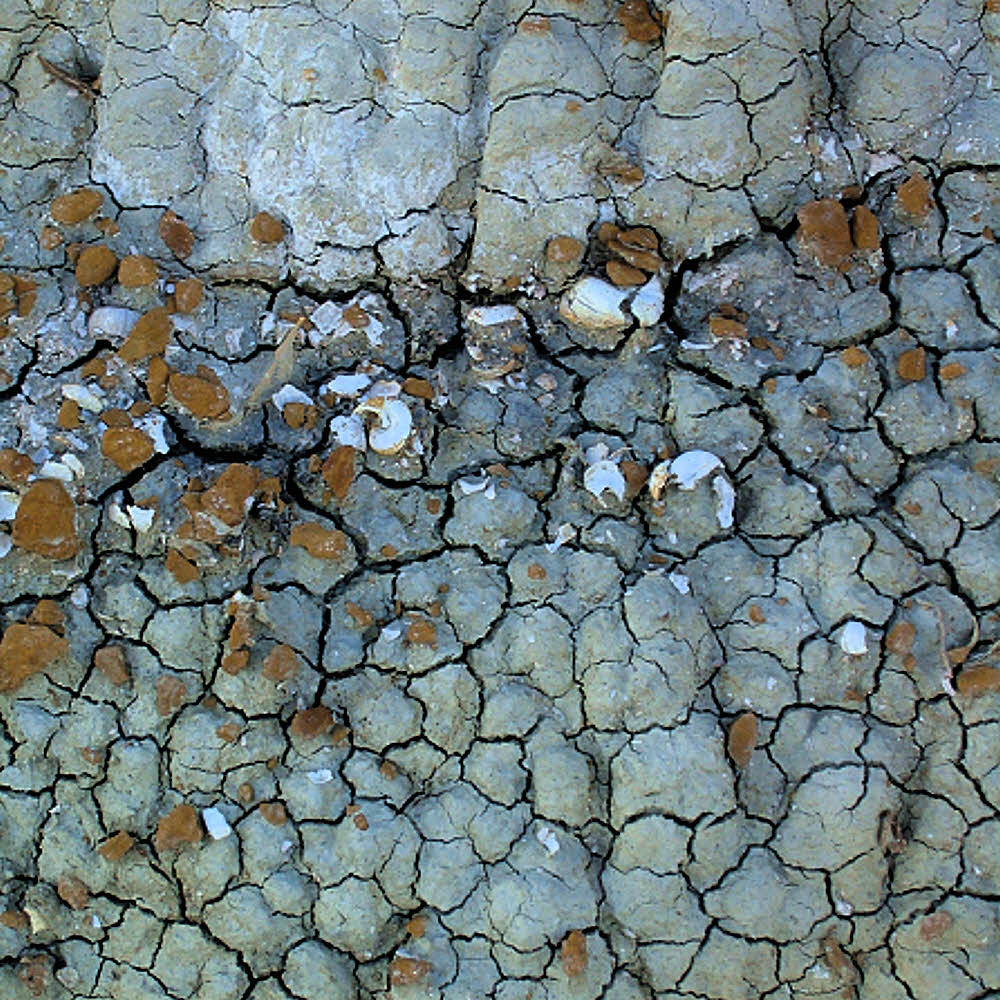
First dry, then wet, then dry. No shortage of cracks.
Reception.
The "gayety" was obvious even to the most casual traveler whose train stopped for three noisy minutes at the Medora "depot."
"Dutch Wannigan," when he remarked that "seeing the trains come in was all the scenery we had," plumbed the depths of Medora's hunger "for something to happen." A train (even a freight) came to stand for excitement, not because of any diversion it brought of itself out of a world of "dudes" and police-officers, but because of the deviltry it never failed to inspire in certain leading citizens of Medora.
For Medora had a regular reception committee, whose membership varied, but included always the most intoxicated cowpunchers who happened to be in town.
Its leading spirits were Bill Williams, the saloon-keeper, Van Zander, the wayward but attractive son of a Dutch patrician, and his bosom friend, Hell-Roaring Bill Jones; and if they were fertile in invention, they were no less energetic in carrying their inventions into execution.
To shoot over the roofs of the cars was a regular pastime, to shoot through the windows was not unusual, but it was a genius who thought of the notion of crawling under the dining-car and shooting through the floor.
He scattered the scrambled eggs which the negro waiter was carrying, but did no other damage. These general salvos of greeting, Bill Jones, Bill Williams, and the millionaire's son from Rotterdam were accustomed to vary by specific attention to passengers walking up and down the platform.
It happened one day that an old man in a derby hat stepped off the train for a bit of an airing while the engine was taking water. Bill Jones, spying the hat, gave an indignant exclamation and promptly shot it off the man's head. The terrified owner hurried into the train, leaving the brim behind.
"Come back, come back!" shouted Bill Jones, "we don't want the blinkety-blank thing in Medora."
The old man, terrified, looked into Bill Jones's sinister face. He found no relenting there. Deeply humiliated, he walked over to where the battered brim lay, picked it up, and re-entered the train.
Source: Hagedorn's biography of Roosevelt.
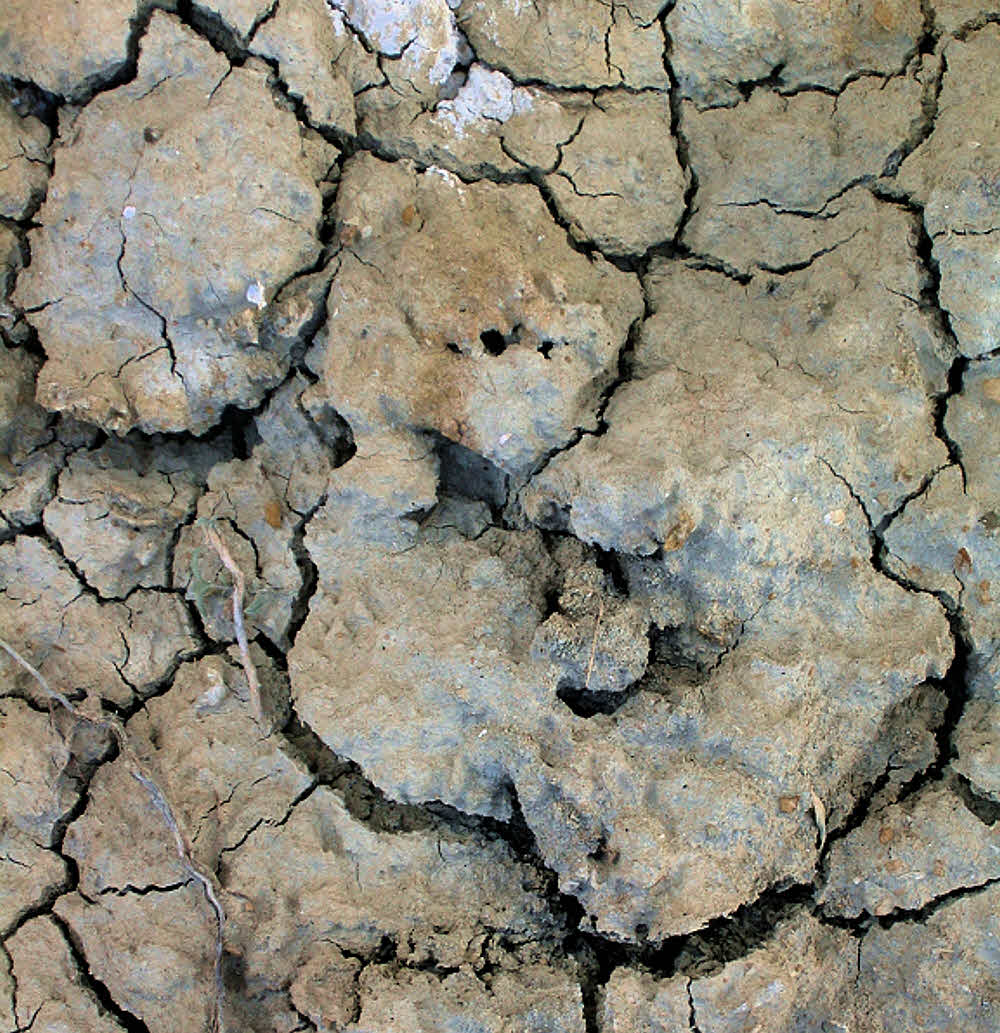
And more cracks. But slippery when wet.
Law.
All this was very diverting and did harm to nobody. Roosevelt himself, no doubt, took huge satisfaction in it. But there were aspects of Medora's disregard for the conventions which were rather more serious.
If you possessed anything of value, you carried it about with you if you expected to find it when you wanted it. You studied the ways of itinerant butchers with much attention, and if you had any cattle of your own, you kept an eye on the comings and goings of everybody who sold beef or veal. The annoying element in all this vigilance, however, was that, even if you could point your finger at the man who had robbed you, it did not profit you much unless you were ready to shoot him.
A traveling salesman, whose baggage had been looted in Medora, swore out a warrant in Morton County, a hundred and fifty miles to the east. The Morton County sheriff came to serve the warrant, but the warrant remained in his pocket.
He was "close-herded" in the sagebrush across the track from the "depot" by the greater part of the male population, on the general principle that an officer of the law was out of place in Medora whatever his mission might be; and put on board the next train going east.
Source: Hagedorn's biography of Roosevelt.
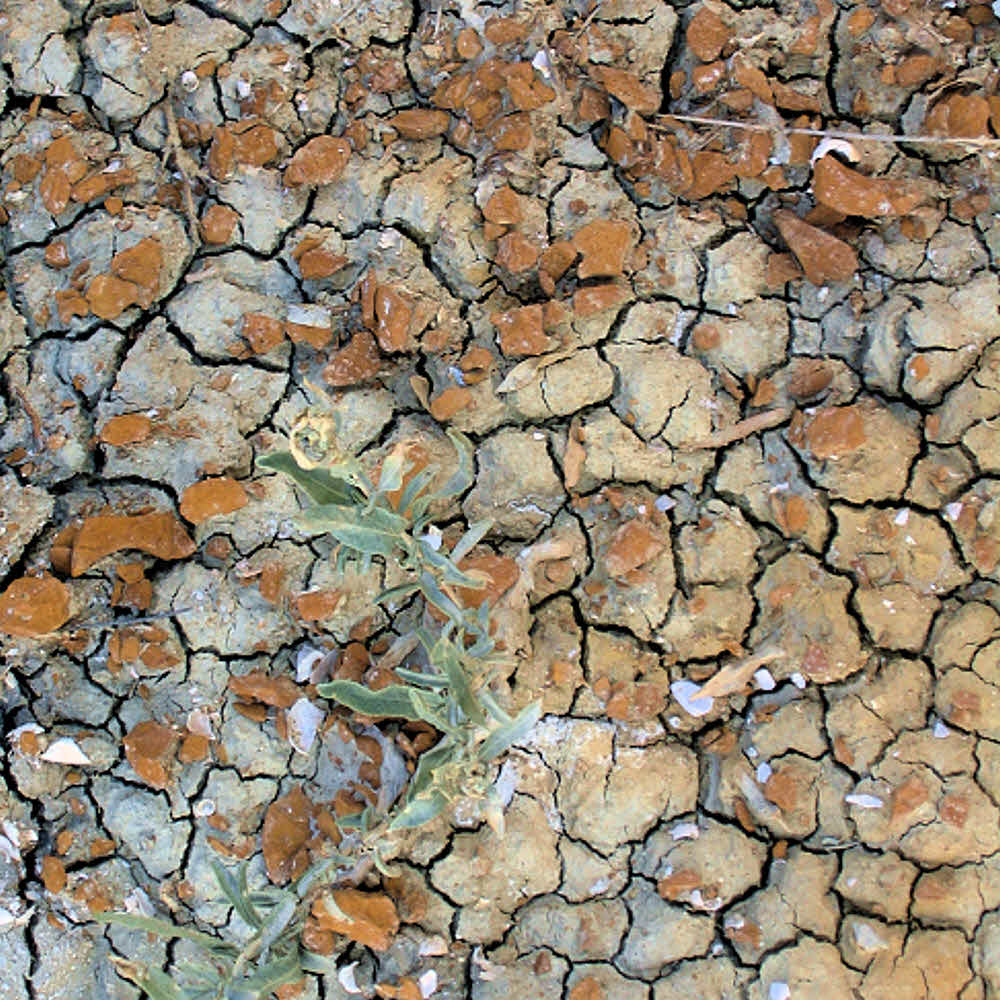
Still, things grow. Wherever they have any chance at all.
Jail.
The Dickinson Press had truth on its side when it uttered its wail that Medora needed housing facilities for the unruly.
Medora had never had a jail. Little Missouri had had an eight by ten shack which one man, who knew some history, christened "the Bastile," and which was used as a sort of convalescent hospital for men who were too drunk to distinguish between their friends and other citizens when they started shooting. But a sudden disaster had overtaken the Bastile one day when a man called Black Jack had come into Little Missouri on a wrecking train.
He had a reputation that extended from Mandan to Miles City for his ability to carry untold quantities of whiskey without showing signs of intoxication; but Little Missouri proved his undoing. The "jag" he developed was something phenomenal, and he was finally locked up in the Bastile by common consent.
The train crew, looking for Black Jack at three in the morning, located him after much searching. But the Bastile had been built by the soldiers and resisted their efforts to break in.
Thereupon they threw a line about the shack and with the engine hauled it to the side of a flatcar attached to the train.
Then with a derrick they hoisted Little Missouri's only depository for the helpless inebriate on the flatcar and departed westward. At their leisure they chopped Black Jack out of his confinement.
They dumped the Bastile over the embankment somewhere a mile west of town.
Source: Hagedorn's biography of Roosevelt.
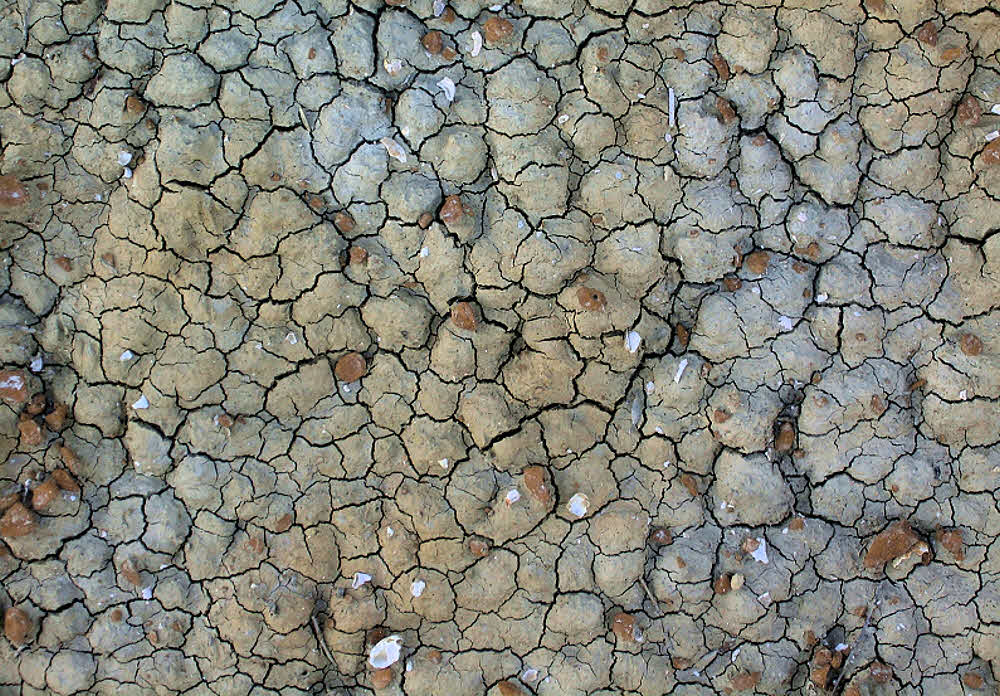
And some places there is no chance.
Police.
A man scarcely dared denounce thieves to his best friend for fear his friend might be one of them.
The fire department died stillborn; but the police force promptly asserted itself.
Packard had decided to "work on the transients" first, for he could persuade them, better than he could the residents, that he had an organization behind him, with masks and a rope.
From the start he made it a point not to mix openly in any "altercation," where he could avoid it, for the simple reason that the actual fighting was in most cases done by professional "bad men," and the death of either party to the duel, or both, was considered a source of jubilation rather than of regret.
He devoted his attention mainly to those "floaters" whom he suspected of being in league with the outlaws, or who, by their recklessness with firearms, made themselves a public nuisance. He seldom, if ever, made an arrest. He merely drew his man aside and told him that "it had been decided" that he should leave town at once and never again appear in the round-up district of the Bad Lands.
In no case was his warning disobeyed. On the few occasions when it was necessary for him to interfere publicly, there were always friends of order in the neighborhood to help him seal the exile in a box car and ship him east or west on the next freight.
A number of hilarious disciples of justice varied this proceeding one evening by breaking open the car in which one of Packard's prisoners lay confined and tying him to the cowcatcher of a train which had just arrived. Word came back from Glendive at midnight that the prisoner had reached his destination in safety, though somewhat breathless, owing to the fact that the cowcatcher "had picked up a Texas steer on the way."
Source: Hagedorn's biography of Roosevelt.
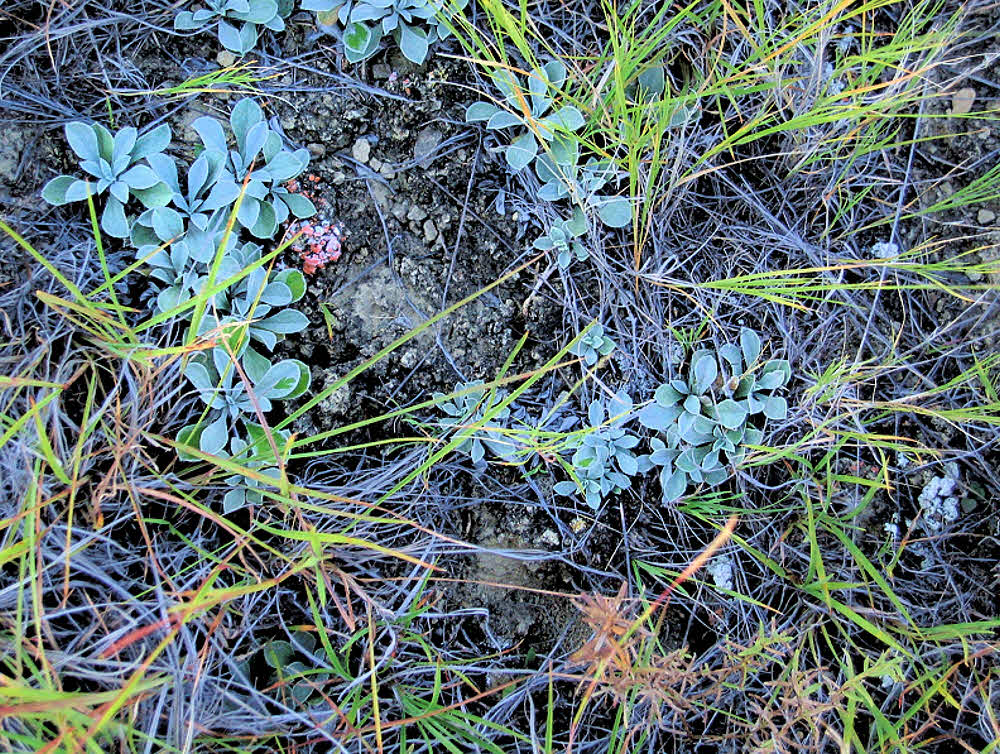
Tough, wiry prairie grass.
Siting the Elkhorn Ranch.
All day long on the prairies I ride,
Not even a dog to trot by my side;
My fire I kindle with chips gathered round,
My coffee I boil without being ground.
I wash in a pool and wipe on a sack;
I carry my wardrobe all on my back;
For want of an oven I cook bread in a pot,
And sleep on the ground for want of a cot.
My ceiling is the sky, my floor is the grass,
My music is the lowing of the herds as they pass;
My books are the brooks, my sermons the stones,
My parson is a wolf on his pulpit of bones.
— Cowboy song
Roosevelt had made up his mind, soon after his arrival early in the month, to bring Sewall and Dow out from Maine, and on his return from his solitary trip over the prairie after antelope, he set out to locate a site for a ranch, where the two backwoodsmen might hold some cattle and where at the same time he might find the solitude he needed for his literary work.
...
He told [Howard] Eaton the object of his journeying, and Eaton, who knew the country better possibly than any other man in the Bad Lands, advised him to look at a bottom not more than five miles up the river from his own ranch.
...
The country was singularly beautiful. On his left, as he advanced, grassy meadows sloped to a wide plateau, following the curve of the river. The valley narrowed. He forded the stream. The trail rose sharply between steep walls of olive and lavender that shut off the sun; it wound through a narrow defile; then over a plateau, whence blue seas of wild country stretched northward into the haze; then sharply down again into a green bottom, walled on the west by buttes scarred like the face of an old man.
He forded the stream once more, swung round a jutting hill, and found the end of the bottom-land in a grove of cottonwoods under the shadow of high buttes. At the edge of the river he came upon the interlocked antlers of two elk who had died in combat. He determined that it was there that his "home-ranch" should stand.
For three weeks Roosevelt was in the saddle every day from dawn till night, riding, often in no company but his own, up and down the river, restless and indefatigable.
On one of his solitary rides he stopped at Mrs. Maddox's hut to call for the buckskin suit he had ordered of her. She was a woman of terrible vigor, and inspired in Roosevelt a kind of awe which none of the "bad men" of the region had been able to make him feel.
She invited him to dinner. While she was preparing the meal, he sat in a corner of the cabin. He had a habit of carrying a book with him wherever he went and he was reading, altogether absorbed, when suddenly Mrs. Maddox stumbled over one of his feet.
"Take that damn foot away!" she cried in tones that meant business. Roosevelt took his foot away, "and all that was attached to it," as one of his cowboy friends explained subsequently, waiting outside until the call for dinner came.
He ate the dinner quickly, wasting no words, not caring to run any risk of stirring again the fury of Mrs. Maddox.
Source: Hagedorn's biography of Roosevelt.
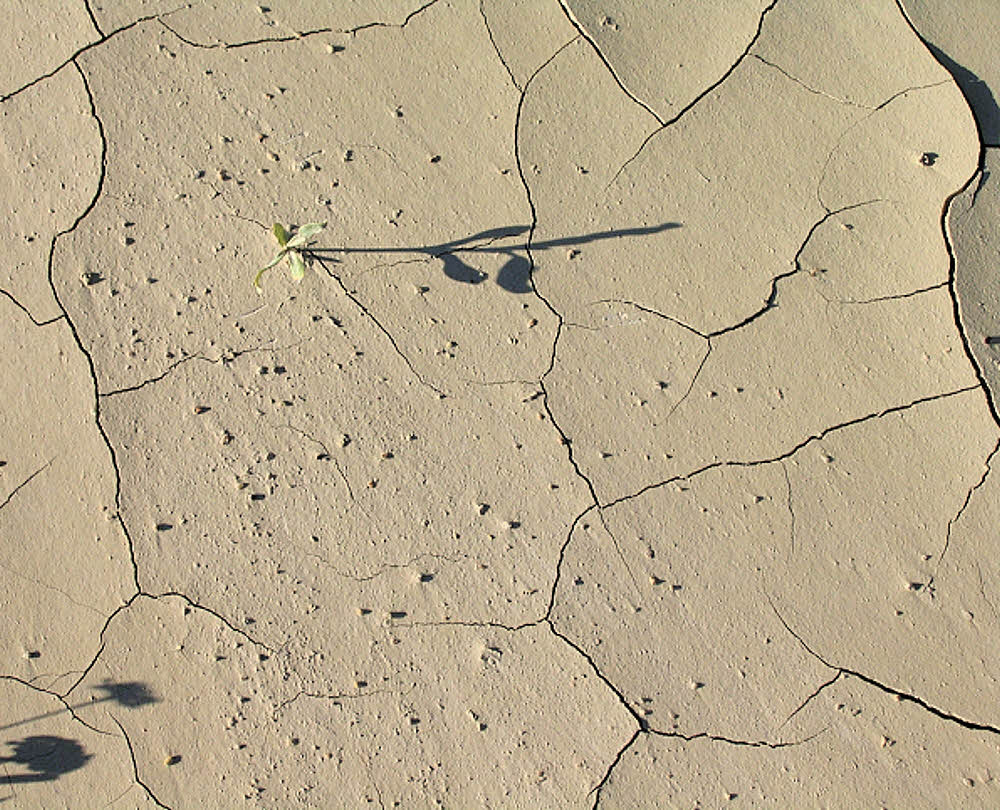
Early volunteer.
The Mingusville incident.
Night overtook him not far from Mingusville, a primitive settlement named thus with brilliant ingenuity by its first citizens, a lady by the name of Minnie and her husband by the name of Gus.
The "town" — what there was of it — was pleasantly situated on rolling country on the west bank of Beaver Creek.
Along the east side of the creek were high, steep, cream-colored buttes, gently rounded and capped with green, softer in color than the buttes of the Bad Lands and very attractive in spring in their frame of grass and cottonwoods and cedars.
Mingusville consisted of the railroad station, the section-house, and a story-and-a-half "hotel" with a false front. The "hotel" was a saloon with a loft where you might sleep if you had courage.
Roosevelt stabled his horse in a shed behind the "hotel," and started to enter. Two shots rang out from the bar-room.
He hesitated. He had made it a point to avoid centers of disturbance such as this, but the night was chilly and there was no place else to go. He entered, with misgivings.
Inside the room were several men, beside the bartender, all, with one exception, "wearing the kind of smile," as Roosevelt said, in telling of the occasion, "worn by men who are making-believe to like what they don't like." The exception was a shabby-looking individual in a broad-brimmed hat who was walking up and down the floor talking and swearing. He had a cocked gun in each hand. A clock on the wall had two holes in its face, which accounted for the shots Roosevelt had heard.
It occurred to Roosevelt that the man was not a "bad man" of the really dangerous, man-killer type; but a would-be "bad man," a bully who for the moment was having things all his own way.
"Four-eyes!" he shouted as he spied the newcomer.
There was a nervous laugh from the other men who were evidently sheepherders. Roosevelt joined in the laugh.
"Four-eyes is going to treat!" shouted the man with the guns.
There was another laugh. Under cover of it Roosevelt walked quickly to a chair behind the stove and sat down, hoping to escape further notice.
But the bully was not inclined to lose what looked like an opportunity to make capital as a "bad man" at the expense of a harmless "dude" in a fringed buckskin suit. He followed Roosevelt across the room.
"Four-eyes is going to treat," he repeated.
Roosevelt passed the comment off as a joke. But the bully leaned over Roosevelt, swinging his guns, and ordered him, in language suited to the surroundings, "to set up the drinks for the crowd."
For a moment Roosevelt sat silent, letting the filthy storm rage round him. It occurred to him in a flash that he was face to face with a crisis vastly more significant to his future than the mere question whether or not he should let a drunken bully have his way. If he backed down, he said to himself, he would, when the news of it spread abroad, have more explaining to do than he would care to undertake. It was altogether a case of "Make good now, or quit!"
The bully roared, "Set up the drinks!"
It struck Roosevelt that the man was foolish to stand so near, with his heels together. "Well, if I've got to, I've got to," he said and rose to his feet, looking past his tormentor.
As he rose he struck quick and hard with his right just to one side of the point of the jaw, hitting with his left as he straightened out, and then again with his right.
The bully fired both guns, but the bullets went wide as he fell like a tree, striking the corner of the bar with his head. It occurred to Roosevelt that it was not a case in which one could afford to take chances, and he watched, ready to drop with his knees on the man's ribs at the first indication of activity. But the bully was senseless. The sheepherders, now loud in their denunciations, hustled the would-be desperado into a shed.
Roosevelt had his dinner in a corner of the dining-room away from the windows, and he went to bed without a light. But the man in the shed made no move to recover his shattered prestige. When he came to, he went to the station, departing on a freight, and was seen no more.
The news of Roosevelt's encounter in the "rum-hole" in Mingusville spread as only news can spread in a country of few happenings and much conversation. It was the kind of story that the Bad Lands liked to hear, and the spectacles and the fringed buckskin suit gave it an added attraction. "Four-eyes" became, overnight, "Old Four Eyes," which was another matter.
"Roosevelt was regarded by the cowboys as a good deal of a joke until after the saloon incident," said Frank Greene, a local official of the Northern Pacific, many years later. "After that it was different."
Source: Hagedorn's biography of Roosevelt.
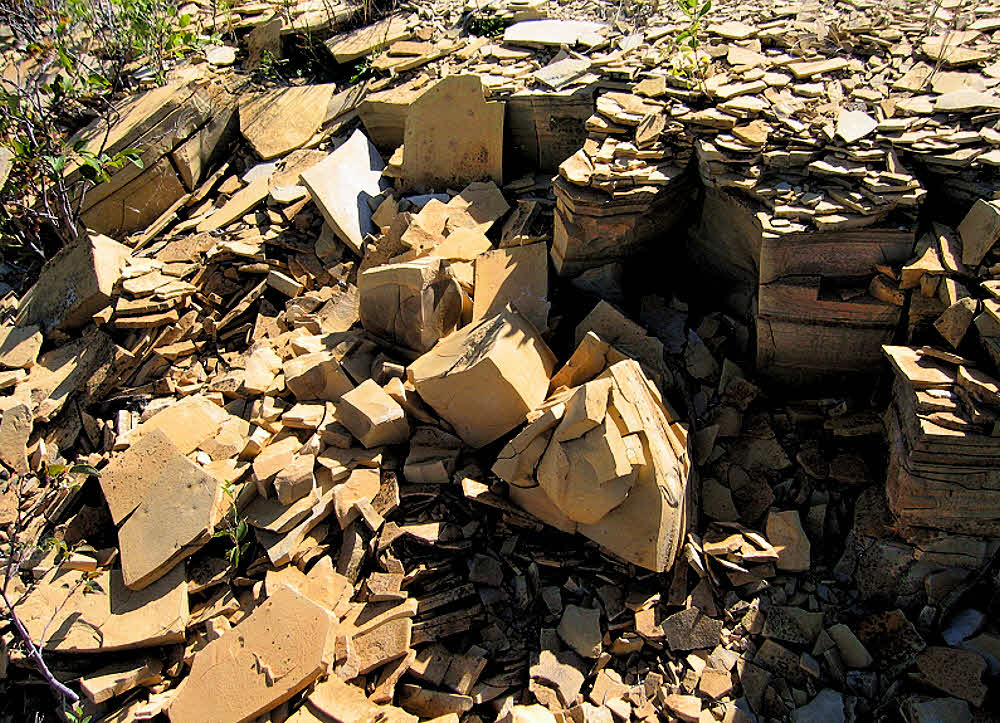
Even some of the rock gets blasted by winter.
Bill Sewall writes home.
Sewall, meanwhile, was also writing letters "to the folks back East," and the opinions he expressed about the Bad Lands were plain and unvarnished.
It is a dirty country and very dirty people on an average [he wrote to his brother Samuel], but I think it is healthy.
The soil is sand or clay, all dust or all mud. The river is the meanest apology for a frog-pond that I ever saw.
It is a queer country, you would like to see it, but you would not like to live here long. The hills are mostly of clay, the sides of some very steep and barren of all vegetation.
You would think cattle would starve there, but all the cattle that have wintered here are fat now and they say here that cattle brought from any other part will improve in size and quality. Theodore thinks I will have more than $3000.00 in three years if nothing happens. He is going to put on a lot of cattle next year.
This is a good place for a man with plenty of money to make more, but if I had enough money to start here I never would come, think the country ought to have been left to the annimils that have laid their bones here.
Source: Hagedorn's biography of Roosevelt.
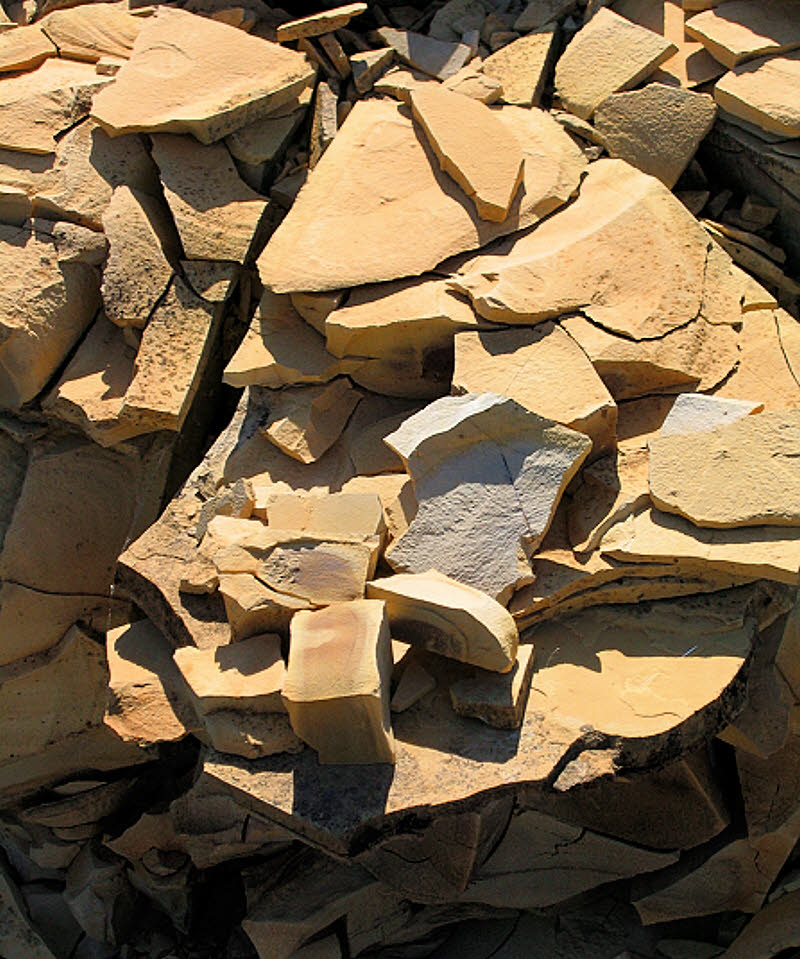
Layers of destruction.
A trip to the Big Horns with Norman Lebo.
Roosevelt started for the Big Horn Mountains [early on the morning of] August 18th...
For a hunting companion he had Merrifield and for teamster and cook he had a French Canadian named Norman Lebo, who, as Roosevelt subsequently remarked, to Lebo's indignation (for he prided himself on his scholarship), "possessed a most extraordinary stock of miscellaneous mis-information upon every conceivable subject."
He was a short, stocky, bearded man, a born wanderer, who had left his family once for a week's hunting trip and remained away three years, returning at last only to depart again, after a week, for further Odyssean wanderings.
"If I had the money," he had a way of saying, "no two nights would ever see me in the same bed."
It was rumored that before Mrs. Lebo had permitted her errant spouse to go out of her sight, she had secured pledges from Roosevelt guaranteeing her three years' subsistence, in case the wanderlust should once more seize upon her protector and provider.
Source: Hagedorn's biography of Roosevelt.
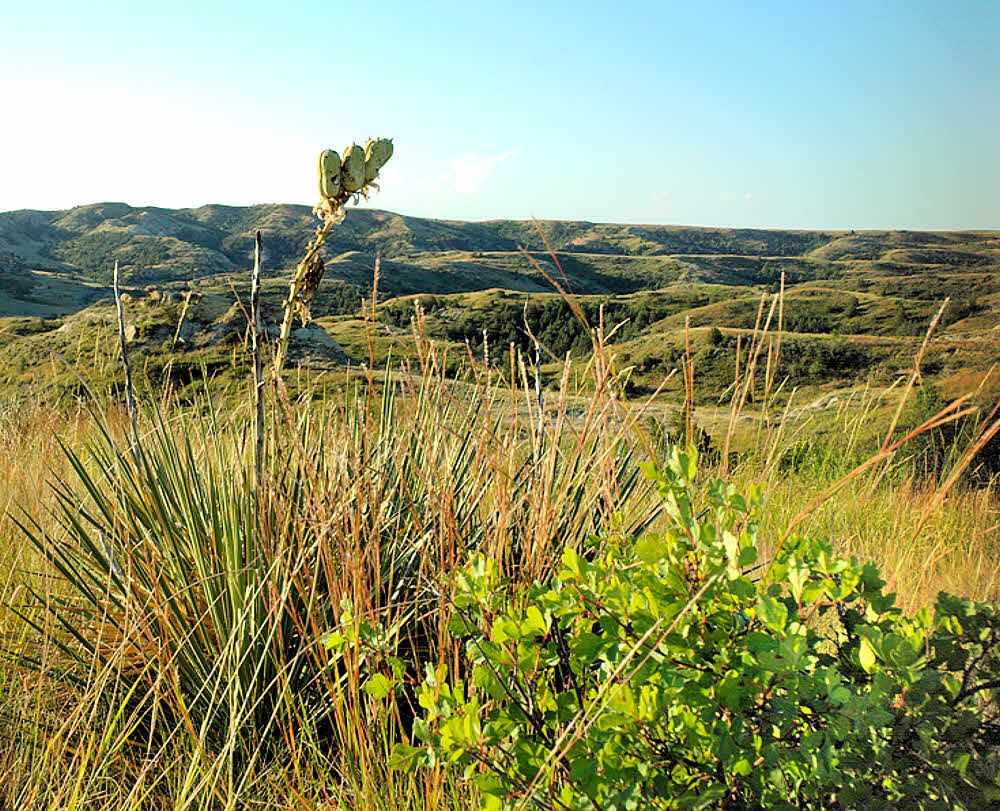
More yucca, with a view.
Justice.
...The endeavors of Granville Stuart's vigilantes were having their results.
The precipitous methods of the "stranglers," as they were grimly called, began to give the most hardened "the creeps." Who the "stranglers" themselves were, nobody seemed to know.
It was rumored, on the one hand, that they included the biggest ranch-owners in the Northwest; on the other hand, it was stated that they were bands of lawless Texans driven out of the Panhandle and hired by the ranchmen at thirty dollars a month "to clean up the country." Whoever they were, they moved swiftly and acted without hesitation.
The newspapers said little about them, partly because they knew little, partly because there was a general tacit understanding that the whole thing, though necessary, was a disagreeable business, and the less said of it the better.
The truth seems to be that behind the whole movement to rid eastern Montana and western Dakota of the horse-thieves was a loose organization of cattlemen of which Granville Stuart and his friends were the directing heads. What funds were needed they provided.
They designated, moreover, certain responsible men in the different round-up districts, to whom subordinate bands of the "stranglers" reported from time to time for orders. Each subordinate band operated independently of the others, and the leader in one district knew nothing as a rule of the operations of the other bands. He told the "stranglers" what men to "get," and that was all; and a day or two later a man here and a man there would be found dangling from a cottonwood.
In certain cases, Packard, who successfully combined the functions of law officer and news-gatherer [as publisher of the Bad Lands Cowboy], knew beforehand what men were to be hanged.
On one occasion he was informed that two notorious characters were to be done away with on the following Thursday. The operations of the stranglers were as a rule terrifyingly punctual, and as Thursday was the day on which the Cowboy went to press, he announced in it, with an awful punctuality of his own, the sudden demise of the thieves in question.
He carried the papers to the depot to put them on the afternoon train bound for the west, for the Cowboy was popular with the passengers and he disposed of an edition of seven or eight hundred weekly with them in excess of his regular edition.
As he was about to step on the train, two men stepped down. They were the horse-thieves whose death he had too confidently announced.
He stared at them, shocked to the marrow, feeling as though he had seen ghosts. Would they stay in Medora, or would they go on to where frontier justice was awaiting them? Would they see the announcement in the Cowboy?
He remembered that they could not read. Fascinated, he watched them. The train started. The two men jumped aboard.
That night they were hanged.
Source: Hagedorn's biography of Roosevelt.
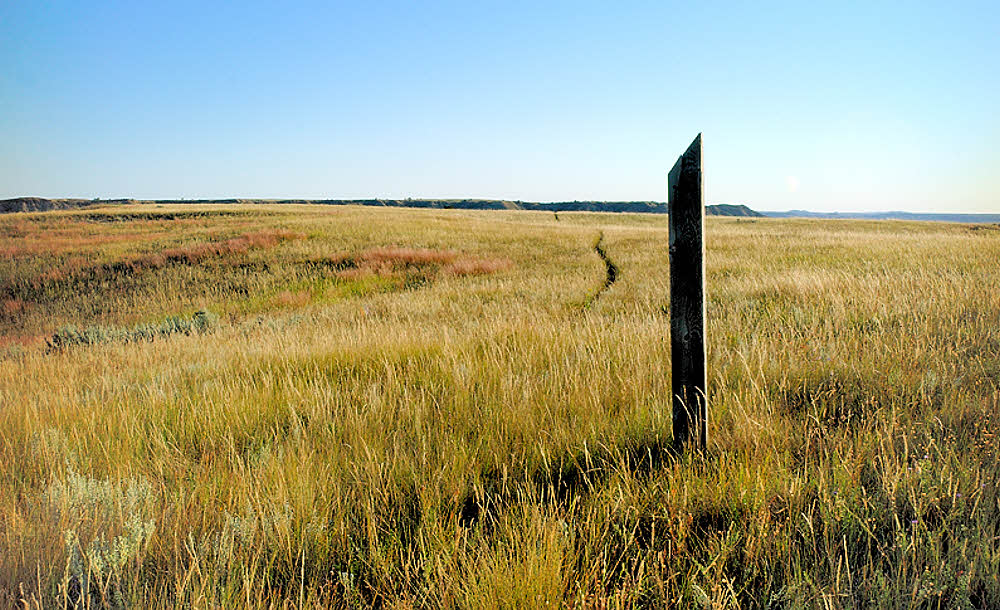
Easy running, from here to there, somewhere.
Return from Bighorns.
It was underneath the stars, the little peeking stars,
That we lay and dreamed of Eden in the hills:
We were neither sad nor gay, but just wondering, while we lay,
What a mighty lot of space creation fills.
Our fire was just a spark; dot of red against the dark,
And around the fire an awful lot of night.
The purple, changing air was as quiet as a prayer,
And the moon came up and froze the mountains white.
Henry Herbert Knibbs
The third day dawned crisp and clear, and once more the wagon lumbered on.
They made camp that night some forty miles southwest of Lang's. They were still three days from home, three days of crawling voyaging beside the fagged team. The country was monotonous, moreover, without much game.
"I think I'd like to ride in and wake the boys up for breakfast," remarked Merrifield.
"Good!" exclaimed Roosevelt. "I'll do it with you."
Merrifield argued the matter. Roosevelt had been in the saddle all day and it was eighty miles to the Maltese Cross.
"I'm going with you. I want to wind up this trip myself," said Roosevelt, and there the argument ended.
At nine o'clock they saddled their tough little ponies, and rode off out of the circle of firelight. The October air was cool in their faces as they loped steadily mile after mile over the moonlit prairie.
Roosevelt later described that memorable ride.
The hoof-beats of our horses rang out in steady rhythm through the silence of the night, otherwise unbroken save now and then by the wailing cry of a coyote.
The rolling plains stretched out on all sides of us, shimmering in the clear moonlight; and occasionally a band of spectral-looking antelope swept silently away from before our path.
Once we went by a drove of Texan cattle, who stared wildly at the intruders; as we passed they charged down by us, the ground rumbling beneath their tread, while their long horns knocked against each other with a sound like the clattering of a multitude of castanets.
We could see clearly enough to keep our general course over the trackless plain, steering by the stars where the prairie was perfectly level and without landmarks; and our ride was timed well, for as we galloped down into the valley of the Little Missouri the sky above the line of the level bluffs in our front was crimson with the glow of the unrisen sun.
Source: Hagedorn's biography of Roosevelt.
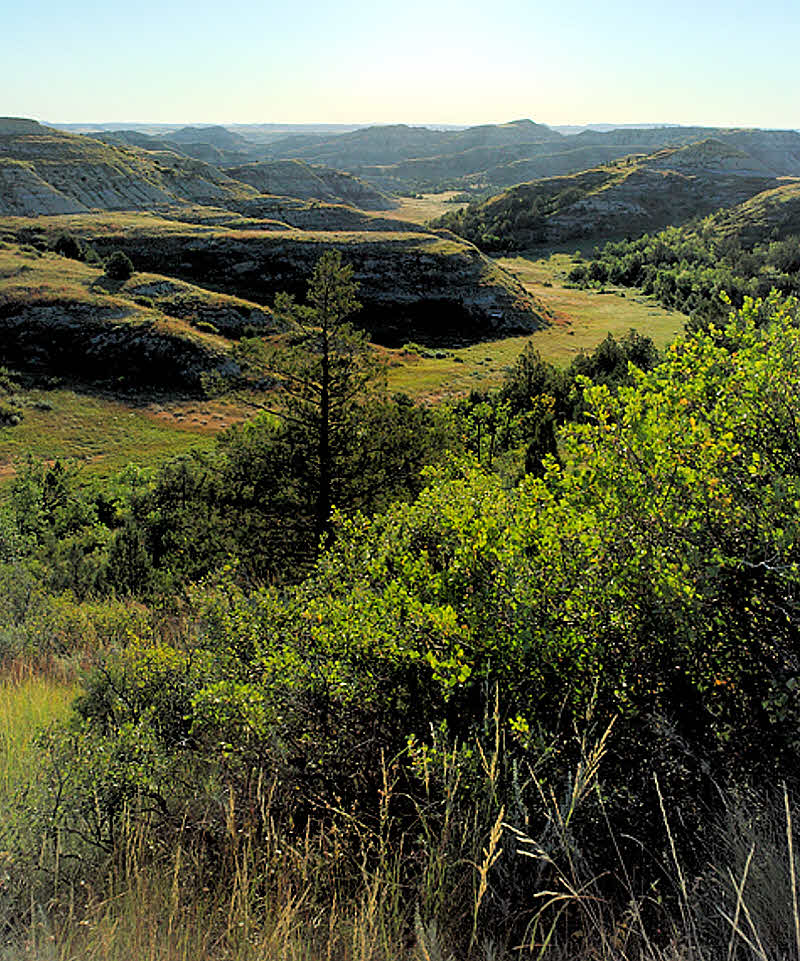
OK. That's where.
Trouble with de Mores.
It was while Roosevelt was working at Elkhorn that further rumors of trouble came from the party of the Marquis.
Maunders insisted that he had a prior claim to the shack in which Sewall and Dow were living and all the land that lay around it, and demanded five hundred dollars for his rights.
Roosevelt had from the first scouted the claim, for Maunders had a way of claiming any shack which a hunter deserted anywhere. Vague threats which Maunders was making filled the air, but did not greatly disturb Roosevelt.
Sewall and Dow, however, had heard a rumor which sounded authentic and might require attention. Maunders had said that he was going to shoot Roosevelt at the next opportunity. They passed the news on to "the boss."
This was decidedly interesting. Maunders was known as a good shot and was well protected by the Marquis.
Roosevelt promptly saddled his horse and rode back up the river. Maunders's shack stood on the west bank a few hundred yards from the Pyramid Park Hotel. Roosevelt knocked on the door. Maunders opened it.
"Maunders," said Roosevelt sharply, "I understand that you have threatened to kill me on sight. I have come over to see when you want to begin the killing and to let you know that, if you have anything to say against me, now is the time for you to say it."
Maunders looked unhappy. After a brief conversation it appeared that Maunders did not after all want to shoot him. He had been "misquoted," he said. They parted, understanding one another perfectly.
Source: Hagedorn's biography of Roosevelt.
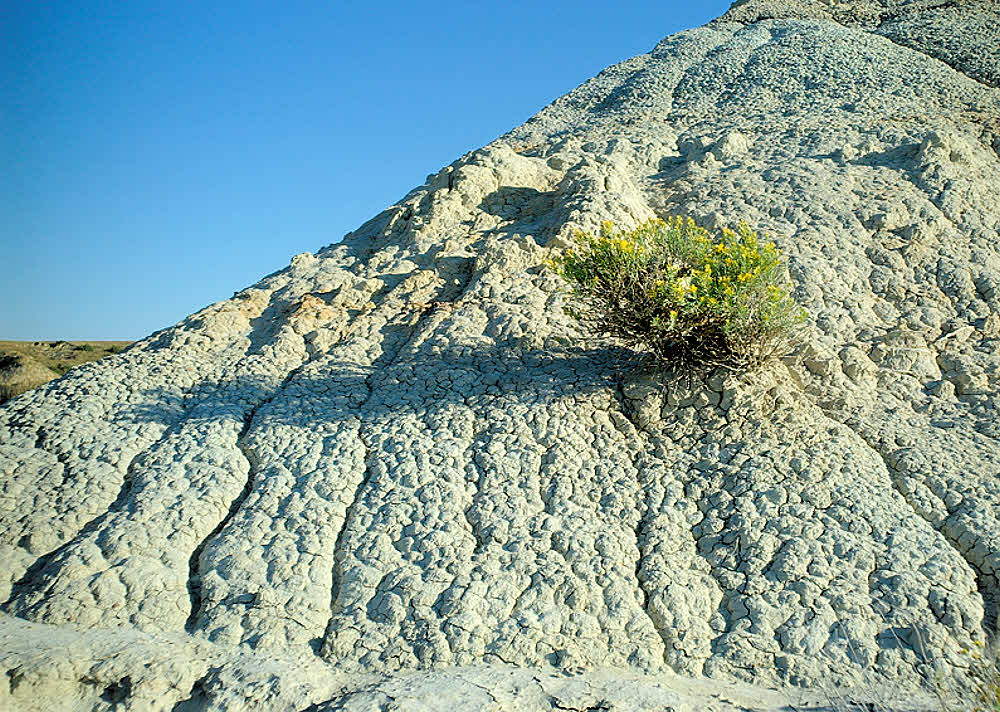
Almost like seeing a tree growing out of a pyramid.
Winter.
I'll never come North again.
My home is the sunny South,
Where it's never mo' than forty below
An' the beans don't freeze in your mouth;
An' the snow ain't like white smoke,
An' the ground ain't like white iron;
An' the wind don't stray from Baffin's Bay
To join you on retirin'.
— From Medora Nights
Winter was the ranchman's "slack season"; but Roosevelt found, nevertheless, that there was work to be done even at that time of year to test a man's fiber. Activities, which in the ordinary Eastern winter would have been merely the casual incidents of the day's work, took on some of the character of Arctic exploration in a country where the thermometer had a way of going fifty degrees below zero, and for two weeks on end never rose above a point of ten below.
It was not always altogether pleasant to be out of doors; but wood had to be chopped, and coal had to be brought in by the wagon-load. Roosevelt had a mine on his own ranch some three or four miles south of Chimney Butte. It was a vein of soft lignite laid bare in the side of a clay bluff by the corrosive action of the water, carving, through the centuries, the bed of the Little Missouri.
He and his men brought the coal in the ranch-wagon over the frozen bed of the river. The wheels of the wagon creaked and sang in the bitter cold, as they ground through the powdery snow.
The cattle, moreover, had to be carefully watched, for many of them were slow in learning to "rustle for themselves," as the phrase went. A part of every day at least was spent in the saddle by one or the other or all of the men who constituted the Chimney Butte outfit. In spite of their great fur coats and caps and gauntlets, in spite of heavy underclothing and flannel-lined boots, it was not often that one or the other of them, returning from a ride, did not have a touch of the frost somewhere about him.
When the wind was at his back, Roosevelt found it was not bad to gallop along through the white weather, but when he had to face it, riding over a plain or a plateau, it was a different matter, for the blast cut through him like a keen knife, and the thickest furs seemed only so much paper.
The cattle were obviously unhappy, standing humped up under the bushes, except for an hour or two at midday when they ventured out to feed. A very weak animal they would bring into the cow-shed and feed with hay; but they did this only in cases of the direst necessity, as such an animal had then to be fed for the rest of the winter, and the quantity of hay was limited. As long as the cattle could be held within the narrow strip of Bad Lands, they were safe enough, for the deep ravines afforded them ample refuge from the icy gales. But if by any accident a herd was caught by a blizzard on the open prairie, it might drift before it a hundred miles.
Source: Hagedorn's biography of Roosevelt.

Near sunset.
1885 arrives.
Roosevelt spent the coldest months in New York, working steadily on his new book which was to be called "Hunting Trips of a Ranchman."
...
It was presumably in the first days of April that he arrived at Medora. If tradition may be trusted, he came in all the glory of what were known as "store clothes."
The Pittsburgh Despatch, which sent out a reporter to the train to interview him as he passed through that city, westward-bound, refers to "the high expanse of white linen which enclosed his neck to the ears," which sounds like a slight exaggeration. Tradition does insist, however, that he wore a derby hat when he arrived, which was considered highly venturesome.
Derby hats as a rule were knocked off on sight and then bombarded with six-shooters beyond recognition. Roosevelt informed his fellow citizens early in his career as a cowpuncher that he intended to wear any hat he pleased. Evidently it was deemed expedient to suspend the rule in his case, for he was not molested.
Source: Hagedorn's biography of Roosevelt.
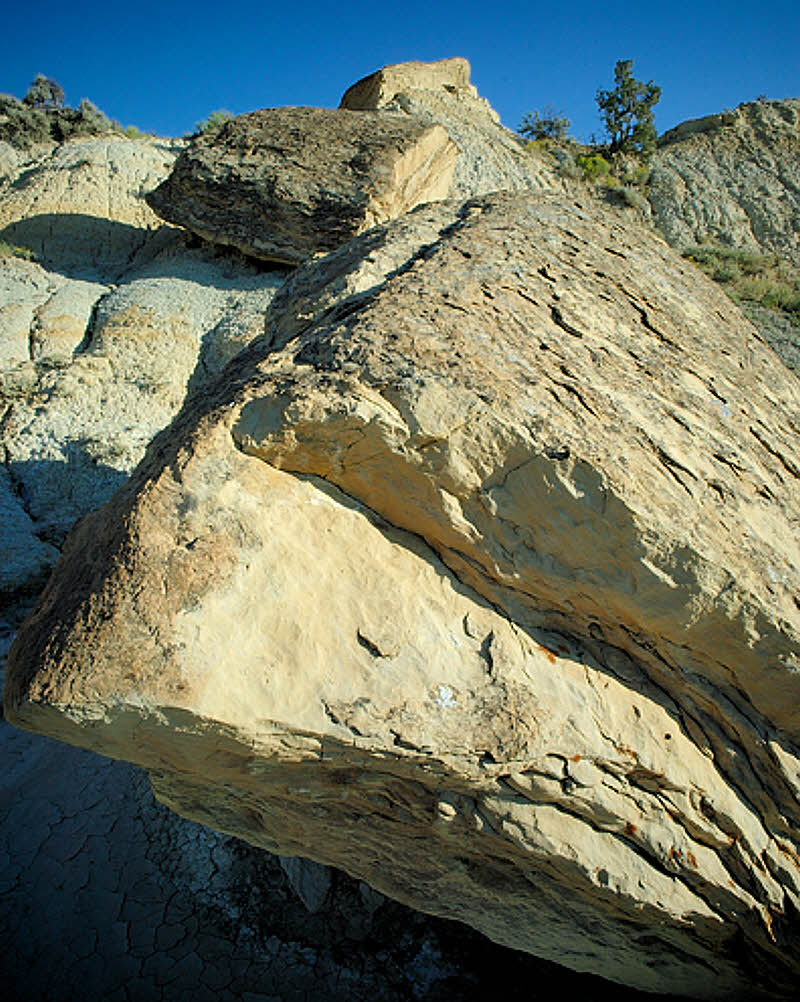
With rocks.
Mingusville telegraphy.
Every herd driven into the shipping-yards from one of the great ranches in the upper Little Missouri country brought with it a dozen or more parched cowboys hungering and thirsting for excitement as no saint ever hungered and thirsted for righteousness; and celebrations had a way of lasting for days. The men were Texans, most of them, extraordinary riders, born to the saddle, but reckless, given to heavy drinking, and utterly wild and irresponsible when drunk.
It was their particular delight to make life hideous for the station agent and the telegraph operator.
For some weeks Mingusville, it was said, had a new telegraph operator every night. About ten o'clock the cowboys, celebrating at the "hotel," would drift over to the board shack which was the railroad station, and "shoot it full of holes." They had no particular reason for doing this; they had no grudge against either the railroad or the particular operator who happened to be in charge. They were children, and it was fun to hear the bullets pop, and excruciating fun to see the operator run out of the shack with a yell and go scampering off into the darkness.
One operator entered into negotiations with the enemy. Recognizing their perfect right to shoot up the station if they wanted to, he merely stipulated that they allow him to send off the night's dispatches before they began.
This request seemed to the cowboys altogether reasonable. They waited until the operator said that his work was done. Then, as he faded away in the darkness, the night's bombardment began.
Source: Hagedorn's biography of Roosevelt.
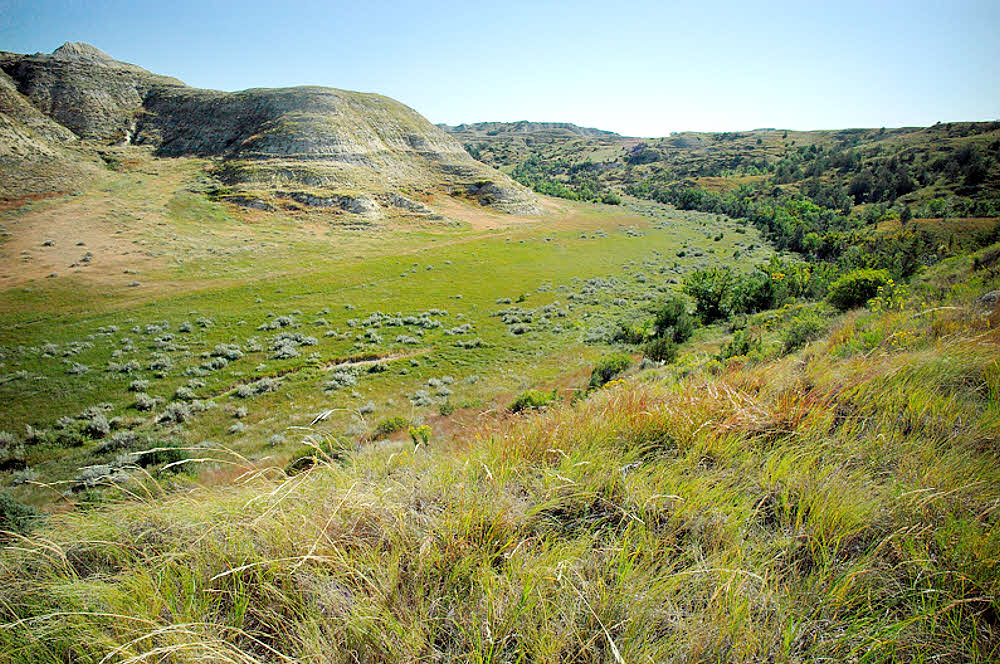
See the trail? Faint. On the other side of the valley?
Another visit to Mingusville.
Into this tempestuous little "town," Roosevelt rode one day as night was falling. No doubt because Mrs. Nolan's beds were filled, he was forced to take a room at the nefarious hotel where he had chastised the bully a year previous. Possibly to prevent the recurrence of that experience, he retired early to the small room with one bed which had been assigned him and sat until late reading the book he had brought along in his saddle-pocket.
The house was quiet and every one was asleep, when a cowboy arrived from God knows whence, yelling and shooting as he came galloping through the darkness. He was evidently very drunk. He thumped loudly on the door, and after some delay the host opened it. The stranger showed no appreciation; on the contrary, he seized the hotel-keeper, half in play, it seemed, and half in enmity, jammed the mouth of his six-shooter against his stomach and began to dance about the room with him.
In the room above, Roosevelt heard the host's agonized appeals. "Jim, don't! Don't, Jim! It'll go off! Jim, it'll go off!"
Jim's response was not reassuring. "Yes, damn you, it'll go off! I'll learn you! Who in hell cares if it does go off! Oh, I'll learn you!"
But the gun, after all, did not go off. The cowboy subsided, then burst into vociferous demands for a bed. A minute later Roosevelt heard steps in the hall, followed by a knock at his door. Roosevelt opened it.
"I'm sorry," said the host, "but there's a man I'll have to put in with you for the night."
"You're not as sorry as I am," Roosevelt answered coolly, "and I'm not going to have him come in here."
The host was full of apologies. "He's drunk and he's on the shoot," he said unhappily, "and he's got to come in."
This appeal was not of a character to weaken Roosevelt's resolution. "I'm going to lock my door," he remarked firmly, "and put out my light. And I'll shoot anybody who tries to break in."
The host departed. Roosevelt never knew where the unwelcome guest was lodged that night; but he himself was left undisturbed.
Source: Hagedorn's biography of Roosevelt.
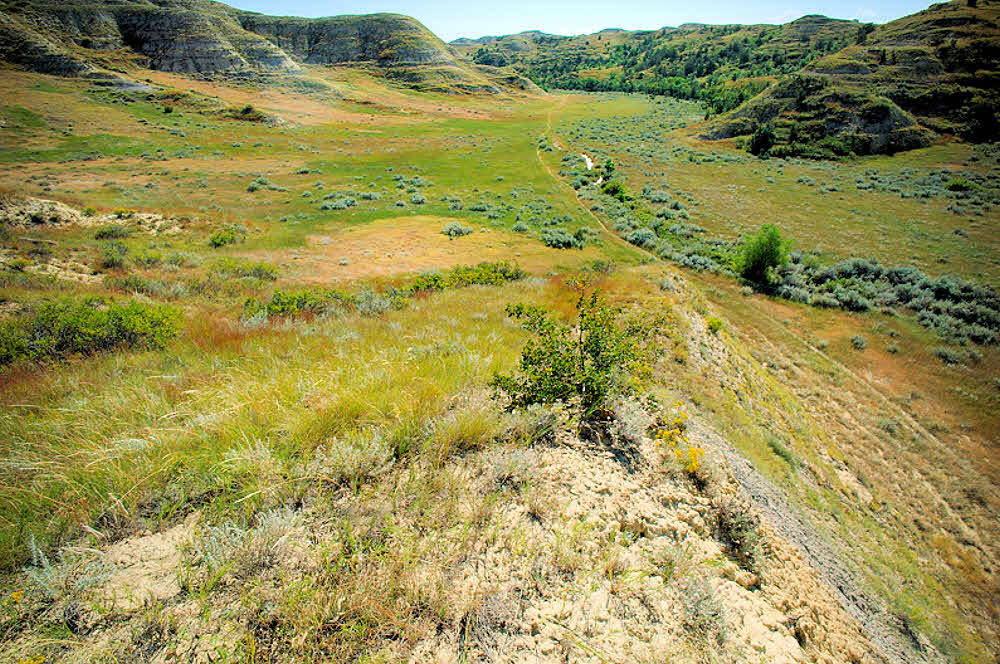
Another perspective. Inviting, isn't it?
Mingusville, yet again.
On another occasion that spring, when Roosevelt was out on the prairie hunting the lost horses, he was overtaken by darkness. Mingusville was the only place within thirty miles or more that offered a chance of a night's lodging, and he again rode there, knocking at the door of Mrs. Nolan's boarding-house late in the evening. Mrs. Nolan, who greeted him, was a tough, wiry Irishwoman of the type of Mrs. Maddox, with a fighting jaw and a look in her eye that had been known to be as potent as a "six-shooter" in clearing a room of undesirable occupants. She disciplined her husband (who evidently needed it) and brought up her daughters with a calm good sense that won them and her the respect of the roughest of the cowpunchers who came under her roof.
Roosevelt, having stabled his horse in an empty out-building, asked for a bed. Mrs. Nolan answered that he could have the last one that was left, since there was only one other man in it.
He accepted the dubious privilege and was shown to a room containing two double beds. One contained two men fast asleep, the other only one man, also asleep. He recognized his bedfellow. It was "Three-Seven" Bill Jones, an excellent cowman belonging to the "Three-Seven outfit" who had recently acquired fame by playfully holding up the Overland Express in order to make the conductor dance. He put his trousers, boots, shaps, and gun down beside the bed, and turned in.
He was awakened an hour or two later by a crash as the door was rudely flung open. A lantern was flashed in his face, and, as he came to full consciousness, he found himself, in the light of a dingy lantern, staring into the mouth of a "six-shooter."
Another man said to the lantern-bearer, "It ain't him." The next moment his bedfellow was "covered" with two "guns." "Now, Bill," said a gruff voice, "don't make a fuss, but come along quiet."
"All right, don't sweat yourself," responded Bill. "I'm not thinking of making a fuss."
"That's right," was the answer, "we're your friends. We don't want to hurt you; we just want you to come along. You know why."
Bill pulled on his trousers and boots and walked out with them.
All the while there had been no sound from the other bed. Now a match was scratched and a candle was lit, and one of the men looked round the room.
"I wonder why they took Bill," Roosevelt remarked.
There was no answer, and Roosevelt, not knowing that there was what he later termed an "alkali etiquette in such matters," repeated the question. "I wonder why they took Bill."
"Well," said the man with the candle, dryly, "I reckon they wanted him," and blew out the candle. That night there was no more conversation; but Roosevelt's education had again been extended.
Source: Hagedorn's biography of Roosevelt.
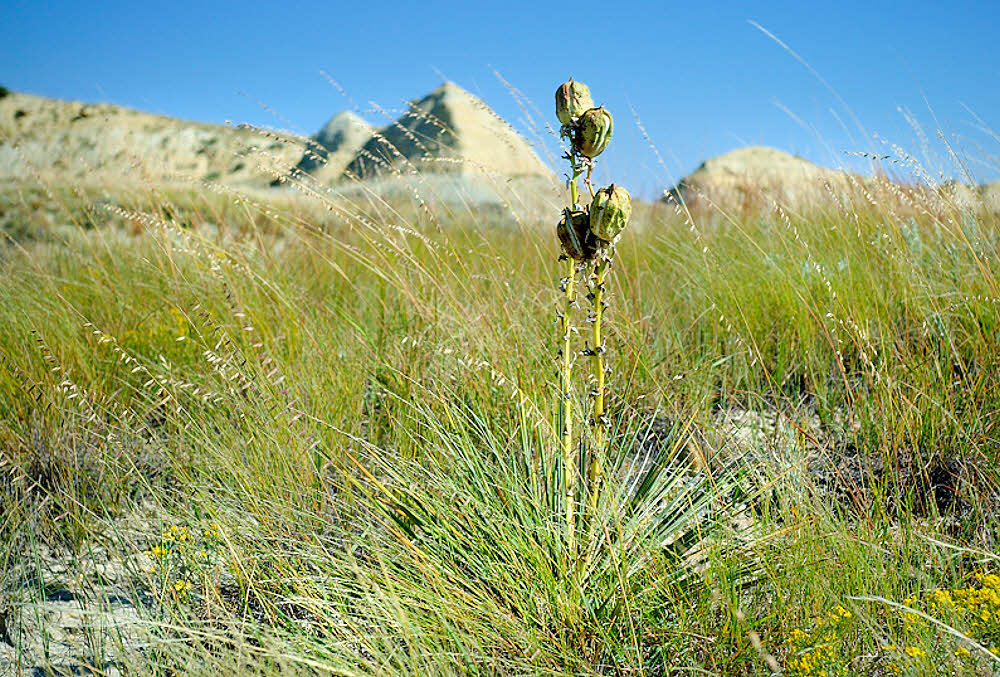
Yucca again, with pyramid.
Roosevelt as boss.
At the Maltese Cross there were now a half-dozen hands, Sylvane and "our friend with the beaver-slide," as Merrifield, who was bald, was known; George Myers, warm-hearted and honest as the day; Jack Reuter, known as "Wannigan," with his stupendous memory and his Teutonic appetite; and at intervals "old man" Thompson who was a teamster, and a huge being named Hank Bennett. Roosevelt liked them all immensely. They possessed to an extraordinary degree the qualities of manhood which he deemed fundamental,-courage, integrity, hardiness, self-reliance,-combining with those qualities a warmth, a humor, and a humanness that opened his understanding to many things. He had come in contact before with men whose opportunities in life had been less than his, and who in the eyes of the world belonged to that great mass of "common people" of whom Lincoln said that "the Lord surely loved them since he made so many of them." But he had never lived with them, day in, day out, slept with them, eaten out of the same dish with them. The men of the cattle country, he found, as daily companions, wore well.
They called him "Mr. Roosevelt," not "Theodore" nor "Teddy." For, though he was comrade and friend to all, he was also the "boss," and they showed him the respect his position and his instinctive leadership merited. More than once a man who attempted to be unduly familiar with Roosevelt found himself swiftly and effectively squelched. He himself entered with enthusiasm into the work of administration. He regarded the ranch as a most promising business venture, and felt assured that, with ordinary luck, he should make his livelihood from it. On every side he received support for this assurance. The oldest cattleman as well as the youngest joined in the chorus that there never had been such a country for turning cattle into dollars.
...
He was never "bossy," they noted, but he was insistent on discipline, on regularity of habits, on prompt obedience, on absolute integrity.
He was riding over the range one day with one of his ablest cowpunchers, when they came upon a "maverick," a two-year-old steer, which had never been branded. They lassoed him promptly and built a fire to heat the branding-irons.
It was the rule of the cattlemen that a "maverick" belonged to the ranchman on whose range it was found. This particular steer, therefore, belonged, not to Roosevelt, but to Gregor Lang, who "claimed" the land over which Roosevelt and his cowboy were riding. The Texan started to apply the red-hot iron.
"It is Lang's brand-a thistle," said Roosevelt.
"That's all right, boss," answered the cowboy. "I know my business."
"Hold on!" Roosevelt exclaimed an instant later, "you are putting on my brand."
"That's all right. I always put on the boss's brand."
"Drop that iron," said Roosevelt quietly, "and go to the ranch and get your time. I don't need you any longer."
The cowpuncher was amazed. "Say, what have I done? Didn't I put on your brand?"
"A man who will steal for me will steal from me. You're fired."
The man rode away. A day or so later the story was all over the Bad Lands.
Source: Hagedorn's biography of Roosevelt.
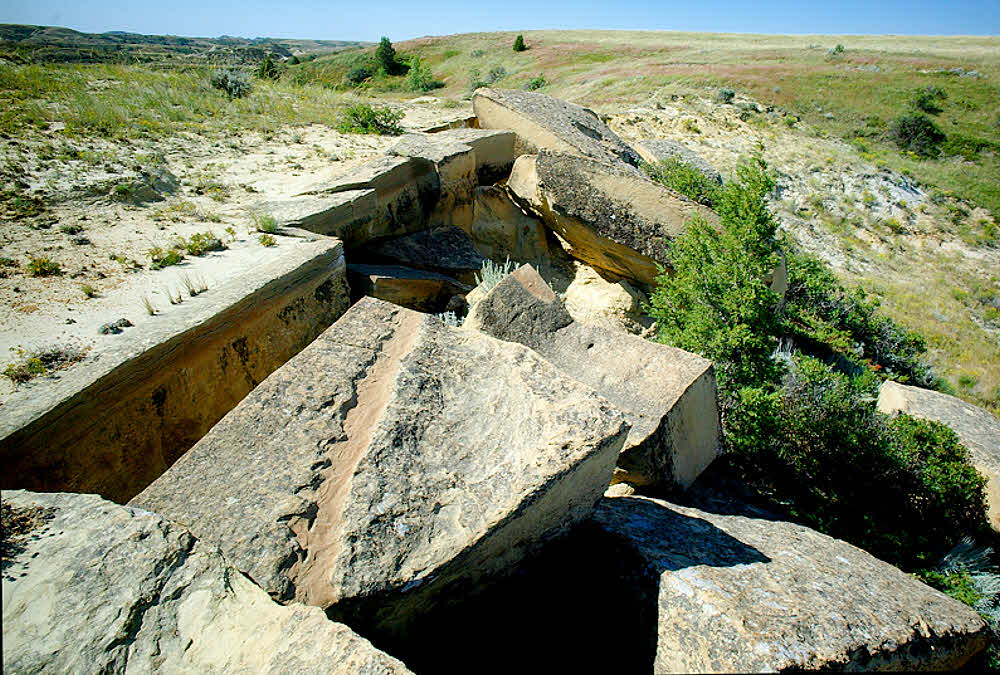
And rock again. With a little sort of rivulet etched into it.
Devil.
Roosevelt was a firm believer in "gentling" rather than "breaking" horses. He had no sentimental illusions concerning the character of the animals with which he was dealing, but he never ceased his efforts to make a friend instead of a suspicious servant of a horse. Most of Roosevelt's horses became reasonably domesticated, but there was one that resisted all Roosevelt's friendly advances. He was generally regarded as a fiend incarnate. "The Devil" was his name.
"The trouble with training the Devil," said Packard, who was present at the Maltese Cross one day when Roosevelt was undertaking to ride him, "was that he was a wild four-year-old when first ridden and this first contest was a victory for the horse. If the rider had won, Devil might have become a good saddle horse. But when the horse wins the first contest, one can look for a fight every time he is saddled. The chances favor his becoming a spoiled horse. I happened to arrive at the Chimney Butte Ranch one day just as the horse-herd was being driven into the corral. Devil knew he was due for a riding-lesson. It was positively uncanny to see him dodge the rope. On several occasions he stopped dead in his tracks and threw his head down between his front legs; the loop sliding harmlessly off his front quarters, where not even an ear projected. But Devil couldn't watch two ropes at once, and Roosevelt 'snared' him from the corral fence while Merrifield was whirling his rope for the throw. Instantly Devil stopped and meekly followed Roosevelt to the snubbing-post, where he was tied up for a period of 'gentling.' The ordinary procedure was to throw such a horse and have one man sit on his head while another bound a handkerchief over his eyes. He was then allowed to get on his feet and often made little resistance while the saddle and bridle were being adjusted. The rider then mounted and the fireworks began as soon as he jerked the handkerchief from the horse's eyes.
"Devil had gone through this procedure so often that he knew it by heart. He had, however, not become accustomed to being 'gentled' instead of 'busted.' As Roosevelt walked toward him, the horse's fear of man overcame his dread of the rope, and he surged back until the noose was strangling him.
"It was half an hour before he allowed Roosevelt to put a hand on his neck. All this was preliminary to an attempt to blindfolding Devil without throwing, and at last it was accomplished. He then submitted to being saddled and bridled, though he shrank from every touch as though it were a hot iron. The handkerchief was then taken from his eyes, and he began bucking the empty saddle like a spoiled horse of the worst type. Every one took a seat on top of the corral fence to await the time when he had strangled and tired himself to a standstill. Several times he threw himself heavily by tripping on the rope or by tightening it suddenly. And at last he gave it up, standing with legs braced, with heaving flanks and gasping breath.
"Roosevelt walked toward him with a pail of water and the first real sign that 'gentling' was better than 'busting' was when the wild-eyed Devil took a swallow; the first time in his life he had accepted a favor from the hand of man. It was too dangerous to attempt riding in the corral, and Devil was led out to some bottom-land which was fairly level; the end of the rope around the horn of Merrifield's saddle and Sylvane Ferris on another saddle horse ready to urge Devil into a run as soon as Roosevelt had mounted. A vain attempt at mounting was made, and finally Devil had to be blindfolded. Then came the mounting, and, almost instantly with the lifting of the blindfold, Roosevelt was sprawling in the sagebrush. Somewhat scratched he was, and his teeth glittered in the way which required a look at his eyes to tell whether it was a part of a smile or a look of deadly determination. It required no second glance to know that Devil was going to be ridden or Roosevelt was going to be hurt. There was no disgrace in being thrown. It was done in the same way that Devil had unhorsed other men whom Roosevelt would have been first to call better riders than himself. There was a sudden arching of the back which jolted the rider at least six inches from the saddle, then a whirling jump which completed a half-turn, and a landing, stiff-legged, on the fore feet while the hind hoofs kicked high in the air. In his six-inch descent the rider was met with the saddle or the flanks of the horse and catapulted into space. The only way to 'stay with the leather' was to get the horse to running instead of making this first jump.
"About every other jump we could see twelve acres of bottom-land between Roosevelt and the saddle, but now the rider stayed with the animal a little longer than before. Four times that beast threw him, but the fifth time Roosevelt maneuvered him into a stretch of quicksand in the Little Missouri River. This piece of strategy saved the day, made Roosevelt a winner, and broke the record of the Devil, for if there is any basis of operations fatal to fancy bucking it is quicksand. After a while Roosevelt turned the bronco around, brought him out on dry land, and rode him until he was as meek as a rabbit."
Source: Hagedorn's biography of Roosevelt.
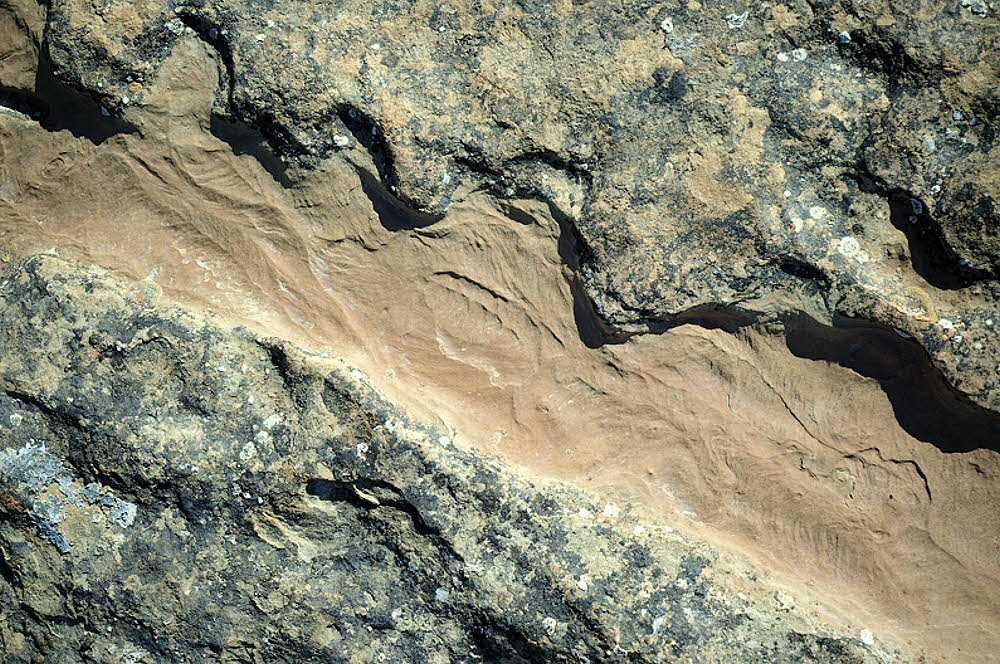
Which looks like this close up.
Cowboys.
They were a picturesque crew with their broad felt hats, their flannel shirts of various colors, overlaid with an enamel of dust and perspiration, baked by the Dakota sun, their bright silk handkerchiefs knotted round the neck, their woolly "shaps," their great silver spurs, their loosely hanging cartridge-belts, their ominous revolvers. Roosevelt was struck by the rough courtesy with which the men treated each other. There was very little quarreling or fighting, due, Roosevelt suspected, to the fact that all the men were armed; for, it seemed, that when a quarrel was likely to end fatally, men rather hesitated about embarking upon it.
The moral tone of the round-up camp seemed to Roosevelt rather high. There was a real regard for truthfulness, a firm insistence on the sanctity of promises, and utter contempt for meanness and cowardice and dishonesty and hypocrisy and the disposition to shirk.
The cowpuncher was a potential cattle-owner and good citizen, and if he went wild on occasion it was largely because he was so exuberantly young. In years he was generally a boy, often under twenty. But he did the work of a man, and he did it with singular conscientiousness and the spirit less of an employee than of a member of an order bound by vows, unspoken but accepted. He obeyed orders without hesitation, though it were to mount a bucking bronco or "head off" a stampede. He worked without complaint in a smother of dust and cattle fumes at temperatures ranging as high as 136 degrees; or, snow-blinded and frozen, he "rode line" for hours on end when the thermometer was fifty or more below zero.
He was in constant peril of his life from the horns of milling cattle or the antics of a "mean" horse. Roosevelt was immensely drawn to the sinewy, hardy, and self-reliant adventurers; and they in turn liked him.
Source: Hagedorn's biography of Roosevelt.
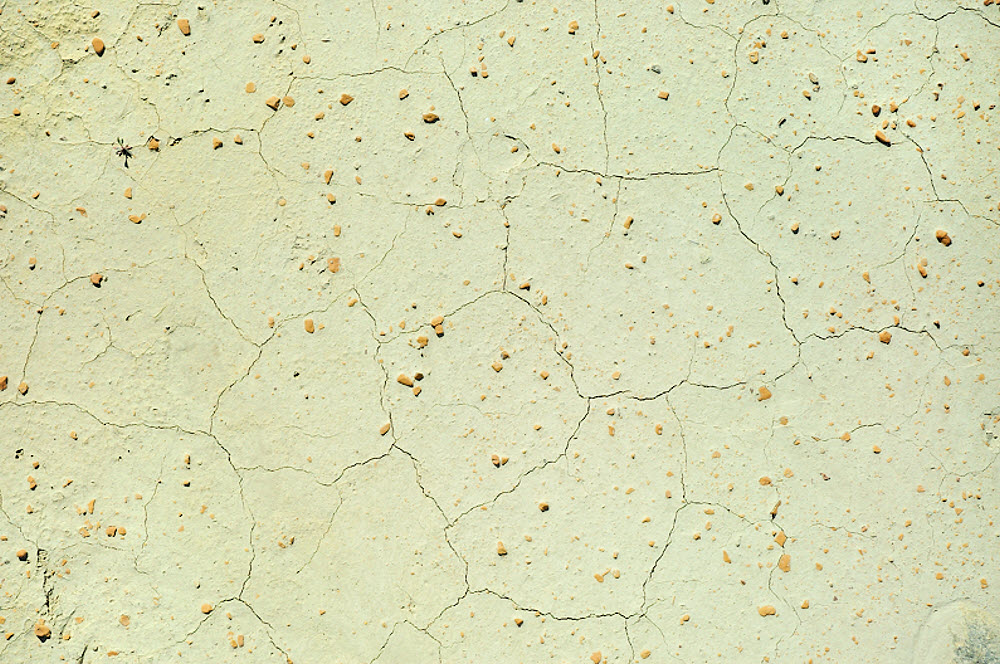
And more bare soil, waiting to be inoculated by something green.
The dude.
Most of the men sooner or later accepted Roosevelt as an equal, in spite of his toothbrush and his habit of shaving; but there was one man, a surly Texan, who insisted on "picking on" Roosevelt as a dude. Roosevelt laughed. But the man continued, in season and out of season, to make him the butt of his gibes.
It occurred to the object of all this attention that the Texan was evidently under the impression that the "dude" was also a coward. Roosevelt decided that, for the sake of general harmony, that impression had better be corrected at once.
One evening, when the man was being particularly offensive, Roosevelt strode up to him.
"You're talking like an ass!" he said sharply. "Put up or shut up! Fight now, or be friends!"
The Texan stared, his shoulder dropped a little, and he shifted his feet. "I didn't mean no harm," he said. "Make it friends."
They made it friends.
Source: Hagedorn's biography of Roosevelt.
Section 5: Wannagan Campground to end of my trip.
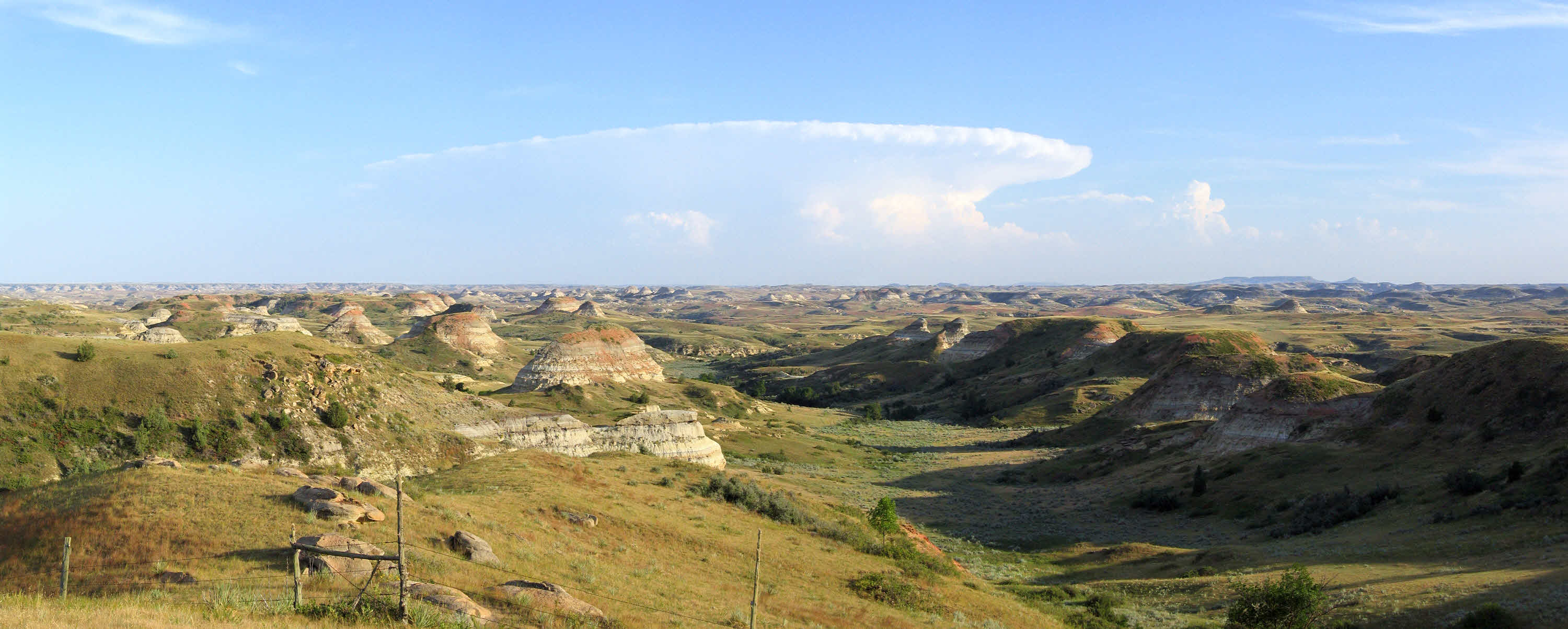
More exciting atmospherics out banging around.
Broncos.
If Roosevelt anticipated that he would have trouble with his untamed broncos, he was not disappointed. "The effort," as he subsequently remarked, "both to ride them, and to look as if I enjoyed doing so, on some cool morning when my grinning cowboy friends had gathered round 'to see whether the high-headed bay could buck the boss off,' doubtless was of benefit to me, but lacked much of being enjoyable."
One morning, when the round-up "outfits" were camped on the Logging Camp Range, south of the Big Ox Bow, Roosevelt had a memorable struggle with one of his four broncos. The camp was directly behind the ranch-house (which the Eaton brothers owned), and close by was a chasm some sixty feet deep, a great gash in the valley which the torrents of successive springs had through the centuries cut there. The horse had to be blindfolded before he would allow a saddle to be put on him.
Lincoln Lang was among the cowboys who stood in an admiring circle, hoping for the worst.
"Mr. Roosevelt mounted, with the blind still on the horse," Lang said, telling the story afterward, "so that the horse stood still, although with a well-defined hump on his back, which, as we all knew very well, meant trouble to come. As soon as Mr. Roosevelt got himself fixed in the saddle, the men who were holding the horse pulled off the blind and turned him loose."
Here Bill Dantz, who was also in the "gallery," takes up the story:
"The horse did not buck. He started off quietly, in fact, until he was within a few feet of the chasm. Then he leapt in the air like a shot deer, and came down with all four feet buckled under him, jumped sideways and went in the air a second time, twisting ends."
Here Lang resumes the narrative:
"Almost any kind of a bucking horse is hard to ride, but the worst of all are the 'sunfishers' who change end for end with each jump, maintaining the turning movement in one direction so that the effect is to get the rider dizzy. This particular horse was of that type, and almost simultaneous with the removal of the blind he was in gyroscopic action.
"I am aware that Mr. Roosevelt did not like to 'pull leather,' as the term goes, but this time at least he had to, but for the matter of that there were not many who would not have done the same thing. As nearly as I can remember, he got the horn of his saddle in one hand and the cantle in the other, then swung his weight well into the inside and hung like a leech. Of course, it took sheer grit to do it, because in thus holding himself tight to the saddle with his hands, he had to take full punishment, which can be avoided only when one has acquired the knack of balancing and riding loosely.
"As it was, his glasses and six-shooter took the count within the first few jumps, but in one way or another he hung to it himself, until some of the boys rode up and got the horse headed into a straightaway by the liberal use of their quirts. Once they got him running, it was all over, of course. If I remember right, Mr. Roosevelt rode the horse on a long circle that morning and brought him in safe, hours later, as good as gold."
Ben Butler.
The horse which Roosevelt had called "Ben Butler" was not so easily subdued. It was "Ben Butler's" special antic to fall over backward. He was a sullen, evil-eyed brute, with a curve in his nose and a droop in his nostrils, which gave him a ridiculous resemblance to the presidential candidate of the Anti-Monopoly Party. He was a great man-killing bronco, with a treacherous streak, and Roosevelt had put him in his "string" against the protests of his own men. "That horse is a plumb outlaw," Bill Dantz declared, "an' outlaws is never safe. They kinda git bad and bust out at any time. He will sure kill you, sooner or later, if you try to ride him."
One raw, chilly morning, Roosevelt, who had been ordered to ride "the outside circle," chose "Ben Butler" for his mount, because he knew the horse was tireless and could stand the long, swift ride better than any other pony he had. As Roosevelt mounted him, the horse reared and fell over backward. He had done that before, but this time he fell on his rider. Roosevelt, with a sharp pain in his shoulder, extricated himself and mounted once more. But the horse now refused to go in any direction, backward or forward.
Sylvane and George Myers threw their lariats about the bronco's neck, and dragged him a few hundred yards, choking but stubborn, all four feet firmly planted and pawing the ground. When they released the ropes, "Ben Butler" lay down and refused to get up.
The round-up had started; there was no time to waste. Sylvane gave Roosevelt his horse, Baldy, which sometimes bucked, but never went over backwards, and himself mounted the now re-arisen "Ben Butler." To Roosevelt's discomfiture, the horse that had given him so much trouble started off as meekly as any farm-horse.
"Why," remarked Sylvane, not without a touch of triumph, "there's nothing the matter with this horse. He's a plumb gentle horse."
But shortly after, Roosevelt noticed that Sylvane had fallen behind. Then he heard his voice, in persuasive tones, "That's all right! Come along!" Suddenly a new note came into his entreaties. "Here you! Go on you! Hi, hi, fellows, help me out! He's laying on me!"
They dragged Sylvane from under the sprawling steed, whereupon Sylvane promptly danced a war-dance, spurs and all, on the iniquitous "Ben." Roosevelt gave up the attempt to take that particular bronco on the round-up that day.
"By gollies," remarked "Dutch Wannigan" in later days, "he rode some bad horses, some that did quite a little bucking around for us. I don't know if he got throwed. If he did, there wouldn't have been nothin' said about it. Some of those Eastern punkin-lilies now, those goody-goody fellows, if they'd ever get throwed off you'd never hear the last of it. He didn't care a bit. By gollies, if he got throwed off, he'd get right on again. He was a dandy fellow."
Source: Hagedorn's biography of Roosevelt.

Little Missouri River upstream (south) of Wannagan Campground.
Dr. Stickney.
...in the Bad Lands you did not go to doctors, for the simple reason that there was only one physician in the whole region and he might at any given moment be anywhere from fifty to two hundred and fifty miles away. If you were totally incapacitated with a broken leg or a bullet in your lungs, you sent word to Dr. Stickney's office in Dickinson. The doctor might be north in the Killdeer Mountains or south in the Cave Hills or west in Mingusville, for the territory he covered stretched from Mandan a hundred and twenty miles east of Medora, to Glendive, the same distance westward, south to the Black Hills and north beyond the Canadian border, a stretch of country not quite as large as New England, but almost. The doctor covered it on horseback or in a buckboard; in the cab of a wild-cat engine or the caboose of a freight, or, on occasion, on a hand-car. He was as young as everybody else in that young country, utterly fearless, and, it seemed, utterly tireless. He rode out into the night careless alike of blinding sleet and drifting snow. At grilling speed he rode until his horse stood with heaving sides and nose drooping; then, at some ranch, he changed to another and rode on. Over a course of a hundred miles or more he would ride relays at a speed that seemed incredible, and at the end of the journey operate with a calm hand for a gun-shot wound or a cruelly broken bone, sometimes on the box of a mess-wagon turned upside down on the prairie.
Dr. Stickney was from Vermont, a quiet, lean man with a warm smile and friendly eyes, a sense of humor and a zest for life. He had a reputation for never refusing a call whatever the distance or the weather. Sometimes he rode with a guide; more often he rode alone. He knew the landmarks for a hundred miles in any direction. At night, when the trail grew faint, he held his course by the stars; when an unexpected blizzard swept down upon him and the snow hid the trail, he sought a brush-patch in a coulee and tramped back and forth to keep himself from freezing until the storm had spent itself. It was a life of extraordinary devotion. Stickney took it with a laugh, blushing when men spoke well of him; and called it the day's work.
Source: Hagedorn's biography of Roosevelt.
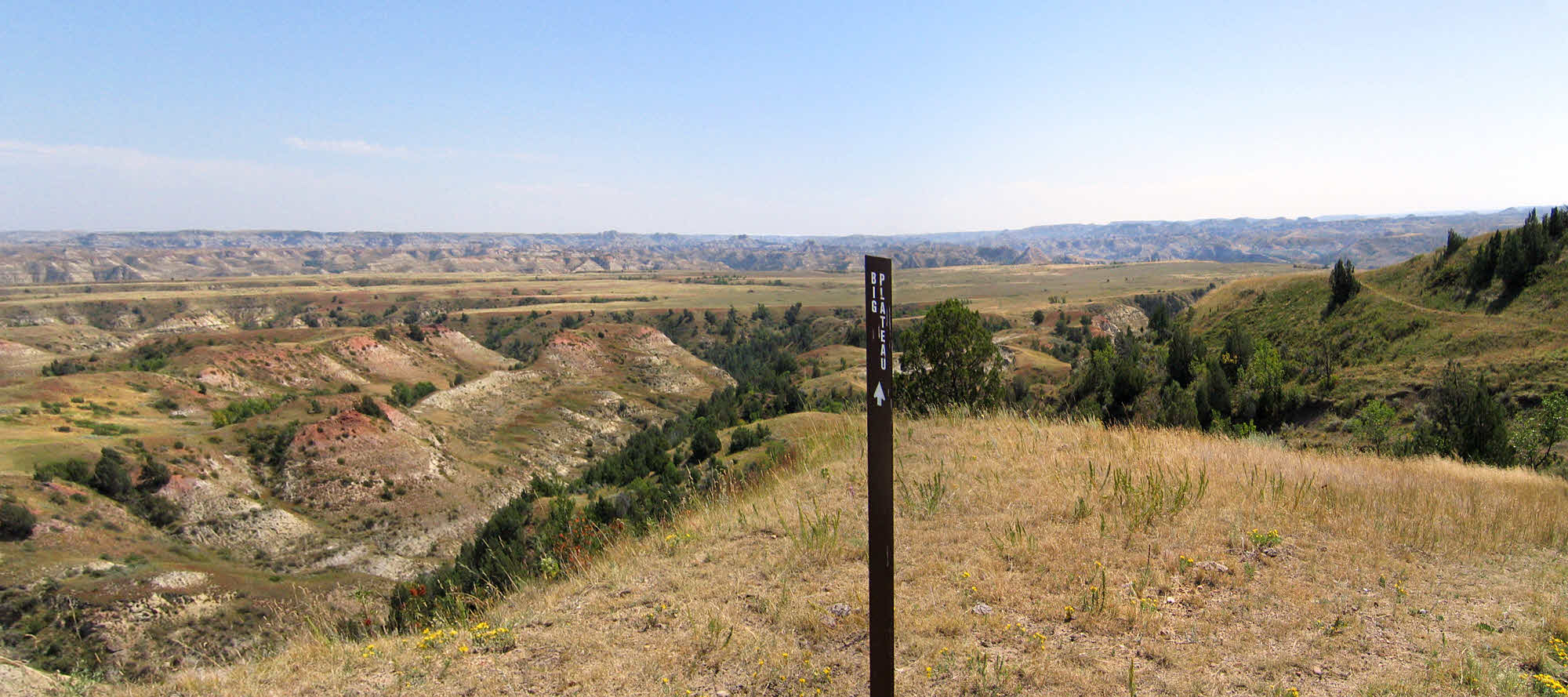
'Big Plateau' as they call it, way out there, going on forever.
Midnight stampede.
Suddenly there was a terrific peal of thunder. The lightning struck almost into the herd itself, and with heads and tails high the panic-stricken animals plunged off into the darkness.
...
For a minute or two Roosevelt could make out nothing except the dark forms of the beasts, running on every side of him like the black waters of a roaring river. He was conscious that if his horse should stumble there would be no hope for him in the path of those panicky hoofs.
...For a second he saw another cowboy beside him. The man disappeared in the darkness and the deluge, and Roosevelt galloped off through a grove of cottonwoods after the diminished herd. The ground was rough and full of pitfalls.
"The country was muddy and wet," said Lincoln Lang afterward. "We were having a heavy rain all night. I don't know how we ever got through. All we had was lightning flashes to go by. It was really one of the worst mix-ups I ever saw. That surely was a night."
...
Day broke at last, and as the light filtered through the clouds Roosevelt could dimly discern where he was. He succeeded at last in turning back what remained of the cattle in the direction of the camp, gathering in stray groups of cattle as he went, and driving them before him. He came upon a cowboy on foot carrying his saddle on his head. It was the man he had seen for a flash during the storm. His horse had run into a tree and been killed. He himself had escaped by a miracle.
The men in the camp were just starting on the "long circle" when Roosevelt returned. One of them saddled a fresh horse for him while he snatched a hasty breakfast; then he was off for the day's work.
...
It was ten hours before Roosevelt was back at the wagon camp once more for a hasty meal and a fresh horse. He finished work as the late twilight fell. He had been in the saddle forty hours, changing horses five times. That night he slept like the dead.
Source: Hagedorn's biography of Roosevelt.
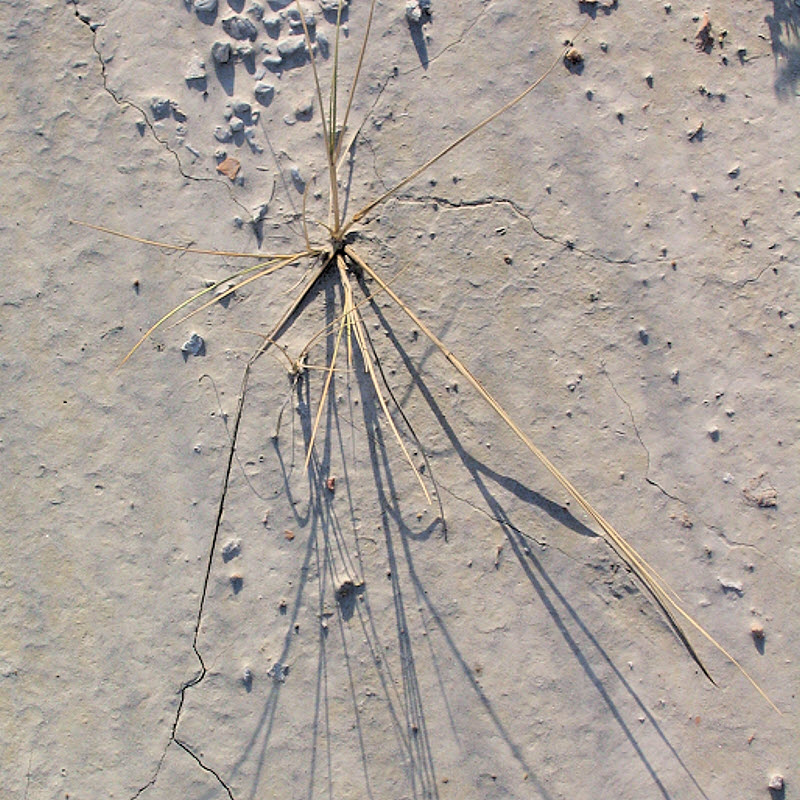
Spidery grass.
Court.
Next day, while they were in camp on the Heart River, an acquaintance of Sylvane's, a lawyer who rejoiced in the harmonious name of Western Starr, rode in from Dickinson to have dinner with "the boys." Sylvane showed him the papers the stranger had deposited at his feet.
The lawyer glanced over them. "What are these?" he asked.
"I don't know," answered Sylvane lightly. "That's what I handed them to you for, to find out."
"Why," exclaimed Starr, "these aren't anything. They haven't been signed by anybody."
Sylvane's jaw dropped. "Say, how about my bond?"
"Oh, that's valid, even if these are not. You've got to appear in court."
Sylvane's feelings concerning the "Deacon" and his precious advice were deep and earnest. The situation was serious. He knew well enough the chance that the "outfit" of a wealthy Easterner like Roosevelt would stand with a Gladstone jury, when it was a question of depriving a poor man of his cow.
Western Starr suggested that he arrange for a change of venue.
Sylvane approved. The change of venue cost ten dollars, but was granted. The date of the trial was set. Sylvane traveled to Dickinson and waited all day with his attorney for the trial to be called. No one appeared, not even the judge.
Starr's fee was twenty dollars. Sylvane's railroad fare was five more. The total bill was thirty-five.
Roosevelt paid the bill. If he remarked that, taking lost time into consideration, it would have been cheaper, in the first place, to pay the Russian the forty dollars he demanded, there is no record of it. But the remark would not have been characteristic. The chances are that he thought Sylvane's encounter with the law worth every cent that it cost.
Source: Hagedorn's biography of Roosevelt.
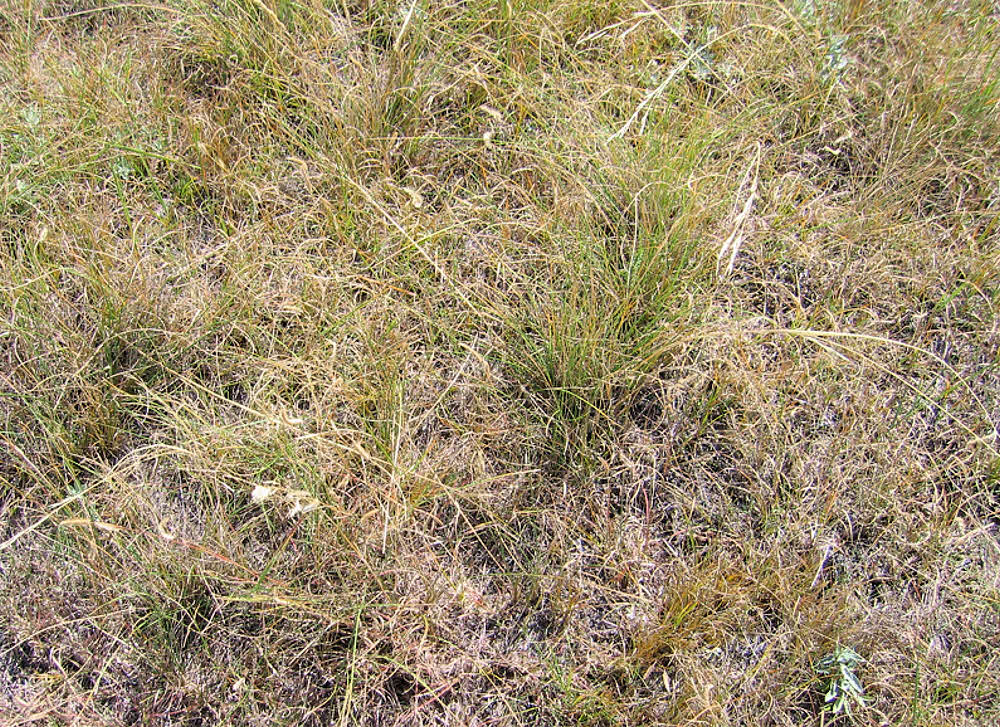
And more typical tangled, wiry, short prairie grass.
Life.
Somewhere on some faded page
I read about a Golden Age,
But gods and Caledonian hunts
Were nothing to what I knew once.
Here on these hills was hunting! Here
Antelope sprang and wary deer.
Here there were heroes! On these plains
Were drops afire from dragons' veins!
Here there was challenge, here defying,
Here was true living, here great dying!
Stormy winds and stormy souls,
Earthly wills with starry goals,
Battle-thunder-hoofs in flight-
Centaurs charging down the night!
Here there were feasts of song and story
And words of love and dreams of glory!
Here there were friends! Ah, night will fall
And clouds or the stars will cover all,
But I, when I go as a ghost again
To the gaunt, grim buttes, to the friendly plain
I know that for all that time can do
To scatter the faithful, estrange the true-
Quietly, in the lavender sage,
Will be waiting the friends of my golden age.
— From Medora Nights
The wild riding, the mishaps, the feverish activity, the smell of the cattle, the dust, the tumult, the physical weariness, the comradeship, the closeness to life and death-to Roosevelt it was all magical and enticing. He loved the crisp morning air, the fantastic landscape, the limitless spaces, half blue and half gold. His spirit was sensitive to beauty, especially the beauty that lay open for all in the warm light of dawn and dusk under the wide vault of heaven; and the experiences that were merely the day's work to his companions to him were edged with the shimmer of spiritual adventure.
"We knew toil and hardship and hunger and thirst," Roosevelt wrote thirty years later, "and we saw men die violent deaths as they worked among the horses and cattle, or fought in evil feuds with one another; but we felt the beat of hardy life in our veins, and ours was the glory of work and the joy of living."
Interview in St Paul.
"I'm just in from my ranch," he said [runs the interview]. "Haven't had my dinner yet, but I think a short talk with a newspaper fellow will give me a whetted appetite. Yes, I am a regular cowboy, dress and all-" and his garb went far to prove his assertion, woolen shirt, big neck handkerchief tied loosely around his neck, etc. "I am as much of a cowboy as any of them and can hold my own with the best of them. I can shoot, ride, and drive in the round-up with the best of them. Oh, they are a jolly set of fellows, those cowboys; tiptop good fellows, too, when you know them, but they don't want any plug hat or pointed shoes foolishness around them. I get along the best way with them."
Source: Hagedorn's biography of Roosevelt.
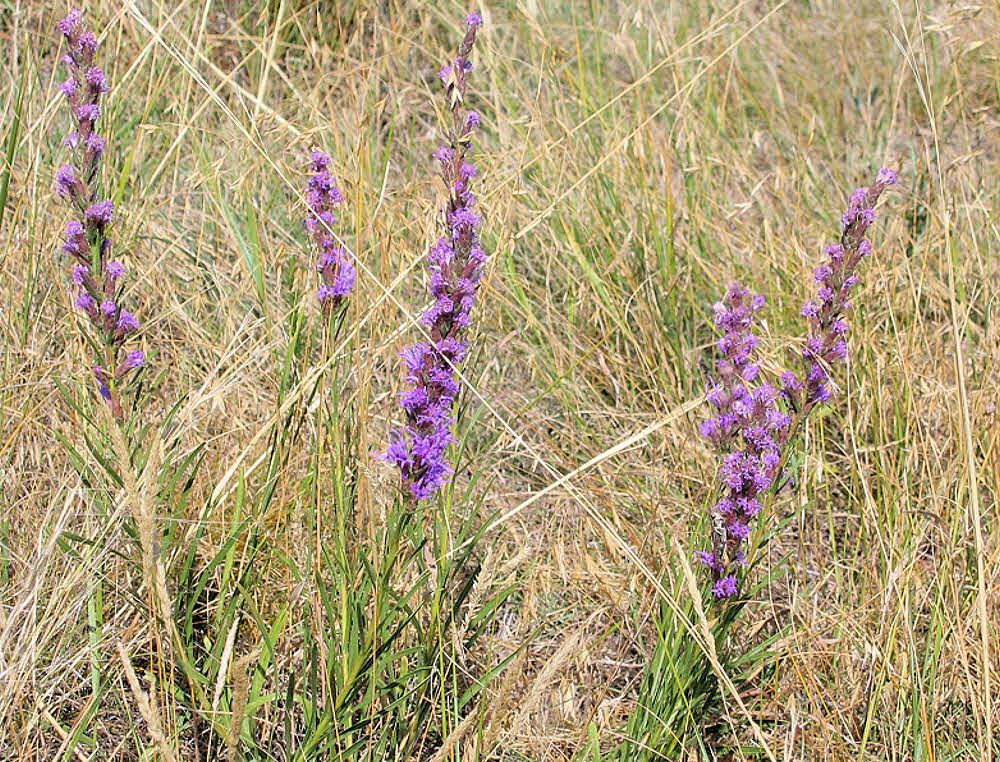
Blue-somethings.
Sewall and Dow fetch their wives.
The "womenfolks" from Maine were at Elkhorn when Roosevelt arrived. They were backwoodswomen, self-reliant, fearless, high-hearted; true mates to their stalwart men. Mrs. Sewall had brought her three-year-old daughter with her. Before Roosevelt knew what was happening, they had turned the new house into a new home.
And now for them all began a season of deep and quiet contentment that was to remain in the memories of all of them as a kind of idyl. It was a life of elemental toil, hardship, and danger, and of strong, elemental pleasures-rest after labor, food after hunger, warmth and shelter after bitter cold. In that life there was no room for distinctions of social position or wealth. They respected one another and cared for one another because and only because each knew that the others were brave and loyal and steadfast.
Life on the ranch proved a more joyous thing than ever after the women had taken charge. They demanded certain necessities at once. They demanded chickens, which Roosevelt supplied, to the delight of the bobcats, who promptly started to feast on them; they demanded at least one cow. No one had thought of a cow. No one in the length and breadth of that cattle country, except Mrs. Roberts, seemed to think it worth while to keep a cow for the milk that was in her, and all the cows were wild as antelope. Roosevelt and Sewall and Dow among them roped one on the range and threw her, and sat on her, and milked her upside down, which was not altogether satisfactory, but was, for the time being, the best thing they could do.
Domestic life.
Meals became an altogether different matter from what they had been at the Maltese Cross where men were kings of the kitchen. "Eating was a sort of happy-go-lucky business at the Maltese Cross," remarked Bill Sewall subsequently. "You were happy if you got something, an' you were lucky too." There was now a new charm in shooting game, with women at home to cook it. And Mrs. Sewall baked bread that was not at all like the bread Bill baked. Soon she was even baking cake, which was an unheard-of luxury in the Bad Lands. Then, after a while, the buffalo berries and wild plums began to disappear from the bushes roundabout and appear on the table as jam.
"However big you build the house, it won't be big enough for two women," pessimists had remarked. But their forebodings were not realized. At Elkhorn no cross word was heard. They were, taken altogether, a very happy family. Roosevelt was "the boss" in the sense that, since he footed the bills, power of final decision was his; but only in that sense. He saddled his own horse; now and then he washed his own clothes; he fed the pigs; and once, on a rainy day, he blacked the Sunday boots of every man, woman, and child in the place. He was not encouraged to repeat that performance. The folks from Maine made it quite clear that if the boots needed blacking at all, which was doubtful, they thought some one else ought to do the blacking-not at all because it seemed to them improper that Roosevelt should black anybody's boots, but because he did it so badly. The paste came off on everything it touched. The women "mothered" him, setting his belongings to rights at stated intervals, for he was not conspicuous for orderliness. He, in turn, treated the women with the friendliness and respect he showed to the women of his own family. And the little Sewall girl was never short of toys.
Elkhorn Ranch was a joyous place those days. Cowboys, hearing of it, came from a distance for a touch of home life and the luxury of hearing a woman's voice.
Source: Hagedorn's biography of Roosevelt.
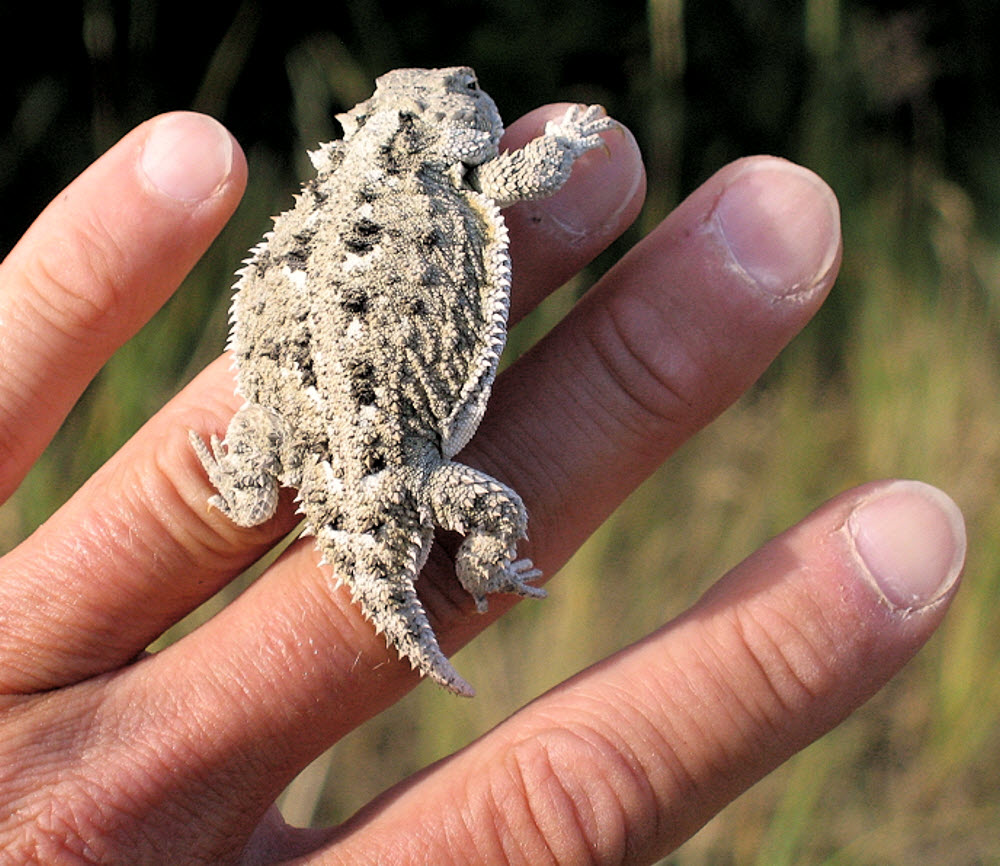
Ah — I found another buddy.
The real Bill Sewall.
Roosevelt's days were full of diverse activities, and the men who worked with him at Elkhorn were the pleasantest sort of companions. Bill Sewall, who, as Sylvane described him, was "like a track-hound on the deer-trail," had long ago given up the idea of making a cowboy of himself, constituting himself general superintendent of the house and its environs and guardian of the womenfolks. Not that the women needed protection. There was doubtless no safer place for women in the United States at that moment than the Bad Lands of the Little Missouri; and Mrs. Sewall and Mrs. Dow could have been counted on to handle firearms as fearlessly if not as accurately as Bill himself. But Bill tended the famished, unhappy-looking potato-patch for them, and with characteristic cheerfulness did the other chores, being quite content to leave to Roosevelt and Dow and another young cowpuncher named Rowe the riding of "sunfishers" and such things. He had a level head and an equable temper, and the cowpunchers all liked him. When a drunken cowboy, who had been a colonel in the Confederate army, accosted him one day in Joe Ferris's store with the object apparently of starting a fight, it was Sewall's quiet good nature that made his efforts abortive.
"You're a damned pleasant-looking man," exclaimed the Southerner.
Sewall smiled at him. "I am," he said. "You can't find a pleasanter man anywhere round." Which was the essential truth about Bill Sewall.
The real Will Dow.
Of all Roosevelt's friends up and down the river, Sewall's nephew, Will Dow, was possibly the one who had the rarest qualities of intellect and spirit. He had a poise and a winsome lovableness that was not often found in that wild bit of country combined with such ruggedness of character. He had a droll and altogether original sense of humor, and an imagination which struck Roosevelt as extraordinary in its scope and power and which disported itself in the building of delightful yarns.
"He was always a companion that was sought wherever he went," said Bill Sewall. "There are men who have the faculty of pleasing and creating mirth and he was one of that kind."
Rowe, the hired hand
Rowe was a different sort, of coarser fiber, but himself not without charm. He was a natural horseman, fearless to recklessness, an excellent worker, and a fighting man with a curious streak of gentleness in him that revolted against the cruelty of the branding-iron. Most men accepted the custom of branding cattle and horses as a matter of course. There was, in fact, nothing to do save accept it, for there was no other method of indicating the ownership of animals which could be reasonably relied on to defy the ingenuity of the thieves. Attempts to create opinion against it were regarded as sentimental and pernicious and were suppressed with vigor.
But Rowe had plenty of courage. "Branding cattle is rotten," he insisted, in season and out of season; adding on one occasion to a group of cowpunchers standing about a fire with branding-irons in their hands, "and you who do the branding are all going to hell."
"Aw," exclaimed a cowboy, "there ain't no hell!"
"You watch," Rowe retorted. "You'll get there and burn just as that there cow."
Source: Hagedorn's biography of Roosevelt.
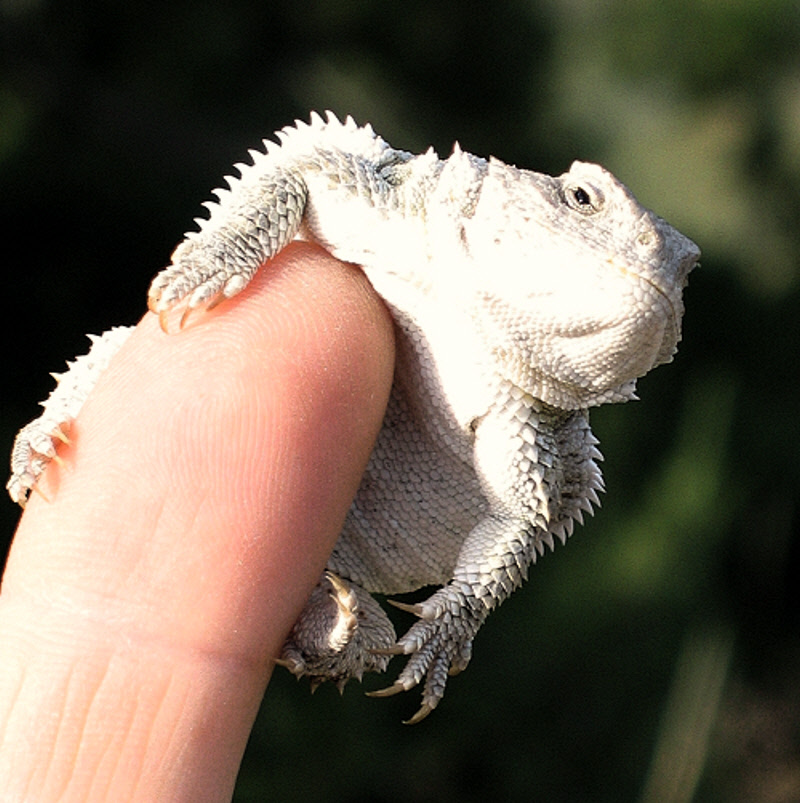
Skeptical but calm.
The Wadsworth's dog.
Roosevelt's first call on Mrs. Wadsworth had its serio-comic aspects. The Wadsworths had a great wolf-hound whom Roosevelt himself described as "a most ill-favored hybrid, whose mother was a Newfoundland and whose father was a large wolf," and which looked, it seemed, more like a hyena than like either of its parents. The dog both barked and howled, but it had a disconcerting habit of doing neither when it was on business bent. The first intimation Roosevelt had of its existence one day, as he was knocking at the door of the Wadsworth cabin, was a rush that the animal made for his trousers.
Pete Pellessier, a round-faced, genial cowpuncher from Texas, subsequently told about it. "It was one of those dogs that come sneaking around, never a growl or anything else-just grab a hunk of your leg to let you know they're around. That's the kind of a dog this was. Roosevelt just started to make a bow to Mrs. Wadsworth, 'way over, real nice. Well, that dog flew and grabbed him in the seat of the pants-he had on corduroy pants.
"'Get out of here, you son-of-a-gun!' he says; 'get out of here, I tell you!'
"Then he turns to Mrs. Wadsworth. 'I beg your pardon, Mrs. Wadsworth,' he says politely, 'that dog was grabbing me an'-"
"Just then the dog reached for another helping. 'Get out of here!' Roosevelt shouts to the dog, and then turns back, 'How do you do?' he says to Mrs. Wadsworth. But the dog came back a third time, and that time Roosevelt gave that wolf-hound a kick that landed him about ten rods off. An' Roosevelt went on with his visiting."
The good times.
It was a free and joyous life that Roosevelt lived with his warm-hearted companions at Elkhorn those late summer days of 1885.
Now and then, when work was done, he would sit on the porch for an hour or two at a time, watching the cattle on the sand-bars, "while," as he wrote subsequently, "the vultures wheeled overhead, their black shadows gliding across the glaring white of the dry river-bed."
Often he would sink into his rocking-chair, grimy and hot after the day's work, and read Keats and Swinburne for the contrast their sensuous music offered to the vigorous realities about him; or, forgetting books, he would just rock back and forth, looking sleepily out across the river while the scarlet crests of the buttes softened to rose and then to lavender, and lavender gave place to shadowy gray, and gray gave place to the luminous purple of night.
The leaves of the cottonwood trees before the house were never still, and often the cooing of mourning doves would come down to him from some high bough. He heard the thrush in the thicket near by, and in the distance the clanging cries of the water-fowl. He knew the note of every bird, and they were like friends calling to him.
Source: Hagedorn's biography of Roosevelt.
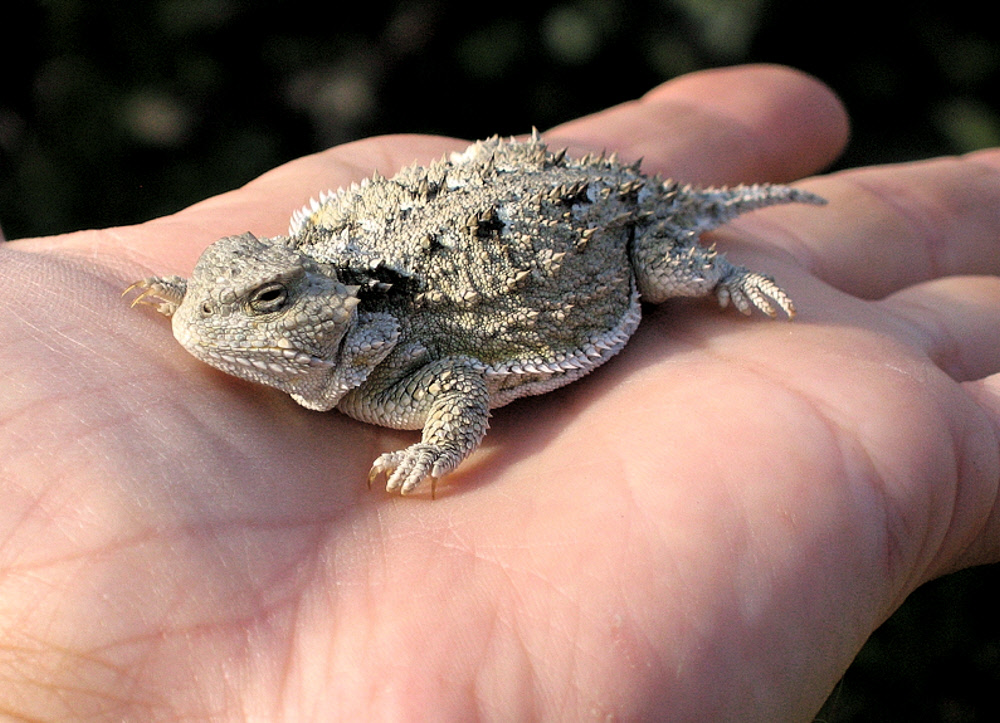
See? No-fuss temporary friends.
Saloons.
We're the children of the open and we hate the haunts o' men,
But we had to come to town to get the mail.
And we're ridin' home at daybreak-'cause the air is cooler then-
All 'cept one of us that stopped behind in jail.
Shorty's nose won't bear paradin', Bill's off eye is darkly fadin',
All our toilets show a touch of disarray;
For we found that City life is a constant round of strife,
And we ain't the breed for shyin' from a fray.
Chant your war-whoops, pardners dear, while the east turns pale with fear,
And the chaparral is tremblin' all aroun';
For we're wicked to the marrer; we're a midnight dream of terror,
When we're ridin' up the rocky trail from town!
— Badger Clark
The architectural monuments in which Medora's opulence most vigorously expressed itself were the saloons. The number of these varied, according to the season. Sometimes there were a dozen, sometimes there were more, for no one bothered about a license and any one with ten dollars and a jug of rum could start his own "liquor parlor."
Among the saloons Bill Williams's stood in a class by itself. He, too, had followed civilization to Medora, establishing himself first in a small building near Joe's store, and, when that burnt down, in an imposing two-story frame structure which the Marquis de Mores built for him. The bar-room was on the first floor and above it was a huge hall which was used for public meetings and occasionally for dances. The relation of the dance-hall to the bar-room had its disadvantages, especially when the shooting began. The bar-room itself was a sumptuous affair, for Williams had the shrewdness to know that it was not only rum that the lonely cowpuncher sought when he pushed in the swinging doors. The place was never closed, night or day, and the faro wheel was seldom silent.
The other saloons could not compete with the gorgeousness with which Bill Williams edged the cloud of robbery and ruin that hung about his iniquitous saloon; when they seemed for a night to compete, drawing to their own hospitable bars the cowpunchers whom Williams looked upon as his own legitimate prey, he had a way of standing at his door and shooting indiscriminately into the night. Out of a dozen rum-shops would pour excited cowboys eager to know "what the shooting was about," and as they crowded inquisitively about his bar, trade would once more become brisk in Bill Williams's saloon.
Source: Hagedorn's biography of Roosevelt.
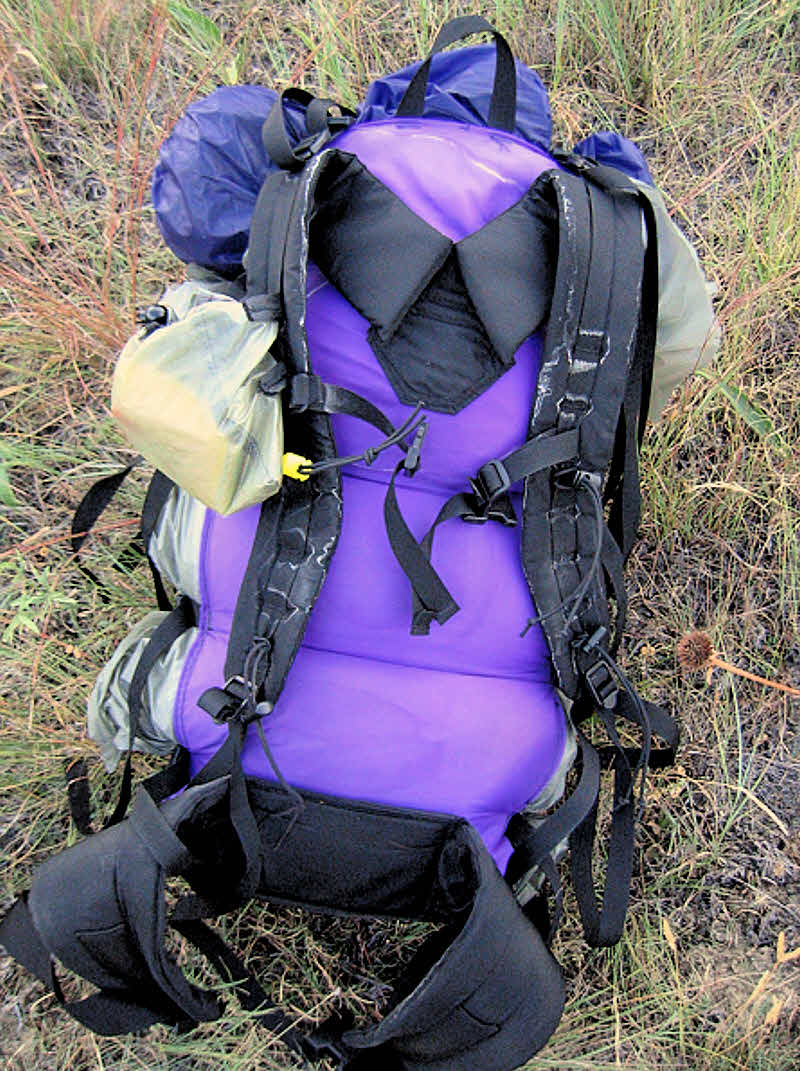
My Gearskin, a salty snack pack.
Fashion notes.
Bill's head was full o' fire
An' his gizzard full o' rum,
An' the things he said wuz rich an' red
An' rattled as they come.
Dave wuz on his stummick,
Readin' the news at his ease-like,
When Bill comes, brave, sayin' what he'll do to Dave
In words what could walk away, cheese-like.
Ol' Bill's fist wuz man-size
Sure as any alive-
But Dave, never squintin', turns over the printin'
An' there wuz his Forty-five.
Bill he chokes an' swallers,
But Dave he's gentle an' mild,
An' they talks together o' cows an' the weather,
An' allows they is re-con-ciled.
— From Medora Nights
Under the title "Styles in the Bad Lands," the Dickinson Press reprinted certain "fashion notes" from the columns of an enterprising contemporary:
The Estelline (Dak.) Bell has been at some trouble to collect the following latest fashion notes for the benefit of its Bad Lands readers: The "gun" is still worn on the right hip, slightly lower down than formerly.
This makes it more convenient to get at during a discussion with a friend.
The regular "forty-five" still remains a favorite.
Some affect a smaller caliber, but it is looked upon as slightly dudish. A "forty," for instance, may induce a more artistic opening in an adversary, but the general effect and mortality is impaired.
The plug of tobacco is still worn in the pocket on the opposite side from the shooter, so when reaching for the former, friends will not misinterpret the move and subsequently be present at your funeral.
It is no longer considered necessary to wait for introductions before proceeding to get the drop. There will be time enough for the mere outward formalities of politeness at the inquest.
The trimming of the "iron" is still classic and severe, only a row of six cartridges grouped around the central barrel being admissible.
Self-cockers are now the only style seen in the best circles. Much of the effectiveness of the gun was formerly destroyed by having to thumb up the hammer, especially when the person with whom you were conversing wore the self-cocking variety. It has been found that on such occasions the old-style gun was but little used except in the way of circumstantial evidence at the inquest.
Shooting from the belt without drawing is considered hardly the thing among gentlemen who do not wish to be considered as attempting to attract notice. In cases where the gentleman with whom you are holding a joint debate already has the drop, his navy six having a hair trigger, and he being bound to shoot, anyway, this style of discussion is allowable, though apt to cause a coldness to spring up.
As regards the number of guns which it is admissible to wear, great latitude is allowed, from one up to four being noted on the street and at social gatherings. One or two is generally considered enough, except where a sheriff with a reputation of usually getting his man and a Winchester rifle is after you, when we cannot too strongly impress upon the mind of the reader the absolute necessity for going well heeled.
Source: Hagedorn's biography of Roosevelt.
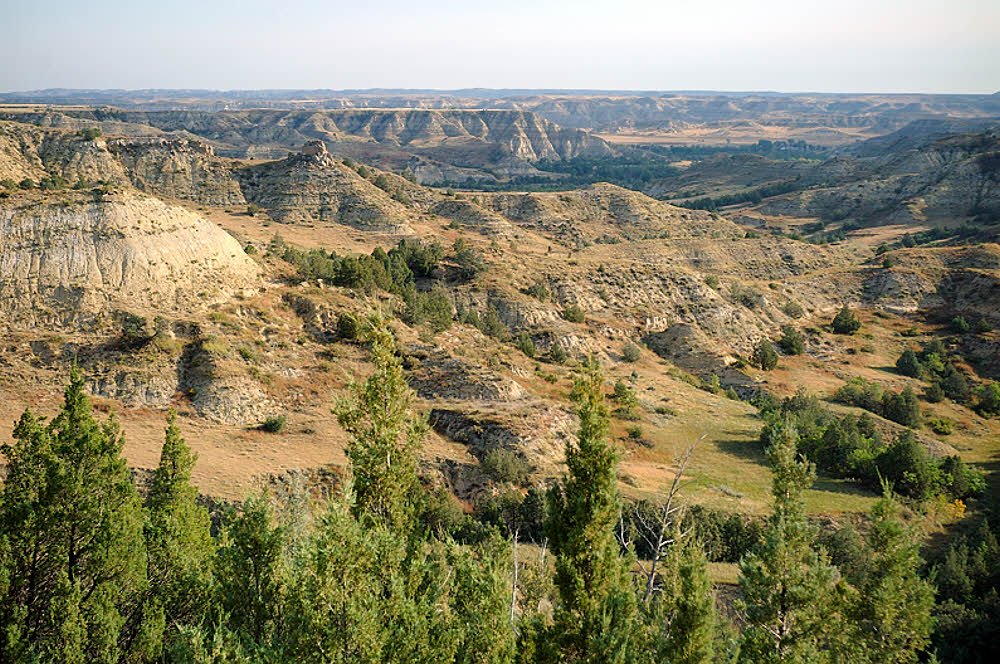
Never-ending landscape.
Religion.
Amid the tumult and excitement of life in Medora that summer of 1885, the consolations of organized religion were more inaccessible even than the services of an earthly physician, and there was no servant of Christ, of any creed or any denomination, who ministered to the men and women scattered through that wild region in a manner even remotely comparable to the self-sacrificing devotion with which Dr. Stickney ministered to them. That excellent disciple of the Lord doctored broken spirits even as he doctored broken bodies. The essentials of religion, which are love and service, he gave with both hands from a full heart; the "trimmings" he left to the parsons.
...
The inhabitants of the Bad Lands did not greatly feel the need of spiritual instruction, and were inclined to seek consolation, when they needed it, in "Forty-Mile Red-Eye" rather than in theology.
"Anything or any one associated with religion or spiritual living was shunned," Bill Dantz explained in after days, "religion being looked on as an institution for old women and weaklings. Such traveling evangelists and, later, regular pastors as came to the Northwest were treated with respect, but never came within miles of the intimacy or confidence of the cowboys. Such early congregations as clustered about the pioneer churches were the newly arrived 'nesters' or homesteaders of the towns; the cowboys never. There could be no possible community of interests between book-learned men of sedentary profession and a half-tamed, open-range horseman."
The reason, of course, was that the missionaries were fundamentally less honest and virtuous than the gay-hearted argonauts to whom they attempted to bring the gospel; and their patient listeners, who had no illusions concerning their own piety, nevertheless knew it. The preachers, moreover, were less than human. They preached interminable sermons. Discourses lasting an hour and a half were common, and even lengthier ones were not unusual. The parsons were hopelessly thick-skinned, moreover, and impervious to hints. When on one occasion, at which Sylvane was present, the congregation began to consult their watches, the preacher, instead of bringing his sermon to a close, exclaimed, "See here, you don't want to be lookin' at your watches. You don't hear a sermon often."
...
The third Sunday the missionary did not appear. He had found it necessary to make a swift exit from his domicile, departing by one door as a sheriff entered by another. He had, it seems, knocked in the head of one of his parishioners with a hatchet.
Experiences of this sort were not calculated to inspire respect for the clergy in the minds of the cowpunchers.
"Them preachers," Sylvane subsequently remarked, "broke us fellows from going to church."
Source: Hagedorn's biography of Roosevelt.
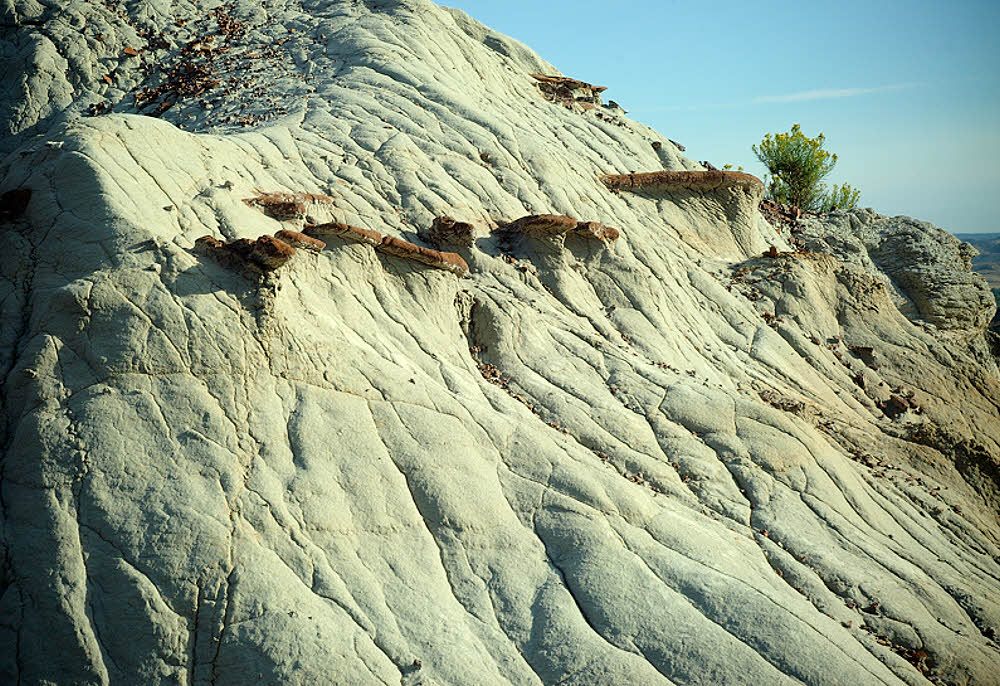
Stairway to nowhere, mostly.
Doofus de mores.
A hundred head of cattle were slaughtered daily at the new abattoir. At last the plant was efficient. The Marquis had a right to congratulate himself. But unexpectedly a fresh obstacle to success obtruded itself. The experts had been wrong; the beef proved of poor quality. The branch houses disposed of it with difficulty, and the retail dealers in Chicago refused to buy. Although dressed beef was produced there in enormous quantities for Eastern markets, the local consumer had a prejudice against cold-storage meat. He did not like grass-fed beef, moreover. It was as good or better than corn-fed beef, but he was not accustomed to it, and would not change his habits even at a saving.
It was a staggering blow, but the Marquis was a fighting man and he took it without wincing. Packard, discussing the situation with him one day, pointed out to him that the cattle could not possibly be stall-fed before they were slaughtered as no cattle feed was raised short of the corn country, hundreds of miles to the south.
The Marquis was not noticeably perturbed by this recital of an obvious fact. "I am arranging to buy up the hop crop of the Pacific coast," he answered calmly. "This I will sell to the Milwaukee and St. Louis brewers on an agreement that they shall return to me all the resultant malt after their beer is made. This I will bring to Medora in tank cars. It is the most concentrated and fattening food to be bought. I will cover the town site south of the track with individual feeding-pens; thousands of them. Not only can I hold fat cattle as long as I wish, but I will feed cattle all the year round and always have enough to keep the abattoir running."
There was something gorgeous in the Marquis's inability to know when he was beaten. His power of self-hypnotism was in fact, amazing, and the persistence with which he pursued new bubbles, in his efforts to escape from the devils which the old ones had hatched as they burst, had its attractive side.
...
For all the Marquis's endeavors to outface fortune, however, and to win success somewhere, somehow, beyond this valley of a hundred failures, the Nemesis which every man creates out of his limitations was drawing her net slowly and irresistibly about him. He had no friends in Medora. His foreign ways and his alien attitude of mind kept him, no doubt against his own desires, outside the warm circle of that very human society. He was an aristocrat, and he did not understand the democratic individualism of the men about him. "The Marquis," as one of his associates later explained, "always had the idea of being the head of something or other, and tried to run everything he had anything to do with."
...
De Mores was related more or less nearly to the Orleans family which had never renounced what it regarded as its title to the throne of France; and he himself had his eye on a crown. Behind all his activities in the Bad Lands loomed a grandiose purpose. To one or two of his associates he revealed it. He would make a great fortune in America, he declared, then return to France and, with the glitter of his dollars about him, gain control of the French army and by a coup d'état make himself King of France.
Two aristocrats.
As the only rival for leadership in the Bad Lands of this aspirant for a throne stood, by one of Fate's queerest whimsies, a man who also had his eye on one of the high places of this world. The Marquis de Mores was the leader, or if not the leader at least the protector, of the forces of reaction; Theodore Roosevelt was the leader of the forces of progress. They were both in the middle twenties, both aristocrats by birth, both fearless and adventurous; but one believed in privilege and the other believed in equality of opportunity.
"When it came to a show-down, the Marquis was always there," said Dr. Stickney, who watched the quiet struggle for supremacy with a philosophic eye, "but he had no judgment. You couldn't expect it. He was brought up in the army. He was brought up in social circles that didn't develop judgment. He didn't know how to mix with the cowboys. When he did mix with any of them, it was always with the worst element. Now, when Roosevelt came to the Bad Lands he naturally attracted the better element among the cowboys, such men as the Ferrises and Merrifield, men of high character whose principles were good."
And Packard said: "Roosevelt was the embodiment of the belief of obedience to the law and the right of the majority to change it. The Marquis was equally honest in his belief that he himself was the law and that he had a divine right to change the law as he wished."
When is a deal.
A totally unexpected incident brought the growing friction between the two men for a flash into the open. Roosevelt had agreed to sell the Marquis eighty or a hundred head of cattle at a price, on which they agreed, of about six cents a pound. Accompanied by two of his cowpunchers, he drove the cattle to the enclosure adjoining the abattoir of the Northern Pacific Refrigerator Car Company, had them weighed, and went to the Marquis for his check.
"I am sorry I cannot pay you as much as I agreed for those cattle," said the Marquis.
"But you bought the cattle," Roosevelt protested. "The sale was complete with the delivery."
"The Chicago price is down a half cent," answered the Marquis regretfully. "I will pay you a half cent less than we agreed."
The air was electric. Packard told about it long afterwards. "It was a ticklish situation," he said. "We all knew the price had been agreed on the day before; the sale being completed with the delivery of the cattle. Fluctuations in the market cut no figure. Roosevelt would have made delivery at the agreed price even if the Chicago price had gone up."
Roosevelt turned to the Marquis. "Did you agree to pay six cents for these cattle?"
"Yes," the Marquis admitted. "But the Chicago price-"
"Are you going to pay six cents for them?" Roosevelt broke in.
"No; I will pay five and a half cents."
Roosevelt turned abruptly to his cowpunchers. "Drive 'em out, boys," he said. The men drove out the cattle.
"There was no particular ill-feeling between them," Packard said later, "and Roosevelt gave the Marquis credit for an honest belief that a variation in the Chicago price would cut a figure in their agreed price. It was that very fact, however, which made impossible any further business relations between them."
Source: Hagedorn's biography of Roosevelt.

Just like your skin after a few days out here.
The trial.
Meanwhile, during those summer months of 1885 the hot water into which the Frenchman had flung himself when he assisted in the killing of Riley Luffsey began to simmer once more. It came to a boil on August 26th, when a grand jury in Mandan indicted the Marquis de Mores for murder in the first degree.
...
The indictment of the Marquis...was mightily agitating the western part of the Territory. Sentiment in the matter had somewhat veered since the first trials which had been held two years before. The soberer of the citizens, recognizing the real impetus which the Marquis's energy and wealth had given to the commercial activity of the West Missouri region, were inclined to sympathize with him. There was a widespread belief that in the matter of the indictment the Marquis had fallen among thieves.
The Marquis returned from the East about the last day of August, and gave himself up to the sheriff at Mandan. He was promptly lodged in jail. The remark he had made to the interviewer in New York, that a jail was not a safe place in Dakota, proved prophetic. A mob, composed of cowboys and lumberjacks, bombarded the jail in which the Marquis was confined. At the close of the bombardment, Roosevelt, who happened to be in Mandan, on his way to the East, called on the Marquis.
In the Marquis's cell he found the Frenchman with his faithful valet and secretary. The secretary was under the bed, but the Marquis was sitting on its edge, calmly smoking a cigarette.
As the date for the trial drew near, feeling rose. The idle and vociferous elements in the town discovered that the Marquis was a plutocrat and an enemy of the people, and called thirstily for his blood. There was a large Irish population, moreover, which remembered that the slain man had borne the name of Riley and (two years after his demise) hotly demanded vengeance. The Marquis declared that, with popular sentiment as it was, he could not be given a fair trial, and demanded a change of venue. It was granted. The mob, robbed of its prey, howled in disappointment. A mass meeting was held and resolutions were passed calling for the immediate removal of the iniquitous judge who had granted the Marquis's petition.
The trial, which began on September 15th, was more nerve-racking for the lawyers than for the defendant. For the witnesses were elusive. The trial seemed to be regarded by the majority of those connected with it as a gracious act of Providence for the redistribution of some of the Marquis's wealth. Everybody, it seemed, was thrusting a finger into the Marquis's purse. One of his friends later admitted that the Frenchman's money had been freely used, "but, of course, only," he blandly explained, "to persuade the witnesses to tell the truth."
McFay, a carpenter, who had distinguished himself at the previous trial by the melodramatic quality of his testimony, proved the peskiest witness of all..."Come outside a minute," he said.
...
"My memory is getting damn poor," declared the carpenter.
"How much do you want?"
"Oh, five hundred."
He got it. The trial proceeded.
One juror was, for no reason which they themselves could adequately analyze, withdrawn by the Marquis's attorneys at the last minute. He told one of them years after that, if he had been allowed to serve, he would have "hung up the jury until some one had passed him ten thousand." It was a close shave.
Two items in the testimony were notably significant. One was contributed by the Marquis: "O'Donald and Luffsey discharged all the barrels of their revolvers," he said, "and then began to shoot with their rifles." The other item was contributed by Sheriff Harmon, who arrested O'Donald and "Dutch Wannigan" immediately after the affray. He testified "that the guns and pistols of the hunters were loaded when handed to him."
The jury made no attempt to pick its way through contradictions such as this, and returned to the court room after an absence of ten minutes with a verdict of "not guilty."
Source: Hagedorn's biography of Roosevelt.
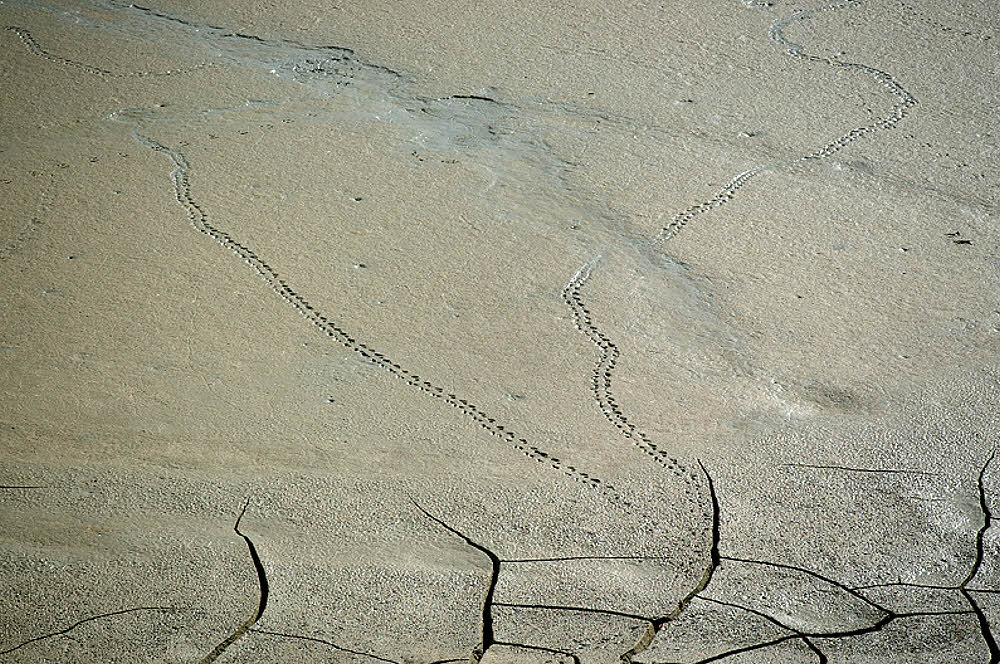
Who knows? Something was out noodling around.
First nationals.
It was characteristic of Roosevelt that, in spite of his detestation of the race, he should have been meticulously fair to the individual members of it who happened to cross his path. He made it a point, both at the Maltese Cross and at Elkhorn, that the Indians who drifted in and out at intervals should be treated as fairly as the whites, neither wronging them himself nor allowing others to wrong them.
Mrs. Maddox, the maker of the famous buckskin shirt, who was an extraordinary woman in more ways than one, had her own very individual notions concerning the rights of the Indians. When Roosevelt stopped at her shack one day, he found three Sioux Indians there, evidently trustworthy, self-respecting men. Mrs. Maddox explained to him that they had been resting there waiting for dinner, when a white man had come along and tried to run off with their horses. The Indians had caught the man, but, after retaking their horses and depriving him of his gun, had let him go.
"I don't see why they let him go," she exclaimed. "I don't believe in stealing Indians' horses any more than white folks', so I told 'em they could go along and hang him, I'd never cheep! Anyhow I won't charge them anything for their dinner," she concluded.
The psychology of the Indians was curious, and it took time occasionally for their better qualities to reveal themselves. As chairman of the Little Missouri Stock Association, Roosevelt on one occasion recovered two horses which had been stolen from an old Indian. The Indian took them, muttering something that sounded like "Um, um," and without a word or a gesture of gratitude rode away with his property. Roosevelt felt cheap, as though he had done a service which had not been appreciated; but a few days later the old Indian came to him and silently laid in his arms a hide bearing an elaborate painting of the battle of the Little Big Horn.
Source: Hagedorn's biography of Roosevelt.
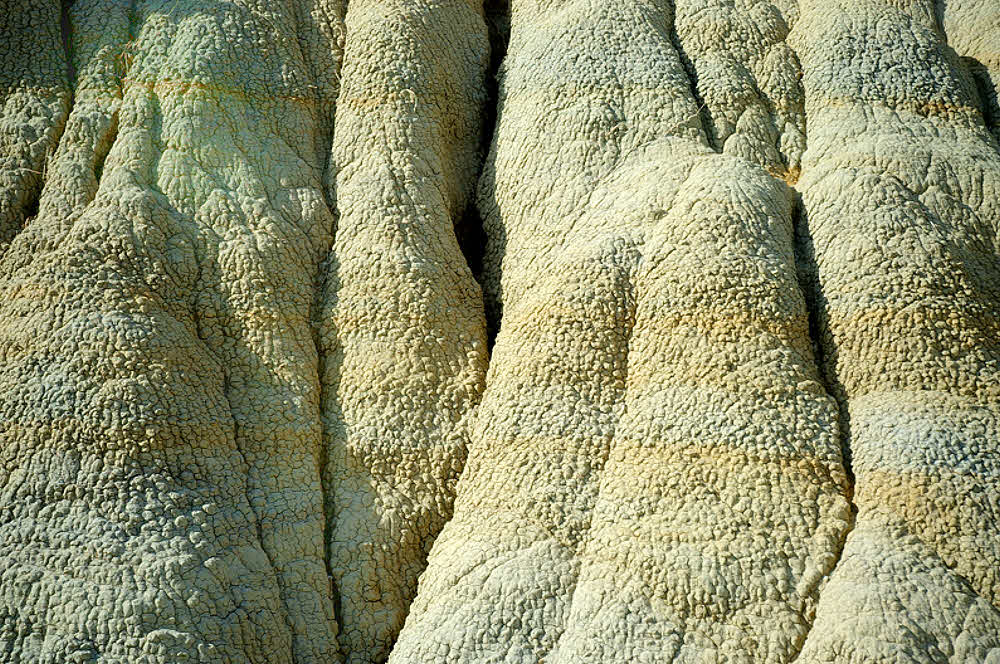
Land scales. Or a really big lizard. 'Do not disturb, eh?'
Prairie fire.
Day after day the cowboys fought the fires. It was peculiarly harassing work.
The process we usually followed [Roosevelt wrote in his Autobiography] was to kill a steer, split it in two lengthwise, and then have two riders drag each half-steer, the rope of one running from his saddle-horn to the front leg, and that of the other to the hind leg. One of the men would spur his horse over or through the line of fire, and the two would then ride forward, dragging the steer, bloody side downward, along the line of flame, men following on foot with slickers or wet horse-blankets to beat out any flickering blaze that was still left. It was exciting work, for the fire and the twitching and plucking of the ox carcass over the uneven ground maddened the fierce little horses so that it was necessary to do some riding in order to keep them to their work. After a while it also became very exhausting, the thirst and fatigue being great, as, with parched lips and blackened from head to foot, we toiled at our task.
Source: Hagedorn's biography of Roosevelt.
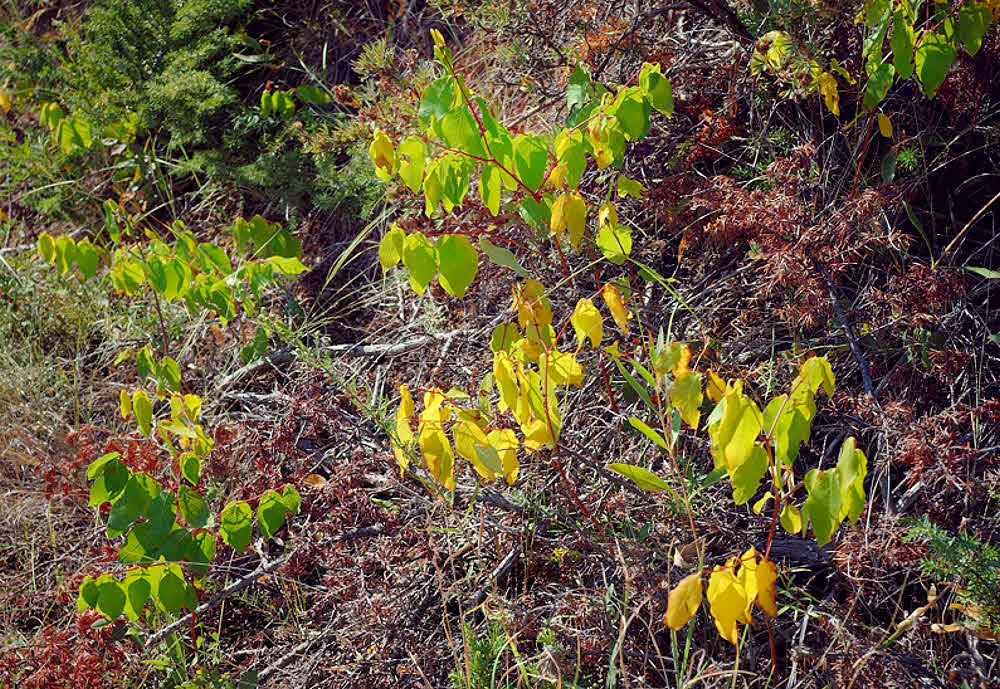
Poison ivy, looking especially unhappy about everything.
Joe Ferris brings home a wife.
The "boys" took the greatest interest in the wife whom Joe (who was popular in town) had taken to himself out in New Brunswick, and there was real trepidation lest Joe's wife might be the wrong sort. Other men, who had been good fellows and had run with the boys, had married and been weaned from their old companions, bringing out women who did not "fit in," who felt superior to the cowboys and did not take the trouble to hide their feelings. The great test was, whether Joe's wife would or would not like Mrs. Cummins. For Mrs. Cummins, in the minds of the cowpunchers, stood for everything that was reprehensible in the way of snobbery and lack of the human touch. If Mrs. Ferris liked Mrs. Cummins, it was all over; if she properly disliked her, she would do.
Mrs. Cummins called in due course. Merrifield was on the porch of the store when she came and in his excited way carried the news to the boys. As soon as she left by the front steps, Merrifield bounded up by the back. His eyes were gleaming.
"Well, now, Mrs. Ferris," he cried, "how did you like her?"
Mrs. Ferris laughed.
"Well, what did she say?" Merrifield pursued impatiently.
"Why," remarked Mrs. Joe, "for one thing she says I mustn't trust any of you cowboys."
Merrifield burst into a hearty laugh. "That's her!" he cried. "That's her! What else did she say?"
"She told me how I ought to ride, and the kind of horse I ought to get, and-"
"Go on, Mrs. Ferris," cried Merrifield.
"Why, she says I never want to ride any horse that any of you cowboys give me, for you're all bad, and you haven't any consideration for a woman and you'd as lief see a woman throwed off and killed as not."
Merrifield's eyes sparkled in the attractive way they had when he was in a hilarious mood. "Say, did you ever hear the like of that? You'd think, to hear that woman talk, that we was nothing but murderers. What else did she say?"
"Well," remarked the new bride, "she said a good many things."
"You tell me, Mrs. Ferris," Merrifield urged.
"For one thing she said the cowboys was vulgar and didn't have any manners. And-oh, yes-she said that refined folks who knew the better things of life ought to stick together and not sink to the level of common people."
"Now, Mrs. Ferris," remarked Merrifield indignantly, "ain't that a ree-di-culous woman? Ain't she now?"
Mrs. Ferris laughed until the tears came to her eyes. "I think she is," she admitted.
Merrifield carried the news triumphantly to the "boys," and the new bride's standing was established. She became a sort of "honorary member-once-removed" of the friendly order of cowpunchers, associated with them by a dozen ties of human understanding, yet, by her sex, removed to a special niche apart, where the most irresponsible did not fail, drunk or sober, to do her deference. For her ears language was washed and scrubbed. Men who appeared to have forgotten what shame was, were ashamed to have Mrs. Ferris know how unashamed they could be. Poor old Van Zander, whom every one in Billings County had seen "stewed to the gills," pleaded with Joe not to tell Mrs. Ferris that Joe had seen him drunk.
It became a custom, in anticipation of a "shivaree," to send round word to Mrs. Ferris not to be afraid, the shooting was all in fun.
A woman would have been less than human who had failed to feel at home in the midst of such evidences of warmth and friendly consideration. Joe Ferris's store became more than ever the center of life in Medora, as the wife whom Joe had brought from New Brunswick made his friends her friends and made her home theirs also.
Mrs Ferris and Mr Roosevelt.
She had been in Medora less than a month when news came from Roosevelt that he was getting ready to start West and would arrive on the Little Missouri sometime about the middle of March. Joe's wife knew how to get along with "boys" who were Joe's kind, but here was a different sort of proposition confronting her. Here was a wealthy, and, in a modest way, a noted, man coming to sleep under her roof and eat at her table. The prospect appalled her. Possibly she had visions, for all that Joe could say, of a sort of male Mrs. Cummins. "I was scairt to death," she admitted later.
Roosevelt arrived on March 18th. His "city get-up" was slightly distracting, for it had a perfection of style that Mrs. Joe was not accustomed to; but his delight at his return to the Bad Lands was so frank and so expressive that her anxiety began to dissolve in her wonder at this vehement and attractive being who treated her like a queen. He jumped in the air, clicking his heels together like a boy let unexpectedly out of school, and at odd moments clapped Joe on the back, crying, "By George! By George!" with the relish of a cannibal reaching into the pot for a second joint.
She tried to treat him like the city man that he looked, but he promptly put a stop to that.
"Just use me like one of the boys, Mrs. Ferris," he said decisively. His words sounded sincere; but, being a shrewd-minded lady, she wondered, nevertheless.
She did not know him when he came down to breakfast next morning. Vanished was the "dude," and in his place stood a typical cowpuncher in shaps and flannel shirt and knotted handkerchief. And his clothes revealed that they had not been worn only indoors.
He gave an exclamation of delight as he entered the dining-room. "A white tablecloth in the Bad Lands! Joe, did you ever expect to see it?"
There was no more ice to break after that.
Source: Hagedorn's biography of Roosevelt.
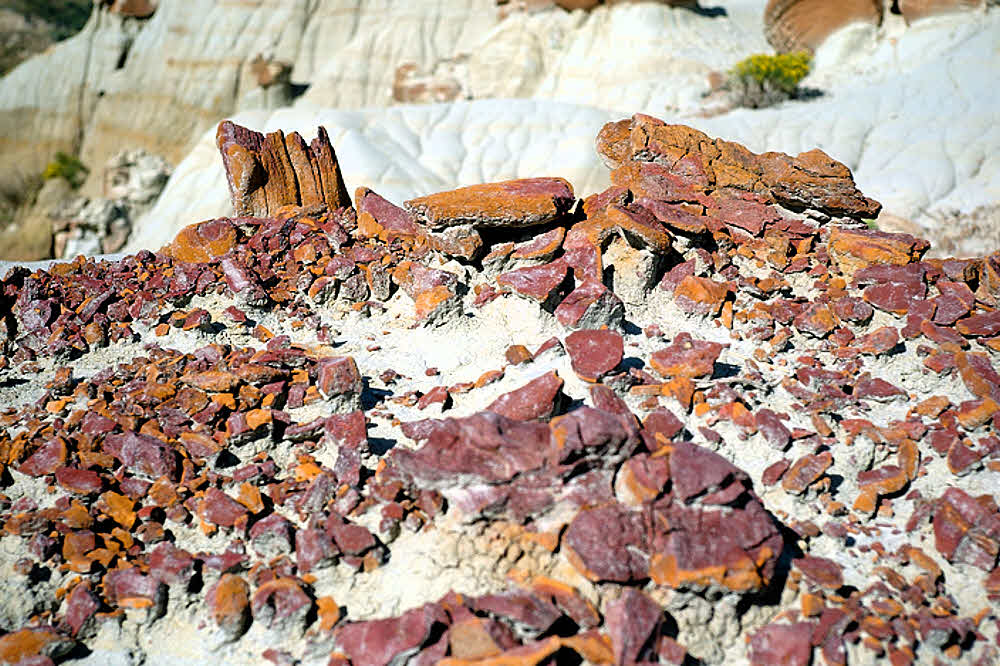
And yet more rocks.
Suspects.
"Listen, gentle stranger, I'll read my pedigree:
I'm known on handling tenderfeet and worser men than thee;
The lions on the mountains, I've drove them to their lairs;
The wild-cats are my playmates, and I've wrestled grizzly bears;
"The centipedes have tried and failed to mar my tough old hide,
And rattlesnakes have bit me, and crawled away and died.
I'm as wild as the wild horse that roams the boundless plains,
The moss grows on my teeth and wild blood flows through my veins.
"I'm wild and woolly and full of fleas,
And never been curried below the knees.
Now, little stranger, if you'll give me your address,-
How would you like to go, by fast mail or express?"
— Buckskin Joe
The leader of the three was a stocky, ill-looking individual named Finnegan, with fiery red hair which fell to his shoulders, gaining for him the nickname "Redhead" Finnegan; a brick-red complexion, and an evil reputation. He was a surly, quarrelsome, unkempt creature, and when he came into a saloon with his stumbling gait (as he frequently did), self-respecting cowboys had a way of leaving him in full possession of the field, not because they feared him, but because they did not care to be seen in his presence. He boasted that he was "from Bitter Creek, where the farther up you went the worse people got," and he lived "at the fountain head." He had blown into Medora early in March and had promptly gone to Bill Williams's saloon and filled up on Bill Williams's peculiarly wicked brand of "conversation juice."
"Well, it laid him out all right enough," remarked Lincoln Lang, telling about it in after years. "I can testify to that, since I was right there and saw the whole thing. Johnny Goodall, who was some practical joker at that time, went into the bar and saw Finnegan lying on the floor. He got some help and moved him to the billiard table. Then Goodall sent to the barber shop for a hair clipper, and proceeded to operate in the following manner: first he clipped off one side of Finnegan's beard and moustache, and after that removed his long curls on one side, being careful to leave a stair pattern all up the side of his head. He concluded operations by removing the fringes upon one side of his buckskin shirt. Next morning Finnegan sobered up and when he saw himself in the looking-glass he went bersark."
"His heart got bad," Bill Dantz remarked, taking up the narrative. "He laid down in a fringe of brush near the Marquis's store, where he could command a clear view of the town, and began to pump lead into everything in sight."
The first shot was aimed at the office of the Bad Lands Cowboy. Whether or not "Redhead" Finnegan had it in for the stern moralist who insisted that drunken criminals should be punished, not only for their crimes, but also for their drunkenness, is a question on which the records are dark. Fisher was shaving in Packard's office and the shot broke the mirror in front of him. Packard, who was on horseback on the bluff behind Medora, saw Fisher dash out of the shack, and rushed to the scene of conflict. His horse had knocked Finnegan senseless before the desperado knew that the Chief of Police was on his trail. When Finnegan came to he was in a box-car, under lock and seal. But a friend released him, and the man from Bitter Creek made his way down the river to his cabin.
The population of Medora had not relished Finnegan's bombardment, and suggestions concerning a possible "necktie party" began to make themselves heard. Finnegan evidently decided that the time had come for him, and the men who lived with him in his ill-kept shack, to leave the country. Travel by horse or foot was impossible. The boat they owned was a miserable, leaky affair. The Elkhorn skiff had evidently appeared to Finnegan and Company in the nature of a godsend.
Source: Hagedorn's biography of Roosevelt.
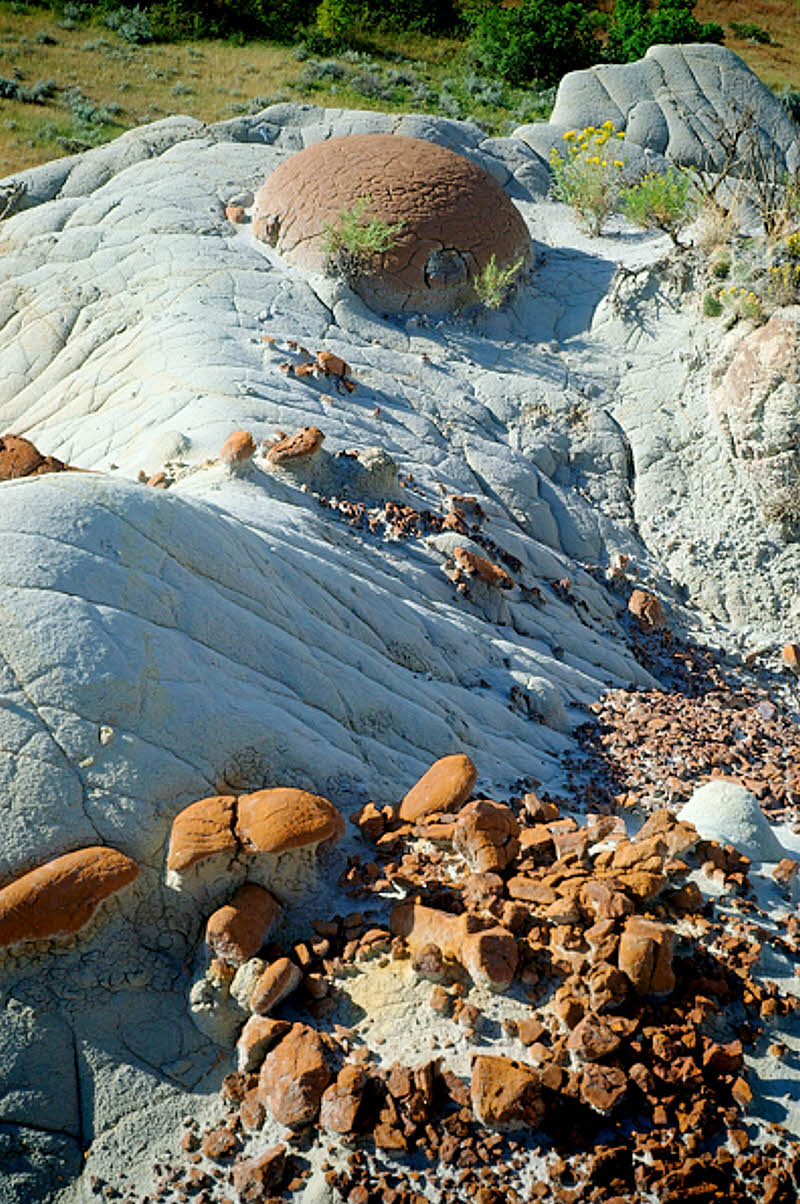
Medium-sized concretion.
Pursuit.
March 22. Tramped over to get deer; mountain lions had got them.
March 23. Shot 4 prairie chickens.
March 24. Thieves stole boat; started to build another to go after them.
March 25. Went out after deer; saw nothing. Boat being built. River very high; ice piled upon banks several feet.
March 26. Boat building.
March 27. Boat built. Too cold to start. Shot 4 chickens.
March 28. Bitter cold.
March 29. Furious blizzard.
...
At present we are all snowed up by a blizzard; as soon as it lightens up I shall start down the river with two of my men in a boat we have built while indoors, after some horse-thieves who took our boat the other night to get out of the country with; but they have such a start we have very little chance of catching them. I shall take Matthew Arnold along; I have had no chance at all to read it as yet. [from a letter to Henry Cabot Lodge]
On the 30th of March the blizzard which had been raging a day or two moderated, and Roosevelt, hoping a thaw had set in, determined to set off after the thieves. They left Rowe as guard over the ranch and "the womenfolks," and with their unwieldy but water-tight craft, laden with two weeks' provision of flour, coffee, and bacon, started to drift down the river.
...
Late the third day, rounding a bend, they saw their boat moored against the bank. Out of the bushes, a little way back, the smoke of a camp-fire curled up through the frosty air.
"There's your boat!" cried Sewall, who had, in his own phrase, been "looking sharp." "Get your guns ready. I'll handle the boat."
They flung off their heavy coats. Sewall was in the stern, steering the boat toward shore. Dow was at Roosevelt's side in the bow. Roosevelt saw the grim, eager look in their eyes, and his own eyes gleamed.
He was the first ashore, leaping out of the boat as it touched the shore ice and running up behind a clump of bushes, so as to cover the landing of the others. Dow was beside him in an instant. Sewall was fastening the boat.
...
Roosevelt and Dow peered through the bushes. Beside a fire in a grove of young cottonwoods a solitary figure was sitting; his guns were on the ground at his side.
"Hands up!"
Roosevelt and Dow rushed in on the man, who was not slow to do as he was told. He was a halfwitted German named Wharfenberger, a tool of rogues more keen than he, whom Sewall later described as "an oldish man who drank so much poor whiskey that he had lost most of the manhood he ever possessed."
They searched the old man, taking his gun and his knives from him, and telling him that if he did exactly as he was told they would use him well; but if he disobeyed or tried to signal the other men, they would kill him instantly. Knowing something of the frontier, he was ready to believe that he would be given short shrift, and was thoroughly submissive.
Finnegan and the third man, a half-breed named Bernstead, had, it seems, gone hunting, believing themselves safe. Sewall guarded the German, while Roosevelt and Dow, crouching under the lee of a cutbank, prepared to greet the others.
...
The wind had fallen. Save for the rush of the river, there was no sound.
Will and I [Sewall wrote his brother] kept watch and listened-our eyes are better than Roosevelt's, Will on the right and I on the left. R. was to rise up and tell them to hands up, Will and I both with double barrel guns loaded with Buck shot, and we were all going to shoot if they offered to raise a gun. It is rather savage work but it don't do to fool with such fellows. If there was any killing to be done we meant to do it ourselves.
[They] came straight through the sagebrush toward the watchers. Roosevelt and his men watched them for some minutes as they came nonchalantly toward them, the barrels of their rifles glinting in the sunlight. Now they were forty yards away, now thirty, now twenty.
"Hands up!"
The half-breed obeyed, but for an instant Finnegan hesitated, glaring at his captors with wolfish eyes. Roosevelt walked toward him, covering the center of the man's chest to avoid over-shooting him.
"You thief, put up your hands!"
Finnegan dropped his rifle with an oath and put up his hands.
They searched the thieves and took away their weapons. "If you'll keep quiet," said Roosevelt, "and not try to get away, you'll be all right. If you try anything we'll shoot you."
This was language which the thieves understood, and they accepted the situation. Sewall took an old double-barrel ten-gauge Parker shot-gun and stood guard.
Dow was a little uneasy about the gun.
"The right-hand barrel goes off very easily," he warned Sewall. "It's gone off with me several times when I did not mean it to, and if you are going to cover the men with it you better be careful."
"I'll be careful," remarked Sewall in his deliberate fashion, "but if it happens to go off, it will make more difference to them than it will to me."
"Take off your boots!" [Roosevelt] ordered.
It had occurred to him that bare feet would make any thought of flight through that cactus country extremely uninviting. The men surrendered their boots. Roosevelt gave them a buffalo robe in return and the prisoners crawled under it, thoroughly cowed.
...
Roosevelt's journal for those days tells the story:
April 1. Captured the three boat-thieves.
April 2. Came on with our prisoners till hung up by ice-jam.
April 3. Hung up by ice.
April 4. Hung up by ice.
April 5. Worked down a couple of miles till again hung up by ice.
April 6. Worked down a couple of miles again to tail of ice-jam.
Their provisions ran short. They went after game, but there was none to be seen, no beast or bird, in that barren region. The addition to their company had made severe inroads on their larder and it was not long before they were all reduced to unleavened bread made with muddy water. The days were utterly tedious, and were made only slightly more bearable for Roosevelt by Tolstoy's "Anna Karenina" and Matthew Arnold, interlarded with "The History of the James Brothers," which the thieves quite properly carried among their belongings. And the thieves had to be watched every minute, and the wind blew and chilled them to the bone.
Roosevelt thought that it might be pleasant under certain circumstances to be either a Dakota sheriff or an Arctic explorer. But he did not find great joy in being both at the same time.
When the flour was nearly gone, Roosevelt and his men had a consultation.
"We can't shoot them," said Roosevelt, "and we can't feed them. It looks to me as though we'd have to let them go."
Sewall disagreed. "The flour'll last a day or two more," he said, "and it's something to know that if we're punishing ourselves, we're punishing the thieves also."
"Exactly!" cried Roosevelt. "We'll hold on to them!"
...
Roosevelt and Dow...at last came on an outlying cow-camp of the Diamond C Ranch, where Roosevelt secured a horse.
...
Roosevelt rode fifteen miles to a ranch at the edge of the Killdeer Mountains. There he secured supplies and a prairie-schooner, hiring the ranchman himself, a rugged old plainsman, to drive it to the camp by the ice-bound river. Sewall and Dow, now thoroughly provisioned, remained with the boats. Roosevelt with the thieves started for the nearest jail, which was at Dickinson.
It was a desolate two days' journey through a bleak waste of burnt, blackened prairie, and over rivers so rough with ice that they had to take the wagon apart to cross. Roosevelt did not dare abate his watch over the thieves for an instant, for they knew they were drawing close to jail and might conceivably make a desperate break any minute. He could not trust the driver. There was nothing for it but to pack the men into the wagon and to walk behind with the Winchester.
Hour after hour he trudged through the ankle-deep mud, hungry, cold, and utterly fatigued, but possessed by the dogged resolution to carry the thing through, whatever the cost. They put up at the squalid hut of a frontier granger overnight, but Roosevelt, weary as he was, did not dare to sleep. He crowded the prisoners into the upper bunk and sat against the cabin door all night, with the Winchester across his knees.
Roosevelt's journal gives the stages of his progress.
April 7. Worked down to C Diamond Ranch. Two prairie chickens.
April 8. Rode to Killdeer Mountains to arrange for a wagon which I hired.
April 9. Walked captives to Killdeer Mountains.
April 10. Drove captives in wagon to Captain Brown's ranch.
"What I can't make out," said the ranchman from the Killdeers, with a puzzled expression on his deeply wrinkled, tough old face, which Sewall said "looked like the instep of an old boot that had lain out in the weather for years,"-"what I can't make out is why you make all this fuss instead of hanging 'em offhand."
Roosevelt grinned, and the following evening, after a three-hundred-mile journey, deposited three men who had defied the laws of Dakota in the jail at Dickinson.
He was not a vision of beauty as he emerged from the jail to find a place to scrape off two weeks' accumulation of Dakota mud. His feet were in bad shape from the long march through the gumbo, and he asked the first man he met where he could find a physician. By a curious coincidence the man he addressed happened to be the only physician within a hundred and fifty miles in any direction. It was Dr. Stickney.
They had heard of each other, and Roosevelt was glad, for more reasons than one, to follow him to his office. For the quiet man with the twinkling eyes, who combined the courage and the humanness of a cowpuncher with the unselfish devotion of a saint, was a great figure in the Bad Lands. Like Roosevelt he was under thirty.
The doctor, in after years, told of that morning's visit. "He did not seem worn out or unduly tired," he said. "He had just come from the jail, having deposited his prisoners at last, and had had no sleep for forty-eight hours, and he was all teeth and eyes; but even so he seemed a man unusually wide awake. You could see he was thrilled by the adventures he had been through. He did not seem to think he had done anything particularly commendable, but he was, in his own phrase, 'pleased as Punch' at the idea of having participated in a real adventure. He was just like a boy."
Source: Hagedorn's biography of Roosevelt.
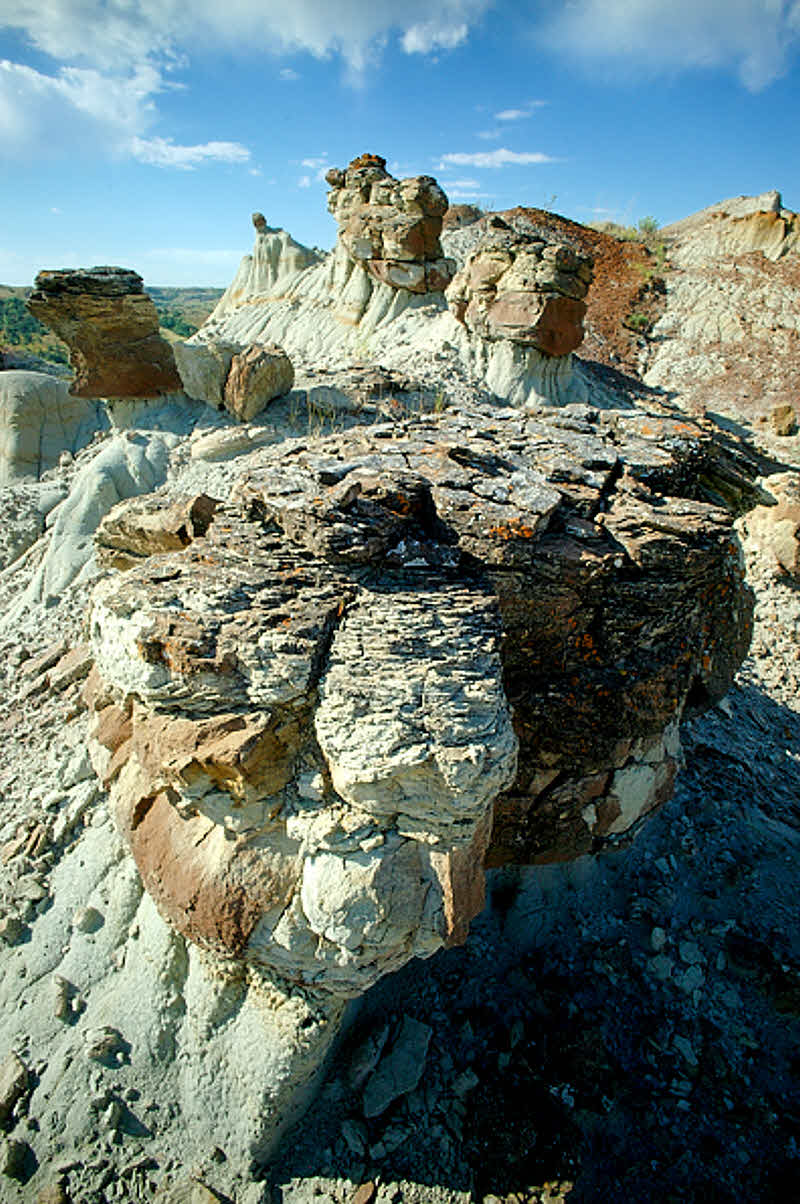
More stuff, waiting to erode.
Drinks.
While the round-up was camped at Andrews Creek an incident occurred which revealed Roosevelt's influence over the cowpunchers, not alone of his own "outfit." Andrews Creek was not more than a mile from Medora, and after the day's work was done, the cowboys naturally adjourned with much enthusiasm to that oasis for the thirsty. As the evening wore on, the men, as "Dutch Wannigan" remarked long afterward, "were getting kinda noisy." Roosevelt, who had also ridden to town, possibly to keep an eye on "the boys," heard the commotion, and, contrary to his usual habit, which was to keep out of such centers of trouble, entered the saloon where the revelry was in progress.
"I don't know if he took a drink or not," said "Dutch Wannigan" afterward. "I never saw him take one. But he came in and he paid for the drinks for the crowd. 'One more drink, boys,' he says. Then, as soon as they had their drinks, he says, 'Come on,' and away they went. He just took the lead and they followed him home. By gollies, I never seen anything like it!"
Source: Hagedorn's biography of Roosevelt.
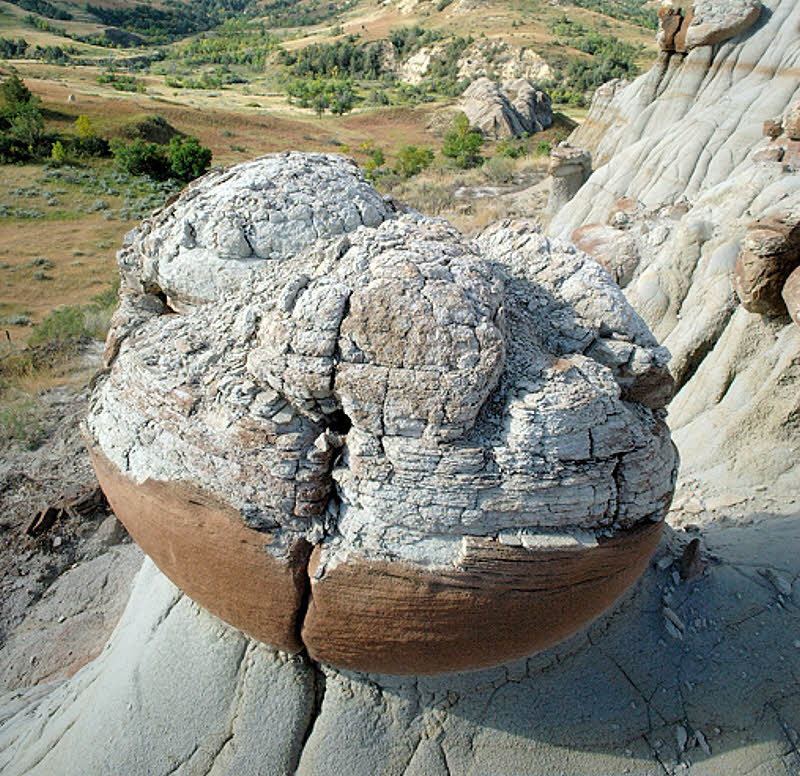
A different sort of caprock.
Dickinson celebrates.
Dickinson was in holiday mood. The West Missouri slope had never celebrated the Fourth with fitting ceremonies before and Dickinson, which, with its seven hundred inhabitants, considered itself somewhat of a metropolis, made up its mind to "spread itself." From near and far eager crowds streamed into the little town, on foot and on horseback.
...
The first exercise was the parade..."The trouble with the parade," remarked Bill Dantz long after, "was that every one in town was so enthusiastic they insisted on joining the procession, and there was no one to watch except two men who were too drunk to notice anything".
...
The speeches followed. The first speaker was a typical politician of the old school.
This is a big country [he said]. At a dinner party of Americans in Paris during the Civil War this toast was offered by a New Englander: "Here's to the United States, bounded on the north by British America, on the south by the Gulf of Mexico, on the east by the Atlantic, and on the west by the Pacific Ocean."
An Ohio man followed with a larger notion of our greatness: "Here's to the United States, bounded on the north by the North Pole, on the south by the South Pole, on the east by the rising sun, and on the west by the setting sun."
It took the Dakota man, however, to rise to the greatness of the subject: "I give you the United States, bounded on the north by the Aurora Borealis, on the south by the precession of the equinoxes, on the east by primeval chaos, and on the west by the Day of Judgment."
Source: Hagedorn's biography of Roosevelt.
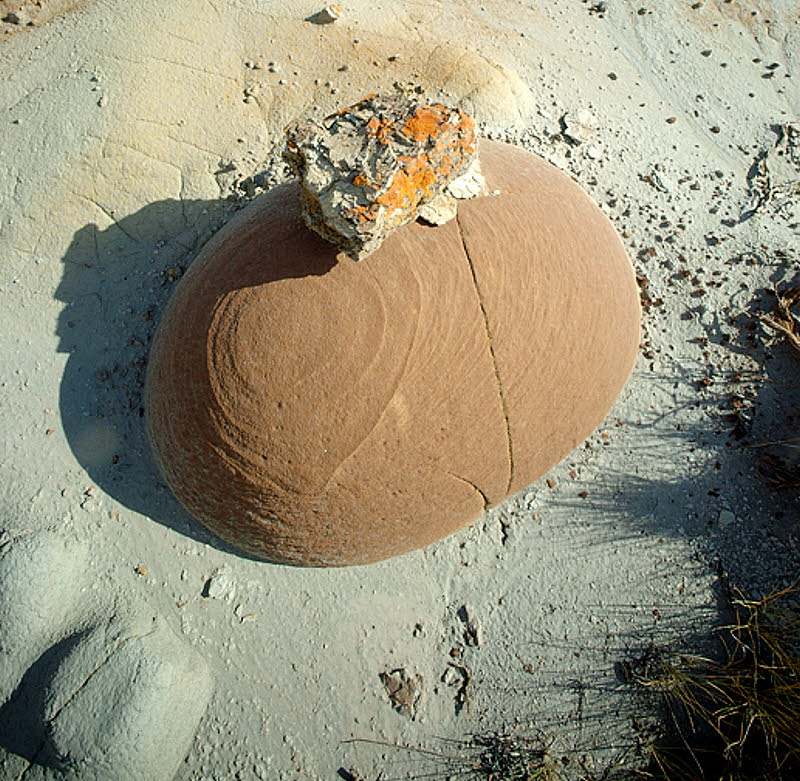
And who did this?
August, 1886: The winds shift.
Roosevelt was unquestionably restless. He loved the wild country, but he had tasted all the various joys and hardships it had to offer, and, although he said again and again that if he had no ties of affection and of business to bind him to the East, he would make Dakota his permanent residence, down in his heart he was hungering for a wider field of action.
The frontier had been a challenge to his manhood; now that he had stood every test it had presented to him, its glamour faded and he looked about for a sharper challenge and more exacting labors.
Source: Hagedorn's biography of Roosevelt.
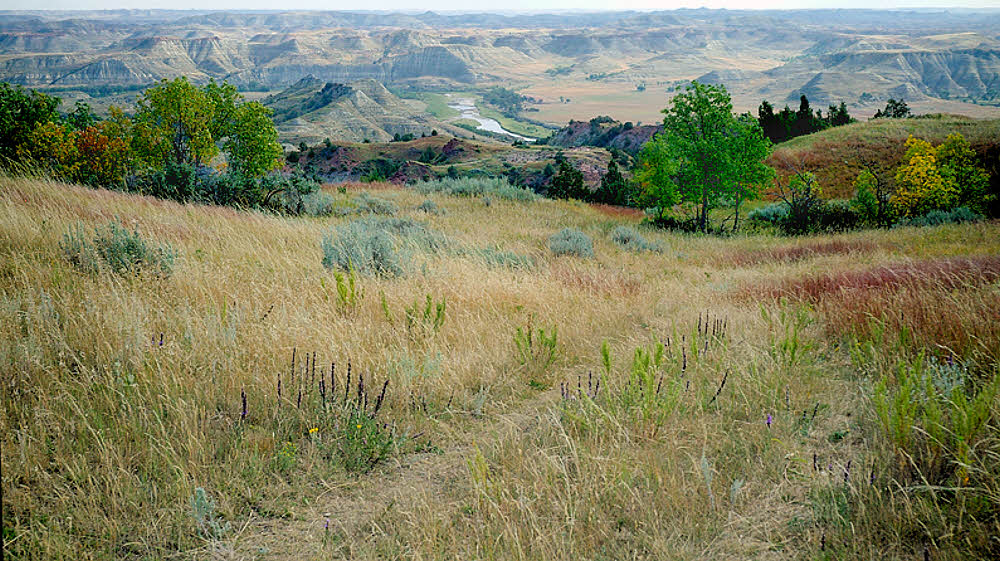
Little Missouri River again. Almost pure mud, but looks good at a distance.
Depth.
Though Roosevelt was not getting much financial return on his rather generous investment, he was getting other things, for him at this time of far greater value. He who had been weak in body and subject to racking illnesses had in these three years developed a constitution as tough and robust as an Indian's. He had achieved something beside this. Living, talking, working, facing danger, and suffering hardships with the Sewalls and the Dows, the Ferrises and the Langs, and Merrifield and Packard and Bill Dantz and Hell-Roaring Bill Jones, and countless other stalwart citizens of the Bad Lands, he had come very close to the heart of the "plain American." He loved the companions of his joys and labors, and they in turn regarded him with an admiration and devotion which was all the deeper because of the amazing fact that he had come from the ranks of the "dudes."
They admired him for his courage and his feats of endurance, but, being tender-hearted themselves, they loved him for his tenderness, which had a way that they approved, of expressing itself, not in words, but in deeds. Bill Sewall had a little girl of three, "a forlorn little mite," as Roosevelt described her to [his sister] "Bamie," and it was Roosevelt who sent the word East which transported the child, that had neither playmates nor toys, into a heaven of delight with picture blocks and letter blocks, a little horse and a rag doll.
His warm human sympathy found expression in a dramatic manner a day or two before his departure late that August for the Coeur d'Alenes. He was rounding up some cattle with his men near Sentinel Butte, twenty miles west of Medora, when word came that a cowpuncher named George Frazier had been struck by lightning and killed, and that his body had been taken to Medora. Frazier belonged to the "outfit" of the Marquis de Mores, but he had worked for Roosevelt two years previous, digging post-holes with George Myers in June, 1884. Roosevelt knew that the man had no relatives in that part of the world, to see that a fitting disposition of the body was made, and instantly expressed his determination to take charge of the arrangements for the funeral.
"We will flag the next train and go to Medora," he said.
The next train, they knew, was "No. 2," the finest train running over the road. It did not, on the surface, look probable that it would stop at a desolate spot in the prairie to permit a handful of cowboys to get on. "They won't stop here for nuthin'," one of the men insisted. "By Godfrey, they'll have to stop!" Roosevelt retorted, and sent a man down to the track to flag the train.
The engineer saw the warning signal and slowed down, but did not stop. The cowboys dashed alongside the engine, firing shots in the air. The engineer, believing that he was being held up by bandits and that the next shot might be aimed at himself, brought the train to a standstill. There was a wild scramble among the passengers; even the train crew expected the worst. Valuables were hurriedly secreted. "I don't believe," remarked George Myers afterward, "some of the passengers ever did find all the things that was hid away."
Leaving their horses in charge of one of the cowboys, Roosevelt, followed by Sylvane Ferris, Merrifield, Myers, and Johnny Goodall, boarded the train. The conductor was resigned by this time to a hold-up; but when he discovered the actual nature of their mission, he flew into a rage and threatened to put them all off.
"You be good," cried Roosevelt, "or you'll be the one to get off!" His vigorous advice was supplemented by impressive injunctions from other members of the party. When they finally did get off, it was at Medora.
A salvo of profanity from the train crew followed them. "You'll hear from this!" thundered the conductor. They did not hear from it. It would not have greatly disturbed Roosevelt if they had. He opened a subscription to cover the expenses of the funeral. Everybody "chipped in," and the unfortunate received the burial that a God-fearing cowpuncher deserved.
Source: Hagedorn's biography of Roosevelt.
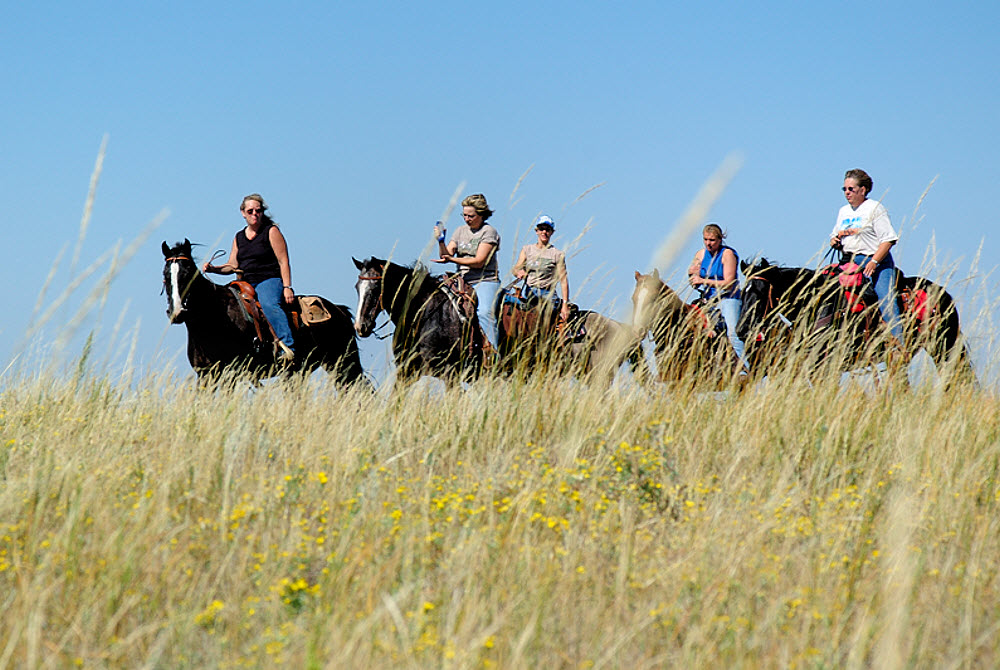
North Dakota Girl Scouts. Tougher than most.
On the goat hunt.
At last, one mid-afternoon, as he was supporting himself against a tree, halfway across a long landslide, Roosevelt suddenly discovered one of the beasts he was after, a short distance away, making his way down a hill, looking for all the world like a handsome tame billy. He was in a bad position for a shot, and as he twisted himself about he dislodged some pebbles. The goat, instantly alert, fled. Roosevelt fired, but the shot went low, only breaking a fore-leg.
The three men raced and scrambled after the fleeing animal. It leaped along the hillside for nearly a mile, then turned straight up the mountain. They followed the bloody trail where it went up the sharpest and steepest places, skirting the cliffs and precipices.
Roosevelt, intent on the quarry, was not what Bill Sewall would have called "over-cautious" in the pursuit.
He was running along a shelving ledge when a piece of loose slate with which the ledge was covered slipped under his foot. He clutched at the rock wall, he tried to fling himself back, but he could not recover himself.
He went head first over the precipice.
Roosevelt's luck was with him that day. He fell forty or fifty feet into a tall pine, bounced through it, and landed finally, not uncomfortably, in a thick balsam, somewhat shaken and scratched, but with no bones broken and with his rifle still clutched in his hand.
From above came the hoarse voice of John Willis. "Are you hurt?" he asked.
"No," answered Roosevelt, a trifle breathless.
"Then come on!"
...
Roosevelt spent two weeks with Willis in the mountains. It was a rich experience for the Easterner, but for the tall Missourian it proved to be even more. Willis was a child of the frontier, who had knocked about between the Rio Grande and the Canadian border ever since his boyhood, doing a hundred different things upon which the law and civilized men were supposed to look with disapproval.
To this odd child of nature, bred in the wilderness, Roosevelt opened the door to a world which John Willis did not know existed.
"He was a revelation to me," said Willis long afterward. "He was so well posted on everything. He was the first man that I had ever met that really knew anything. I had just been with a lot of roughnecks, cowpunchers, horse-thieves, and that sort. Roosevelt would explain things to me. He told me a lot of things."
Source: Hagedorn's biography of Roosevelt.
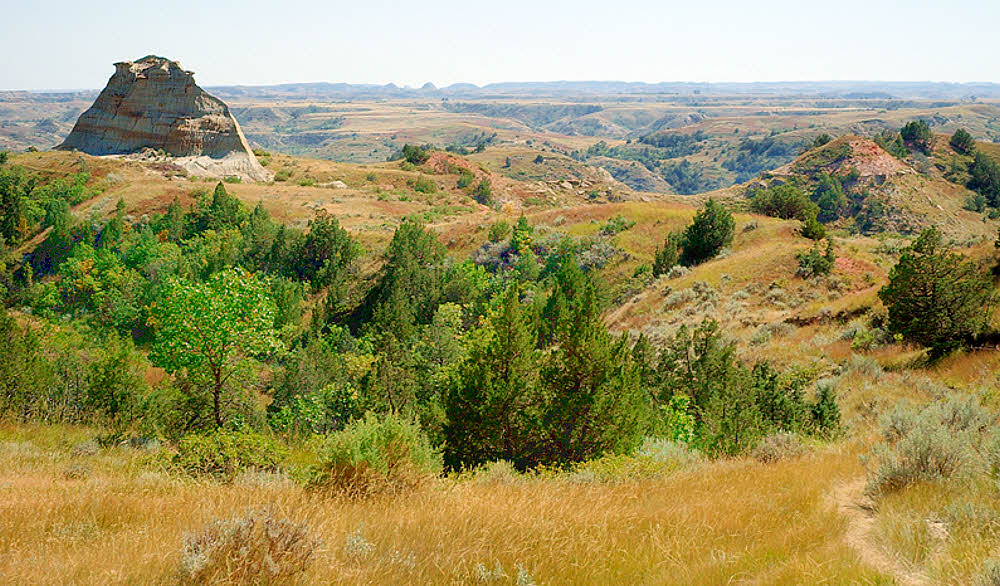
A land of endless possibilities.
Time to reconsider.
Life, which for a while had seemed to Roosevelt so gray and dismal, had, in fact, slowly taken on new color. At times he had imagined that Dakota might satisfy him for a permanent residence, but that fancy, born of grief and disappointment, had vanished in the radiance of a new happiness. He had become engaged to Edith Carow, and he knew that the world for him and for her was that busy world where his friends were, and hers, and where he and she had been boy and girl together.
The lure of politics, moreover, was calling him. And yet, during those last weeks at Elkhorn, he was not at all sure that he wished to re-enter the turmoil. He rode out into the prairie one day for a last "session" with Bill Sewall shortly before the three weeks were up [and he and Dow returned to Maine with their families]. He told Sewall he had an idea he ought to go into law.
"You'd be a good lawyer," said Bill, "but I think you ought to go into politics. Good men like you ought to go into politics. If you do, and if you live, I think you'll be President."
Roosevelt laughed. "That's looking a long way ahead."
"It may look a long way ahead to you," Sewall declared stoutly, "but it isn't as far ahead as it's been for some of the men who got there."
...
"September 25, 1886," runs an item in Bill Sewall's account-book, "squared accounts with Theodore Roosevelt."
...knowing that his cattle were in good hands, Roosevelt once more turned his face to the East, conscious in his heart, no doubt, that, however soon he might return, or however often, the Dakota idyl was ended.
Source: Hagedorn's biography of Roosevelt.
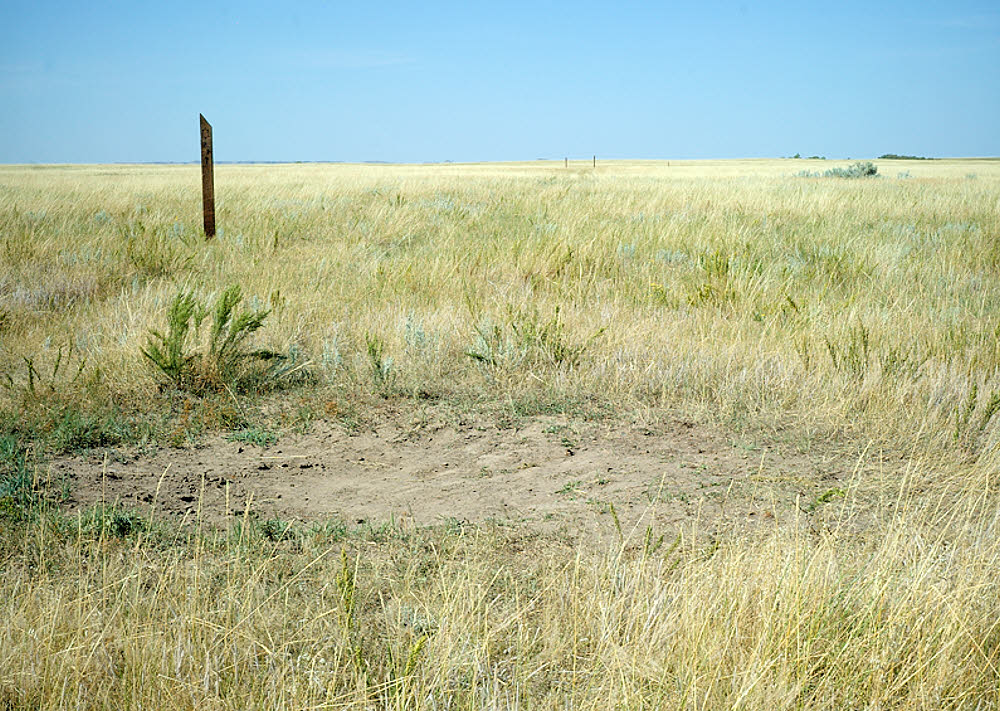
Looks something like a buffalo wallow. Trail markers in background.
Autumn arrives.
I may not see a hundred
Before I see the Styx,
But coal or ember, I'll remember
Eighteen-eighty-six.
The stiff heaps in the coulee,
The dead eyes in the camp,
And the wind about, blowing fortunes out
As a woman blows out a lamp.
— From Medora Nights
Fortunate were those who spent that season elsewhere. Old-timers, whose wits had been sharpened by long life in the open, had all the autumn been making ominous predictions. They talked of a hard winter ahead, and the canniest of them defied the skeptics by riding into Medora trailing a pack-horse and purchasing six months' supplies of provisions at one time.
Nature, they pointed out, was busier than she had ever been, in the memory of the oldest hunter in that region, in "fixin' up her folks for hard times." The muskrats along the creeks were building their houses to twice their customary height; the walls were thicker than usual, and the muskrats' fur was longer and heavier than any old-timer had ever known it to be. The beavers were working by day as well as by night, cutting the willow brush, and observant eyes noted that they were storing twice their usual winter's supply. The birds were acting strangely. The ducks and geese, which ordinarily flew south in October, that autumn had, a month earlier, already departed. The snowbirds and the cedar birds were bunched in the thickets, fluttering about by the thousands in the cedar brakes, obviously restless and uneasy. The Arctic owls, who came only in hard winters, were about.
...
The light became subdued and unnatural. Halos appeared about the sun, with sun-dogs at opposite sides of the circle. The superstitious were startled, in the time of the full moon, at four shafts of light, which could be seen emanating from it, giving an eerie effect as of a cross over the silver disc.
Source: Hagedorn's biography of Roosevelt.
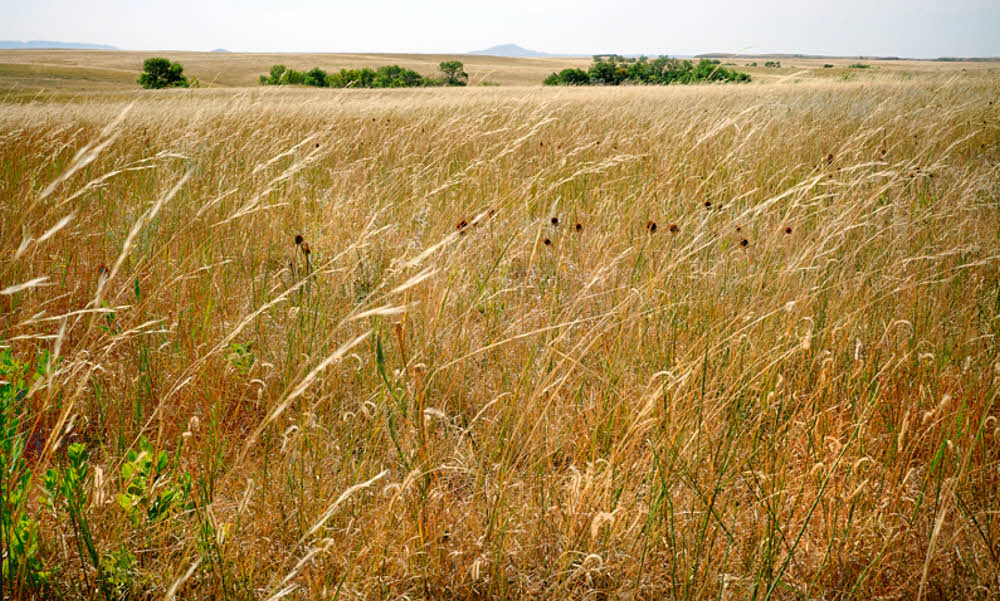
Off to the southwest: more air, distance, and sunshine.
The winter of death.
There was usually a wet snowstorm in late October; this year it did not come. A weird, dull stillness was in the air. Then, one evening toward the end of the first week in November, the snow came, falling lightly and noiselessly. As the evening advanced, the wind arose; and even as it increased in violence, the spirit in the thermometer fell. The wind became a gale, and before midnight a blizzard was howling and sweeping through the Bad Lands such as no one there had ever known before. The snow was like the finest powder, driving through every crack and nail hole, and piling snowdrifts within the houses as well as without.
"Upon getting up in the morning," said Lincoln Lang long afterward, describing that storm, "the house was intensely cold, with everything that could freeze frozen solid. The light was cut off from the windows looking south. As we opened the front door, we were confronted by a solid wall of snow reaching to the eaves of the house. There was no drift over the back door, looking north, but, as I opened it, I was blown almost from my feet by the swirl of the snow, which literally filled the air, so that it was impossible to see any of the surrounding ranch-buildings or even the fence, less than fifty feet distant. It was like a tornado of pure white dust or very fine sand, icy cold, and stinging like a whip-lash."
As fast as the fine dry snow fell, it drifted and packed itself into the coulees, gulches, and depressions, filling them to a depth of a hundred feet or more. The divides and plateaus, and other exposed places, were left almost bare, except where some mound or rock or bit of sagebrush created an obstruction, about which the eddying currents piled snowdrifts which rose week after week to huge proportions. On the river bottoms where the sagebrush was thick, the snow lay level with the top of the brush, then drove on to lodge and pack about the cottonwood trees and beneath the river-banks, forming great drifts, extending here and there from bank to bank.
The blizzard abated, but the icy cold did not; another blizzard came, and another and another. Save as it was whirled by the wind, ultimately to become a part of some great drift, the snow remained where it fell. No momentary thaw came to carry away a portion of the country's icy burden, or to alleviate for a few hours the strain on the snowbound men and women in the lonely ranch-houses. On the bottoms the snow was four feet deep.
November gave way to December, and December to January. The terrible cold persisted, and over the length and breadth of the Bad Lands the drifts grew monstrous, obliterating old landmarks and creating new, to the bewilderment of the occasional wayfarer.
Blizzard followed blizzard. For the men and women on the scattered ranches, it was a period of intense strain and privation; but for the cattle, wandering over the wind-swept world of snow and ice, those terrible months brought an affliction without parallel.
No element was lacking to make the horror of the ranges complete. The country, as Roosevelt had pointed out in July, was over-stocked. Even under favorable conditions there was not enough grass to feed the cattle grazing in the Bad Lands. And conditions throughout the summer of 1886 had been menacingly unfavorable. The drought had been intense. A plague of grasshoppers had swept over the hills. Ranchmen, who were accustomed to store large quantities of hay for use in winter, harvested little or none, and were forced to turn all their cattle out on the range to shift for themselves. The range itself was barren. The stem-cured grass which generally furnished adequate nutriment had been largely consumed by the grasshoppers. What there was of it was buried deep under successive layers of snow. The new stock, the "yearlings," driven into the Bad Lands from Texas or Iowa or Minnesota, succumbed first of all. In the coulees or the creek-beds, where they sought refuge in droves from the stinging blasts of the driven snow, they stood helpless and were literally snowed under, or imprisoned by the accumulation of ice about their feet, and frozen to death where they stood. The native stock, in their shaggier coats, faced the iron desolation with more endurance, keeping astir and feeding on sagebrush and the twigs of young cottonwoods. Gaunt and bony, they hung about the ranches or drifted into Medora, eating the tar-paper from the sides of the shacks, until at last they dropped and died. There was no help that the most sympathetic humanitarian or the most agonized cattle-owner could give them; for there was no fodder. There was nothing that any one could do, except, with aching and apprehensive heart, to watch them die.
They died by thousands and tens of thousands, piled one on the other in coulees and wash-outs and hidden from sight by the snow which seemed never to cease from falling. Only the wolves and coyotes throve that winter, for the steers, imprisoned in the heavy snow, furnished an easy "kill." Sage chickens were smothered under the drifts, rabbits were smothered in their holes.
It was a winter of continuous and unspeakable tragedy. Men rode out into the storms and never reached their destinations, wandering desperately in circles and sinking down at last, to be covered like the cattle with the merciless snow. Children lost their way between ranch-house and stable and were frozen to death within a hundred yards of their homes. The "partner" of Jack Snyder, a pleasant "Dutchman," whom Roosevelt knew well, died and could not be buried, for no pick could break through that iron soil; and Snyder laid him outside the cabin they had shared, to remain there till spring came, covered also by the unremitting snow.
Here and there a woman went off her head. One such instance was productive of a piece of unconscious humor that, in its grimness, was in key with the rest of that terrible winter. Wrote a friend to Pierre Wibaux, who had gone to France for the winter, leaving his wife in charge of the ranch:
Dear Pierre.
No news, except that Dave Brown killed Dick Smith and your wife's hired girl blew her brains out in the kitchen. Everything O.K. here.
Yours truly
Henry Jackson
Early in March, after a final burst of icy fury, a quietness came into the air, and the sun, burning away the haze that lay over it, shone down once more out of a blue sky. Slowly the temperature rose, and then one day, never to be forgotten, there came a warm moistness into the atmosphere. Before night fell, the "Chinook" was pouring down from beyond the mountains, releasing the icy tension and softening all things.
"Within a day or so," said Lincoln Lang afterward, "the snow had softened everywhere. Gullies and wash-outs started to run with constantly increasing force, until at length there was a steady roar of running water, with creeks out of bounds everywhere. Then, one day, we suddenly heard a roar above that of the rushing water, coming from the direction of the Little Missouri, and hurrying there saw a sight, once seen, never to be forgotten. The river was out of banks clear up into the cottonwoods and out on to the bottom, going down in a raging, muddy torrent, literally full of huge, grinding ice-cakes, up-ending and rolling over each other as they went, tearing down trees in their paths, ripping, smashing, tearing at each other and everything in their course in the effort to get out and away. The spectacle held us spellbound. None of us had ever seen anything to compare with it, for the spring freshets of other years had been mild affairs as compared to this. But there was something else that had never been seen before, and doubtless never will be seen again, for as we gazed we could see countless carcasses of cattle going down with the ice, rolling over and over as they went, so that at times all four of the stiffened legs of a carcass would point skyward as it turned under the impulsion of the swiftly moving current and the grinding ice-cakes. Now and then a carcass would become pinched between two ice-floes, and either go down entirely or else be forced out on the top of the ice, to be rafted along for a space until the cake upon which it rested suddenly up-ended or turned completely over in the maelstrom of swirling water and ice. Continuously carcasses seemed to be going down while others kept bobbing up at one point or another to replace them."
And this terrible drama continued, not for an hour or for a few hours, but for days. Only as the weeks went by and the snow retreated was it possible for the cattlemen to make any estimate of their losses. The coulees were packed with dead cattle; the sheltered places in the cottonwood trees in the bottoms along the river were packed with them. Here and there a carcass was discovered high up in a crotch of a tree where the animal had struggled over the drifts to munch the tender twigs.
"I got a saddle horse and rode over the country," said Merrifield afterward, "and I'm telling you, the first day I rode out I never saw a live animal."
The desolation of the Bad Lands was indescribable. Where hundreds of thousands of cattle had grazed the previous autumn, shambled and stumbled a few emaciated, miserable survivors. Gregor Lang, who had gone into the winter with three thousand head all told, came out of it with less than four hundred. The "Hash-Knife outfit," which had owned a hundred thousand head, lost seventy-five thousand. Not a ranchman up and down the Little Missouri lost less than half his herd.
The halcyon days of Billings County were over. What had been a flourishing cattle country was a boneyard where the agents of fertilizer factories bargained for skeletons.
Roosevelt returned from Europe on March 28th.
Source: Hagedorn's biography of Roosevelt.
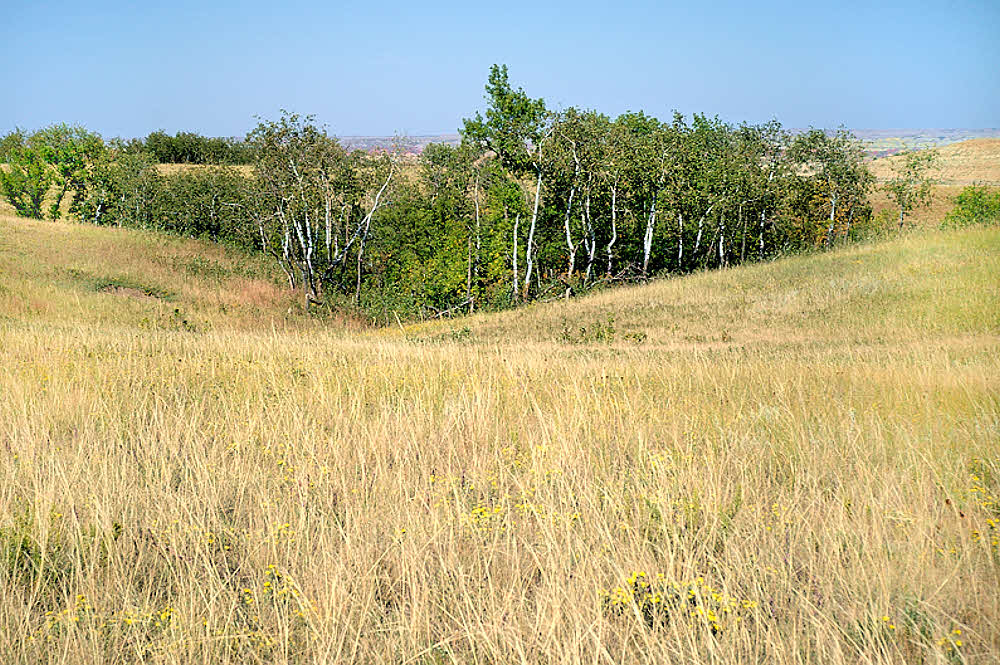
A cozy, snow-collecting hollow, hence the trees in an otherwise high plateau.
Dust and ashes and the Marquis.
[Roosevelt] spent most of that summer at Elkhorn Ranch.
Merrifield had, like Joe Ferris, gone East to New Brunswick for a wife, and the bride, who, like Joe's wife, was a woman of education and charm, brought new life to the deserted house on Elkhorn bottom. But something was gone out of the air of the Bad Lands; the glow that had burned in men's eyes had vanished. It had been a country of dreams and it was now a country of ruins; and the magic of the old days could not be re-created.
The cattle industry of the Bad Lands, for the time being, was dead; and the pulses of the little town at the junction of the railroad and the Little Missouri began to flutter fitfully and ominously. Only the indomitable pluck of the Marquis and his deathless fecundity in conceiving new schemes of unexampled magnitude kept it alive at all. The Marquis's ability to create artificial respiration and to make the dead take on the appearance of life never showed to better effect than in that desolate year of 1887. His plan to slaughter cattle on the range for consumption along the line of the Northern Pacific was to all intents and purposes shattered by the autumn of 1885. But no one, it appears, recognized that fact, least of all the Marquis. He changed a detail here, a detail there; then, charged with a new enthusiasm, he talked success to every reporter who came to interview him, flinging huge figures about with an ease that a Rockefeller might envy; and the newspapers from coast to coast called him one of the builders of the Northwest.
His plan to sell dressed beef along the railroad gave way to a project to sell it at the wholesale stalls in Chicago. That failed. Thereupon, he evolved an elaborate and daring scheme to sell it direct to consumers in New York and other Eastern seaboard cities.
"The Marquis actually opened his stores in Fulton Market," said Packard afterward, "and there sold range beef killed in Medora. Of course his project failed. It was shot full of fatal objections. But with his magnetic personality, with his verbalistic short-jumps over every objection, with every newspaper and magazine of the land an enthusiastic volunteer in de Mores propaganda, and with the halo of the von Hoffman millions surrounding him and all his deeds, bankers and business men fell into line at the tail of the de Mores chariot. We of the Bad Lands were the first to see the fatal weaknesses in his plans, but we were believers, partly because the Marquis seemed to overcome every difficulty by the use of money, and mainly because we wanted to believe."
Dozens of shops were in fact opened by the Marquis, but the public refused to trade, even at a saving, in stores where only one kind of meat could be bought. The Marquis had all the figures in the world to prove that the public should buy; but human nature thwarted him.
The plan failed, but the Marquis, with his customary dexterity, obscured the failure with a new and even more engaging dream.
"Our company is to be merged into another very large cattle syndicate," he said in March, 1887, "and having abundant capital, we propose to buy up every retail dealer in this city either by cash or stock."
The National Consumers' Company was the name of the new organization.
...
Less than three months after the National Consumers' Company was founded with blare of trumpets, it had collapsed. It was characteristic of von Hoffman, whose fortune was behind the undertaking, that he paid back every subscriber to the stock in full. If any one was to lose, he intimated, it was von Hoffman. But, having settled with the creditors of his expensive son-in-law, he explained to that gentleman, in words which could not be misunderstood, that he would have no more of his schemes. Von Hoffman thereupon betook himself to Europe, and the Marquis to Medora.
...
"I like Dakota and have come to stay," he remarked. Thereupon he launched one more grandiose scheme, announcing that he had discovered a gold mine in Montana and was planning to begin working it for all it was worth as soon as his prospectors had completed their labors; and sailed for India with his intrepid Marquise to hunt tigers.
Dakota knew him no more...The Sioux Falls Press pronounced his epitaph:
The Marquis is a most accomplished dreamer, and so long as his fortune lasted, or his father-in-law, Baron von Hoffman, would put up the money, he could afford to dream. He once remarked confidentially to a friend, "I veel make ze millions and millions by ze great enterprizes in America, and zen I veel go home to France, and veel capture my comrades in ze French armee, an veel plot and plan, and directly zey veel put me in command, and zen I veel swoop down on ze government, and first zing you know I veel mount the zrone." One time his agent at Medora, his ranch on the Northern Pacific, wrote him at New York about the loss of three thousand head of sheep, the letter going into all the details of the affair. The Marquis turned the sheet over and wrote, "Please don't trouble me with trifles like these." He is a very pleasant gentleman to meet, but unfortunately his schemes are bigger than he is.
Medora was a town whose glory had departed...One by one its leading citizens deserted it.
...
"D. O. Sweet and family have moved from Medora to Dickinson. Mr. Sweet desired to reside where there was some life and prospect of growth."
Source: Hagedorn's biography of Roosevelt.
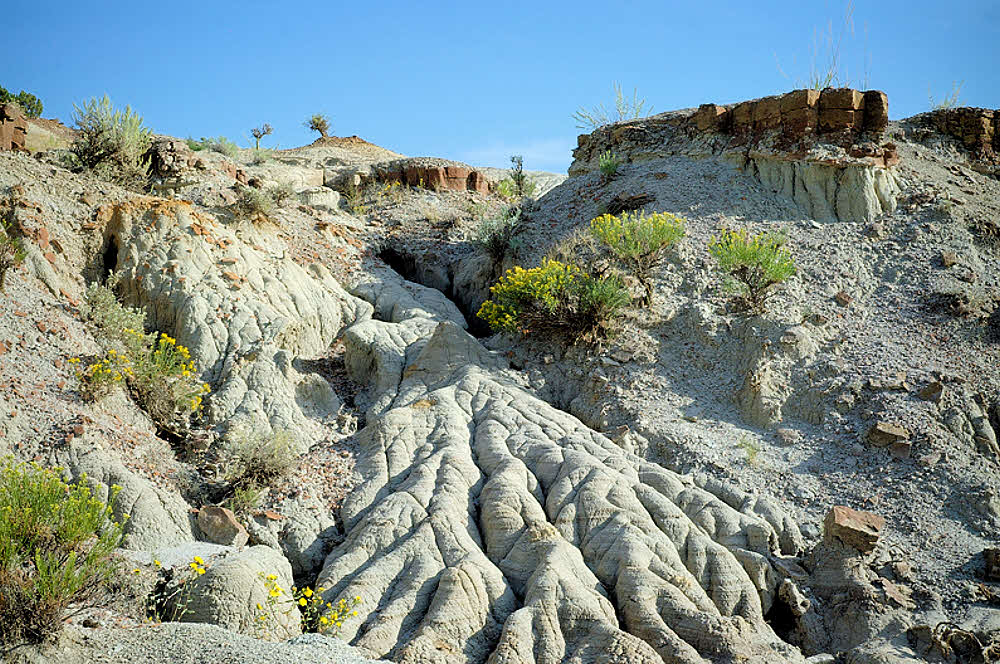
And back to not-prairie.
Epilogue.
This, then, is the story of Roosevelt in the Bad Lands.
In the autumn of 1887, Roosevelt was again with the Merrifields at Elkhorn and with Sylvane at the Maltese Cross, to assist in the round-up of a train-load of cattle which he subsequently sold at Chicago (again at a loss, for the prices for beef were even lower than the previous year). He went on a brief hunt after antelope in the broken country between the Little Missouri and the Beaver; he fought a raging prairie fire with the split and bleeding carcass of a steer; he went on another hunt late in December with a new friend named Fred Herrig, and was nearly frozen to death in a blizzard, attempting (not without success) to shoot mountain sheep; whereupon, feeling very fit, he returned East to his family and his books.
...
In the autumn of 1888, he was again at Elkhorn and again on the chase, this time in the Selkirks in northern Idaho, camping on Kootenai Lake, and from there on foot with a pack on his back, ranging among the high peaks with his old guide John Willis and an Indian named Ammal, who was pigeon-toed and mortally afraid of hobgoblins.
In 1889 he became a member of the Civil Service Commission in Washington, and thereafter he saw the Bad Lands only once a year, fleeing from his desk to the open country every autumn for a touch of the old wild life and a glimpse of the old friends who yet lingered in that forsaken country.
Medora had all the desolation of "a busted cowtown" whose inhabitants, as one cowpuncher remarked in answer to a tenderfoot's inquiry, were "eleven, including the chickens, when they were all in town." All of the wicked men and most of the virtuous ones, who had lent picturesqueness to Medora in the old days, were gone.
...
In 1890, Roosevelt was at the ranch at Elkhorn with Mrs. Roosevelt; a year later he hunted elk with an English friend, R. H. M. Ferguson, at Two Ocean Pass in the Shoshones, in northwestern Wyoming. That autumn the Merrifields moved to the Flathead country in northwestern Montana, and Roosevelt closed the ranch-house. A year later he returned to Elkhorn for a week's hunting. The wild forces of nature had already taken possession. The bunch-grass grew tall in the yard and on the sodded roofs of the stables and sheds; the weather-beaten log walls of the house itself were one in tint with the trunks of the gnarled cottonwoods by which it was shaded. "The ranch-house is in good repair," he wrote to Bill Sewall, "but it is melancholy to see it deserted."
Source: Hagedorn's biography of Roosevelt.
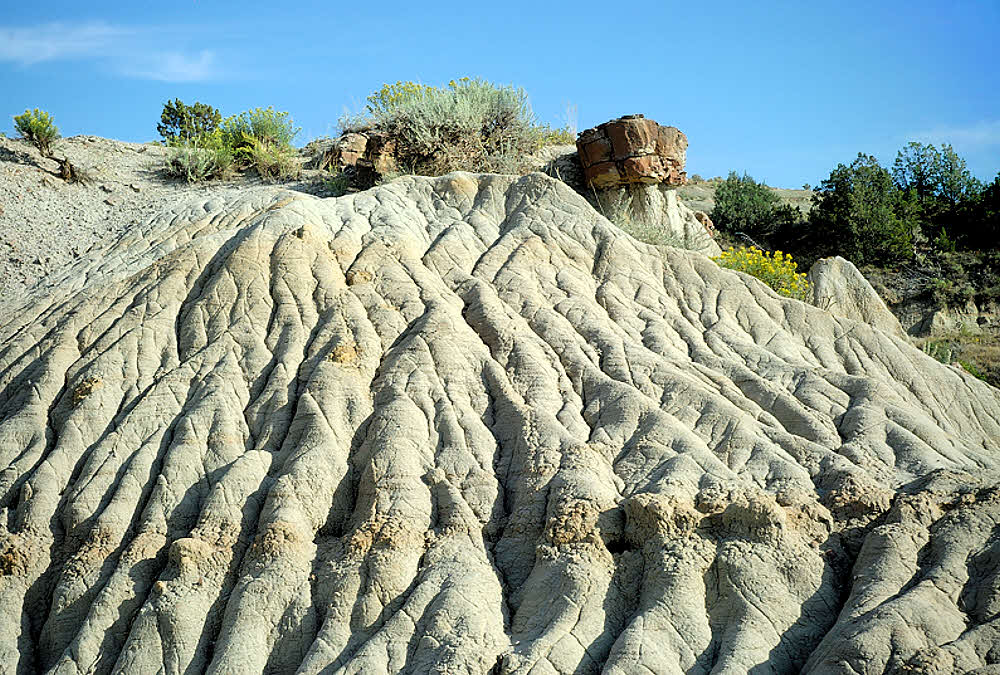
Weathered, always weathered.
...continued...
[Later], while Roosevelt was working on the Civil Service Commission, fighting the spoilsmen and rousing the conscience of the American people with a new ideal of public service, even while he stimulated their national pride with a fresh expression of the American spirit, his old rival, the Marquis de Mores, was noticeably stirring the Old World. A year in India had been succeeded by a long stay in China, where the Marquis had conceived a scheme to secure concessions for France, which somehow went the way of all the Marquis's schemes; nothing came of it.
He returned to France. The French people were in a restless, unhappy state. More than once, war with Germany seemed imminent. The Government was shot through with intrigue and corruption. The Marquis, with all the faults of his temperament, was an idealist, with a noble vision for his country. He saw that it had fallen into the hands of base, self-seeking men, and he grasped at every means that presented itself to overthrow the powers that seemed to him to be corrupting and enfeebling France. He became an enthusiastic follower of Boulanger; when Boulanger fell, he became a violent anti-Semite, and shortly after, a radical Socialist. Meanwhile, he fought one duel after another, on one occasion killing his man. More than once he came into conflict with the law, and once was imprisoned for three months, accused of inciting the populace to violence against the army. There were rumors of plots with the royalists and plots with the anarchists. It did not apparently seem of particular importance to the Marquis by whom the Government was overthrown, so it was overthrown.
His plans did not prosper. Anti-Semitism grew beyond his control. The Dreyfus affair broke, and set the very foundations of France quivering. What the Marquis's part in it was, is obscure, but it was said that he was deeply involved.
His attention was turning in another direction. France and England were struggling for the possession of Central Africa, and the Marquis conceived the grandiose dream of uniting all the Mohammedans of the world against England. He went to Tunis in the spring of 1896, commissioned, it was said, by the French Government to lead an expedition into the Soudan to incite the Arabs to resist the English advance in Africa.
Whether the Marquis actually had the support of the Government is more than dubious. When he set out on his expedition to the wild tribes of the Tunisian desert, he set out practically alone. At the last moment, the Marquis changed his Arab escort for a number of Touaregs, who offered him their services. They were a wild, untrustworthy race, and men who knew the country pleaded with him not to trust himself to them. But the Marquis, who had prided himself on his judgment in Little Missouri in 1883, had not changed his spots in 1896. His camel-drivers led him into an ambush near the well of El Ouatia. He carried himself like the game fighting man that he had always been, and there was a ring of dead men around him when he himself finally succumbed.
Nineteen days later an Arab official, sent out by the French military commander of the district, found his body riddled with wounds and buried in the sand near a clump of bushes close to where he had fallen. His funeral in Paris was a public event.
It was a tragic but a fitting close to a dreamer's romantic career. But the end was not yet, and the romance connected with the Marquis de Mores was not yet complete. The investigation into his death which the French Government ordered was abandoned without explanation. The Marquis's widow protested, accusing the Government of complicity in her husband's death, and charging that those who had murdered the Marquis were native agents of the French authorities and had been acting under orders.
Source: Hagedorn's biography of Roosevelt.
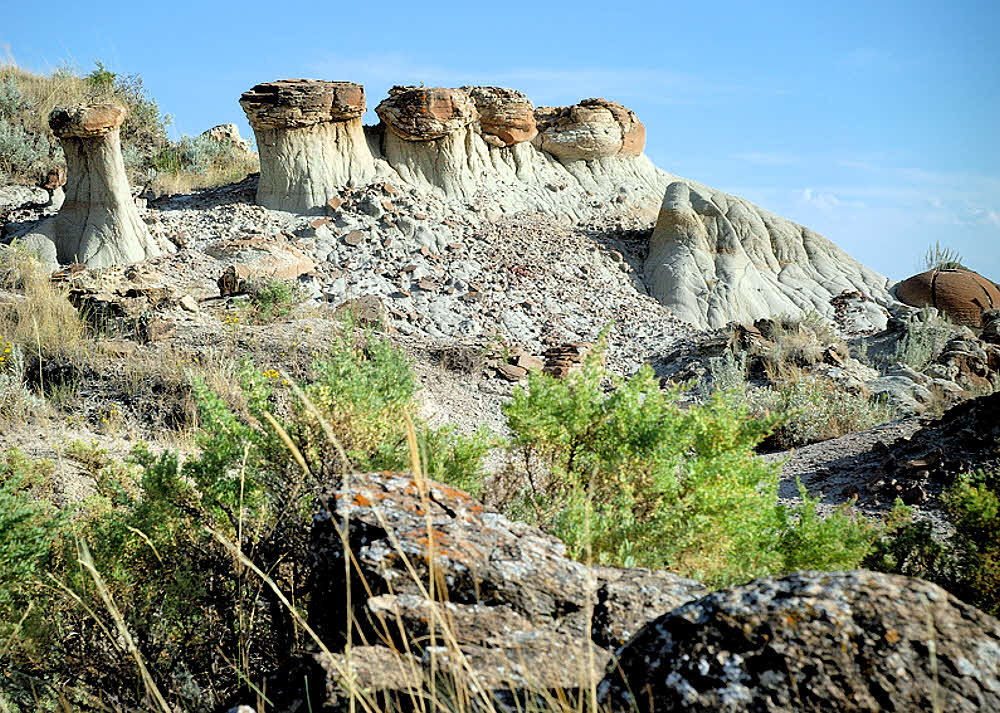
Caprocks. Once you see one, you find them all over.
...continued...
The Marquise herself went to Tunis, determined that the assassins of her husband should be brought to justice. There is a ring in her proclamation to the Arabs which might well have made the stripped bones of the Marquis stir in their leaden coffin.
In behalf of the illustrious, distinguished, and noble lady, the Marquise of Mores, wife of the deceased object of God's pity, the Marquis of Mores, who was betrayed and murdered at El Ouatia, in the country of Ghadames, salutations, penitence, and the benediction of God!
Let it herewith be known to all faithful ones that I place myself in the hands of God and of you, because I know you to be manly, energetic, and courageous. I appeal to you to help me avenge the death of my husband by punishing his assassins. I am a woman. Vengeance cannot be wreaked by my own hand. For this reason I inform you, and swear to you, by the one Almighty God, that to whosoever shall capture and deliver to the authorities at El-Qued, at Ouargia, or at El-Goleah one of my husband's assassins I will give 1000 douros ($750), 2000 douros for two assassins, 3000 douros for three assassins. As to the principal assassins, Bechaoui and Sheik Ben Abdel Kader, I will give 2000 douros for each of them. And now, understand, make yourselves ready, and may God give you success.
Marquise de Mores
The murderers were captured, convicted, and executed. Then the little American woman, with her hair of Titian red, whom the cowboys of Little Missouri had christened "The Queen of the West," quietly withdrew from the public gaze; and the curtain fell on a great romantic drama.
Source: Hagedorn's biography of Roosevelt.
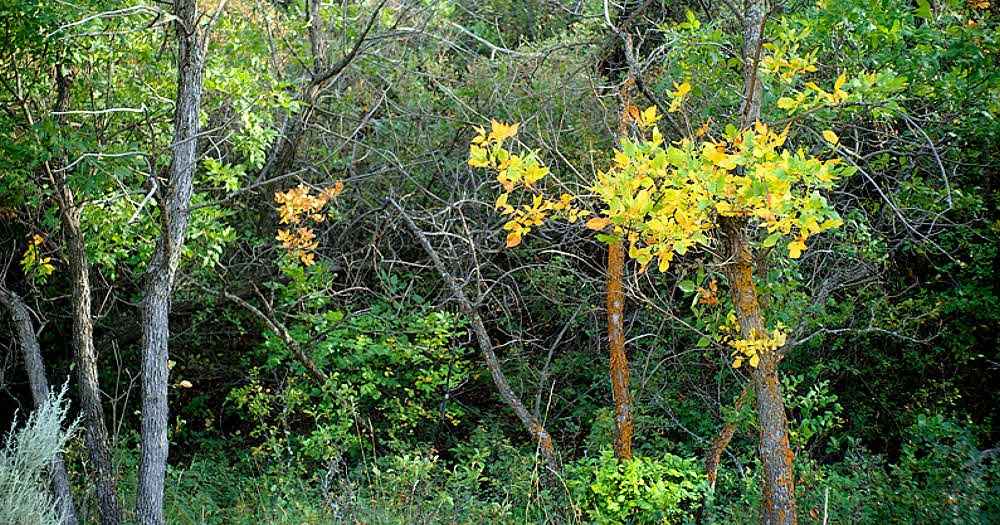
Another dense, shady grove.
...continued...
Theodore Roosevelt was just coming into national eminence as Police Commissioner of New York City when the Marquis de Mores died beside the well of El Ouatia...
In May, 1897, Roosevelt became Assistant Secretary of the Navy. Less than a year later the Spanish War broke out. The dream he had dreamed in 1886 of a regiment recruited from the wild horsemen of the plains became a reality. From the Canadian border to the Rio Grande, the men he had lived and worked with on the round-up, and thousands of others whose imaginations had been seized by the stories of his courage and endurance, which had passed from mouth to mouth and from camp-fire to camp-fire through the cattle country, offered their services. The Rough Riders were organized, and what they accomplished is history.
...
The men and women of the Bad Lands, scattered far and wide over the Northwest, watched his progress with a glowing feeling in their hearts that was akin to the pride that a father feels at the greatness of a son whom he himself has guided in the way that he should go. There was none of them but felt that he had had a personal share in the making of this man who was beginning to loom larger and larger on the national horizon.
...
Roosevelt was nominated for the vice-presidency in June, 1900, and...early in September he came to Dakota.
Source: Hagedorn's biography of Roosevelt.
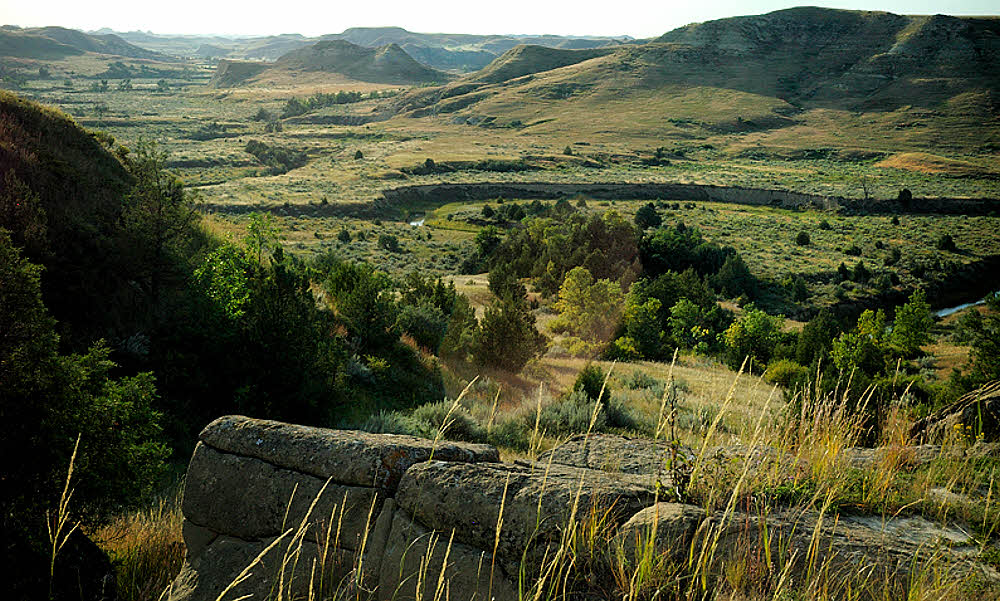
More river, winding its way along.
...continued...
"Looking back to my old days here," he said, "I can paraphrase Kipling and say, 'Whatever may happen, I can thank God I have lived and toiled with men.'"
Roosevelt was inaugurated as Vice-President in March, 1901. Six months later he was President of the United States. From a venturesome cowpuncher who made his way shyly into the White House, the glad tidings were spread to the Bad Lands and through the whole Northwest that Roosevelt was the same Roosevelt, and that everybody had better take a trip to Washington as soon as he could, for orders had gone forth that "the cowboy bunch can come in whenever they want to."
Occasionally one or the other had difficulty in getting past the guards. It took Sylvane two days, once, to convince the doorkeeper that the President wanted to see him. Roosevelt was indignant. "The next time they don't let you in, Sylvane," he exclaimed, "you just shoot through the windows."
No one shot through the windows. It was never necessary. The cowboys dined at the President's table with Cabinet ministers and ambassadors.
"Remember, Jim, that if you shot at the feet of the British Ambassador to make him dance," Roosevelt whispered to one of his cowboy guests on one occasion, "it would be likely to cause international complications."
"Why, Colonel, I shouldn't think of it," exclaimed Jim. "I shouldn't think of it!"
Source: Hagedorn's biography of Roosevelt.
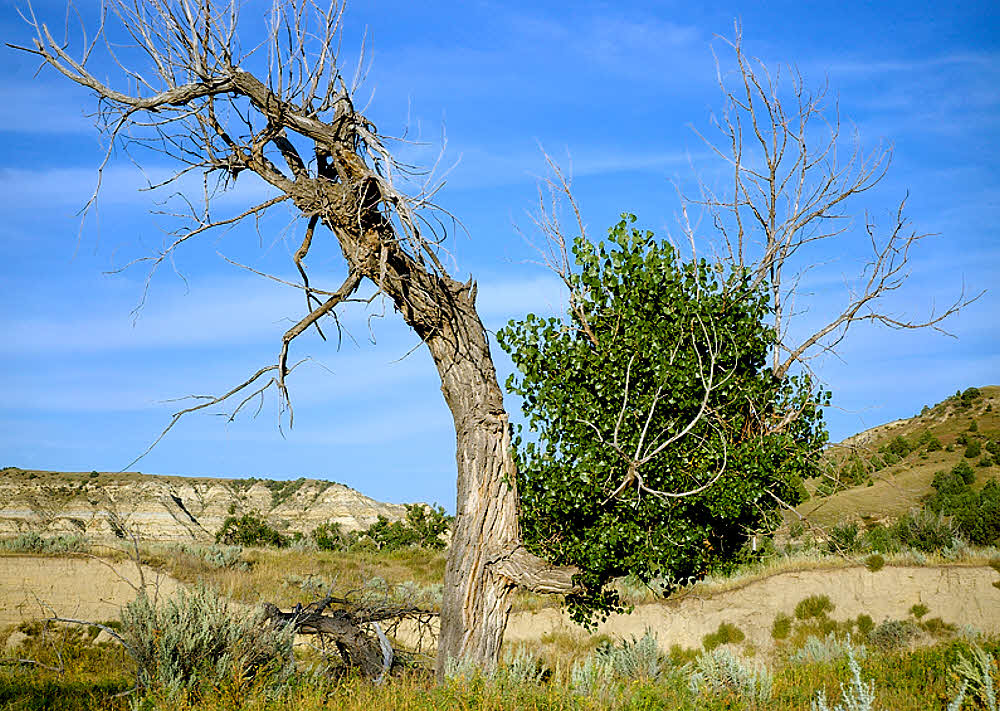
Nearly back to the beginning of this day's hike. Another cottonwood.
...continued...
Once more, for the last time, Roosevelt in 1903 went back to Medora. As they came into the Bad Lands, he stood on the rear platform of his car, gazing wistfully over the forbidding-looking landscape.
"I know all this country like a book," he said to John Burroughs, who was beside him. "I have ridden over it and hunted in it and tramped over it in all seasons and weather, and it looks like home to me."
...
Years passed, and bitter days came to Roosevelt, but though other friends failed him, the men of the Bad Lands remained faithful.
...
George Myers was the last of the "cowboy bunch" to see him. They met in Billings in October, 1918. The town was filled with the crowds who had come from near and far to see the man who, everybody said, was sure again to be President of the United States.
"Have you got a room, George?" cried Roosevelt, as they met.
Myers shook his head cheerfully.
"Share mine with me," said Roosevelt, "and we'll talk about old times."
Three months later to a day, the man who had been Little Missouri's "four-eyed tenderfoot" was dead.
Source: Hagedorn's biography of Roosevelt.
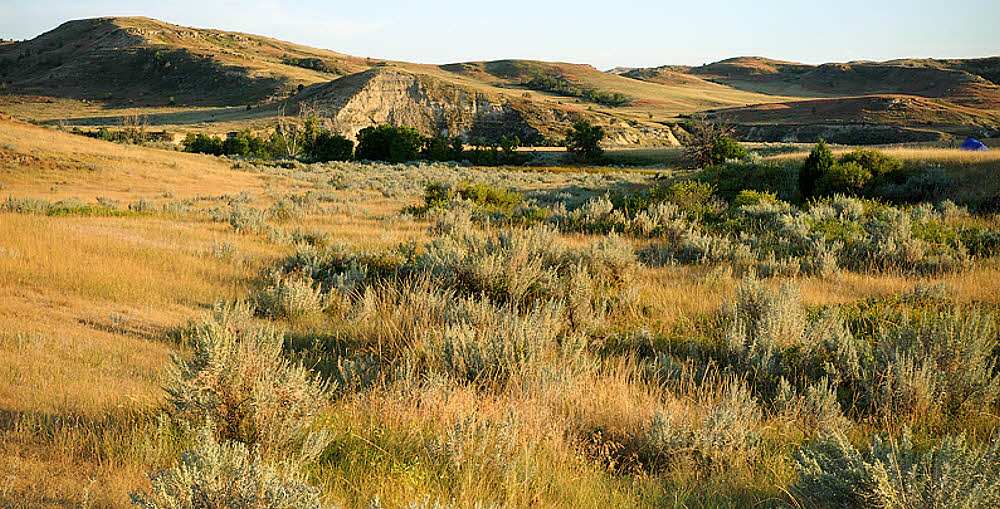
Way off to the right, something blue. I don't remember that. Looks like a tent.
And in 1921, when this book was published:
The Bad Lands are still the Bad Lands, except that the unfenced prairies are fenced now and on each bit of parched bottom-land a "nester" has his cabin and is struggling, generally in vain, to dig a living out of the soil in a region which God never made for farming. The treacherous Little Missouri is treacherous still; here and there a burning mine still sends a tenuous wisp toward the blue sky; the buttes have lost none of their wild magnificence; and dawn and dusk, casting long shadows across the coulees, reveal the old heart-rending loveliness.
Medora sleeps through the years and dreams of other days. Schuyler Lebo, who was shot by the Indians, delivers the mail; "Nitch" Kendley operates the pump for the water-tank at the railroad station; a nonogenarian called "Frenchy," who hunted with Roosevelt and has lost his wits, plays cribbage all day long at the "Rough Riders Hotel." These three are all that remain of the gay aggregation that made life a revel at the "depot" and at Bill Williams's saloon. And yet, even in its desolation, as the cook of the "Rough Riders Hotel" remarked, "There's something fascinating about the blinkety-blank place. I don't know why I stay here, but I do."
The ranch-house of the Maltese Cross has been moved to Bismarck, where it stands, wind-beaten and neglected, in the shadow of the capitol. The Elkhorn ranch-house is gone, used for lumber, but the great foundation stones that Bill Sewall and Will Dow laid under it remain, and the row of cottonwoods that shaded it still stand, without a gap. Near by are the ruins of the shack which Maunders claimed and Roosevelt held, in spite of threats. The river flows silently beneath a grassy bank. There is no lovelier spot in the Bad Lands.
THE END
Source: Hagedorn's biography of Roosevelt.
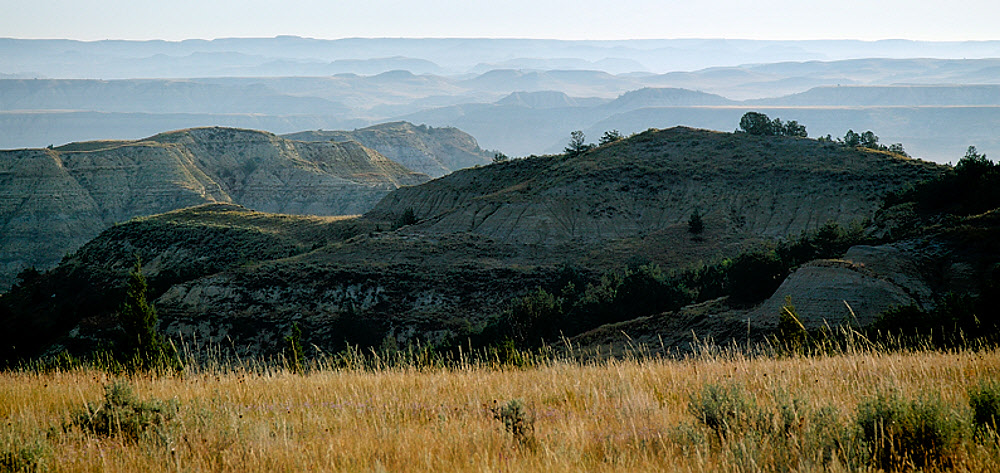
Last day here. Morning. Haze.

Right over the edge, a different world.
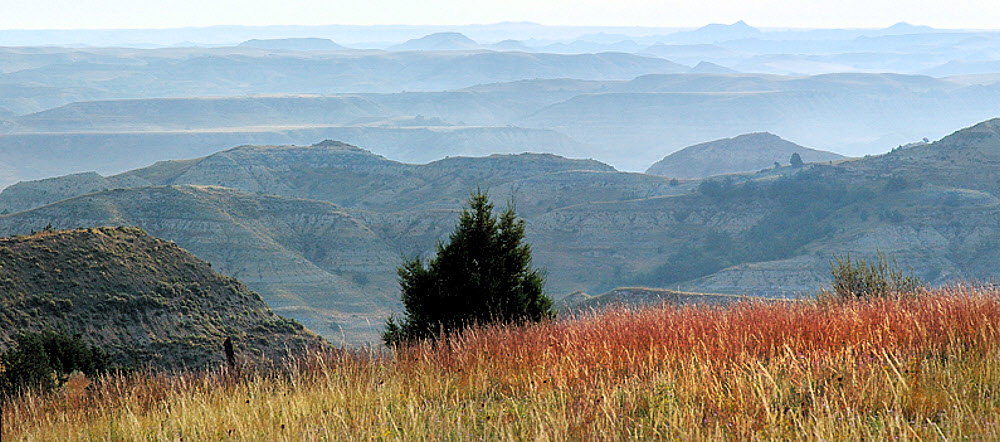
Everywhere I looked, more of the same, but always different too.

I do need to get back here again. Soon. Maybe everyone feels that way.
Extra info.
Legendary biking on North Dakota's Maah Daah Hey trail (alternate link via the Web Archive)
Map of the whole MDH Trail at the Web Archive
North Dakota Parks and Recreation Department - Maah Daah Hey Trail
Maah Daah Hey Trail Association
Medora von Hoffman and her pet Marquis (alternate link via the Web Archive)
Medora Vallombrosa, Marquise de Mores
Northern Pacific Refrigerator Car Company booklet
Chateau de Mores State Historic Site (YouTube tour / 8:58)
Antoine (Tony) de Vallombrosa de Mores (grandson)
This North Dakota Bike Trail Is Stunning. Just Hope You Survive It.
Devils Pass via the Maah Daah Hey Trail
Point of interest Devil's Pass
Theodore Roosevelt National Park
Populus deltoides (eastern cottonwood)
Henry Herbert Knibbs, cowboy poet (alternate link via the Web Archive)
Bill Sewall, Roosevelt's Manly Mentor (alternate link via the Web Archive)
Roosevelt in the Bad Lands, by Hermann Hagedorn. Boston and New York Houghton Mifflin Company, The Riverside Press Cambridge 1921, Copyright 1921 by Hermann Hagedorn
Hermann Hagedorn (Wikipedia)
Hermann Hagedorn (The Theodore Roosevelt Center)